wealth tax
description: levy on the total value of personal assets, including owner-occupied housing; cash, bank deposits, money funds, and savings in insurance and pension plans
181 results
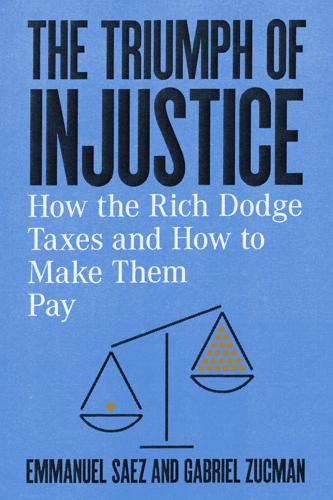
The Triumph of Injustice: How the Rich Dodge Taxes and How to Make Them Pay
by
Emmanuel Saez
and
Gabriel Zucman
Published 14 Oct 2019
It also depicts what their wealth share would have been if a moderate or radical wealth tax had been in place since 1982. The moderate wealth tax has a 3% marginal tax rate above $1 billion while the radical wealth tax has a 10% marginal tax rate above $1 billion. The wealth share of the top 400 has increased from less than 1% in 1982 to almost 3.5% in 2018. With a moderate wealth tax in place since 1982, their wealth share would have been around 2% in 2018. With a radical wealth tax, it would have been about 1% in 2018, as in the early 1980s. Complete details at taxjusticenow.org. A radical wealth tax would have raised $250 billion in revenue from the 400 richest Americans alone in 2018, more than 1% of GDP.
…
Overcoming this limitation requires taxing top wealth itself at high rates. A moderate wealth tax at a marginal tax rates of 2% above $50 million and 3% above $1 billion, such as the one discussed in the previous chapter, would generate a lot of revenue—about 1% of GDP each year, according to our estimates. It would be on the “good” side of the Laffer curve. Consider now a radical wealth tax with a marginal tax rate of 10% above $1 billion. A person with $1 billion in wealth would pay the same $19 million as under a moderate wealth tax.* A radical wealth tax would not make it harder to become a billionaire; it would make it harder to remain a multibillionaire.
…
But if such a tax had been in place since 1982, it would have only raised $66 billion from these 400 wealthiest families in 2018, while a moderate wealth tax, despite its much lower rate, would have yielded almost as much—about $50 billion. In the long run, a radical wealth tax erodes top fortunes so much that it reduces the taxes paid by the ultra-rich: it goes beyond Laffer.16 Is a radical wealth tax worth it? Would society benefit from curbing huge fortunes with a 10% annual wealth tax above $1 billion, even if it means lower tax collection at the top end? Over the years, our own thinking about this question has evolved as the stagnation of working-class income and the boom in extreme wealth became clearer in the data.
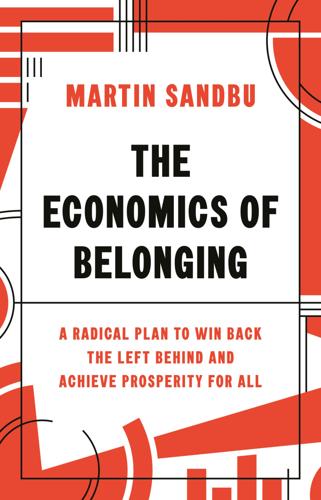
The Economics of Belonging: A Radical Plan to Win Back the Left Behind and Achieve Prosperity for All
by
Martin Sandbu
Published 15 Jun 2020
If governments were at all interested in using tax systems to respond to the shifts in the market distribution of prosperity that has happened since 1970, their top priority would have been to increase the amount taken through net wealth taxes. Net wealth taxes are annual levies assessed as a percentage rate on taxpayers’ total net worth—the value of all their assets, with a deduction for all their debts. Such taxes are unusual, however, and more unusual than they used to be. In the early 1990s, a dozen or so rich countries still had taxes on net wealth. Most have abolished them since then or are phasing them out. Today only three still have full-fledged net wealth taxes: Switzerland, Norway, and Spain. (In addition, the Netherlands and Belgium have limited versions.) At the time of writing, net wealth taxes are nevertheless experiencing a renaissance because of the Democratic primary race of the 2020 US presidential election.
…
Another is that existing or past taxes have been riddled with loopholes, with one or another asset class exempted or granted discounted valuations, resulting in much effort being put into attempting to reclassify assets in order to pay less under the rules. Existing net wealth taxes have usually raised little revenue because rates have been low—hardly any other countries have applied the rates at the level proposed by the Warren and Sanders campaigns. On the other hand, they have typically applied net wealth taxes from much lower thresholds.6 Net wealth tax revenues similar to Switzerland’s are arguably achievable with a higher rate from higher thresholds, as in the Warren plan.7 But there is reason to think that putting a net wealth tax at the centre of a strategy to shift the tax burden from labour to capital, and onto those who have done best from the economic changes since the 1970s, could raise much more than this.
…
Most ambitiously, such revenues could fund reforms of welfare systems and labour markets to make them work for the left behind, as proposed in chapters 6 and 7. But the arguments for a net wealth tax go beyond just the promise to raise revenue, or to keep taxation of capital in line with the growth of capital itself. This could, after all, be done by increasing other, more common levies on capital, such as taxes on dividend income or capital gains. A net wealth tax has an added advantage: it is the least harmful way to tax capital because it is likely to encourage greater productivity. That is because a net wealth tax creates unique incentives for how savings are invested—bearing in mind that net wealth taxes are levied without reference to actual income from the wealth that is taxed.
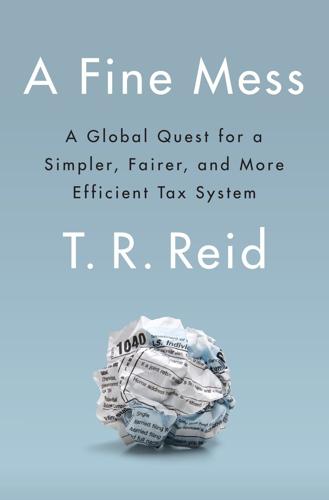
A Fine Mess
by
T. R. Reid
Published 13 Mar 2017
Still, this form of tax has been decidedly out of favor for the last ten years or so. It used to be common for developed countries to have a wealth tax that worked like the French ISF; in 1990, more than half of the members of the rich nations’ group, the OECD, had a wealth tax in place, in addition to the normal income, property, corporate, and sales taxes. But most nations repealed the wealth tax around the start of the twenty-first century. In 2016, only a handful of countries still imposed an annual tax on overall wealth. France, Norway, Switzerland, and India all have permanent wealth tax regimes. In France and Switzerland, the tax only hits millionaires. In contrast, Norway imposes the tax at a fairly low level; anybody with total wealth greater than about $130,000 gets hit with the wealth tax.
…
In contrast, Norway imposes the tax at a fairly low level; anybody with total wealth greater than about $130,000 gets hit with the wealth tax. The widest definition of “wealthy” is in India, where a 1% wealth tax kicks in for anybody whose net worth is more than 3 million rupees, which comes to about $45,000. (In India, that still means a small percentage of the population.) Responding to the economic strictures of the Great Recession, Iceland and Spain reinstituted the wealth tax in 2008, but both governments called this a “temporary” measure. When Cyprus faced a collapse of its banking system in 2013, the government imposed a onetime wealth tax on bank deposits; it simply seized between 4% and 20% of the savings of anybody who had more than €100,000 (about $130,000 at the time) in a Cypriot bank.
…
For the property tax, the county sends around an assessor to appraise the value of your house, and the tax due is some percentage of the appraised value. In a wealth tax regime, the assessor appraises not just your house but all your wealth—your cars, your boat, your jewelry, your bank accounts, your investment portfolio, the art on your walls, your vacation home, and the Persian rug on the floor of your vacation home. If the total wealth exceeds a certain amount, you pay a tax on the whole thing. If the assessor finds that all the money and stuff you own is worth a total of $5 million, and the wealth tax rate is 2%, you’d have to fork over $100,000 in wealth tax. And the assessor will come around next year to bill you again.
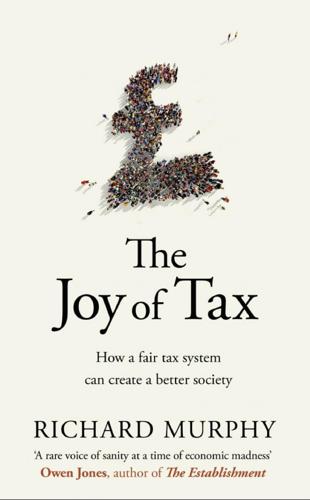
The Joy of Tax
by
Richard Murphy
Published 30 Sep 2015
If, after all, one of the main objectives of tax is to redistribute income and wealth it makes no sense to ignore wealth as a tax base, either in its own right, or as a source of income that does, in turn, require redistribution. A wealth tax is, then, an essential part of a tax system even if capital gains and gifts made out of wealth are already taxed elsewhere. The rate at which wealth tax might be charged may well be modest, and it is clear that exemptions would be required for the necessary cost of providing a home (but not of landed estates) and for reasonable sums put aside to provide for old age, but above and beyond that the arguments against a wealth tax have always been pragmatic and not theoretical. When, as until very recently, it was so easy to relocate wealth out of the country and into a tax haven and so avoid any liability, wealth taxes looked something like honesty box arrangements, which cannot be thought an equitable outcome.
…
When, as until very recently, it was so easy to relocate wealth out of the country and into a tax haven and so avoid any liability, wealth taxes looked something like honesty box arrangements, which cannot be thought an equitable outcome. In the new era now being created, of automatic information exchange of data on people who hold accounts and own companies and trusts in tax havens, this pragmatic objection can be consigned to history. The tireless campaigning of the tax justice movement to achieve this goal has made wealth taxation possible. The argument that wealth taxes should not be imposed upon business assets can be dismissed. Pragmatically, 95 per cent of all businesses are likely to fall below any threshold at which a wealth tax will be charged: the small enterprise economy will never be impacted by a wealth tax.
…
Pragmatically, 95 per cent of all businesses are likely to fall below any threshold at which a wealth tax will be charged: the small enterprise economy will never be impacted by a wealth tax. Once a business is on a scale that passes that threshold there are good reasons for charging tax on the owners of the wealth implicit in them. Such businesses will, almost invariably, make use of limited liability, and since this is a privilege granted by society it should be paid for. If the wealth of those who own businesses is protected from unforeseen loss, which is the case when a limited liability company is used, then a premium is due for that benefit.
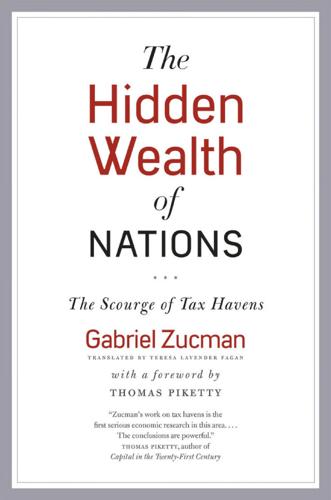
The Hidden Wealth of Nations: The Scourge of Tax Havens
by
Gabriel Zucman
,
Teresa Lavender Fagan
and
Thomas Piketty
Published 21 Sep 2015
A Tax on Capital The world financial register is intimately linked to the proposal for a global wealth tax made by Thomas Piketty in Capital in the Twenty-First Century. This proposal has generated a heated controversy, and I don’t want to repeat it here. Quite simply, let’s assume that a tax on wealth might turn out to be desirable in certain places, at certain times, if wealth concentration was to reach extreme levels above which inequality harms growth, innovation, or the well functioning of our democratic institutions. How would the wealth tax work? It is not possible to tax wealth if we cannot measure it. Most people are honest and would pay the tax if it existed, but if even a tiny minority of tax dodgers could freely evade it, the consent to taxation would be severely undermined.
…
On the contrary, the financial register that I describe, combined with the land and real estate registers that are already in place, would make it possible to enforce wealth taxes in a democratic and transparent way. The register is thus a necessary tool for the taxation of wealth in the twenty-first century. It is actually the combination of wealth taxation and financial registries that would deal the fatal blow to financial opacity. Without a wealth tax, there is a risk that even a global register might fail to identify who exactly owns what. Despite anti-laundering legislation that requires financial institutions to know who the owners of the wealth that they have in their accounts truly are, a not negligible portion of the securities could continue to be recorded in a register as belonging to trusts without a well-identified owner.
…
And as we shall see in chapter 3, the 35% tax that was supposed to penalize those who prefer to remain anonymous is easy to avoid, so that at the end of the day about 80% of the wealth held by Europeans in Switzerland seems to still be untaxed. On the assumption of a like basis for other tax havens, this means that $6.1 trillion were not declared globally in 2014. What is the loss in tax revenue caused by this dissimulation? In most countries, there are no annual wealth taxes: only the dividends, interest, rents, and capital gains that wealth generates are taxable. It is fitting here to debunk another myth that is very widespread, according to which the money held in Switzerland and elsewhere earns little or nothing (hence governments don’t lose much). Yes, the return on Treasury bonds is negligible today, but this is not the preferred investment of millionaires—and it is not at all representative of the returns that can be earned on one’s wealth.
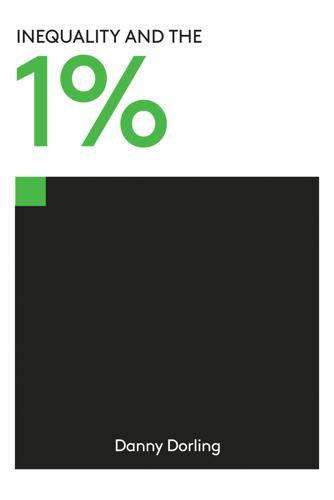
Inequality and the 1%
by
Danny Dorling
Published 6 Oct 2014
Less than 1 per cent is levied directly on wealth across the OECD, although tax on the interest accrued from wealth is a minor current wealth tax.91 During 2013 a Europe-wide wealth tax was proposed.92 In 2014 the German government suggested that (debtor) countries such as Ireland should impose it more firmly.93 In 1990 half of all OECD countries had a net wealth tax, but that had declined by 2000 to one-third. Since then the number has fallen further, with Spain, Sweden, Finland, Iceland and Luxembourg all abandoning their wealth taxes after 2006. But Spain, Ireland and Iceland are reintroducing wealth taxes to cope with their financial emergencies.94 The most effective wealth taxes are on fixed assets. In Iceland the disposable income of the 1 per cent collapsed from 20 per cent of all income to 10 per cent in just one year, as a result of measures taken to deal with the financial crisis; in Spain the 1 per cent take less than 10 per cent of annual income, and their share has fallen in the latest four years recorded.95 It is possible to tax the wealth of the richest successfully.
…
Mouree, ‘The Role of Tax Policy in Times of Fiscal Consolidation’, Economic Papers 502, August 2013, Brussels, European Commission, at piketty.pse.ens.fr. 93. In January 2014, ‘The German central bank raised the idea of an emergency “capital levy” in its monthly report’. See zerohedge.com. See also A. Evans-Pritchard, ‘Wealth Tax to Pay for EU Bail-Outs’, Telegraph, 14 April 2013. 94. McDonnell, ‘Wealth Tax’, p. 21. 95. A. B. Atkinson and S. Morelli, ‘Chartbook of Economic Inequality: 25 Countries 1911–2010’, INET Research Note 15, New York, Institute for New Economic Thinking, 2012, pp. 23, 49, at ineteconomics.org. 96. N. Dejevsky, ‘Buy-to-Let, Not Help to Buy, Is the Real Scourge of Generation Rent’, Financial Times, 25 October 2013. 97.
…
Inflation ate away at wealth. No wonder there is now an attempt to rewrite history and describe those times as terrible, when for most they were so good.85 The rewriting of history has worked, and the media today presents a persistently gloomy assessment of the 1970s, as if the long, hot summer of 1976 never occurred. Wealth taxes were reduced after the 1970s because the rich gained increasing control over the levers of power and over political parties, and increased their influence by paying lobbyists to represent their interests, while often pretending to be representing the interests of ‘business’ or ‘industry’. In the US and the UK the rich spent an ever greater share of their money to protect the rest of it.
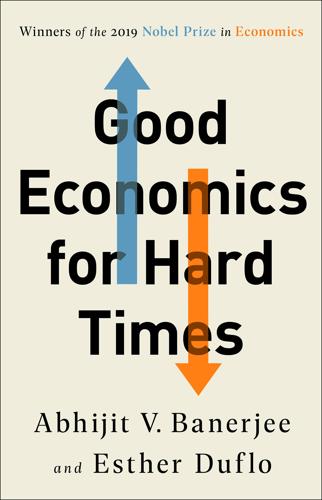
Good Economics for Hard Times: Better Answers to Our Biggest Problems
by
Abhijit V. Banerjee
and
Esther Duflo
Published 12 Nov 2019
Unlike estate tax, which got a bad rap after being called the “death tax,” the idea of wealth tax is very popular. In 2018, 61 percent of respondents to a poll conducted by the New York Times were in favor, including 50 percent of Republicans.70 So it even may be politically feasible. Yet in recent decades many countries got rid of their wealth tax if they had one, and few countries have put one in place (Colombia is an exception). In France, getting rid of the wealth tax was one of the first actions of the centrist Macron government after his election in 2017. As we saw, this was a very dangerous political move; the abolition of the wealth tax and the attempt to put in place a surcharge on fuel was the original motivation for the Yellow Vest protest movement.
…
In other words, although it might be desirable in terms of limiting inequality, the current proposal to raise income tax rates above 70 percent is unlikely to deliver so much new money to the state. A wealth tax would raise more revenue as long as steps were taken to reduce evasion. Saez and Zucman estimate that a 2 percent wealth tax on Americans with assets above $50 million (this would affect about seventy-five thousand people), as well as a 3 percent wealth tax on those who have more than $1 billion would raise $2.75 trillion over ten years, or 1 percent of GDP.2 As we saw, 2 percent wealth tax for those worth more than $50 million is actually more popular than an increase in the marginal income tax rate.3 But even at the proposed level, it still raises just 1 percent of GDP.
…
When taxes go up, we expect to see the reverse: a sharp drop in taxable income as those who can hide their incomes do so right away, but a smaller effect afterward. In part for this reason, a small number of politicians in the United States and some economists67 are pushing for a progressive wealth tax applicable on worldwide wealth (in 2019, Elizabeth Warren proposed a 2 percent wealth tax on Americans with assets above $50 million, and a 3 percent wealth tax on those who have more than $1 billion). The idea is not new. After all, most Americans who own a home already pay a tax on the value of their home: the real estate tax they pay to their municipal government. But this tax is regressive.
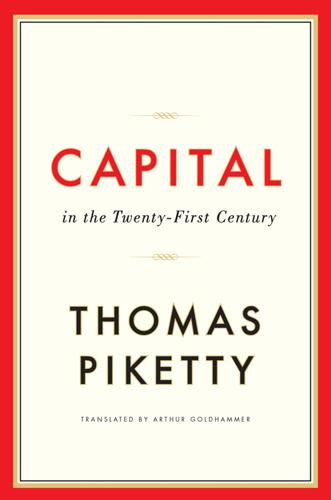
Capital in the Twenty-First Century
by
Thomas Piketty
Published 10 Mar 2014
There are perhaps advantages to being at odds with the rest of the developed world in regard to economic policy: in some cases it allows a country to be ahead of its time.38 Although the French ISF is based on market values, in which respect it resembles the ideal capital tax, it is nevertheless quite different from the ideal in other respects. As noted earlier, it is riddled with exemptions and based on self-declared asset holdings. In 2012, Italy introduced a rather strange wealth tax, which illustrates the limits of what a single country can do on its own in the current climate. The Spanish case is also interesting. The Spanish wealth tax, like the now defunct Swedish and German ones, is based on more or less arbitrary assessments of real estate and other assets. Collection of the tax was suspended in 2008–2010, then restored in 2011–2012 in the midst of an acute budget crisis, but without modifications to its structure.39 Similar tensions exist almost everywhere: although a capital tax seems logical in view of growing government needs (as large private fortunes increase and incomes stagnate, a government would have to be blind to pass up such a tempting source of revenue, no matter what party is in power), it is difficult to design such a tax properly within a single country.
…
The method was developed by French and British economists and statisticians (especially B. Mallet, M. J. Séaillès, H. C. Strutt, and J. C. Stamp) in 1900–1910 and used in all subsequent historical research. When we have data from wealth surveys or annual wealth taxes on the living (as in the Nordic countries, where such taxes have existed since the beginning of the twentieth century, or in France, with data from the wealth tax of 1990–2010), we can check the validity of this method and refine our hypotheses concerning mortality differentials. On these methodological issues, see the online technical appendix. 8. See the online technical appendix.
…
In any case, consumption is insignificant. 17. Honoré de Balzac, Le père Goriot (Paris: Livre de Poche, 1983), 105–9. 18. In the case of Challenges, there seem to be too few fortunes in the 50–500 million euro range compared with the number of wealth tax declarations in the corresponding brackets (especially since a large part of business capital is not taxable under the wealth tax and therefore does not appear in the statistics). This may be because Challenges does not look at diversified fortunes. Indeed, both sources underestimate the actual number of large fortunes for opposite reasons: the Challenges source overvalues business capital, while the fiscal source underestimates it, and both rely on vague and shifting definitions.
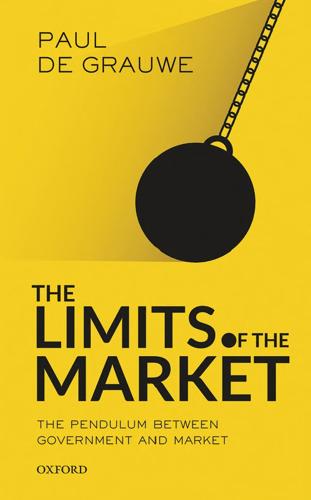
The Limits of the Market: The Pendulum Between Government and Market
by
Paul de Grauwe
and
Anna Asbury
Published 12 Mar 2017
Without these services the market system is condemned to failure. Can we not solve the problem of financing social security through a wealth tax? Instead of taxing workers, surely we should make the owners of capital pay for social security? I address this important question in Chapter . There I argue that a wealth tax is absolutely essential. The way in which such a tax has to be structured, however, results in the total revenues for government being relatively limited. As a consequence the wealth tax can only make a limited contribution to financing social security. It is also important that government delivers the collective services efficiently.
…
The great inequality in assets should therefore be restricted, in order to save both democracy and capitalism. According to Piketty that can only be achieved through a tax on wealth. A Progressive Wealth Tax How should a wealth tax look? Ideally we would like it to hit the rentiers, who make no contribution to prosperity, while sparing the wealth of those who have built up their fortunes through entrepreneurship and creativity. In reality it is impossible to distinguish between the two. This has led to the idea of introducing a progressive wealth tax. For example we might exempt wealth up to one million pounds from taxation. Many people (tradesmen, professionals, small business owners) have worked and saved hard during their lives.
…
. per cent might be applied, between five and ten million pounds one per cent, and above ten million two per cent, arriving at a rate between three and four per cent. This is just an example, and many different scales are possible. The important thing is to ensure that the phenomenally large fortunes, which almost all belong to rentiers, do not rise higher. If we do not do this, capitalism will collapse. A progressive wealth tax will save capitalism from the capitalists. Criticism of Piketty It is no surprise that there is strong criticism of Piketty. The first shot fired in the English-language world came from the Financial Times, THE WOR LD OF P IKETTY which stated that Piketty had made a number of mistakes leading to an overestimation of income inequality in the United Kingdom.

Who Owns England?: How We Lost Our Green and Pleasant Land, and How to Take It Back
by
Guy Shrubsole
Published 1 May 2019
See also Private Eye special report, ‘Selling Britain by the offshore pound’ (2015), http://www.private-eye.co.uk/special-reports/tax-havens. a wealth tax House of Lords debate on wealth tax and historic houses, 26 June 1974, Hansard, https://api.parliament.uk/historic-hansard/lords/1974/jun/26/wealth-tax-proposal-and-historic-houses-1 In the public mind House of Lords debate on wealth tax and historic houses, 26June 1974. the owners of historic buildings Patrick Cormack, Heritage in Danger (New English Library, 1976), p. 186. We are not seeking House of Lords debate on wealth tax and historic houses, 26 June 1974, Hansard, https://api.parliament.uk/historic-hansard/lords/1974/jun/26/wealth-tax-proposal-and-historic-houses-1#column_1514 more practical and political trouble Cited by Howard Glennerster, ‘Why was a wealth tax for the UK abandoned?
…
In a House of Lords debate on the subject in June 1974, Lord Clark argued that ‘a wealth tax on the contents of English country houses, large and small, would, in a very short time, lead to their extinction’. Peers queued up to bemoan the fact that, though they might be asset-rich, they were actually rather cash-poor; though as the Earl of Gowrie had the good grace to admit, ‘In the public mind, I rather fear we may all appear to be “loaded”, as the term is.’ He also cautioned that, in the interests of winning over public support, ‘a tooth-and-nail opposition to wealth tax might sound more like the squeaks of squeezed pips than [an] anxious chorus’.
…
Conservative MP Patrick Cormack, in his book Heritage in Danger, complained that faced with the new capital transfer tax and threatened wealth tax, ‘the owners of historic buildings are in a siege condition’. The government backed down. A compromise was made on capital transfer tax: it was waived if the owners of stately homes opened them up for a minimum of sixty days a year. As Labour life peer Baroness Jennie Lee reminded her hereditary colleagues: ‘We are not seeking to preserve the best of our country houses in order that they should be for the exclusive use of any one family.’ The much-vaunted wealth tax was never implemented. The proposal had been poorly thought through by Labour in opposition, and Denis Healey eventually decided that introducing such a measure would cause more practical and political trouble than it was worth in terms of added revenue.
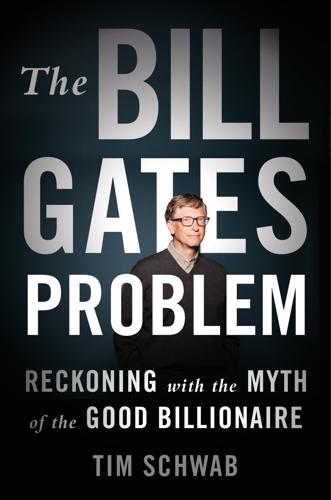
The Bill Gates Problem: Reckoning With the Myth of the Good Billionaire
by
Tim Schwab
Published 13 Nov 2023
This means putting an end to the tax avoidance strategies of multibillionaires and multibillionaire corporations, making Bill Gates (and Big Pharma and Big Tech and everyone else) pay their fair share. My own view is that with the richest people on earth, like Bill Gates, the currently proposed wealth tax—even Bernie Sanders’s proposal to take eight percent a year from the very richest people—doesn’t go far enough. A wealth tax would limit Bill Gates’s ability to become richer, but it would not change the fact that he is obscenely rich. Addressing our Bill Gates problem requires us to consider far more aggressive taxation measures, either a much higher wealth tax or a different mechanism. Some readers might balk at the idea of asking our current brain trust of elected officials in Washington, DC, to redistribute Bill Gates’s vast wealth, questioning whether these crooks, cronies, and reprobates are better stewards of his money than his philanthropy is.
…
target the accumulated fortunes: The Institute for Policy Studies has proposed a 2 percent wealth tax on the assets of large charitable foundations “that are closely controlled by donors.” That is, the Gates Foundation could be seen as part and parcel of Bill Gates’s personal wealth because he, effectively, controls how it is used, so there is an argument to be made that the foundation’s endowment should be subject to a wealth tax. Some economists have also said that a tightly controlled billionaire philanthropy like the Gates Foundation might be subject to a wealth tax. Collins and Flannery, “Gilded Giving 2022”; Emmanuel Saez and Gabriel Zucman, “Progressive Wealth Taxation,” BPEA Conference Drafts, September 5, 2019, https:// www.brookings.edu/wp-content/uploads/2019/09/Saez-Zucman_conference-draft.pdf.
…
chipping away at Gates’s assets: To explain the math: If Gates earns a 10 percent return on his investments of $100 billion this year, his wealth would increase by $10 billion, to a total of $110 billion. But if Congress levied a 3 percent wealth tax on his original $100 billion at the beginning of the year, he’d be working with only $97 billion. Under this scenario, his 10 percent investment return ($9.7 billion) would bring his net worth up to $106.7 billion. So, the 3 percent wealth tax would generate $3 billion in revenue for Treasury, but it would reduce Gates’s personal wealth by an even larger number, $3.3 billion—from $110 billion to $106.7 billion. Over the last twenty years, a consistently levied 3 percent wealth tax would have magnified these effects—generating $30 billion in tax revenue, but reducing Gates’s wealth by $60 billion.
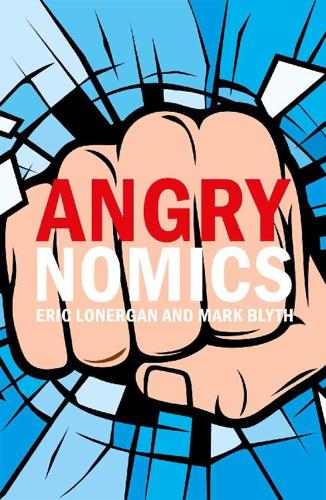
Angrynomics
by
Eric Lonergan
and
Mark Blyth
Published 15 Jun 2020
We think we can do this without relying on raising taxes, or pursuing long-shots like global cooperation over the hidden wealth of oligarchs or on new wealth taxes, as proposed by economists around Senator Elizabeth Warren, for example. Thirdly, we want to finance a boom in sustainable investment that really begins the effort to decarbonize our economies. We can then use all of these policies to mitigate micro-stressors and empower individuals. Let’s start with one of the most innovative of these policies: a National Wealth Fund to tackle inequality. Before we do so however, it’s worth outlining what a measure of good policy is. Too many of the solutions on the table – like a global wealth tax – are non-starters from a tactical political standpoint.
…
But for me that raises a question of politics. Who votes for higher taxes and then wins at the ballot box? And who thinks that the idea of “the government” planning the investment that we all supposedly agree upon (we don’t, for better or ill) is not a major political issue? Finally, income and wealth taxes, it should be remembered, were brought into the world not just to fight inflation or to raise revenue, but to fight plutocracy. I’m a bit worried about a theory of the economy that wants to give those with all the assets even more while promising to tax them even less so long as there is no inflation.
…
Indeed, the extremes of wealth inequality we are witnessing today are also producing moral outrage just as political corruption and gratuitous excess did back then. But we need to go beyond taxes that the super-rich and their paid-off politicians will fight against tooth and nail as the reaction to Senator Warren’s wealth tax proposals in the 2020 US election campaign show clearly. We need a more positive angle to attack inequality and its ills and the key to that is to support everyone else’s consumption and income through the broader ownership of assets. By providing ownership of assets to those who have very few or even none we can insure against the change and risk that is built into our economy.
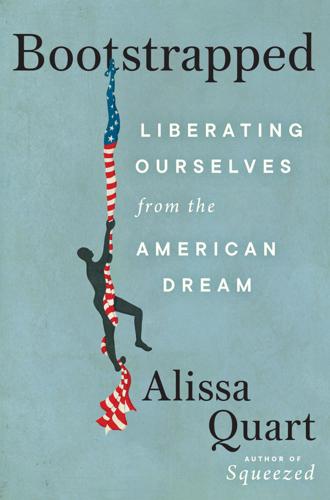
Bootstrapped: Liberating Ourselves From the American Dream
by
Alissa Quart
Published 14 Mar 2023
(The next time you meet a philanthropist with, say, a private skating rink and a home with pergolas, ask them about “carried interest.”) In this way, the Patriotic Millionaires closely follow the blueprint of the University of California at Berkeley economists Emmanuel Saez and Gabriel Zucman, whose study of wealth taxes influenced Senator Elizabeth Warren’s own proposal. That wealth tax would place a 2 percent annual levy on wealth between $50 million and $1 billion, and a 3 percent tax on wealth over $1 billion. Biden was also actively pressing for greater taxation of Americans who made over $400,000 a year. The idea behind that and the Ultra-Millionaire Tax Act, which would tax the 0.05 percent wealthiest their ostensible “fair share,” is that these increases would overall generate $3 trillion over the next decade (which in itself might seem a relatively modest amount): a corporate tax on companies’ profits above $100 million would bring an additional $1 trillion over the same ten-year period.
…
Prince isn’t wrong: one of Reagan’s campaign slogans was “government is not the solution to the problem; it is the problem,” and as Nancy Reagan put it, “Somebody will say, ‘We have a problem,’ and the immediate response is, ‘Well, can’t government do something about that,’ instead of, ‘Can’t I do something about that?’” Also in 1981, when Reagan took office, any married couple’s estate that exceeded $350,000 was taxed—now that threshold is over $22 million. Prince said, “I am for any kind of tax, including the wealth tax.” This attitude among the rich toward paying their taxes, combined with just how useful those taxes would be, led Prince to spend his free time during the last administration telling media outlets that Trump should raise taxes for rich Americans like him. As of this writing, this was not to be.
…
Changing the siloed mentality of America’s wealthy involves seeing their success as dependent on the survival of those who are less advantaged than they are. “You need good public health if you are going to accumulate under capitalism,” Sherman said. “You have to have workers who are alive.” * * * The class-traitor rich have a very systemic change in mind for their wealthy brethren: paying their fair share of taxes, including the wealth tax. Giving to causes rather than paying taxes shouldn’t be an option. Taxes, as opposed to gifts from the rich, allow elected officials to decide where this money should be spent, and not just on pet causes that can offer tax benefits for the rich, dubious loopholes like carried interest. (The next time you meet a philanthropist with, say, a private skating rink and a home with pergolas, ask them about “carried interest.”)
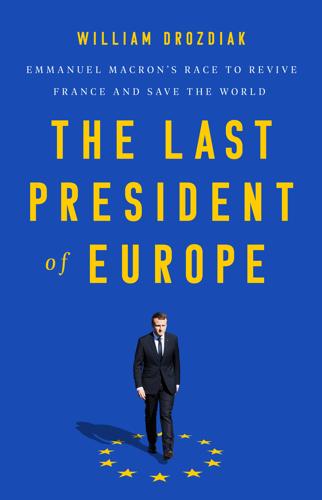
The Last President of Europe: Emmanuel Macron's Race to Revive France and Save the World
by
William Drozdiak
Published 27 Apr 2020
One of his first acts as president was to cut corporate tax rates and reduce levies on capital gains. He also abolished the “solidarity tax on large fortunes,” otherwise known as the wealth tax; introduced in 1981 by the Socialist government, this tax was levied on all those who held more than $1.5 million in assets. Critics said that the wealth tax caused the loss of billions of dollars in revenue because it motivated rich people to shelter their assets abroad. Macron’s decision to eliminate the wealth tax and replace it with a real estate tax was welcomed by foreign companies, which would soon reconsider their previous reluctance to commit to long-term investments in France.
…
“France is back!” Macron roared to loud applause. Soon Microsoft, IBM, Facebook, Apple, and other titans of technology and industry pledged to enlarge their corporate presence in France. Some of Macron’s advisers worried about the political impact of his tax cuts, especially the elimination of the wealth tax. As they feared, with his probusiness attitude and background as an investment banker with Rothschild, he was quickly labeled “the president of the rich.” Jean Pisani-Ferry, who served as the architect of Macron’s economic program during the campaign, proposed coupling the tax cuts for the wealthy with other measures to assist the middle and lower classes.
…
In television interviews, Macron found himself on the defensive, trying to explain the logic behind his tax cuts. “I don’t believe in this French jealousy which says, ‘There are rich people; let’s tax them and we will all feel better,’” Macron said. He pointed out that people with large fortunes never paid the wealth tax because they simply fled the country and took up residence in neighboring Belgium or Switzerland. He insisted that his goal was not to help the rich, but only to encourage those who created wealth. “If we want to share the pie, we have to make sure that there is a pie to share,” he said. Macron’s offhand comments continued to land him in hot water.
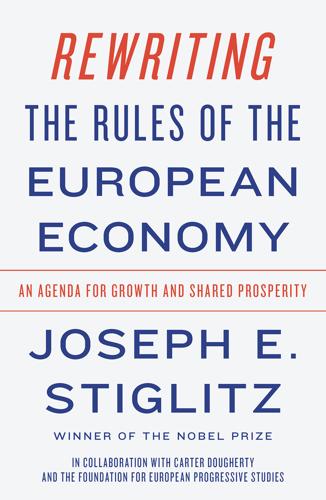
Rewriting the Rules of the European Economy: An Agenda for Growth and Shared Prosperity
by
Joseph E. Stiglitz
Published 28 Jan 2020
For instance, if capital gains are taxed at a lower rate than dividends, corporations can distribute their profits to their shareholders in the form of capital gains through share buybacks rather than in dividends. Taxation of net wealth and of inheritances has also lost ground. In Europe, only Norway, Switzerland, and Spain impose a net wealth tax—a recurring levy on a person’s total assets. France’s wealth tax, originally broadly based, captures only immovable assets as of 2019. Although 18 EU countries have an inheritance tax, its revenue potential is increasingly eroded by tax exemptions and rate reductions.4 The countries of the European Union must reverse these recent trends and recommit to progressivity.
…
An expansion of the EU budget would provide the steady revenue needed for Europe’s common undertakings and European public goods, including a common defense force, an expanded student-exchange program, an expanded research program, solidarity funds for the new entrants, foreign aid and programs to integrate refugees and migrants, or a solidarity fund for stabilization. Another option would be to introduce an EU-wide net wealth tax on a harmonized basis. A progressive net wealth tax with a rate per household of 1 percent on net wealth above €1 million and 1.5 percent on net wealth above €5 million could raise revenues of more than €150 billion. Such a tax could finance the total current EU budget.21 FIGHTING EXTERNALITIES AND INTERNALITIES THROUGH TAXATION One of the principles of taxation, as we’ve said, is to tax bad things because taxes discourage behavior that generates costs for others (negative externalities) or for the people themselves (negative internalities).
…
Brian Sloan, Günther Ebling, Martin Becker, Luis Peragon Lorenzo, and Antonella Caiumi, eds., Taxation Trends in the European Union (Luxembourg: Publications Office of the European Union, 2018), https://ec.europa.eu/taxation_customs/sites/taxation/files/taxation_trends_report_2018.pdf. 4. Organisation for Economic Co-operation and Development, The Role and Design of Net Wealth Taxes in the OECD (OECD Tax Policy Study, no. 26, Paris: OECD Publishing, 2018), https://read.oecd-ilibrary.org/taxation/the-role-and-design-of-net-wealth-taxes-in-the-oecd_9789264290303-en#page25. 5. For a detailed discussion of the reform needs and options for European tax systems from a gender perspective, see Åsa Gunnarsson, Ulrike Spangenberg, and Margit Schratzenstaller, Gender Equality and Taxation in the European Union, Study for the FEMM Committee (Brussels: Policy Department for Citizens’ Rights and Constitutional Affairs, Apr. 2017), http://www.europarl.europa.eu/RegData/etudes/STUD/2017/583138/IPOL_STU(2017)583138_EN.pdf. 6.

Wall Street: How It Works And for Whom
by
Doug Henwood
Published 30 Aug 1998
Even so, the amounts of revenue raised would be more than notional in an era where public services are starved for funds. There are few serious arguments against wealth taxes except the preservation of privilege. Wealth taxes would tend to hit older families harder WHAT IS (NOT) TO BE DONE7 than younger ones, even though some older families may have lower incomes than their more youthful fellow citizens, but careful design of the tax could mitigate these effects if that were desired.' But of course, a wealth tax by definition would hit only those with a lot of commas in their bank balance. Rich folks and their hired pens would no doubt claim very damaging effects on saving and investment, but the U.S., which taxes wealth and income very lightly, has one of the lowest rates of saving and investment in the First World — lower than Sweden in the days of its tax.
…
See shareholder(s) stocks vs. flows, 58 Strategic Investing, 104 Stronach, Frank, 113 Stuart, John Mill, 199 stub stock, 270 Sumitomo, 299 Summers, Lawrence, 177, 186 in the real world, 179 supply-side economics, 47, 103, 274 Survey of Consumer Finances, 64, 69, 79, 114, 115 Survey of Current Business, 136 Swann, Bob, 314 swaps, 34-37 swaptions, 36 Sweden, 235 taxes on brokerage services, 318 wage-earner funds, 306-307 wealth tax, 316 Sweezy, Paul, 258, 261 Switzerland, wealth tax, 316 Syntex, 129 System of National Accounts, 114 taxes break for municipal bond interest, 27 consumption, 70 inheritance, 3l6 investment tax credits, 184 on securities transactions, 317-319 wealth, 315-316 technical vs. fundamental trading. 105 technostructure CGalbraith.), 259 Templeton, Sir John, 311 Thatcher, Margaret. 108. 311 Third Worid debt crisis, 110 political uses of, 294-295 development finance and capital flows, 110 stock markets, 15 inexplicability of returns, 125 TTiomas, Michael, 286 thrift campaigns, Keynes's denunciation of, 196; see also austerity thrifts (S&Ls), 81 crisis, 1980s, 86, 101 and early-1990s credit crunch, 158 Wall Street fleecing of, 180-181, 186 tobacco, 311 Tobias, Andrew, 81 Tobin, James, 143, 318-319; see also q ratio 371 WALL STREET Tompkins, Doug, 245 trade, merchandise, and currency trading, 42 traders vs. investors, 104-105 trading prowess, 32 trading strategies, 104-106 trading week, 127-135 transactions-cost economics, 248-251 financial applications, 249 transactions costs and efficient market theory, l64 estimate of, 249 international comparisons, 317 transactions taxes, 317-319 Treasury bonds.
…
Peter Drucker's fears of "pension fund socialism" of the 1970s have realized themselves in the portfolio manager capitalism of the 1990s — which is no surprise, since it's quite natural that capital should appropriate the pooled savings of workers for "management." The whole idea of creating huge pools of financial capital should be the focus of attack, not the uses to which these pools are put. Instead of funding infrastructure development through creative pension-fund-backed financial instruments, finance it with a wealth tax instead. The lesson of the Swedish wage-earner funds should be chastening to pension-fund reformers (Pontusson 1984; 1987; 1992). The funds were originally conceived by social democratic economists as a scheme for socializing ownership of corporations. In the original mid-1970s proposal, firms would have been required to issue new shares, in amounts equal to 20% of their annual profits, to funds representing wage-earners as a collective.
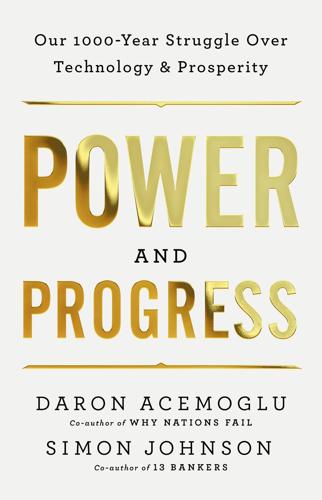
Power and Progress: Our Thousand-Year Struggle Over Technology and Prosperity
by
Daron Acemoglu
and
Simon Johnson
Published 15 May 2023
Other Useful Policies Policies that do not directly redirect technology are less well suited to the task at hand, but may still be worth considering, especially when they tackle the large inequalities and the excessive political power of companies and their bosses. Wealth Taxes. Wealth taxes, imposed on those above a certain wealth threshold, have started to gain traction over the last decade. For example, in 1989 President Mitterrand introduced a tax in France on wealth levels above €1.3 million, which was reduced in scope by President Macron in 2017. In the US, Bernie Sanders and Elizabeth Warren, who both ran for president in 2020, have proposed wealth taxes. Sanders’s 2020 plan was to impose a 2 percent wealth tax on households with wealth in excess of $50 million, rising gradually to 8 percent for those whose wealth exceeds $10 billion.
…
Sanders’s 2020 plan was to impose a 2 percent wealth tax on households with wealth in excess of $50 million, rising gradually to 8 percent for those whose wealth exceeds $10 billion. Warren’s most recent proposal is to impose a 2 percent wealth tax on households with wealth above $50 million and a 4 percent tax on those with wealth in excess of $1 billion. Given the vast fortunes that have been made over the last several decades, coupled with the need for additional tax revenues for bolstering the social safety net and other investments (as we detail below), well-administered wealth taxes can raise valuable revenue. Although wealth taxes would not directly contribute to redirecting technological change, they would be helpful to reduce the wealth gaps that exist in many industrialized nations today.
…
Although wealth taxes would not directly contribute to redirecting technological change, they would be helpful to reduce the wealth gaps that exist in many industrialized nations today. For example, a 3 percent wealth tax would, over time, significantly eat into the fortunes of tech tycoons such as Jeff Bezos, Bill Gates, and Mark Zuckerberg. An important question is whether smaller wealth gaps would also reduce their persuasion power. This would depend on other broader social changes, not just their exact wealth. Wealth taxes are also difficult to estimate, and taxing in this fashion will multiply trickeries aimed at hiding wealth in trusts and other complex vehicles, sometimes offshore. For this purpose, wealth taxes should be combined with corporate income taxes, imposed directly on company profits, which are easier to assess and collect.

The Great Leveler: Violence and the History of Inequality From the Stone Age to the Twenty-First Century
by
Walter Scheidel
Published 17 Jan 2017
The data document a striking degree of change over time. Thanks to the accumulation and concentration of capital, the Gini coefficient of inequality in wealth taxes rose from 0.66 in 1498 to 0.89 in 1604 (Fig. 11.4).31 Economic stratification in 1618 was intense: the richest 10 percent of households paid 91.9 percent of wealth taxes, for a Gini coefficient of 0.933. Even this privileged tier was heavily stratified: the top 1 percent, comprising patricians and the richest merchants, accounted for almost half of all wealth tax revenues. Two-thirds of registered weavers and construction workers did not owe any tax at all, nor did fully 89 percent of all day laborers.
…
A breakdown of tax revenue by wealth deciles reveals that this sharp drop had been caused almost entirely by losses among the richest 10 percent. Whereas in 1618 the top decile had contributed 91.9 percent of the wealth tax, in 1646 its share was 84.55 percent. In absolute terms, payments in this group had declined from 52,732 to 11,650 gulden, which represents more than 94 percent of the total drop in wealth tax revenue. “Old money,” represented by patrician families, had been hit the hardest: their mean tax contribution declined by almost four-fifths.39 And it was not over yet: 1646 witnessed a second siege, by French and Swedish forces, that failed but that nevertheless doubled the annual death rate.
…
Prior to about 1800, income inequality across entire societies can be estimated only with the help of social tables, rough approximations of the incomes obtained by different parts of the population that were drawn up by contemporary observers or inferred, however tenuously, by later scholars. More rewarding, a growing number of data sets that in parts of Europe reach back to the High Middle Ages have shed light on conditions in individual cities or regions. Surviving archival records of wealth taxes in French and Italian cities, taxes on housing rental values in the Netherlands, and income taxes in Portugal allow us to reconstruct the underlying distribution of assets and sometimes even incomes. So do early modern records of the dispersion of agricultural land in France and of the value of probate estates in England.
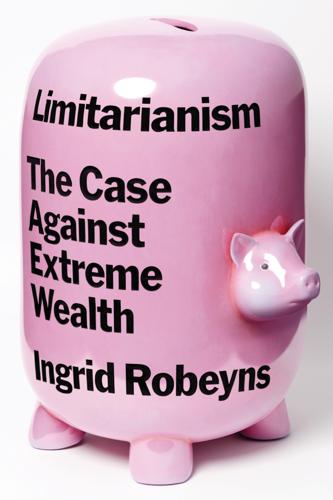
Limitarianism: The Case Against Extreme Wealth
by
Ingrid Robeyns
Published 16 Jan 2024
For the debate in Germany in 2019, see, for example, “CDU wirft SPD ‘billige Neiddebatte’ vor,” Zeit Online, August 23, 2019, zeit.de/wirtschaft/2019-08/vermoegenssteuer-spd-cdu-paul-ziemiak-finanzen, or Marcel Fratzscher, “Bloß keine Neiddebatte!,” Spiegel Wirtschaft, August 26, 2019, spiegel.de/wirtschaft/soziales/vermoegensteuer-wir-brauchen-keine-neiddebatte-a-1283634.html. For the critique on Clegg, see Nicholas Watt and Shiv Malik, “Nick Clegg Wealth Tax ‘the Politics of Envy,’ Says Senior Tory,” Guardian, August 29, 2012, theguardian.com/politics/2012/aug/29/nick-clegg-wealth-tax-envy. For the use of the term “envy tax” by Dutch right-wing politicians, see, for example, “Wiegel: vermogensbelasting is jaloeziebelasting,” RTL Nieuws, September 13, 2015, rtlnieuws.nl/geld-en-werk/artikel/324451/wiegel-vermogensbelasting-jaloeziebelasting. 7.
…
(Cambridge: Polity Press, 2018). The account of Collins’s early life choices and the estimate of what his inheritance would have been worth in 2016 can be found in Born on Third Base, Chapter 1. 9. Emma Bubola, “She’s Inheriting Millions: She Wants Her Wealth Taxed Away,” New York Times, October 21, 2022, nytimes.com/2022/10/21/world/europe/marlene-engelhorn-wealth-tax.html. See also Engelhorn, Geld. 10. See resourcegeneration.org/. The sister organization in the UK is called Resource Justice—see resourcejustice.co.uk/; in Canada, it is called Resource Movement—see resourcemovement.org/. 11. Putin is not included on the Forbes list, since that list explicitly excludes royals and heads of state.
…
This is one of the most common criticisms—faced not just by advocates of limitarianism but anyone who wants to make taxation more progressive. When Bernie Sanders and Elizabeth Warren proposed taxes on wealth during the 2020 Democratic Party primaries for the US presidential elections, they were accused of jealousy. When German politicians discussed a proposal to introduce a wealth tax in 2019, their critics framed it as eine Neiddebatte (an envy discourse). When the British deputy prime minister Nick Clegg suggested in 2012 that there should be a one-time tax on the wealth of super-rich Britons to combat the economic recession and avoid social unrest, he was criticized for engaging in a politics of envy.
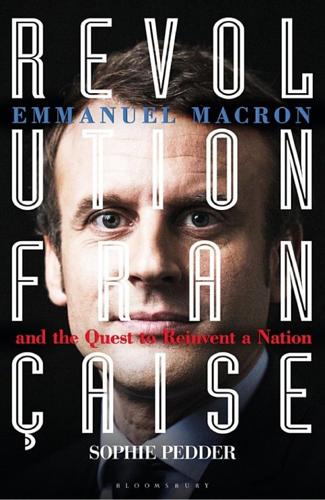
Revolution Française: Emmanuel Macron and the Quest to Reinvent a Nation
by
Sophie Pedder
Published 20 Jun 2018
He had argued clearly during the campaign that those who took risks, invested in the productive economy rather than property, and earned profits, should be encouraged, not punished. ‘My predecessor massively increased the wealth tax,’ the president said, a few months after his election. ‘Did that bring in a lot of money? No. Why? Because people who succeeded left.’ All the same, by 2017, the politics of taxation in France remained highly charged. The only previous time a government had tried to abolish the wealth tax, in 1986, it proved so unpopular that the politician who dared to do it, Jacques Chirac, was roundly beaten at the presidential election two years later, and the tax was promptly brought back in.
…
Over a 40-year career in national politics, Chirac defied political classification. A descendant of Gaullism, he was the dynamic two-time prime minister (1974–6 and 1986–8) who, in his liberal second spell, demolished the Socialist nationalization programme of the early 1980s, carried out extensive privatization and – briefly – abolished the wealth tax, a charge on assets, including property, that was levied on top of income tax. Yet, as president, Chirac metamorphosed into an ardent defender of the status quo. Although he took courageous stands both at home and abroad, becoming the first French president to recognize the official responsibility of the French state for the deportation of Jews from Vichy France under Nazi occupation, and defying America over the war in Iraq, his domestic agenda shrank as the years went by.
…
Just as Teddy Roosevelt’s turn-of-the-century effort to push a new social contract in America became known as Progressivism, Macron defines his politics as progressive35: an attempt to inject Sen and Rawls into French thinking about the relationship between the state and individuals, in a way that unleashes people’s capacities rather than hampering them. If the Grande Marche of 2016 revealed a widespread French feeling that lives were ‘impeded’, Macron’s vision of the state is about lifting those barriers. He may be tarred by opponents as the ‘president of the rich’, and he makes no apologies for cutting corporate tax and transforming the wealth tax. Yet it is interesting to note that, of the five leading candidates during the 2017 presidential campaign, Macron was the one who used the word ‘equality’ the most.36 One of the first measures he put in place upon taking office was to halve the size of primary-school classes for five- and six-year-olds in poor neighbourhoods.
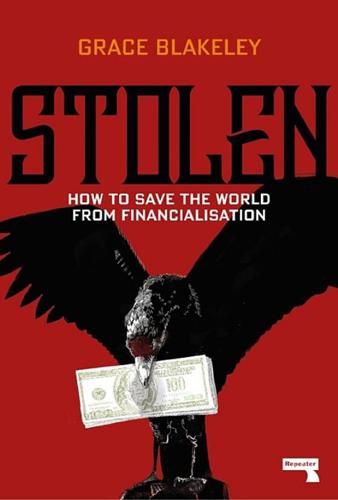
Stolen: How to Save the World From Financialisation
by
Grace Blakeley
Published 9 Sep 2019
Even talking of the wealthy submitting to anything makes no sense unless we are speaking of a state that is run in the interests of workers rather than owners — why would a state captured by big business and the City of London implement policies against the interests of its core constituents? Politicians do not have the incentive — let alone the ability — to implement a global wealth tax. In fact, establishment politicians have no incentive to deal with the current crisis at all, and this is what is generating the peculiar economic and political conditions that prevail today. Piketty’s wealth tax is a prime example of “solutionism”: a proposal intended to solve all of the world’s problems through tweaks to the current institutional architecture. He pays little attention to power, to politics, or any other drivers of change.
…
Perhaps the best example of this kind of market discipline is the capital flight that befell French President Mitterrand’s government in 1983.32 Mitterrand had been elected in 1981 on a socialist platform that was essentially an extension of the post-war consensus. His 110 propositions for France included commitments to revive growth through a large Keynesian programme of investment, to nationalise key industries, to increase the country’s wealth taxes and to democratise the institutions of the European Union. This, Mitterrand hoped, would lay the groundwork for the “French road to socialism”. He could not have picked a more inopportune moment to advance such an agenda. International finance had been emboldened by the death of Bretton Woods and the birth of neoliberalism in the US and the UK — investors were not about to allow one of the world’s largest economies to fall to the scourge of a renewed socialism.
…
Piketty doesn’t have much time for Marx. In fact, his work is highly empirical, with little reference to theory — mainstream or otherwise. Whilst this may not impoverish his analysis, it certainly does his conclusions. He argues that the rational response to these trends is to increase taxes on capital. Piketty’s wealth tax would provide the revenues necessary for the state to provide for either full employment or some form of expanded welfare state. But Marx did not just put forward an economic framework to understand capitalism; he provided us with a theory of political economy in which economic outcomes are shaped by the balance of power between different social forces, and the struggles that take place between them.
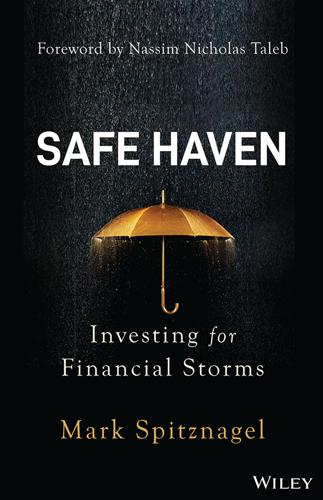
Safe Haven: Investing for Financial Storms
by
Mark Spitznagel
Published 9 Aug 2021
Each output becomes the new multiplicative input—it is a recursive map. Should he suffer that 0.27 total return, or 73% loss, he would need to make a profit of 270% from there just to get himself back to even. It is a most insidious wealth tax. (So his pirate and weather forecasts had better be right!) It gets worse and worse, the more grave the losses, as shown in this chart: An Insidious Wealth Tax: The Greater the Loss, the Greater the Profit Needed to Get Back to Even And this is just another way of thinking about the meaning of that logarithmic map. (Flip this curve over horizontally and it becomes something like the logarithmic curve.)
…
It is also easy to picture in their cascading cliffs what Bernoulli called the concavity of curve: deceptively placid waters that grow incrementally steeper and more turbulent as you plunge over their precipice into the abyss—from which you might never return. The danger is barely noticeable, until it is too late. The further you go down it, the more you plunge, the harder it will be for you to ever claw your way out. (You will ultimately drown in the insidious wealth taxes of negative compounding.) Hopefully, this frightful image becomes etched in your mind to help you easily access the meaning of the logarithmic function to investing. Over the Falls We Go: The Logarithmic Curve and the Logarithmic Rhine Falls Bernoulli described this logarithmic concavity of curve as “nature's admonition to avoid the dice altogether.”
…
No, the edge is still there, it's just made to be exceedingly rare. You can think of this as a deceptive sort of vigorish or tax being levied on your median (or geometric average) wealth by this real‐life demon. It is a tax extracted by the multiplicative dynamics of compounding, what I have dubbed the volatility tax—and it is a most insidious wealth tax. It is the geometric cost to your wealth when it plunges down the logarithmic Bernoulli Falls. The further you go, the harder it is to claw your way out. But to those who live only in arithmetic space, it is an entirely hidden tax. In probability theory, a random process is called ergodic when its arithmetic average across the sample space of all possible outcomes over a period of time (known as the ensemble average) is the same as its geometric average outcome over that same period (known as the time average).

Dirty Secrets How Tax Havens Destroy the Economy
by
Richard Murphy
Published 14 Sep 2017
These include the provision of as much data as possible to market participants, so that decision-makers – whether they be businesses, investors, employees, regulators, governments or others – can make the best possible decisions on how resources are used. They also include a requirement that there be a level playing field on which people have equal access to capital, so that those with good ideas can bring them to market. By deliberately creating opacity and concentrating the ownership of wealth, tax havens undermine these two conditions, thus inhibiting fair competition and growth. It is not by chance, then, that the world’s economy is stagnating: the growth of tax havens in the last three decades has made this outcome almost inevitable. If markets are to contribute to our well-being as they should, then they must be saved from the curse of tax havens.
…
Society in the Post–Tax Haven Era Finally, what of the social impacts of the post–tax haven era? Since they were first used in the middle ages, trusts have always been a deliberate weapon for preserving the interests of a few while subverting the objectives of society at large; their aim has always been to concentrate the ownership of wealth. Tax havens simply gave the world’s trust administrators a new and unforeseen opportunity to extend the scope of their activities, but their purpose never changed. The consequence is all too apparent: as successive data reporting suggests that the wealthiest have become wealthier while those on average or lower rates of pay have struggled to see any increase in their well-being for a very long time, societal stresses have increased.
…
According to the same logic, tax rates on capital gains may also become aligned with those on income: economically, there is no justification at all for any disparity between the two, but such differentials have been commonplace because of a fear that capital might flee to tax havens if they did not exist. Another potential development might be the emergence of real wealth taxes. These might be charged as a proportionate sum on declared wealth (with substantial penalties, including forfeiture of assets at their under-declared value to encourage proper compliance), or they might be in the form of new taxes on gifts, whether upon death or during lifetime. In either case, the chance of capital fleeing to avoid such taxes will be dramatically reduced in the post–tax haven world.
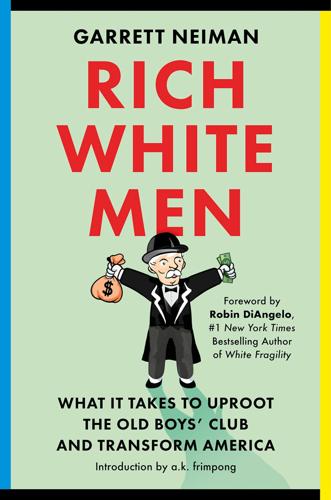
Rich White Men: What It Takes to Uproot the Old Boys' Club and Transform America
by
Garrett Neiman
Published 19 Jun 2023
For example, if Saez’s program had been implemented in 1990, most of today’s billionaires would still be billionaires; they would just have fewer billions. To produce such a system, Saez favors a wealth tax, which is a direct path to reducing wealth inequality. In his book, Saez proposes a wealth tax of 2 percent on wealth above $50 million and 3.5 percent on wealth above $1 billion. While Warren Buffett paid just $1.8 million in taxes during a recent year, he would have paid $1.8 billion—billion with a b—if the wealth tax had been implemented.27 Such a policy would multiply Buffett’s tax burden by one thousand times, so it is no wonder that many billionaires bristle at such proposals.
…
Roosevelt—the first president to heavily tax the wealthy—advocated for near-confiscatory tax rates on the wealthiest Americans, not because those policies maximized tax revenue but because they were a safeguard for democracy.28 All that said, a wealth tax does have some drawbacks. Wealth can be challenging to measure, and much of America’s wealth is held in the stock market, which means that wealthy people would often need to sell securities to pay their wealth taxes. In some cases, it could create undesirable outcomes, like requiring entrepreneurs to sell so many shares that they lose control of their companies. For these reasons, it may be better to simply have a much more progressive tax system that incorporates capital gains as ordinary income rather than introduce the complexities associated with a new type of tax.
…
While Warren Buffett paid just $1.8 million in taxes during a recent year, he would have paid $1.8 billion—billion with a b—if the wealth tax had been implemented.27 Such a policy would multiply Buffett’s tax burden by one thousand times, so it is no wonder that many billionaires bristle at such proposals. Still, it’s the least the extremely wealthy can do to renew the infrastructure that made it possible for them to build their fortunes. Many ultrawealthy white men have told me that their peers will leave the United States if America adopts a wealth tax. Here is how I see it: if some billionaires leave because they don’t want to pay more taxes, let them. I don’t say this cavalierly. Tax policy reflects America’s culture and values, and instead of letting them hold this nation hostage, those who care more about having a few extra billions than our country’s well-being can go.
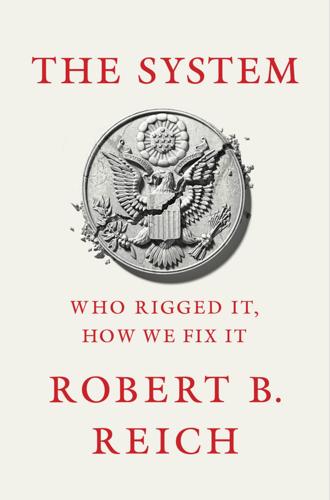
The System: Who Rigged It, How We Fix It
by
Robert B. Reich
Published 24 Mar 2020
Dimon has enormous public and political influence. When he takes public stands on issues—when he announces his support for Trump’s tax cut and lobbies Congress intensely for it, or comes out against Representative Alexandria Ocasio-Cortez’s and Senator Edward Markey’s Green New Deal, or publicly opposes Senator Elizabeth Warren’s wealth tax, or proffers his alleged economic expertise on CNBC and other media outlets, or urges members of Congress to loosen bank regulations, or warns Democrats against nominating someone who is not viewed as a political moderate—he clothes himself in the garb of the public interest. He poses as a public leader whose primary interest is the good of the nation rather than the good of JPMorgan.
…
Bloomberg saw nothing wrong with the oligarchy’s takeover of the American system. In the 2018 midterm elections, he spent more than $110 million boosting Democratic candidates. His wealth would allow him to self-finance his own presidential campaign. “Democrats shouldn’t be embarrassed about our system,” he argued, warning that a wealth tax was “probably unconstitutional” and could wreck the economy. Then there was Howard Schultz, founder and CEO of Starbucks. Shortly after Schultz announced his possible interest in the presidency, CNN gave him an hour-long town hall in which he fielded questions from an audience. Not everyone who expresses a possible interest in being president merits a CNN town hall, but Schultz got one because he is worth over $3.6 billion.
…
mandatory arbitration of disputes?); (4) how to repay what’s owed (debtor’s prison? bankruptcy? corporate bailouts?); (5) what’s private and what’s public (clean air and clean water? health care? good schools?); and (6) how to pay for what’s deemed to be public (corporate taxes? personal income taxes? a wealth tax?). These rules do not exist in nature. They are human creations. Governments don’t intrude on free markets. Governments organize and maintain markets. The system is created by people. The question is, Which people? The central issue is not more or less government. It’s who is government for.
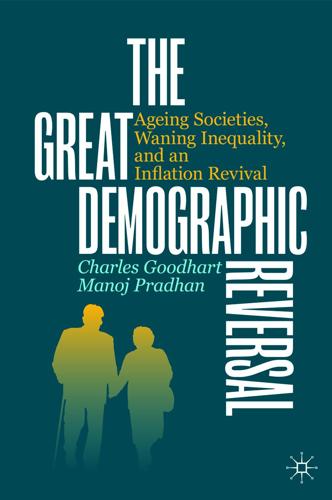
The Great Demographic Reversal: Ageing Societies, Waning Inequality, and an Inflation Revival
by
Charles Goodhart
and
Manoj Pradhan
Published 8 Aug 2020
Furthermore, we believe that social and political pressures will continue to force medical and pension costs up in accordance with current projections, and that new and old superpower rivalry will keep defence spending up. So, what seems almost inevitable is that the maintenance of public sector solvency will require higher taxation. But on what? The geographical mobility of (skilled) people, financial wealth and corporate headquarters can make steeply progressive income taxes, general wealth taxes and much higher standard-form corporate taxes largely self-harming. On the other hand raising income taxes at the lower end of the spectrum could worsen inequality and cause workers to demand higher pre-tax wage rates. The Upper Bound Threshold to Taxation on the Working Population Heer, Polito and Wickens (2018) seek to estimate the upper bound threshold of taxation on the working population.
…
Real estate also remains by far the economy’s largest asset—so large that it absorbs about 80% of bank credit in many countries, with such credit thereby raising housing and other real estate prices, adding to the economy’s debt overhang. Unlike other forms of wealth, land is fixed, not mobile. The disincentives arising from taxation in reduction of effort, transfer abroad, etc. that apply to most other forms of wealth tax do not apply to land. With a few exceptions (e.g. polders in Holland), land, unlike other forms of wealth, was not created by human labour. There is also an ethical case for land taxation that does not apply to most other forms of wealth (at least, not to the same extent). A large proportion of any site’s land value is created by beneficial externalities.
…
Unless there is to be a general financial crisis, the path of least resistance to the land tax, advocated by most classical economists, would have to be gradual, but steadily rising. A regular, low tax rate applied to such land valuations would require such valuations to be kept up-to-date, and would therefore be bureaucratically onerous, but technologically easy, and far less onerous than trying to introduce a broader wealth tax. And because land is immobile, it would have less distortionary effects on the economy, while redistributing wealth from the current owners of land to a property-owning society. 13.2.3 A Carbon Tax, Aka, Let’s Put a Smile on Greta’s Face For many, perhaps most, people their main existential worry is not worsening dependency ratios or demographic change, but rather climate change, and all the problems that that could bring with it.
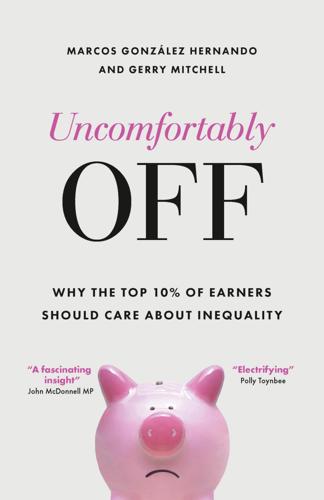
Uncomfortably Off: Why the Top 10% of Earners Should Care About Inequality
by
Marcos González Hernando
and
Gerry Mitchell
Published 23 May 2023
Since the 1980s, the amount of wealth held by private households has risen from three to nearly seven times the national GDP, but there has been no increase in the related tax taken as a proportion of GDP.83 Significant tax breaks for savings, private pensions and allowances are heavily concentrated among the wealthy. Some have argued for an annual wealth tax or reform of the inheritance tax, which is riddled with loopholes. Inheritance taxes are always a touchy subject: though their use should be consistent with a meritocratic discourse, they are often fervently opposed as being unfair towards those who have worked hard all their lives. Still, even high earners and Conservative voters have acknowledged that the time to tax wealth properly has arrived.84 As Martin Sandbu puts it: ‘The importance of wealth in our economies and the inequality of that wealth have been going up for decades but the revenue raised from that wealth has not followed suit.
…
New York: Columbia University Press. Rowlingson, K. and McKay, S. (2012) Wealth and the wealthy: exploring and tackling inequalities between rich and poor. Bristol: Policy Press. Salverda, T. and Grassiani, E. (2014) Introduction: Anxiety at the top. Comparative Sociology, 13:1, 1–11. Sandbu, M. (2022) Why we need a wealth tax. Financial Times. 6 September. www.ft.com/video/6f73c51e-a1d8-48db-a8da892dbd53c08d Sandel, M. (2013) Why we shouldn’t trust markets with our civic life. TED talk. 7 October. www.ted.com/talks/michael_ sandel_why_we_shouldn_t_trust_markets_with_our_civic_life/ transcript?language=en Sandel, M. (2020) The tyranny of merit: What’s become of the common good?
…
A abortion, top 10% attitudes towards 6, 16 academics/academia 5, 9–10, 54 knowledge production and enabling of the wealthy 132–3 acceleration, of the pace of life 128–9 accountancy firms 67, 68, 108, 109, 126 accumulation 135–6 Advani, A. 179, 180 affluence 22, 144, 162, 180 see also top 1%; top 10%; wealth age profile of the top 10% 8 agency 49 Alamillo-Martinez, Laura 73 Amazon 180 Ambler, L. 132–3 anti-elitism 12, 46, 96 anxiety 72, 130, 150 and status 135, 165 see also mental health ‘anywheres’ 96 ascriptive identities 153 attitudes to cultural issues 42, 84 to economic issues 6, 8, 11, 16, 18–19, 42, 42, 77, 92–3, 161–4 to political issues 8, 16–17, 42, 76–99 to social issues 6, 8, 16, 18–19, 42, 65–71, 77, 92, 92–3, 161–3, 164–6 austerity policies 10, 11, 13, 16, 76, 78–9, 105, 115–16, 169–70 automation 79, 158, 160 B Bangladeshi ethnicity, in the top 10% 30 Bank of England 78, 105, 164, 175 ‘bank of mum and dad’ 29, 111 Barber, Rob 1, 2, 4, 181 Barclay family 121 BBC 11 Beck, U. 64 Bell, Torsten 2, 6 Berman, Y. 34 Berry, C. 82 Bezos, Jeff 144 Biden, Joe 142 Big Four accountancy firms 67, 68 see also accountancy firms Bill of Rights 121 Bitcoin 143 Black African/British/Caribbean ethnicity, in the top 10% 30 Black Lives Matter 113 Black Report 1977 115 Blair, Tony 9, 84, 185 Blakeley, Grace 139, 176 Bolsonaro, Jair 96, 98 ‘boundary work’ of elites 45 Bourdieu, Pierre 40 Brahmins 38, 41–2, 43, 44, 45, 46, 47, 50, 51, 59, 61, 68, 73, 74–5, 84, 96, 167, 185 ‘brain drain’ 124 see also mobility Brexit 11, 16, 76, 80, 86–7, 97, 101–2, 125 Brown, Gordon 175 Bullough, Oliver 113–14 bunkers 130, 131, 144, 187 Burgon, Richard 1, 3, 6 business support schemes, COVID-19 pandemic 15, 104, 126–7, 140, 151 C Cambridge University 28–9, 119 Cameron, David 84 capital, income from 33–4 capital flight 124 capital tax, global 180 car ownership 153 carbon emissions 54, 114–15, 135, 143, 145, 171, 172, 178 see also climate change 236 Index care see social care Centre for Economic Performance 163 Chancel, L. 176–7 charitable donations 70–1 charitable sector 132 child poverty 170 see also poverty children of the top 10% 27, 35–6, 100–1, 109, 111–12, 183–4, 186 ‘bank of mum and dad’ 29, 111 childcare costs 135–6 downward social mobility 31–2, 162 social reproduction 135–7 US 57 Chinese ethnicity, in the top 10% 30 class 39–40 cultural signifiers of 39, 40–1 ‘death of ’ 39 and education 40–1, 46, 51, 58–9 inherited nature of 148 middle class 33, 39, 40, 133, 136, 148 and social mobility 57–8 terminology of 38–9 upper class 38–9, 133 upper-middle class 4, 16, 27, 31–2, 38–54, 39 (see also top 10%) working class 24, 39, 57, 101–2, 148 climate change 54, 100, 101, 114–15, 125, 135, 141, 171–2 carbon emissions 54, 114–15, 135, 143, 145, 171, 172, 178 need for collective action on 122–3 net zero 174, 176–7 coalition government (Conservative/ Liberal Democrat) 78 collective denial 139–42 common sense 11, 19, 74, 89, 90, 108, 126, 130, 147 community gender and community involvement 70 top 10%’s lack of awareness of/ involvement in 45–6, 49–50, 127–31, 131, 150–1, 154–7, 164–6 ‘compensatory consumption’ 129, 134 Conservative Party/Conservatives 3, 16, 53, 76–7, 84, 85, 88, 97, 99, 120, 179 leadership election, 2022 39 taxation policy 3, 53 traditional supporters 44 consumption 152–4, 169, 171, 178 ‘compensatory consumption’ 129, 134 environmental impact of 135 luxury consumption, and climate change 114–15 Corbyn, Jeremy 11, 16, 80, 84, 85, 87, 96, 97 corporate governance 174 corporate responsibility 70–1 corporate sector 46, 51, 59, 64, 65–6, 67–8, 71, 88–9, 108, 128, 153 corporation tax 105–6, 113, 180 cost of living crisis 14, 52, 76, 101, 104, 106, 127, 177–8 council tax 110, 180 COVID-19 pandemic 13, 15, 72–3, 103–4, 116, 126, 134, 142, 144, 151 furlough and business support schemes 15, 104, 126–7, 128, 140, 151 political impact of 87–8 Coyle, Diane 145 crises cost of living crisis 14, 52, 76, 101, 104, 106, 127, 177–8 of democracy 119–21 global financial crisis, 2008 31, 77–9, 126, 140 cryptocurrencies 143–4 cultural attitudes of the top 10% 42, 84 cultural capital 40, 41, 46, 51 cuts, in public services 78–9, 105, 117, 170 D deindustrialisation 28 democracy crisis of 119–21 erosion of 76, 81–2 demographic profile of the top 10% 8 depression 130, 150 see also mental health ‘deserving’, the 23, 57, 74 see also ‘undeserving’, the disability and social mobility 58 welfare benefits 78, 79, 175 Disability Rights UK 175 diversity and inclusion targets 57 domestic work see unpaid work Dorling, Danny 35, 146–7, 156, 183 downward orientation 35, 46, 47 downward social mobility 14, 36, 73, 136, 152, 162, 182 237 Uncomfortably Off children of the top 10% 31–2, 162 income and status insecurity 51–2 Dubai 133 Durose, Oly 39–40 E Earth4All 177 economy economic attitudes of the top 10% 6, 8, 11, 16, 18–19, 42, 42, 77, 92–3, 161–4 economic common sense 89, 90 GDP, as indicator of success 176 Economy 2030 Enquiry 109 EDF 106 Edmiston, Daniel 49 education and class 40–1, 46, 51, 58–9 inequalities 17, 100–1, 117–19, 136 Ofsted ratings and league tables 137 and political attitudes 41, 42 and social capital 60 and social mobility 58–60, 147–8 state education 36, 60, 119, 136, 137, 148, 170 see also higher education; private education Ehrenreich, Barbara 152 Elections Bill 2021 120 Electoral Calculus 173 Electoral Commission 120 electoral system reform 172–3 Eliasoph, Nina 81 elites 39, 44–5, 77 anti-elitism 12, 96 employment 151 blue-collar 28 good jobs 55–61 hard work 48, 50, 61–73, 162 impact on society of 65–71 inequalities 17, 100, 107–9 low-wage work 62, 127 precarity 61, 107–9 presenteeism 64 public sector 109 and purpose 66–7, 71, 75, 162 and self-respect 55–6 and status 55–7, 68, 74 structural labour market change 27–8, 158 top 10% 6, 16, 24, 25, 26–8, 55–75 total British employed 2 white-collar 28 work-life balance 18, 171 workplace reform 71–2 see also unpaid work energy costs 101, 104, 105–7, 175 energy industry privatisation of 177–8 windfall taxes 177 environmental issues 54, 161 carbon emissions 54, 114–15, 135, 143, 145, 171, 172, 178 net zero 174, 176–7 equality of opportunity 57, 153 equality of outcome 57 ESS (European Social Survey) 89, 92 ethnicity see race and ethnic origin Eton College 26, 119 EU-SILC (European Union Statistics on Living Conditions) 24, 28, 29–30, 32, 33 Eurofound 27–8, 36–7 European Convention on Human Rights 121 European Social Survey (ESS) 89, 92 European Union Statistics on Living Conditions (EU-SILC) 24, 28, 29–30, 32, 33 experts, anti-elitist attitudes towards 12 Extinction Rebellion 84 ‘extraction capitalism’ 112 F Farage, Nigel 96 ‘fear of falling’ 152, 182 see also downward social mobility feminism 56 financial sector 51–2, 88–9 food food banks 93, 175 ‘right to’ 178 foreign policy, top 10% attitudes towards 6, 42 formal work see employment ‘fortification mentality’ 134–5 Frank, Robert H. 48 Friedman, Sam 27, 29, 31, 40, 57 furlough scheme, COVID-19 pandemic 15, 104, 128, 140, 151 G Gallup Poll, US 22, 26 Gates, Bill 144 GDP, as indicator of success 176 gender gender profile of the top 10% 8, 29–30 inclusivity 152–3 social mobility 57–8 general election, 2019 1, 76, 97, 120, 173 Generation Z 17, 100, 118 gentrification 133–4 238 Index Germany 159, 169 Gethin, Stephen 121 Ghosh, J. 132–3 Giddens, A. 64 Gilens, Martin 42–3 gilets jaunes (yellow vest) movement, France 115 global financial crisis, 2008 31, 77–9, 126, 140 global warming see climate change globalisation 39 offshoring 79, 109, 158 Good Friday Agreement 121 good jobs 55–61 see also employment Goodhart, David 96–7 Gove, Michael 84 government debt 140 government employees, as members of the top 10% 5 government spending 169–70 see also public services; welfare state Graeber, David 46, 66, 75, 129, 157 Great British Class Survey 2013 39 Green, Duncan 184 Green New Deal 176 Green Party 87, 120, 178 Guinan, J. 82 H House of Commons Committee for Business, Energy and Industrial Strategy 107 household debt 152 housing 52 and climate change 114 house prices 33 housing costs 110, 111 inequalities 17, 100, 107–9, 133–4 insulation grants 176 mortgages 33, 52, 106, 110 and state education 137 see also home ownership; homelessness human rights 121 Human Rights Act 1998 121 I Haldane, Andy 164 hard work 48, 50, 61–73, 162 HC-One 107 healthcare 144, 168 inequalities 112–14, 138, 139 NHS 91, 94, 116, 137, 138, 170 private healthcare 116, 137, 140, 159, 167–8, 182 Hecht, Katharina 62 higher education 30–1, 58, 136, 147–8, 183 elite 17, 26, 28–9, 73, 74, 100 and employment 57, 61 inequalities 17, 100, 117–19 mental health issues 73 post-1992 28 and social capital 118 student debt 37 US 57, 74 Hills, John 168 HMRC, income survey 5–6 hoarding 135–6, 144 home ownership 33, 52, 110, 111 see also housing homelessness 93 see also housing immigration, top 10% attitudes towards 6, 16, 42, 43 income distribution 133, 168 misconceptions around 1–4 Palma ratio 22–3 UK breakdown, 2019/20 7 income from capital 33–4 income tax 178–9, 181 Indian ethnicity, in the top 10% 30 inequalities 53, 77–8, 92–3, 100–23, 129–30, 153–4, 165–6, 183 and the COVID-19 pandemic 127 and education 17, 100–1, 117–19, 136 and employment 17, 100, 107–9 global 177 growth of 14, 32–3 healthcare 112–14, 138, 139 higher education 17, 100, 117–19 housing 17, 100, 107–9, 133–4 intergenerational 14, 17, 100, 109, 111–12, 117–18 labour market 60–1 and politics 87 private sector responsibility 69–71 and the top 10% 8, 17, 101–23 and the ‘undeserving’ 148–50 inflation 101, 105 Inflation Reduction Act 2022, US 169 informal work 56–7 inheritance, and housing inequality 111 Institute for Fiscal Studies 26, 105 Institute for Government 104 insulation 125–7, 130, 144 interdependence 175–6 Intergenerational Commission 118 intergenerational inequalities 14, 17, 100, 109, 111–12, 117–18 International Labour Organization 56 interview panels 40 239 Uncomfortably Off IPCC (Intergovernmental Panel on Climate Change) 114 Ireland 5, 13, 33, 155 isolation 127–31, 131, 144, 150–1 Ivy League universities, US 57 J jobs see employment Johnson, Boris 11, 26, 76, 84, 87, 97, 119, 121 Johnson, Paul 105 Jones, Owen 133, 148 K Kawachi, I. 116–17 key workers 127, 144, 150, 165 Khan, Shamus 152–3 King’s Fund 138 Kwarteng, Kwasi 3, 105 L labour market 60–1, 79–80 Labour Party/ Labour 1, 2, 44, 76, 80, 82–3, 84, 85, 89, 120, 122, 180, 194 New Labour 9, 78, 85 Lamont, Michèle 44–5 land values 110 Lansley, Stewart 112, 114, 151 Laurison, Daniel 27, 29, 31, 40, 57 Lawson, Neal 154 Le Pen, Marine 96, 98 left, the and Brahmins 41 social attitudes of the top 10% 16, 4 2 LGBTQ+ people, top 10% attitudes towards 43 Liberal Democrat Party 76, 84, 85, 86, 102, 120 liberalism small-l liberalism 96, 98, 182 life expectancy 79, 115, 138 Lindner, Christian 169 living standards 23–4 see also cost of living crisis local government 81–3, 117 local politics 81, 82–3 low-wage work 62, 127 luck 48, 59, 61 luxury consumption, and climate change 114–15 Lynch, Mick 178 M Major, John 60 Make Votes Matter 84 management consultants 47, 59, 70, 86, 90, 108, 126, 130, 147 Mandler, Peter 148 manners elite 45 market failures 105–7, 141 marketisation 137–9 Markovits, D. 20 Marmot reports, 2010 and 2020 115–16, 117 Mason, Paul 142 May, Theresa 84, 87 Mazzucato, Mariana 173–4 mean-tested benefits 77, 93–4, 159 media control of 120 as members of the top 10% 5, 26 Members of Parliament (MPs) 5, 76 men community involvement 70 see also gender mental health anxiety 72, 130, 135, 150, 165 depression 130, 150 higher education 73 unequal societies 130 working hours reduction 171 Merchants 38, 41–2, 43, 45, 46, 47, 48, 50, 53, 61, 65, 68, 69, 72, 73, 88–9, 96, 98, 160, 162, 174 meritocracy 6, 11, 18, 19, 20, 39, 47, 58, 65, 68, 74, 100, 109, 111, 118, 146–9, 165, 170, 181, 184–5, 186 middle class 33, 39, 40, 133, 136, 148 Mijs, Jonathan 118, 155–6, 156–7 Milanovic, Branco 14, 34 Millennials 17, 100, 117, 118 minority rights, top 10% attitudes towards 6, 43 mobility 17–18, 124–5, 144, 148, 167 money, cultural taboos around 3 money elite 45 monopolies 140 and energy market failure 106–7 morals elite 45 mortgages 33, 52, 106, 110 MPs (Members of Parliament) 5, 76 multinational companies, taxation of 180 Murdoch, Rupert 120 N NatCen Social Research 24, 39 National Union of Rail, Maritime and Transport Workers 178 240 Index Nationality and Borders Bill 2021 120 neoliberalism 142 net zero 174, 176–7 networking 63 see also social capital New Labour see Labour Party/Labour NFTs (non-fungible tokens) 143–4 NHS 91, 94, 116, 137, 138, 170 Nietzsche, F. 46 Nixon, B. 82 Northern Ireland 121 O Obama, Barack 96 occupation see employment Occupy movement 181 OECD (Organisation for Economic Co-operation and Development) data 23, 31 Office for National Statistics (ONS) 24, 29 offshoring 79, 109, 158 Olson, Dan 144 online shopping, and the COVID-19 pandemic 134 online working see working from home ONS (Office for National Statistics) 24, 29 Organisation for Economic Cooperation and Development (OECD) data 23, 31 overwork 69, 75 see also working hours Oxford Brookes University 29 Oxford University 28–9, 119 P Pakistani ethnicity, in the top 10% 30 Palma ratio 22–3 Parra, Nicanor 32 Parsons, Tony 3 participation, political 80–5, 172–3 ‘partygate’ scandal 76 Paugam, Serge 49–50 pensions, state 138 performance management 72 Personal Independence Payment 79 PFIs (private finance initiatives) 139 Piketty, Thomas 5, 14, 31, 38, 41, 42, 113, 180 Polanski, Jack 178 polarisation, political 14, 85–6, 98, 102, 172 Policing Bill 2021 120 politicians, as members of the top 10% 5, 26 politics 76–99, 181 centre ground 85–8 contemporary context 77–80 party membership 82–3, 84 political change 184–5 political participation 80–5, 172–3 political polarisation 14, 85–6, 98, 102, 172 political reform 172–3 and trust 76, 82 populism 11, 14, 16, 76, 77, 98, 102 positionality of authors 8–11 poverty 59, 78, 93, 151, 174, 175 child poverty 170 and education 118 and the ‘undeserving’ 148–50 precarity, of employment 61, 107–9 presenteeism 64 private education 54, 118–19, 136, 137, 147–8, 159, 162, 167, 170, 182 school fees 26, 33, 35, 36, 37 and social capital 60, 118 see also education private finance initiatives (PFIs) 139 private healthcare 116, 137, 140, 159, 167–8, 182 see also healthcare private sector 19–20 corporate sector 46, 51, 59, 64, 65–6, 67–8, 71, 88–9, 108, 128, 153 financial sector 51–2, 88–9 insecurity in 109 involvement in public services 139, 170 raising expectations of 171 privatisation excess profits of privatised companies 101 of utility companies 177–8 professionals anti-elitist attitudes towards 12, 46, 96 professionals and managers 24, 25, 26–8, 39, 55 see also top 10% property tax 180–1 protest, right of 120 Protestant work ethic 50 public sector employment 109 public services 159, 173 cuts in 78–9, 105, 117, 170 destigmatisation of 170 and marketisation 137–8 private sector involvement in 139, 170 and the top 10% 8, 19, 56, 77, 91–2, 138–9, 140, 144, 159, 163, 166–8, 183 universal 56, 77, 93–5, 144, 159 241 Uncomfortably Off Putnam, Robert 81, 129, 157, 158 Q Question Time, BBC 1, 2, 181 R race and ethnic origin and inclusivity 152–3 and social mobility 58 of the top 10% 8, 30 Raworth, Kate 135 redistribution 139, 161, 163, 182 top 10% attitudes towards 6, 42, 42, 43, 77 Reed, Howard 151 Reich, Robert 141 relocation see mobility renewable energy 141 see also climate change; energy costs Resolution Foundation 2, 34, 112, 163 rich, the see top 1%; top 10% richness 47 right, the 16 and Brexit 102 centre right 89, 97 and control of the media 121 far right 15, 97–8 and Merchants 41 political attitudes of the top 10% 16, 42 rights and responsibilities 158–60 Rivera, Lauren 57, 119 Rosa, Hartmut 129 Rothermere, Lord 120 Russell Group universities 57 Russia-Ukraine war 76, 104, 105–6 S Saez, E. 31 Salvini, Matteo 98 same-sex marriage, top 10% attitudes towards 6, 16, 42 Sandbu, Martin 179 Sandel, Michael 142, 150–1 Sanders, Bernie 96 Savage, Mike 183 savings levels of the top 10% 36 school fees, private education 26, 33, 35, 36, 37 Schor, Juliet 171 Scotland, devolved government 121 Scottish Greens 121 Scottish National Party 121 self-respect, and employment 55–6 Sherman, Rachel 35, 45–6 Shrubsole, Guy 110 ‘sink’ schools 137 Sinn Féin 121 small-l liberalism 96, 98, 182 ‘smart’ working 64 social capital decline in 157–8 and private education 60, 118 social care 117 low pay of care workers 103 market failure in 107 Social Democratic Party of Germany, Programme for the Future 159 social media ‘echo chambers’ 128 social mobility 19, 28, 36, 57–9 downward 14, 36, 73, 136, 152, 162, 182 children of the top 10% 31–2, 162 income and status insecurity 51–2 and education 58–60 meritocracy 6 and networking 63 structural barriers to 62 upward 18, 36, 50, 64, 136 Social Mobility Commission 60 social reproduction 135–7 social security top 10% attitudes towards 77 see also welfare benefits; welfare state society, attitudes to impact of work on 65–71, 74–5 sociological imagination 13, 49, 128, 160 solidarity 94, 127, 142, 157, 158, 159, 170 ‘somewheres’ 96 Soper, Kate 74 Spain 5, 73, 149, 155, 169 stamp duty 110–11 Starmer, Keir 87 state, the 161 raising expectations of 173–6 top 10% attitudes towards 91–5, 92 state education 36, 60, 119, 136, 137, 148, 170 status and employment 55–7, 68, 74 status anxiety and insecurity 14, 51–2, 135, 165 Stevenson, Gary 15 stigma, and unemployment 56 Streib, Jessi 31–2 structure 49 student debt 37 suburbia 40 Summers, A. 179, 180 Sutton Trust 29 Sweden 5, 23, 155 242 Index T tactical voting 172–3 taxation 97, 161, 163, 164, 178–81, 182 corporation tax 105–6, 113, 180 council tax 110, 180 income tax 2, 105–6, 178–9, 181, 185 property tax 180–1 stamp duty 110–11 tax avoidance/evasion 178, 181 tax cuts 169 tax fraud 181 top 10% attitudes towards 8, 42, 43, 77, 88–91, 92 Truss government tax cuts 105–6 wealth tax 179 windfall taxes, energy industry 177 technology and acceleration of the pace of life 129 automation 79, 158, 160 Thatcher, Margaret 105, 180 third sector, as members of the top 10% 5 Thomas, Mark 120 top 1% 2, 4, 13, 14, 15, 32, 41, 52, 64, 65, 93, 126, 128, 162 and employment 58–9 enabling of 131–4 inequality in 155 top 10% 4–7, 8, 11–13, 18, 33 accumulation and hoarding 135–6, 144 and austerity policies 1, 11, 13, 16 barriers to sense of belonging 18, 146–60 collective denial 139–42 contradictory isolation of 53–4 cost of living pressures 14, 15 and the COVID-19 pandemic 13, 15, 18, 127 furlough and business support schemes 15, 104, 126–7, 128, 151 cultural attitudes 42, 84 demographic profile 8 economic attitudes 6, 8, 11, 16, 18–19, 42, 42, 77, 92–3, 161–4 education 28–9, 30–1 employment 6, 16, 24, 25, 26–8, 55–75 enabling the wealthy 131–4 future prospects for 34–7, 95–9, 98, 182-7 gender profile 8, 29–30 HMRC income data 5–6 income and status insecurity 14, 51–2 inequalities 8, 17, 101–23 insulation 125–7, 130, 144 internal diversity of 32 isolation/lack of awareness of others’ lives 45–6, 49–50, 127–31, 131, 150–1, 154–7, 164–6 location 8, 29 and marketisation 137–9 and meritocracy 6, 11, 18, 19, 20, 39, 47, 58, 65, 68, 74, 100, 109, 111, 118, 146–9, 165, 170, 181, 184–5, 186 mobility 17–18, 124–5, 144, 148 overview and profile of 13–15, 21–37, 154–5 perceptions of income distribution 38, 47–51 political attitudes 8, 16–17, 42, 76–99 political participation 80–5 political influence of 5, 11, 76 and public services 8, 19, 56, 77, 91–2, 138–9, 140, 144, 159, 163, 166–8, 183 qualitative analysis of 15–16, 38–54 race and ethnic origin 8, 30 response to social and economic pressures 17–18, 124–45 rights and responsibilities 158–60 and the role of the state 91–5, 92 savings levels 36 social attitudes 6, 8, 16, 18–19, 42, 65–71, 77, 92, 92–3, 161–3, 164–6 social reproduction 135–7 uncertainty and insecurity of 68–9 Törmälehto, Veli-Matti 36–7 Toynbee, P. 89 trade unions 165, 172 membership 72, 157, 158, 163 Trump, Donald 11, 47, 96, 97, 98 Truss, Liz 105, 141, 186 Trussell Trust 175 trust 130–1 and politics 76, 82 Trust for London 23–4 U UBI (Universal Basic Income) 160 UK devolved government 121 Palma ratio 23 UKIP 87 Ukraine-Russia war 76, 104, 105–6 ‘undeserving,’ the 23, 148–50, 163 see also ‘deserving’, the 243 Uncomfortably Off unemployment 56 welfare benefits 138 Universal Basic Income (UBI) 160 universal welfare benefits 93, 168 see also welfare benefits universal public services 56, 77, 93–5, 144, 159 see also public services universities/university education 30–1, 58, 136, 147–8, 183 elite 17, 26, 28–9, 73, 74, 100 and employment 57, 61 inequalities 17, 100, 117–19 mental health issues 73 post-1992 28 and social capital 118 student debt 37 US 57, 74 Unlock Democracy 83 unpaid work 56, 150, 175–6 upper class 38–9, 133 upper-middle class 4, 16, 27, 31–2, 38–54, 39 see also top 10% upward orientation 35, 45–6, 47, 50, 51 upward social mobility 18, 36, 50, 64, 136 US and the COVID-19 pandemic 141 downward social mobility 31–2 elitism in higher education 150–1 employment and social class 57 inequalities and social segregation 156–7 Inflation Reduction Act 2022 169 middle class 33 universities/university education 57, 74 utility companies, privatisation of 177–8 V volunteering 69, 70–1 W Walker, D. 89 water industry, privatisation of 178 wealth distribution of 142 enabling of the wealthy 131–4 historical accumulation of 113 inequalities 112–14 unequal distribution of 14 wealth tax 179 Weber, Max 50 welfare benefits 138, 159–60, 167–8 cuts in 78, 79, 169 increasing of in line with inflation, 2022 175 mean-tested 77, 93–4, 159 universal 93, 168 welfare state 167, 174 anti-welfare attitudes 42, 42–3 top 10% attitudes towards 42, 93–4 and the ‘undeserving’ 149–50 see also public services well-off, the social attitudes and perceptions of 21–2 see also top 1%; top 10% White ethnicity, in the top 10% 30 Whitmarsh, Lorraine 114 Whyte, William 55–6 Williams, Zoe 134, 178 women anti-exclusion policies 43 community involvement 70 gender pay gap 30 life expectancy, decrease in 115 and online working 64 top 10% 8, 29–30 trade union membership 72 unpaid work 56, 150, 175–6 working class, and employment 57 see also gender Woodward, A. 116–17 work hard work 55, 61–73 see also employment work-life balance 18, 171 working class 24, 39, 148 and Brexit 101–2 and employment 57 working from home 27, 64, 104, 126, 128, 165 working hours 64 reduction in 171 World Bank 47 World Inequality Database 13, 32, 54 Wren-Lewis, Simon 78–9, 90 Y yellow vest (gilets jaunes) movement, France 115 Young, Michael 184–5 Younge, Gary 181 Z Zahawi, Nadim 107 244

Billionaire, Nerd, Savior, King: Bill Gates and His Quest to Shape Our World
by
Anupreeta Das
Published 12 Aug 2024
In comparing Capital in the Twenty-First Century to Piketty’s 2019 book, Capital and Ideology, one reviewer pointed out that Capital in the Twenty-First Century struck a nerve because it “perfectly fit the post–Occupy Wall Street ethos, providing empirical rigor for the upswell in anger.”10 But perhaps it is the work of two liberal economists on inequality in America, and their proposals for a wealth tax, that has captured the attention of Democrats in recent years as the conversation around billionaires became more pointed. So much so, that the idea of a wealth tax became a central talking point in the Democratic presidential primary in 2020. The previous year, the economists Emmanuel Saez and Gabriel Zucman had published The Triumph of Injustice, a historical study of the American tax system that highlighted how taxes for the wealthiest have fallen, while middle-income and lower-income groups have been forced to pay more.
…
Similarly, Walker found, when you lump people into a class, such as a billionaire class, people are more likely to believe that there is something wrong with the system that allows so much wealth accumulation for a few.3 Their study concluded that people are unlikely to support high inheritance or wealth taxes if they’re thinking of an individual billionaire’s success, but they are much more likely to support higher taxes on the same for the wealthy as a group. That, Walker said, is an important policy takeaway for any politician advocating for higher taxes.4 People’s growing distrust of the billionaire class comes from two interrelated occurrences: Not only has their wealth ballooned in the past decade, but it has increased at a rate well beyond what seems fair or equitable to many, especially on the left.
…
The duo, professors at the University of California at Berkeley, estimated that as of 2018, fewer than 250,000 adults at the very top of the income ladder held almost one-fifth of all wealth. That share had steadily increased over the decades. The professors, who have collaborated with Piketty on other studies, also called for a wealth tax. Their findings led to a raucous debate among economists—insofar as economists are raucous—on Twitter and in the opinion pages. Nearly a decade earlier, Saez and Zucman had published research that showed how vastly inequality had risen since the 1970s.11 “Wealth inequality, it turns out, has followed a spectacular U-shape evolution over the past 100 years.
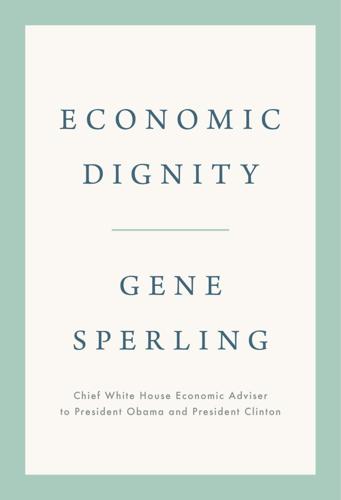
Economic Dignity
by
Gene Sperling
Published 14 Sep 2020
Ron Lieber, “New Tax Will Help Washington Residents Pay for Long-Term Care,” New York Times, May 13, 2019, https://www.nytimes.com/2019/05/13/business/washington-long-term-care.html. 51. As I noted when Elizabeth Warren released her wealth tax proposal, “the incidence of extreme wealth inequality—as well as the magnitude of never-taxed wealth—is just so obscene at this point in our nation that I think there is simply no choice but to explore a wealth tax like this.” Jim Tankersley, “Warren’s Plan Is Latest Push by Democrats to Raise Taxes on the Rich,” New York Times, January 24, 2019, https://www.nytimes.com/2019/01/24/us/politics/wealth-tax-democrats.html. 52. Angela Hanks, Danyelle Solomon, and Christian E. Weller, “Systematic Inequality: How America’s Structural Racism Helped Create the Black-White Wealth Gap,” Center for American Progress, February 21, 2018, https://www.americanprogress.org/issues/race/reports/2018/02/21/447051/systematic-inequality/. 53.
…
In particular, we need to do far better at taxing the immense, often never-taxed, super-wealth in our society. While there are several positive ways to do this, from ending tax-free transfers of wealth to heirs to raising the top tax rate on capital gains, I strongly advocate imposing a small annual wealth tax on those who are worth over $50 million.51 Such measures can go an enormous way toward funding the types of broad economic dignity policies espoused in this book. Yet if we are to be successful at making our tax system far more progressive, we should not shut down the consideration of asking all Americans and employers to pay a little more to ensure a stronger economic dignity net for one’s older years—in terms of long-term care, paid family leave, and Social Security benefits—if it can be shown to directly increase overall economic dignity purchasing power (EDPP).
…
Once we have made our tax system more progressive and fair, we should not allow fear of political attacks to prevent us from considering a modest contribution that would increase Social Security benefits, paid leave, and long-term care, and that represents a major step forward to our end goal of universal economic dignity. DON’T GIVE UP ON WEALTH BUILDING A wealth tax and other policies to reduce the obscene concentration of wealth in our society should be a critical economic priority. But a plan to both decrease wealth inequality and promote economic dignity must also focus on how to build wealth for tens of millions of Americans who have little or no savings or wealth.
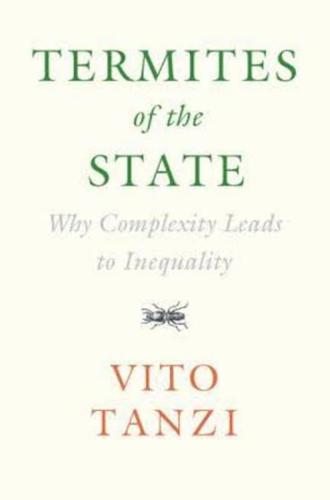
Termites of the State: Why Complexity Leads to Inequality
by
Vito Tanzi
Published 28 Dec 2017
Intellectual property, rather than inherited real wealth, has often played a major role. Thus, the treatment of intellectual property merits special attention. When some countries imposed wealth taxes, as, for example, did President Francois Mitterand in France in the 1980s, they did not achieve much with this policy. Wealth taxes have rarely, if ever, played a major role in redistributing income, because of administrative and other difficulties. In a globalized world where wealth can be owned worldwide and in various liquid forms, the use of wealth taxes is likely to be even more disappointing than in the past, when wealth was more concrete, more visible, and more concentrated geographically.
…
Other economists – especially Piketty (2014) – have attributed the deterioration in the income distribution in recent decades to more fundamental trends such as the presumably secular, higher rate of return to wealth compared to labor, leading as a consequence to the large role 341 342 Termites of the State that inheritance of wealth plays in market economies. In that view, once families become rich, they tend to pass the wealth to the next generations within the same families. The higher rate of return to that wealth ensures that rich families remain rich families. Piketty recommended that a significant wealth tax be imposed to correct for this trend. The question of taxing wealth and inheritance is, of course, not a new one. Various economists of the past, including John Stuart Mill and Luigi Einaudi, had discussed this possibility (see, for example, Mill, [1900] 2004, and Einaudi, 1946). However, many of today’s very rich individuals did not inherit their wealth.
…
See 2007-2008 Financial Crisis Financial institutions executive compensation in, 168–69 financial penalties against, 158, 169–70 influence on governments, 113–14 regulations and, 126, 155, 157 rents and, 119 sanctions against, 157 “shadow banking,” 108, 119, 242, 329–30 “too big to fail” and, 84, 119, 168, 169 in UK, 157 in US, 126, 157 Financial instruments, complexity of, 106, 107, 108 Financial sector abuses in, 331 asymmetry in, 330–31 complexity of, 329–31 function of, 330 rents and, 330 securitization in, 330 “shadow financial sector,” 243 transaction activity in, 330 The Financial Times, 217, 352 Financial versus real investment, 106–7 432 Fine, Sidney, 18 Fines, 142 Finland Gini coefficient in, 317 marginal tax rates in, 376 Fiscal councils, 72–73, 272 Fiscal drag, 61 Fiscal policy, stabilization policies and, 237 Fiscal rules, 71–72, 272 Fiscal tools, 38 Fischer, Stanley, 113–14 Fisher, Irving, 46–47 Fishing industry, 149–50 Flat taxes, 381–82 Fogel, Robert William, 67–68 Food industry, 114–15, 167 Forbes, 38, 203, 342, 350 Forte, Francesco, 272 “Fracking,” 167, 283–84 France authorizations in, 137, 145 Cour des Comptes, 290 economic planning in, 27 ex post income distribution in, 118 “fake goods” in, 149 financial accountability in, 291 French Revolution, 89, 305 income inequality in, 306 marginal tax rates in, 376 occupational licensing in, 125–26 public spending in, 23–24, 53 regulations in, 279 wealth tax in, 342 welfare policies in, 43, 214 France, Anatole, 400 Francis (Pope), 28, 81 Frazer Institute, 60–61, 173 Free rider problem, 175–76 Free trade, 396–97 Friedman, Milton generally, 7–8, 60–61, 394 on basic minimum income, 212 on countercyclical policy, 61–62 on deficits, 72 on information in exchanges, 114–15 on irrationality, 141–42 on Keynes, 70 on limited role of government, 85, 313–14 on market, 34 on taxation, 367–68 Fundamental law of regulations, 278–79 Galbraith, John Kenneth, 3, 45–48 Gangs, 97–98 Gates, Bill, 196, 326, 356–57 Index Geithner, Tim, 113–14, 156 General Electric, 377 General Theory (Keynes), 46–47 Genetically modified food, 182–83 Germany authoritarian government in, 23 economic planning in, 27 “fake goods” in, 149 Gini coefficient in, 317 laissez faire in, 18 marginal tax rates in, 376 reforms in, 22 “revolving door policies” in, 335–36 unions in, 231 welfare policies in, 218, 219 welfare states in, 20 Gini, Corrado, 19 Gini coefficient.
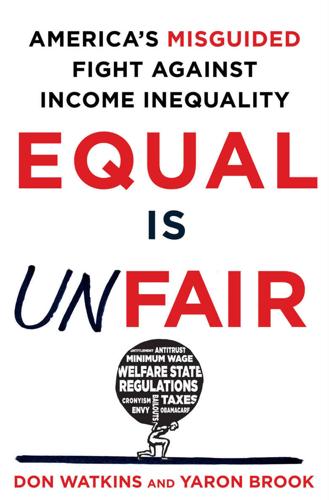
Equal Is Unfair: America's Misguided Fight Against Income Inequality
by
Don Watkins
and
Yaron Brook
Published 28 Mar 2016
And so along with proposals to increase the minimum wage and bolster unions, the inequality critics also advocate top marginal income tax rates well above 50 percent, huge taxes on inheritances, vast amounts of regulation designed to restrain big business, salary caps on CEO pay, and campaign finance laws to constrain political speech by the wealthy, to name only a few of their schemes. In Piketty’s runaway bestseller, Capital in the Twenty-First Century, the chief proposals for fighting inequality are an annual global wealth tax of up to 10 percent a year, and a self-described “confiscatory” top marginal income tax rate as high as 80 percent.12 For some, even this doesn’t go far enough. There are critics of economic inequality who are largely indifferent to its impact on opportunity and want to level down society even if it means crippling economic progress.
…
As the late Johnny Munkhammar, a member of the Swedish Parliament, wrote, Swedes “have seen their borders opened for more labor migration, they have seen still more state-owned companies sold, and have seen their public authorities shrink in number. Stockholm has also cut property taxes and abolished the wealth tax, and instituted a new system of income-tax credits that lets working people with average incomes keep what amounts to an extra month of wages, after taxes, per year. Today, the state’s total tax take comes to 45% of GDP, from 56% ten years ago.” As a result, Sweden has no budget deficit and has reemerged as one of Europe’s fastest-growing economies.61 (Inequality in Sweden, meanwhile, has risen.62) Far from a counter-example, Sweden’s history demonstrates precisely what we’ve argued: that liberty and prosperity are inextricably linked, and that economic inequality simply doesn’t matter.
…
But that’s started to change with Thomas Piketty’s Capital in the Twenty-First Century, which argues that wealth inequality is our biggest long-term problem. In Piketty’s view, there are certain inherent laws of capitalism that cause wealth to accumulate in the hands of unproductive heirs rather than value-creating entrepreneurs—unless, that is, we adopt his program of “confiscatory tax rates” and a global wealth tax. Piketty’s basic argument, he tells us, comes down to a simple equation: r > g, where r stands for the rate of return on capital and g stands for the growth of the economy. If, argues Piketty, “the rate of return on capital remains significantly above the growth rate for an extended period of time (which is more likely when the growth rate is low, though not automatic), then the risk of divergence in the distribution of wealth is very high.”
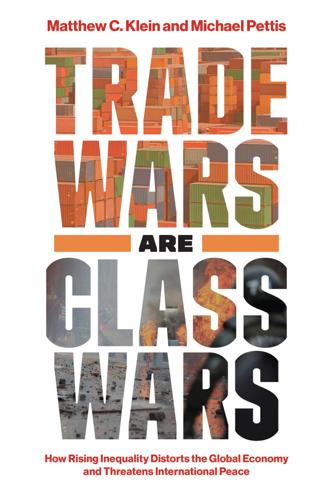
Trade Wars Are Class Wars: How Rising Inequality Distorts the Global Economy and Threatens International Peace
by
Matthew C. Klein
Published 18 May 2020
Special issue, “Inheritance Tax and Wealth Tax in Germany,” DIW Economic Bulletin 6, January 27, 2016; James Shotter, “Germany Changes Inheritance Tax to Protect Family Business,” Financial Times, September 22, 2016; Matthew C. Klein, “Marcel Fratzscher on the Dark Side of the German Economy—Now with Transcript!!,” FT Alphaville, March 28, 2018, https://ftalphaville.ft.com/2018/03/29/2199403/marcel-fratzscher-on-the-dark-side-of-the-german-economy-now-with-transcript/; Cathrin Schaer, “Germany’s Convoluted Property Tax Could Be Illegal,” Handelsblatt, January 16, 2018; Alena Bachleitner, “Abolishing the Wealth Tax—A Case Study of Germany” (M.Sc. thesis, University of Vienna, 2017); Dan Andrews and Aida Caldera Sánchez, “The Evolution of Homeownership Rates in Selected OECD Countries: Demographic and Public Policy Influences,” OECD Journal: Economic Studies 2011, no. 1 (2011): 8; Christian Dustmann, Bernd Fitzenberger, and Markus Zimmerman, “Housing Expenditures and Income Inequality: Shifts in Housing Costs Exacerbated the Rise in Income Inequality,” VoxEU, October 22, 2018, https://voxeu.org/article/housing-expenditures-and-income-inequality. 39.
…
That encouraged the highest-income Germans to spend less so that they could accumulate more. According to one estimate, the impact of the tax change raised Germany’s household saving rate by several percentage points relative to what it otherwise might have been. The constitutional court ruling was based on the reasonable concern that the net wealth tax was unfair because it treated residential property differently from other types of assets. Here too, policy favors the wealthy minority. Unlike many other countries, Germany’s property taxes are not based on market values. Instead, they are based on assessments dating back to either 1964 (in the former West Germany) or 1935 (in the former East Germany).
…
The Europeans’ decision to force the crisis countries to adjust by squeezing domestic spending has pushed the euro area as a whole into a massive external surplus relative to the rest of the world, currently worth about 4 percent of the bloc’s GDP. Unsurprisingly, the European countries that adopted Germany’s economic policies also experienced rising inequality and a decline in purchasing power for their ordinary citizens. Value-added tax rates rose by several percentage points, while corporate income taxes and wealth taxes fell. As the economist Zsolt Darvas notes, “Wealthy Italians and Spanish lost very little (perhaps even increased their income) while lower earning Italians and Spaniards have lost a great deal.” Rising income inequality in the surplus countries was caused in part by the desire to increase competitiveness through lower wages.
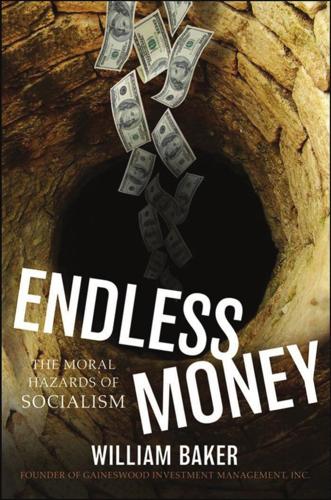
Endless Money: The Moral Hazards of Socialism
by
William Baker
and
Addison Wiggin
Published 2 Nov 2009
When this process is complete, we could then scale back the role of the Fed to limit its policy actions only to times of truly desperate liquidity contraction, if at all. The repeal of the Sixteenth Amendment would be imperative; it should be replaced with a moderate and flat wealth tax. Interestingly, when Augustus restored the flat wealth tax in about 25 bc, it lit a fire xxii INTRODUCTION under economic growth in the Roman Empire, for it reduced the marginal tax rate on income to 0 percent! Without constitutional tax reform, the gold purchased by the Fed to back the currency would hastily be shipped back to where it came.
…
After tax reform kicked in, collections soared to $33 billion in 2003 (near the bottom of a bear market) and $55 billion the year after. The bottom line is that raising the capital gains tax would hurt the upper-middle class, which might need to sell publicly traded stock from time to time, but billionaires would opt to cease making transactions other than tax-free exchanges, often facilitated by derivatives. For this reason, a wealth tax might be the only fair tax system possible. It would fail if it were not inclusive of all pools of wealth, especially those that enjoy freedom from taxation today, because that status has been overextended. Moreover, all other taxes would need to be abolished. Another weak point is that money might evade it by moving offshore (depending how it is legislated).
…
Another weak point is that money might evade it by moving offshore (depending how it is legislated). But rightfully a government should only be able to tax that which rests inside its domain anyway. If those funds can earn a higher return elsewhere, so be it. Most likely, there would be massive capital inflows to the United States if a small wealth tax of say 1 percent replaced the income tax, because the marginal rate of taxation on income would fall to zero here, which compares very favorably to regular rates elsewhere. If the average pretax rate of return on capital employed is north of 20 percent generally, then a 1 percent tax rate would be the equivalent to a 5 percent income tax.

Evil Geniuses: The Unmaking of America: A Recent History
by
Kurt Andersen
Published 14 Sep 2020
Polls in 2019 found that by huge margins, three to one, Americans want more government regulation of Wall Street banks and believe that corporations pay too little in taxes. And three different polls in 2019, by The New York Times and Politico, asked people what they thought of proposals to impose a wealth tax on the extremely rich—a tax of 2 percent a year on all wealth between $50 million and $1 billion, 3 percent a year on everything over $1 billion. All three polls found that nearly two-thirds of Americans are in favor of such wealth taxes—including large majorities of Republicans. If more Americans were to learn of the large body of research showing that higher inequality in rich countries isn’t just unfair but actually slows down economic growth—by a fifth since the 1980s, according to a 2014 study by the OECD—the remarkably strong support for Robin Hoodism might get even stronger. 3.
…
Today’s crisis is laying bare how far many rich societies fall short of this ideal….We are not really all in this together….Better paid knowledge workers often face only the nuisance of working from home….Radical reforms—reversing the prevailing policy direction of the last four decades—will need to be put on the table….Redistribution will again be on the agenda….Policies until recently considered eccentric, such as basic income and wealth taxes, will have to be in the mix. If I’ve lost the Financial Times, some strategist on the rich side in the class war must have thought, I’ve lost elite opinion. Today suddenly everyone deemed it essential for Congress to shovel out trillions to average American citizens by means of new debt and for the Federal Reserve to conjure trillions more by esoteric monetary magic! Tomorrow it could be wealth taxes on the superrich or true universal healthcare or carbon taxes on (cheap) oil or God knows what socialist madness!
…
Back in the 1930s and ’40s, there had been very left-wing Democrats with serious national prominence and significant political bases. Franklin Roosevelt’s own vice president Henry Wallace was one, as most notably was Senator Huey Long of Louisiana, who introduced bills in the 1930s to enact a 100 percent income tax on earnings over the equivalent of $20 million and a wealth tax of 100 percent on everything over $1 billion. Which made the president seem moderate when his 1935 “Soak the Rich Act” raised the tax on income over $2 million to 55 percent. “Political equality,” FDR said in 1936, is “meaningless in the face of economic inequality.” In what he pitched as a Second Bill of Rights, he proposed guaranteeing all Americans “the right to earn enough” for “a decent living” and “a decent home” and to have “adequate medical care” paid for with “a tax [on] all unreasonable profits, both individual and corporate.”
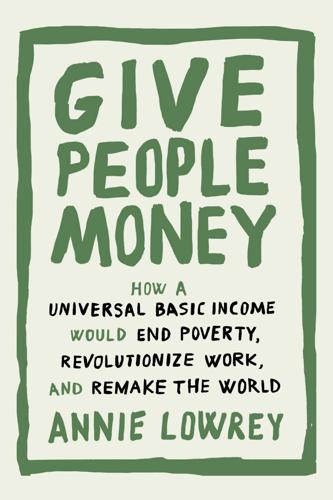
Give People Money
by
Annie Lowrey
Published 10 Jul 2018
Raising enough revenue for a $1,000-a-month UBI is more a matter of will than of mathematics, and would bring the United States’ tax burden in line with that of the European social democracies. Maybe nothing in the history of this country suggests that we are ready to implement those kinds of taxes, but nothing in the realm of public policy suggests that we could not. Creating a top tax bracket at 55 percent, instituting a modest wealth tax, ending the mortgage interest deduction, implementing a value-added tax—proposals like those would get us there. Again, the United States does far less taxing and spending than other rich countries do. We are, by OECD standards, a low-tax country, even if it does not feel that way. A UBI would require us to turn into, and would turn us into, a social democracy, with all the taxes and benefits that come with it.
…
Plus, a UBI need not be financed through the personal income-tax code alone—and arguably should not be. A financial transactions tax would raise an estimated $100 billion to $400 billion a year. A value-added tax could easily raise a trillion dollars. A well-designed carbon tax would raise about $100 billion a year. Moreover, a wealth tax, such as a hefty levy on estates over $3 million, could raise hundreds of billions. That opens the door to dividend policies like Alaska’s. A panel of Republican statesmen—among them former secretaries of state James Baker and George Shultz, as well as former Treasury secretary Hank Paulson—have proposed sending each and every citizen a quarterly Social Security payout funded with a tax on carbon.
…
Such a program would cost about $200 billion a year, almost exactly the same amount as spending on the EITC, Supplemental Security Income, housing aid, food stamps, welfare, and the school-lunch program. A somewhat more generous program would cost an estimated $400 billion a year, easy to finance with a carbon tax, a wealth tax, or a financial transactions tax. That said, the conversation about how to create and build and implement sometimes feels stuck in the fine print. A UBI is a lesson and an ideal, not just an economic policy. We can’t just talk about how to construct a UBI; we need to talk about how to make what we already have work better, be fairer, be less paternalistic, and support more people.
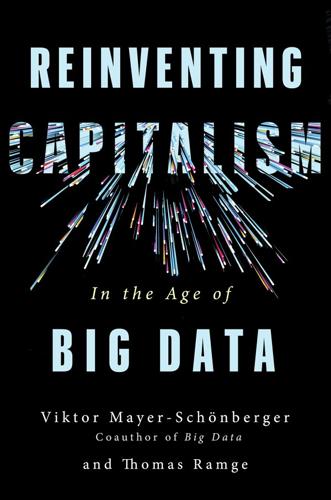
Reinventing Capitalism in the Age of Big Data
by
Viktor Mayer-Schönberger
and
Thomas Ramge
Published 27 Feb 2018
A somewhat different distributive strategy is to impose a tax not on the value generated by machines but rather on the capital that supposedly claims a rising share of the economy’s income. This could be achieved, for example, through an increase in the capital gains tax or by instituting a new wealth tax. The latter is the more popular option and the one that is being advocated in several European nations. In most proposals, these distributive measures would keep overall tax revenues flat or increase them only incrementally, just enough to offset the decrease in tax revenues resulting from a decline in labor share.
…
But in practice, their effects may be limited. Even robo-tax proponent Bill Gates focuses on maintaining funding for social security programs as the overall workforce contracts. He doesn’t claim that the robo tax is a solution to the social problems this contraction will bring about. Similarly, a wealth tax may feel fair, but experts predict it will yield only a modest volume of tax revenue and do little to remedy social disruption. Participatory responses, by contrast, propose a set of policies that support the retraining of workers who have been made redundant by decision-assistance systems in particular and by the digital transformation more generally.
…
See universal basic income UniCredit bank, 136 Unilever, 75 United Kingdom, 134, 147, 164 United States banking crisis in, 134, 135 capital share of, 185 corporate taxes in, 197–198 health care sector in, 213 labor market of, 184, 185, 186, 195 market concentration in, 164 stock market investment options in, 143 subprime mortgage crisis in (see subprime mortgage crisis) universal basic income proposed in, 190, 191 universal basic income (UBI), 189–193, 205–206 University of Pennsylvania’s Wharton School, 36 Upstart, 151 Upwork, 3 used car market, 40 venture capital (VC) firms, 141, 142–143, 216 Vocatus, 55 Volkswagen, 182 Volvo, 182 Wall Street Journal, 203 Walmart, 28, 52 Walt Disney Company, 69 Watson (machine learning system), 109, 111, 113–114, 115, 117, 163, 183 Watt, James, 111, 113 wealth tax, 187 Webvan, 112 WeChat, 147, 163 Wedgwood, Josiah, 94 welfare reducing transactions, 73 Wenger, Albert, 156, 189 Wenig, Devin, 1–2, 209 Wharton School, 36 Which?, 52 Wiener, Norbert, 159–160, 179 Wikipedia, 21–22 Windows, 166 Wired magazine, 181 WordPress, 161 work. See labor market Y Combinator, 191 Yahoo, 2–3, 6 Yamaha, 30 Yegge, Steve, 88 YouTube, 67, 68–69 ZestFinance, 151 Zetsche, Dieter, 110, 121 Zopa, 152 Zulu Trade, 152

The Great Wave: The Era of Radical Disruption and the Rise of the Outsider
by
Michiko Kakutani
Published 20 Feb 2024
GO TO NOTE REFERENCE IN TEXT A 2022: Washington Post study: Amelia Malpas, “Win or Lose, Progressive Challengers Have Influenced the Democrats’ Agenda,” The Washington Post, Sept. 30, 2022, washingtonpost.com/politics/2022/09/30/progressives-democrats-the-squad-socialists/. GO TO NOTE REFERENCE IN TEXT A 2019 poll: Jim Tankersley and Ben Casselman, “Wealth Tax and Free College Get Poll Support. Democrats Worry It Won’t Last,” The New York Times, July 21, 2019, nytimes.com/2019/07/21/business/wealth-tax-polling-democrats.html. GO TO NOTE REFERENCE IN TEXT “an alternative reality silo”: Elizabeth Dohms-Harter, “Wisconsin Conservative Voice Charlie Sykes Is Voting for Joe Biden,” The Morning Show, WPR, Sept. 9, 2020, wpr.org/wisconsin-conservative-voice-charlie-sykes-voting-joe-biden/.
…
For that matter, policies endorsed by Sanders, Elizabeth Warren, and other progressives won growing support within the Democratic Party and in the country at large in the ensuing years. A 2019 poll for The New York Times found that three in five Americans (including seven in ten political independents) supported a “Medicare for all” health-care program and free college tuition and two-thirds supported a plan to impose a wealth tax on assets exceeding $50 million. In contrast to the Democratic Party’s gradual moves to the left, the Republican Party completely shattered the Overton window with the election of Donald Trump. Though the party had been moving to the right for decades, Trump took it off the road entirely, and as he took a battering ram to democratic institutions, the GOP began pandering to right-wing extremists who once inhabited the most distant orbits of the political solar system.

Skin in the Game: Hidden Asymmetries in Daily Life
by
Nassim Nicholas Taleb
Published 20 Feb 2018
Taxation for equality incompatible with fat tails: Such a tax, meaning to punish the wealth generator, is popular but absurd and certainly suicidal: since the payoff is severely clipped on the upside, it would be a lunacy to be a risk taker with small probability bets, with wins of 20 (after tax) rather than 100, then disburse all savings progressively in wealth tax. The optimal strategy then would be to go become an academic or a French-style civil servant, the anti-wealth generators. To see the cross-sectional problem temporally: Compare someone with lumpy payoffs, say an entrepreneur who makes $4.5 million every twenty years, to an economics professor who earns the same total over the period ($225K in taxpayer-funded income). The entrepreneur over the very same income ends up paying 75 percent in taxes, plus wealth tax on the rest, while the rent-seeking tenured academic who doesn’t contribute to wealth formation pays say 30 percent.)
…
Parliament expenses scandal: MPs were giving themselves TVs and dishwashers, which the public could easily imagine, and revolted against. One MP said, “It’s not like I took one million in bonds.” The public understands TVs, not bonds. fn12 There is a technical argument that, if one looks at the issue dynamically, not statically, a wealth tax favors the salaryperson over the entrepreneur. fn13 See Cirillo and Taleb, “On the Statistical Properties and Tail Risk of Violent Conflicts.” Physica A: Statistical Mechanics and Its Applications 452, 2016: 29–45; Pinker, “Fooled by Belligerence,” https://stevenpinker.com/files/comments_on_taleb_by_s_pinker.pdf; Cirillo and Taleb, “The Decline of Violent Conflicts: What Do the Data Really Say?”
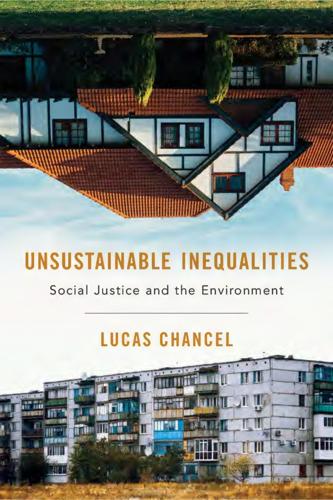
Unsustainable Inequalities: Social Justice and the Environment
by
Lucas Chancel
Published 15 Jan 2020
Few expected the social unrest that was about to come.19 Because the planned rise in carbon tax revenues had not been accompanied either by additional compensatory mechanisms to offset the burden on low- and middle-income households or by a significant increase in energy transition investments, however, millions of households had no low-carbon transport or heating alternatives. In the absence of any meaningful financial assistance, rising carbon tax rates were bound to trigger popular discontent. This is what finally happened in 2018, when the new center-right government of Emmanuel Macron ratcheted up the carbon tax as part of a broader plan to scrap the wealth tax and reduce tax rates on capital incomes. Taxes on the richest of the rich were reduced by more than €4 billion that year, while carbon tax revenues, raised disproportionately from low- and middle-income households, were increased by about €4 billion. In the event, the government’s claim that the tax deal would be proclimate and propoor was contradicted by the numbers: while the richest 1 percent saw their incomes increase by more than 6 percent thanks to the reform (and up to 20 percent for the top 0.1 percent of earners), the bottom 20 percent of households were actually net losers in the tax overhaul, mainly because of the increase in carbon tax rates.20 Under these circumstances (worsened by a rise in global oil and gas energy prices), low- and middle-income taxpayers felt justified in arguing that they were, in effect, subsidizing tax cuts that benefited the wealthiest—a charge that, everything considered, was not unjust.
…
The further down one goes on the social scale, the less often income is reported, and so the earnings of poorer households are liable to be underestimated as well. This source of information therefore has its own limitations. In order to have the most accurate picture possible of the overall distribution of income and wealth, tax-return data should be cross-checked against surveys wherever possible. 5. This chapter of the book is largely derived from the World Inequality Report 2018, which provides more details of each national inequality trajectory. See Facundo Alvaredo et al., World Inequality Report 2018 (Cambridge, MA: Harvard University Press, 2018). 6.

Practical Doomsday: A User's Guide to the End of the World
by
Michal Zalewski
Published 11 Jan 2022
The arguments formulated in Capital in the Twenty-First Century, a seminal manifesto by the French economist Thomas Piketty (Belknap Press, 2014), have convinced millions that greatly increased taxes on top earners aren’t just proper, but absolutely necessary to remedy the growing inequality in the West. This renewed antipathy toward the affluent made it easier for regulators to confiscate foreign deposits during the Cypriot debt crisis, and to put wealth taxes back on the agenda in the United States. To make such proposals palatable to the electorate, our representatives usually evoke the image of billionaires—a caste of reclusive, elderly men surrounded by butlers and gilded chandeliers, the entire political establishment in their pockets (except, of course, for the one politician giving the speech).
…
The final tax-related observation is that some assets used for business purposes—including rental property—can be gradually depreciated for wear and tear, offsetting the income that the business manages to generate on other fronts. On the flip side, real estate is one of the few asset classes subject to a direct wealth tax. As most homeowners know, your state will send you a hefty annual tax bill for the privilege of owning property, even if it’s an off-the-grid cabin in the woods. * Naturally, inflation can have many causes. For example, prices can rise if there’s a reduction in the availability of raw materials used to manufacture goods.
…
Heater, 157 MREs (meals ready to eat), 144 muggings, 112–113 Multi-Use Radio Service (MURS), 188 municipal sewers, 145–147 Mylar, 149 MyLife.com, 110 N N95 respirators, 174 N-acetylcysteine (NAC), 179 Nagasaki, 31 Nakamoto, Satoshi (pseudonym), 66–67 nasal glucocorticoids, 150 National Center for Injury Prevention and Control, 14 National Security Agency (NSA), 109 natural disasters, 18–19, 34–35 neonicotinoids, 176 neurotoxins, 176 New Deal, 22 New York Times, 37 Niebuhr, Reinhold, 43 9-11 attacks, 26–27 9mm Luger, 214 nitrates storage accidents, 20 non-fungible tokens (NFTs), 87 NRC ADM-300, 179 NSA (National Security Agency), 109 nuclear disasters and nuclear fallout, 20, 31, 39–40, 178–180 nuclear electromagnetic pulse, 40–41 Nuclear War Survival Skills (Kearny), 39 nuclear winter, 30 nutrition, 139–140 O obesity, 115–118 OFD Foods, 141 Oklahoma City bombing, 26–27 Olympic Park bombing, 26 One Child Nation, 8 OneRep, 110 online fraud, 106–108 online privacy, 109–111 optimism, 44 opting out, 110 oral antibiotics, 151 outages, 12 oximeters, pulse, 150 P pain medications, 99–100 pandemics, 25–26, 32, 174–177 pantries, 140–144 paperclip maximizer parable, 42 paperwork, 166–167 passive infrared (PIR) motion sensors, 201 passwords, 108 pathogens, 32–33 “peak oil” hypothesis, 35 pepper spray, 205, 207 Perhach, Paulette, 49–50 perimeter security devices, 201 Permian extinction, 34 personal hygiene, 149 pessimism, 44 pests, 177 phishing, 107 phones, 155–156, 181 physical cash, 75–76 physical fitness, 115–118 physical violence, 13 pickpocketing, 113–114 PIG Sock, 147 Piketty, Thomas, 72 PIR (passive infrared) motion sensors, 201 pistols, 212–213 pit latrines, 147 planetary catastrophe, 34 planning documents, 121–125 plumbing, 145–148 poisons, 177 pollinating insects, declines of, 35 poor countries, 33–34 Population Bomb, 7–8, 30 porch piracy, 111 portable generators, 155–156 portfolio design strategies, 88–90 power outages, 152–159 power puller, 162–163 power tools, 101–103 precious metals, 83–85 predictions of apocalypse, 30–31 prepping community, 119–120 prescription drugs, 99–100, 150 PRI-G, 156 Primatene, 150 prion diseases, 32 privacy online, 109–111 propane, 157–158 property crime, 13–14, 199–202 prophecies, 30–31 proportionality of self-defense, 204–205 pry bars, 112, 163 pulse oximeters, 150 pyrethrin, 176 pyriproxyfen, 176 pyrroloquinoline quinone (PQQ), 179 Q Quick Dam, 147 R Radaris, 110 radiation, 30, 39–40, 178–180 radios, 182–190 rainy-day savings, 49–55 rats on Christmas Island, 33 Raven Rock (Graff), 40 Reagan, Ronald, shooting of, 26 real estate, 85–86 recessions, 22 recreational drugs, 100–101 recreational shooting, 219 Reddit, 52, 109 refrigerators, 152–153 regimes, totalitarian, 36–39 rehydration salts, 150 REITs (real estate investment trusts), 86 renter insurance, 11, 201 repairs, 162–163 repeaters, 185 representative currency, 63 respiratory diseases, 150 revolvers, 213–214 revolving loans, 53–54 rifles, 215–216 riots, 21 risk mitigating, 74–88 mitigation costs, 5–6 quantifying, 5–6 risk-rank formula, 6 risk-taking, 95–96 statistics on, 3 robberies, 112–113 rodents, 176–177 Romero, George A., 30 Rothbard, Murray, 61–62 Ruby Ridge siege, 26 Ruger LCP, 214 S Sabin, Paul, 8 sanitization, 175–176 SARS, 26 satellite communications, 182–183 savings, 10, 49–55 Savings and Loan Crisis, 22 saws, 162 scams, 106–108 Scepter brand cans, 133 Schneier, Bruce, 3 science, 30 science fiction, 29–30 security devices, 201 self-defense firearms, 211–219 legalities of, 204–206 property crime, 199–202 robberies, 113 semiautomatic pistols, 212–213 September 11 attacks, 26–27 Serenity Prayer, 43 sewers, 145–147 shelter, loss of, 11–12 shotguns, 216–217 (S)-hydroprene, 176 sieverts (Sv), 178 Sig Sauer P229, 214 Simler, Kevin, 7 situational awareness, 13, 112 skin conditions, 150 skin staplers, 150 sleeping bags and pads, 167–168 sleeping sickness, 25 slugs, 217 smallpox, 32 smoke, 177 snow chains, 163 social media, 109, 110 social unrest, 20–21 sodium dichloroisocyanurate (NaDCC) tablets, 134 soft-point ammunition, 217 SOG Seal Pup Elite, 170 solar storms, 36 SOS, 143 space weather events, 35–36 speeding, 96–97 spinosad, 176 Spokeo, 110 Springfield EMP, 214 STA-BIL, 156 stalking, 14 The Stand (King), 32 stock market, 79–81 stock options, 81–83 stockpiled foods, 140–144 stockpiling, 73–74 Stop the Bleed program, 151 storm cleanup equipment, 162–163 “A Story of a Fuck Off Fund” (Perhach), 49–50 street violence, 112–113 student loans, 50 stun guns, 205, 207 submersible pumps, 148 subscription services, 51 suffocation, 104 suicides, 196–197 supervolcanoes, 34 supply issues, 137 Svenson, Ola, 96 swine flu, 26 System Fusion, 188 system of prices, 59 T Taser pistols, 207 tech upgrades, 52 technician class license, 189 tents, 167 terrorism domestic, 26–27 fear of, 26–27 industrial accidents and, 20 statistics on, 3 Texas City Disaster, 20 thermal underwear, 156 thermonuclear war, 39–40 .38 Special, 214 3M gasmaks, 177 3M respirators, 175 3M Vetrap, 150 TIPS (Treasury Inflation-Protected Securities), 77 tires, 163 toilets, 145–147 Tomcat, 177 tools, 161–164 topical lidocaine cream, 150 totalitarian regimes, 36–39 transfer-on-death directives, 125 transportation disruptions, 12, 158–159 TransUnion, 110 travel expenses, 76 Treasury Inflation-Protected Securities (TIPS), 77 triamcinolone acetonide, 150 A True Story (Lucian of Samosata), 29 TruePeopleSearch.com, 110 28 Days Later, 32 Twitter, 109, 155 two-factor authentication (2FA), 108 two-way radios, 183–190 U umbrella policies, 88 unemployment, 10–11 unintentional injury, 12–13 unrest, 20–21 US Centers for Disease Control and Prevention (CDC), 13 US Geological Survey (USGS), 19 usury, 63 utility outages, 12 V valuables, 201 vandalism, 111 Vanguard Group, 80–81 vehicle accidents, 96–98 vehicle repairs, 163–164 vertigo, 150 vinegar, 148 violence, 13 Virex II 256, 176 virtual private network (VPN) software, 106 visa requirements, 11 vitamin C, 179 volcanoes, 34–35 vomiting, 150 Vox Magazine, 25 W Waco siege, 26 wages, 50 war, 20–21, 39–40 waste disposal, 145–147 water and water outages, 12, 131–135, 145–148, 169 WaterBrick, 133 wealth taxes, 73 weather, 18, 156–158, 168 Weathermen, 27 weight loss, 115–118 West Nile, 26 Westinghouse generators, 156 wet wipes, 149 “What Has Government Done to Our Money?” (Rothbard), 61 “Why Not Improve the Human Race?” article, 37–38 Wickard v. Filburn, 22 Wikipedia, 19 Wilderness Medicine: Beyond First Aid (Forgey), 152 wildfires, 18, 44, 124 wildlife, 171 wills, 124–125 window security film, 201 wipes, 149 Wired, 3 workshop injuries, 101–103 World War Z (Brooks), 30 wounds, 150 X xenophobia, 25 Y Yaesu, 188 Yamaha EF2000iS generators, 156 Yellowstone Caldera, 34 YouTube, 110 Z Zika, 26 zoonotic diseases, 176
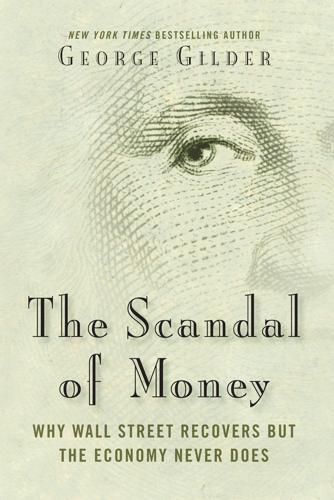
The Scandal of Money
by
George Gilder
Published 23 Feb 2016
Obamacare (also known as the Affordable Care Act) is extending its web of taxation and control over all healthcare, requiring sixteen thousand new Internal Revenue Service agents to make it all work. Redressing the crisis of inequality will be expanded taxation of capital and savings capped by a progressive wealth tax—a program that may begin with Hillary Clinton’s proposed hike in the tax on capital gains. Redressing the diminishing returns of education, under the Democrats’ trickle-down education theory, is $350 billion more for educators. The waning benefit from globalization suggests “sustainable technologies,” more appropriate dreams, and rich reparations for the third world.
…
Upholding the secular stagnation theory of permanent growth slowdown, he naturally focuses on depressing the return to capital. Taking money from the rich and giving it to government might seem to address “inequality.” But by putting capital into the hands of the least productive users of it—politicians—he would aggravate the very stagnation he warns against. Turner and Piketty both urge an array of global wealth taxes as high as 10 percent and new marginal income-tax rates as high as 80 percent. They also call for new regulatory regimes for alternative energy and new capital controls. Turner advocates 30 to 40 percent reserve requirements for banks, regulations on “shadow banking” derivatives and securities, restrictions on international capital movements, and a global regime of trade rules.
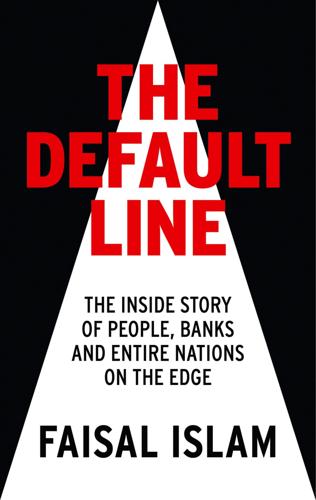
The Default Line: The Inside Story of People, Banks and Entire Nations on the Edge
by
Faisal Islam
Published 28 Aug 2013
Iceland’s net government debt shot up to 60 per cent of GDP from below 10 per cent pre-crisis, but this was not a patch on Ireland, which is now 106 per cent. Severe and painful fiscal cuts were required. But Sigfússon says Iceland kept to its Nordic-style social contract. ‘We made a very clear promise to preserve a Nordic-style welfare system,’ he told me, ‘and I believe we have done all we can. We introduced a wealth tax and a three-bracket income tax designed to shelter low-income groups. There was no rise in tax burden for low-income families. What we did is not just socially the right thing to do but also economically successful. We did not cut unemployment benefits. One of the messages from Iceland is don’t overlook the importance of keeping up the purchasing power of low-income groups.’
…
In Britain, for example, the flawed council tax, the UK’s only real tax on property, has been frozen for six years, whereas VAT on sales has been hiked. Demographically, the great fiscal challenge will be paying for an ageing society. Yet wealth everywhere is concentrated in older hands. However unpopular they may be, wealth taxes across Europe are on their way in the coming decades. Right now, austerity programmes are typified by a grand diminution of expectations for the retirement of a current generation of twenty- and thirty-somethings, set against the absolute protection of the retirement rights of a current generation of retirees.
…
The last point reflects the fact that the City of London was a production house for toxic derivatives and the capital of the shadow banking system. Some of the losses booked by big multinational banks mean that corporation tax will not be paid by those banks for a decade. A choice will be required about whether to replace that missing tax base with a different one (e.g. wealth taxes), or whether the state needs to shrink back. DEFAULT LINE #4: Banking and the sovereign doom loop In the Eurozone, attempts to break the link between oversized banking systems and government support for those systems have been haphazard and often entirely counterproductive. In Britain, such links were not the fundamental problem to begin with.
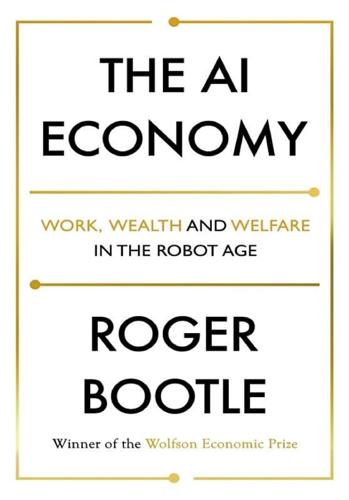
The AI Economy: Work, Wealth and Welfare in the Robot Age
by
Roger Bootle
Published 4 Sep 2019
Action to tackle tax avoidance by both wealthy individuals and corporations would be feasible but to be effective it would need to be internationally coordinated. It is also open to countries to impose wealth taxes, or where these already exist, to increase them. Again, though, to prevent such a move being undermined by capital flight, it would have to be internationally coordinated. As things stand, there seems scant chance of getting international agreement on the imposition of a wealth tax. Competition and reform A completely different approach to inequality would be to tackle it at its roots – or at least some of them. In the USA, anyway, recent increases in inequality have not been caused primarily by increased returns to capital (as argued by Thomas Piketty and discussed in Chapter 6) but rather by increased disparity between high- and low-earning employees.
…
This is not the place to enter into a detailed account of these criticisms, but we do need to get the flavor of the key ones, and to reach a conclusion about the main issues, before going on to look at the impact of robots and AI.11 To begin at the beginning, while the sheer scale of the accumulation and analysis of data by Piketty has elicited widespread admiration, there are serious doubts about the quality and accuracy of this data. Indeed, these doubts are so serious as to call into question the whole edifice that Piketty has built on these foundations including, most importantly, the case for a top income tax rate of 80 percent and a global wealth tax of 20 percent or more. There are three strands to this criticism. First, Professor Martin Feldstein has pointed out that Piketty relies on income tax returns for evidence about incomes.12 Yet in the USA changes in tax rules since 1980 have given high earners less incentive to invest in low-yielding tax-exempt investments such as municipal bonds, and less incentive to put their business and professional income through corporations, which were taxed at a lower rate.
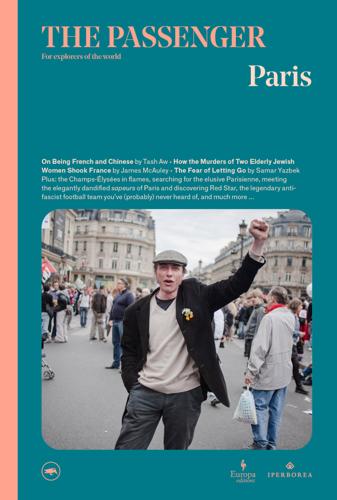
The Passenger: Paris
by
AA.VV.
Published 26 Jun 2021
Macron’s comment about workers, ‘many of them illiterate’, things he said about ‘nothing people’, ‘the cynics, the lazy, the extremists’ and the certainty he voiced that people only had to ‘cross the street’ to find a job. In response, there is an anti-establishment, situationist feel to the avenue: ‘Sur les pavés, la rage’ (‘On the cobbles, the rage’) echoes the May 1968 motto ‘Sous les pavés, la plage’ (‘Under the cobbles, the beach’); ‘We want to pay ISF too’ (ISF is the wealth tax); ‘Victoire par chaos’ (‘Victory through chaos’, a pun on ‘Victoire par KO’ or ‘Victory by a knockout’); ‘People and finance don’t get on’ … And there is also a furious tag daubed on a luxury store’s smashed window: ‘We’re deducting the ISF at source.’ The slogans take aim at the financial industry, the media and the police as the armed wing of the state: ‘Media = state propaganda’; ‘The banks rule us’; ‘Welcome to Teargasistan.’
…
They demand a massive public-sector hiring campaign for schools, post offices, hospitals and transport, a vast home-building scheme and penalties for mayors and officials who tolerate people sleeping rough. They catalogue the gigantic sums swallowed up by tax evasion and ‘gifts’ to investors. They want to abolish the current tax structure by proposing the cancellation of tax rises and the reinstatement of the wealth tax, while also protesting against socially regressive indirect taxes. They challenge many lethal aberrations that are damaging to the environment, from the huge amounts of plastic waste from useless gadgets to planned obsolescence. What is emerging is clearly a blueprint for a fairer, more supportive society.

Elsewhere, U.S.A: How We Got From the Company Man, Family Dinners, and the Affluent Society to the Home Office, BlackBerry Moms,and Economic Anxiety
by
Dalton Conley
Published 27 Dec 2008
Even better than chasing and keeping track of flows of money might be to tax stagnant pools of it through the imposition of a national wealth tax, which could replace the current income tax system. In other words, each year, an individual is required to pay, say, 1 percent of their total net worth as of December 31. Though folks may complain that such a system might discourage investment and favor consumption, this issue could be addressed by combining a wealth tax with a sales tax or VAT on consumption. The real issue is that though this is the most progressive form of taxation (since the distribution of wealth is even more uneven than the distribution of income), animosity toward wealth or property taxes dwarfs the resistance to all other forms of taxation (see, for example, Proposition 13 in California).

Brazillionaires: The Godfathers of Modern Brazil
by
Alex Cuadros
Published 1 Jun 2016
It was a curious balancing act: a concession to public opinion on the one hand, a defense of their family’s convictions on the other. What are their convictions? João mentioned two: better education and small government, both old banners of Roberto Marinho. The first is hard to argue with. The second is complex. In the editorial pages of O Globo, the Marinhos will declare that a wealth tax like the one proposed by the French economist Thomas Piketty is simply unworkable, without hinting that they might have a stake in the issue. They’ll deplore how the state has grown under the Workers Party. They just don’t mention the government’s massive Globo ad buys. Possibly to protect this subsidy, João told me they restrict their opinions to the editorial pages of O Globo and keep the TV network, with all its power to influence the debate, nonpartisan.
…
She removed caps on gas and electricity prices, and the cost of living spiked. All this even as unemployment and pension benefits were scaled back. Despite Dilma’s self-image as champion of the poor, austerity weighed heaviest on the lower ninety-nine percent of the income pyramid. After twelve years in power, she and Lula never implemented party planks like a wealth tax, which would have rubbed their allies in business the wrong way. Believing they could use billionaires as tools of economic policy, they had struck generous deals without asking much in return. Now, as taxes on day-to-day consumption went up, taxes on dividends stayed at zero. Interest rates soared, and while people with money in the bank fared just fine, businesses were forced to cut back.
…
See also Brazilian economy; specific governments; specific societal subjects American companies owned by Brazilians, xv American ideas of wealth in, xvi, 22 archetypal Brazilian, 48–49 bureaucracy and basic services, 10–11 complexo de vira-lata (mutt complex), 16, 98, 227, 260 contradiction of, 107 coup of 1964, 86, 95 culture, 4, 11–12, 22, 30, 50, 256 culture of corruption, xvii, 50–51, 54–55 culture of gambiarra, 148 debate about national progress, 13–14 flag of, 38 independence, 49–50 infrastructure problems, 144, 226, 260 labor laws, 21, 83 lack of Protestant ethic, 199–200 language, 8, 59 meritocracia and, 193, 194, 206, 207 migrant workers in, 45 national problems, 13–14, 37, 226 novos ricos, 143 oligarchy of, 48, 160 os anos de chumbo (years of lead), 44 outsider tradition in, 127–30 panelaço protests, 271 political apathy in, 96–97 population, xv, 11, 58, 98 Portuguese land grants, 49 protests of 2013, 231–36, 254–55, 258 protests of 2015, 271–72 Rabo preso (tied tail), 50 Republic of 1889, 129 rich’s preferential treatment, xiv, 49 “rouba mas faz” attitude, 37, 46–47, 56, 89, 270 soccer and, 236–37 thirteenth salary, 39, 118 tradition of wealth, 22 two routes to wealth in, 32 words for tricks and cheats, 50 Brazilian Congress anti-corruption laws, 2013, 235–36 Brazilian Senate building, 64 constitutional amendment to allow donations by companies, 275 corruption in, 33, 293n54 inquiry into Petrobras, 274–75 Brazilian Dream, 161, 170, 207–8, 257 Brazilian economy, 9, 151–56 Belíndia to describe, 12, 21, 129 bubble worries, 144, 244, 281, 286 buying on installments (parcelado), 21 Collor Plan, 92, 298n92 consumer debt, 252 consumer spending, 21–22, 80, 183 corruption’s effect on, 51 credit buying vs. cash, 19 currency of, 18, 21, 260, 300n108 custo Brasil, 21, 51 desenvolvimentismo, 44, 183 Dilma and, 223 Eike’s bubble, 286 as export leader, xv, 4, 59 foreign investment, 9, 14, 16 GDP, 44, 45, 288nxiv GDP losses, lucro Brasil, 51 history of patronage, 49–50 import tariffs, 21 inflation, 21, 92, 183, 226 interest rates, 19, 23, 172, 183 land ownership by the one percent, 59 Lula years, easy credit, 183 materialism and, 15, 257 middle class or classe C, 80–81, 97, 183, 226, 257, 272 military dictatorship and, 44–45 monopoly and, 81 monthly minimum wage, 25 national debt, 183, 269 1970s, 12 opportunity cost, 238–39, 242 patrimonialismo, 50, 71, 177, 280 public works and, 56–57 as rigged, 208 size of, 288nxiv stagflation, 260 Standard & Poor’s rating, 9, 271 startups in (see entrepreneurship) state supported business, 176–77 unemployment, 226 wealth inequity, xiv, xv, 45, 213–14, 284 wealth tax proposal, 55, 95, 269 BRICs, 137, 144 British Virgin Islands, 35 Brizola, Leonel, 313n234 B Team, 213 BTG Pactual, 218, 219–20, 221, 222–23 Buarque, Chico, 48 Buarque de Holanda, Sérgio, 48–49, 199, 200, 201 Budweiser, xv, 192 Buffett, Warren, 26, 156, 193, 197, 199, 203, 204, 205–6, 210, 310n209 Bunge, 62 Burger King, xv, 192, 209, 212 Burle Marx, Roberto, 86 Businessweek website, 211–12 BuzzFeed, 262 Cabral, Sérgio, 171, 184–85, 225, 226, 227, 240, 306n171 cachaça (alcohol), 13, 14, 18, 258 Cairu, José da Silva Lisboa, Viscount of, 176 Caixa (state bank), 290n40, 297n84 Caldeira, Jorge, 174 Camargo, Dirce, 52, 53, 289n35, 292n52, 293n53 Camargo, Sebastião, 31, 39, 42–44, 46, 69, 84, 160, 280, 292n47, 294n69 character of, 48, 90 construction of Brasília, 47–48 daughters of, 43, 52 death of, and accolades, 48 favorite project, 47 luxuries and lifestyle, 43, 53 military dictatorship and Oban, 42–44, 53, 291n42 nicknamed “China,” 43 “o homem dos relacionamentos,” 46 partnership with Barros, 46–47 politics and contracts, 43, 46–48 Rio-Niterói Bridge, 44, 292n45 Ultragaz venture, 42–43, 291n42 wealth of, 90 Camargo Corrêa, 30, 32, 39, 42, 46, 125, 228–29 Belo Monte dam and, 67, 71, 72, 273 Brasília construction, 63 bribes and, 39, 273 campaign donations, 54, 171, 293n54 Carwash and, 51, 270–71 founding of, 46 immunity deal, 274, 316n274 Limoeiro Dam, 47 Olympic Games construction, 274 politics and contracts, 43–44, 46, 47, 55, 292n45 size and worth, 52 toll bridge built by, 53, 293n53 Transamazônica highway, 68–69 Tucuruí dam, 72 warning to author, 52–53 World Cup 2014 construction and, 238 Camargo family, 52, 53 campaign donations, 53–54, 63, 275, 285TK, 293n54, 317n275.

Women & Power: A Manifesto
by
Mary Beard
Published 2 Nov 2017
Occasionally women could legitimately rise up to speak – to defend their homes, their children, their husbands or the interests of other women. So in the third of the three examples of female oratory discussed by that Roman anthologist, the woman, Hortensia by name, gets away with it because she is acting explicitly as the spokesperson for the women of Rome (and for women only), after they have been subject to a special wealth tax to fund a dubious war effort. Women, in other words, may in extreme circumstances publicly defend their own sectional interests, but not speak for men or the community as a whole. In general, as one second-century AD guru put it, ‘a woman should as modestly guard against exposing her voice to outsiders as she would guard against stripping off her clothes.’ 5.
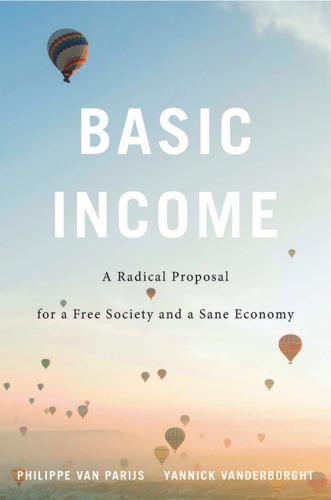
Basic Income: A Radical Proposal for a Free Society and a Sane Economy
by
Philippe van Parijs
and
Yannick Vanderborght
Published 20 Mar 2017
The taxation of capital would not face this difficulty and, Â�because of its transnational mobility, supranational taxation is especially appropriate. One form it could take is an EU-Â�wide progressive wealth tax. Thomas Piketty estimates that such a tax, at sustainable rates, could yield up to 2 Â�percent of the EuÂ�roÂ�pean Union’s GDP, or the equivalent of a monthly basic income of about 40 euros.49 The fact that so few member states have such a tax so far might be an argument in its Â�favor, as Â�there would be less disparate arrangements to harmonize. But it might also be an indication that instituting an EU-Â�wide wealth tax would be even more difficult than instituting an EU-Â� wide income tax; in both cases, the big challenge would be agreeing on a common operational definition of the tax base.
…
The most obvious one consists of reducing the asymmetry in the tax treatment of capital income and labor Â� income, whether by applying a progressive schedule to the total of capital and Â�labor income, by assimilating capital gains—Â�that is, the increase in the value of one’s capital—to taxable income, or by scrapping a set of loopholes and unnecessary exemptions. A second way in which one can increase the contribution of capital is by taxing capital directly through a steeply progressive personal-wealth tax. Obviously taxing a stock is not like taxing a flow. For the yield to be sustainable, the rate must remain modest.23 Third, Â�there is 147 BASIC INCOME the corporate tax. If firms’ profits cannot adequately be taxed at the point at which they swell their individual beneficiaries’ income or wealth, they should be taxed before they leave the firms.
…
But inheritance in the narrow sense is sometimes proposed as an earmarked source of funding for a universal basic endowment (see chapter 2) more than for a basic income (for example, by Bruce Ackerman and Anne Alstott and by Anthony Atkinson).24 From the standpoint of the person making a donation or a bequest, it may seem an anomaly to have her wealth taxed more when generously giving it away than when selfishly consuming it. But from the standpoint of distributive justice between heirs, it is definitely an anomaly that money received in exchange for nothing should be taxed (if at all) at a far lower rate than is money received in exchange for productive effort.

Slouching Towards Utopia: An Economic History of the Twentieth Century
by
J. Bradford Delong
Published 6 Apr 2020
He favored an immediate and substantial wealth tax on all real, industrial, commercial, residential, and financial property to pay off the debt. The rest of the cabinet, including Minister of Foreign Affairs Otto Bauer, said yes to the wealth tax. But they wanted the proceeds to be used for “socialization”: buying up large Austrian companies, making them more efficient, and then using the profits from higher efficiency to first raise workers’ wages and only second to pay off the debt. Schumpeter parried that if socialization was “efficient,” then it did not need to be financed by the wealth tax. It would be what we now call an LBO, a leveraged buyout, and efficient LBOs finance themselves.
…
It would be what we now call an LBO, a leveraged buyout, and efficient LBOs finance themselves. Schumpeter was fired. The cabinet dissolved into squabbling. The wealth tax was never levied. Instead, money printing presses went: “brrrrrr…” Before World War I, the Austrian crown had been worth a little less than 20 US cents. By the late summer of 1922 the crown was worth 0.01 of a cent. The League of Nations—the international organization established at the end of World War I—provided a hard-currency loan on the condition that the Austrian government surrender control over its own currency and finances. The budget was balanced by severe cuts in expenditures and higher taxes, and Austria remained depressed, with high unemployment, for half a decade.
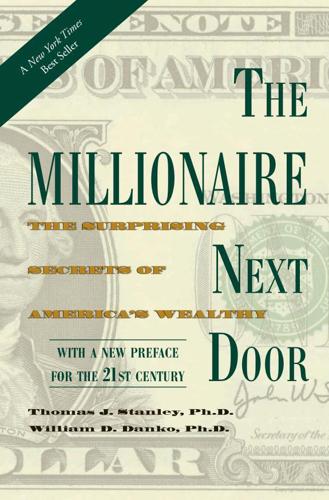
The Millionaire Next Door: The Surprising Secrets of America's Wealthy
by
Thomas Stanley
and
William Danko
Published 15 Nov 2010
She also gave $10,000 to every one of her children, grandchildren, and nieces and nephews. She’s real country—loaded with relatives, like a lot of mountain people. Mr. Stern: And what did we finally end up with? Mr. Young: You’re not listening, Bob. We, the government, got zippo! Can you believe it? Her own government. There’s just no justice in America. We need a wealth tax. Mr. Stern: Well, she sounds like a pretty nice person to give so much money to a church, colleges, and charities. Mr. Young: Bob, shame on you. She and her ilk are the enemy. America needs their wealth to keep our government operating. We need her money to pay off the federal debt. We need to fund all our social programs.
…
The government will likely place increased pressure on the affluent, possibly by creating innovative ways to tax wealth in addition to income. This prospect, according to our surveys of millionaires, is foremost on the minds of the affluent. Paying increasingly higher taxes to cover government spending and reduce the federal deficit is among the greatest fears of the affluent population. Several states already have a wealth tax. Each year residents in such states must list all the financial assets they own; a tax is levied on stocks, bonds, time deposits, and so on. How difficult would it be for our federal government to tax wealth this way? Not too difficult, since it already knows how some states tax capital before it becomes realized income.
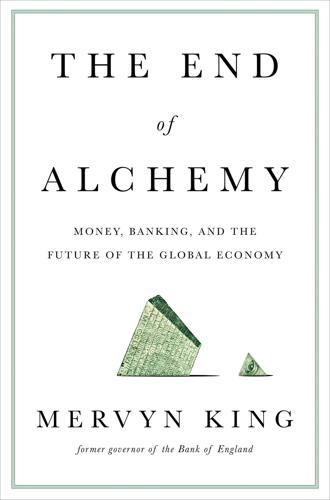
The End of Alchemy: Money, Banking and the Future of the Global Economy
by
Mervyn King
Published 3 Mar 2016
Other things being equal, a fall in real interest rates would be expected to stimulate both consumption and investment spending. But other things are not equal. For example, the imposition of a negative real interest rate – effectively a wealth tax – on all forms of financial wealth expropriates the incomes of savers and might alter expectations of future effective rates of wealth taxes. If you are told, for example, that all your assets held in accounts fixed in money terms will be subject to a 5-percentage-point wealth tax, you might, it is true, decide to spend today, but you might well, fearful of what the government could do next year, batten down the hatches and cut spending.
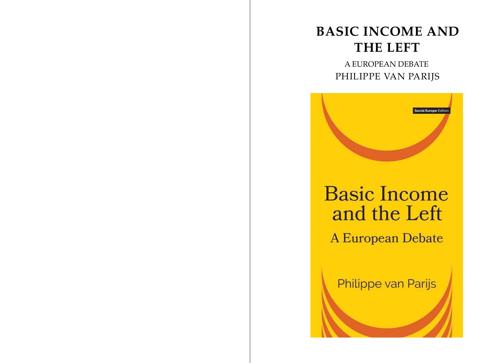
Basic Income And The Left
by
henningmeyer
Published 16 May 2018
The second argument Hassel makes is that basic income would cause a bad economic redistribution mechanism: the middle class would pay for the basic income but wouldn’t benefit materially. What does she mean by ‘middle class’? However we finance basic income – via an increase in income tax, eco- Work And Income taxes, consumption taxes, capital gains/wealth tax or A possible starting point for breaking with the capi‐ talist-dominated work society is to separate basic individual and societal needs from paid work. The partial decoupling of work and income that might be at least partially achieved by an unconditional 74 inheritance tax – the members of the small richer part of society will pay more than they get back as their own basic income.
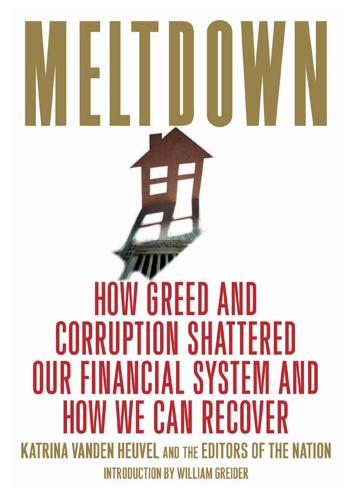
Meltdown: How Greed and Corruption Shattered Our Financial System and How We Can Recover
by
Katrina Vanden Heuvel
and
William Greider
Published 9 Jan 2009
But that kind of transforma tion could succeed only as part of a broader transformation of financial relations that would include, as a start: the establishment of nonprofit banks that would provide low-cost checking and savings accounts as well as low-interest loans for community and regional development; tight regulation of the existing for-profit banks; taxes on securities trading to cool speculative fevers; tight controls on international capital flows; reform of corporate boards to include worker, community and public sector representatives; a radically new approach to the management of pension funds; and a wealth tax that would simultaneously reduce the influence of the moneyed and provide funds for a vast rebuilding of our social and physical environment. Short of these reforms—which, it must be emphasized, would be taken by Wall Street as revolutionary—reform of the Fed alone would turn out to be little more than cosmetic.
…
Normal property taxes leave this financial wealth untaxed. The result: average Americans pay a tax on their wealth; rich Americans don’t. About a dozen European nations sidestep this double standard by levying a small annual tax on all wealth holdings. In the United States, economist Edward Wolff has calculated, a wealth tax that exempted the first $250,000 of household wealth, then imposed a graduated rate that topped off at 0.8 percent on fortunes over $5 million, would raise about $60 billion a year. Step 11. Leverage the power of the public purse. Our tax dollars, by law, do not go to companies that increase racial or gender inequality.
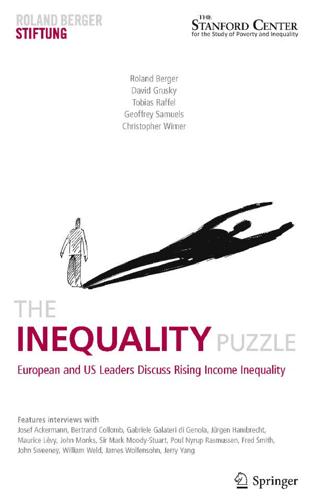
The Inequality Puzzle: European and US Leaders Discuss Rising Income Inequality
by
Roland Berger
,
David Grusky
,
Tobias Raffel
,
Geoffrey Samuels
and
Chris Wimer
Published 29 Oct 2010
Actually, when in France we hear more about executive compensation, I am not sure if it is about the issue itself or about inequality. We also have a controversy about our tax system. In addition to a fairly high income tax, we have had a wealth tax, since Mitterrand in 1981, which was ended by Chirac in ’86. Chirac lost the subsequent presidential election, and still thinks he lost because he had abolished the wealth tax. It was put back by the Socialists, and it has a significant impact, because the rate goes to 2% of the real market value of your assets – not the historical value like in Germany. Now even Sarkozy doesn’t dare to get rid of it, because it is popular, even though it led lots of people to go and live abroad.
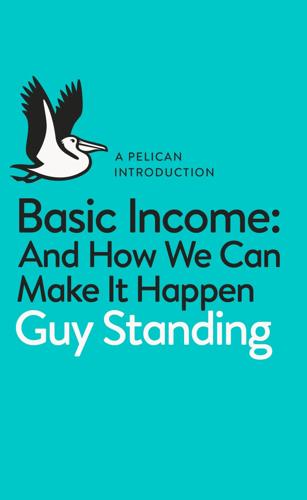
A Pelican Introduction: Basic Income
by
Guy Standing
Published 3 May 2017
To pay for it, he would save $1 trillion a year by ending most existing anti-poverty programmes, including food stamps ($76 billion), housing assistance ($49 billion) and the Earned Income Tax Credit ($82 billion).22 He would cut military spending and phase out most tax breaks, which cost $1.2 trillion a year. He also favours a federal sales tax, a financial transactions tax (which ten European Union member countries have in the works) and perhaps a wealth tax. The affordability issue essentially comes down to two sets of choices – how high should the basic income or social dividend be, and what are society’s fiscal priorities? There is nothing sacrosanct about existing tax systems, most of which are excessively complex and highly regressive. And this is without counting the enormous sums that are lost to government coffers through tax avoidance and evasion.
…
According to estimates cited by The Economist, a land value tax of 5 per cent charged on all US land would raise over $1 trillion, enough to pay every American $3,500 a year.29 This is an attractive idea, especially since property taxes in most countries are a mess, often regressive and in need of reform. But the political difficulties of introducing such a tax would be considerable. Wealth taxes, inheritance taxes, a tax on financial transactions and a tax on robots have all been mentioned as possible sources of finance for a basic income. Another suggestion is for Google, Facebook and other corporations to pay for the data users now provide for free, from which they make the bulk of their profits, which could then be shared out as a basic income.30 In Denmark, an ingenious funding mechanism has been proposed by the SamfundsTanken (The Society Thought Think-Tank) run by Soren Ekelund, a venture capitalist.31 This could be called a ‘social venture fund’ approach.
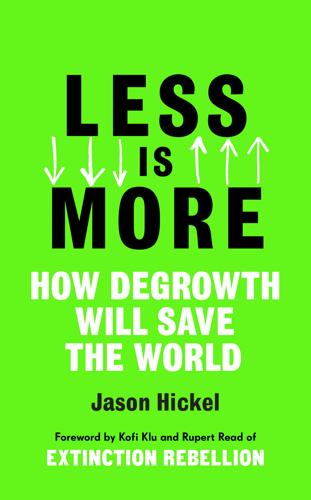
Less Is More: How Degrowth Will Save the World
by
Jason Hickel
Published 12 Aug 2020
This is the kind of broad thinking that’s required to achieve the rapid transition we need. The coronavirus crisis made it evident that if governments are determined enough and driven enough by circumstances — and by the will of their peoples — then they can do things that they have been calling impossible for years: a citizens’ income, debt cancellation, wealth taxes, nationalisations where necessary, you name it. Jason sets out here how something similar but even bigger could characterise our way of exiting from the inanities and insanities of ‘growthism’: how we could build a better and more equal society which has far less impact upon our ecosystems and which makes people happier.
…
Serfdom was an ecological disaster because lords forced peasants to extract more from the land than they otherwise needed – all in order to pay tribute. This led to a progressive degradation of forests and soils. So it goes today: we are made to plunder the Earth simply to pay tribute to millionaires and billionaires. One way to solve this problem is with a wealth tax (or a solidarity tax, perhaps). The economists Emmanuel Saez and Gabriel Zucman have proposed a 10% annual marginal tax on wealth holdings over $1 billion. This would push the richest to sell some of their assets, thus distributing wealth more fairly. But in an era of ecological crisis, we must be more ambitious than this.
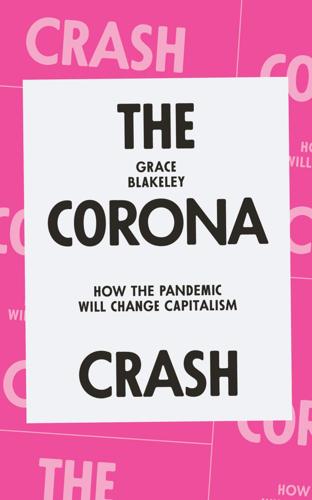
The Corona Crash: How the Pandemic Will Change Capitalism
by
Grace Blakeley
Published 14 Oct 2020
Johnson and Sunak are under pressure from the Treasury and the City to undertake another fiscal clawback – what George Osborne terms ‘a period of retrenchment and [of] trying to bring public sector debt down’, to reassure bondholders.19 But as policymakers should have learnt by now, swingeing cuts to state spending can actually exacerbate the scale of public debt relative to GDP by curtailing output and causing further falls in tax revenues.20 The government could attempt to boost receipts through some form of higher corporate taxation but unless it fails to tackle avoidance, this will not increase revenues by much. Wealth taxes are unacceptable given the demographics of the Tory voter base and the interests of British capital, while raising income tax, national insurance or VAT would impose more pressure on already strained incomes. Many workers will find themselves unemployed by the time the crisis is over, and a continued assault on workers’ rights is one of the few ways the government can support profits without expanding the size of the state.
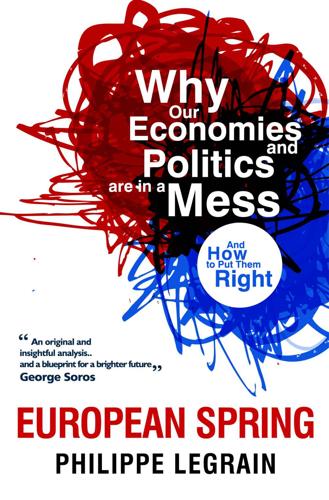
European Spring: Why Our Economies and Politics Are in a Mess - and How to Put Them Right
by
Philippe Legrain
Published 22 Apr 2014
I said so at the time, not least when I first met President Barroso in Brussels on 15 October 2010, as well as in print.140 In case you aren’t persuaded by the numbers, remember that a government’s solvency depends on its ability to raise taxes, which ultimately depends on its citizens’ willingness to pay them. Had Greece been a country where default was perceived as a national disgrace and where its billionaire ship-owners felt such a sense of civic duty that they (and poorer citizens) were willing to buy “patriotic” bonds at low interest rates and pay a solidarity wealth tax for many years to help right the Greek ship, it might have been different. But in a country with a corrupt and dysfunctional government, where the rich and powerful often avoid tax entirely, where the poor people who can’t avoid paying it rightly perceive it as theft, and where paying more taxes to repay debts incurred to stuff the pockets of politicians and the other parasites who fed off the system – worse, debts owed largely to foreign creditors – therefore seemed not patriotic but stupid, it was obvious that Greece was insolvent.
…
Reforms to corporate governance would reduce bosses’ bloated pay, as David Sainsbury suggests in Progressive Capitalism.724 Injecting competition into monopolistic markets and taking away the privileges of labour-market insiders likewise. But that would still leave two big problems: undeserved earnings from land and inherited wealth. Tax land, not labour It is perverse that all European governments tax labour so heavily and not land. As a result, some strive less – and since hiring is more expensive, fewer jobs are created. The poorest and least productive (including the young) are most likely to be priced out of a job. Cutting taxes on work would create more jobs, especially for those people.
…
This model uses information about the characteristics of land (location, transport links and so on) that is sold to estimate the value of other land. 728 http://aysps.gsu.edu/isp/files/ISP_CONFERENCES_PROPERTY_TAX_06_TIITS_PAPER.pdf 729 http://www.ifs.org.uk/bns/bn09.pdf 730 http://www.ippr.org/images/media/files/publication/2013/03/wealth-taxes-context_Mar2013_10503.pdf 731 OECD, Economic Policy Reforms: Going for Growth, 2010, Chapter 5. http://www.oecd.org/tax/public-finance/chapter%205%20gfg%202010.pdf 732 http://www.bis.org/publ/bppdf/bispap69.pdf 733 European Parliament Eurobarometer (EB79.5), June 2013, QD5T 734 One European Commission study in 2007 found that the single market had boosted EU GDP by 2.2 per cent (€233 billion) and created 2.75 million jobs between 1992 and 2006. 735 European Parliament Eurobarometer (EB79.5), June 2013, QA14.
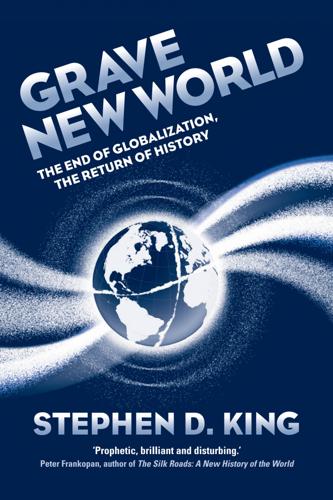
Grave New World: The End of Globalization, the Return of History
by
Stephen D. King
Published 22 May 2017
Those who attempted to head off in a different direction were, all too often, humbled by the invisible hand of international capitalism. In the early 1980s, President Mitterrand tried to impose his brand of socialism on the French economy: a vast array of companies were nationalized, the minimum wage was raised, a solidarity wealth tax was introduced and social benefits were increased. The intention was to reduce unemployment. Instead, the franc ended up being devalued on no fewer than three separate occasions, leading to ever-higher inflation and inexorably rising unemployment. Two years into his presidency, Mitterrand was forced into a U-turn with the adoption of the tournant de la rigueur (the austerity turn).
…
Some have suggested that the best solution to this problem may be to abolish notes and coin altogether, thereby removing the effective ‘floor’ underneath the level of interest rates.9 There would, of course, be certain advantages – most obviously criminal acts currently financed or laundered through the transfer of suitcases full of $100 bills might be reduced. But there is an obvious disadvantage: governments and central banks would be free to dip into people’s bank accounts at will, using negative interest rates as a technical – and largely non-democratic – alternative to a wealth tax to penalize those who have held onto their savings for a rainy day. The biggest loser from central banks’ experimental activities is, however, international capitalism itself. As central banks choose to purchase an ever-wider range of assets in a bid to stabilize the system as a whole, the allocation of capital is likely to deteriorate: Adam Smith’s invisible hand is slowly being dismembered, one digit at a time.
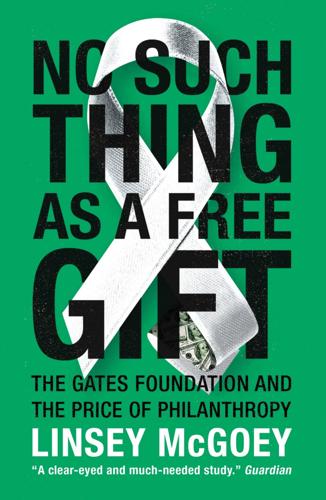
No Such Thing as a Free Gift: The Gates Foundation and the Price of Philanthropy
by
Linsey McGoey
Published 14 Apr 2015
Through initiatives like the Giving Pledge – Gates and Buffett’s exhortation to their fellow billionaires to give at least 50 per cent of their fortunes to charity – Gates offers a powerful antidote to the mushrooming legions of economic doomsayers who suggest that growing wealth gaps are the biggest threat to global sustainability today. ‘Back off’, Gates and his fellow pledgers protest when faced with criticism from economists such as Thomas Piketty and James Galbraith. ‘We’re giving it away’. Gates has made his rejection of Piketty’s call for a wealth tax clear on a number of occasions, including during a widely reported conversation with Piketty which the latter recounted at a conference in London in early 2015. Piketty told his audience that Gates said to him, ‘I love everything that’s in your book, but I don’t want to pay more tax’. Piketty added: ‘I think he sincerely believes he’s more efficient than the government, and you know, maybe he is sometimes’.
…
B., 46, 47 Duncan, Arne: and charter schools, 139; and No Child Left Behind, 121; and performance pay for teachers, 139; and Race to the Top, 144 Duti, Vida, 177–8 Dvorak, John, 183–4 economics: and agricultural commodities, 212–3; and capital gains tax, 22; and commodities markets, 210–4; and currency speculation, 22; and economic development, 30, 38–9; and global financial markets, 27, 86; and governmental and philanthropic aid, 38–9, 84–7; and Henry George, 115; and impact investing, 80–1; and income inequality, 24, 39; and laissez-faire policies, 51, 93, 179, 236–8; and Ludwig von Mises, 236; and microfinance, 7–8, 21, 63, 68, 77–81, 83–4; and patents, 180; and positive capacity of business, 17, 86–7; and pro-market solutions, 86; and social entrepreneurs, 63, 66–72, 86–7; and state planning, 235–6; and supply-side economics, 111–2; and tacit knowledge, 235–6; and tax cuts for the wealthy in the UK, 76; and treatment of poor countries by IMF and World Bank, 171–2; and virtues of free-market, 239 education: and African Americans, 10, 54, 118; and American Legislative Exchange Council’s conservative agenda, 132; and Arne Duncan, 139; and Broad Foundation, 9, 122, 139; and charter schools, 118, 123–8, 131; and college acceptance rates, 134; and Common Core, 137–8; and debate over class size, 127–8; and efforts of Carnegie and Rockefeller, 27–8; and evaluation of teachers using value-added modelling, 140–2, 144; and firing of teachers, 139; and for-profit schooling, 133; and funding for the Measure of Effective Teaching study, 140–1; and Gates Foundation, 27–8, 121–2, 132–47; and gathering of data on students, 133–4; governmental spending on, 8–9; and growth of charity schools, 92; and higher education, 121, 242; and John Dewey, 72; and Michigan’s schools, 133; and No Child Left Behind programme, 118–22, 139, 240; and online schools, 129–31; and Peer Assistance and Review programme, 144; and performance pay for teachers, 139, 145; and poverty, 7, 128–9; and primary and secondary schools, 9, 24, 115, 122, 129–30; and privatization of public education, 116; and Progress in International Reading Literacy Study, 128; and public education, 109; and public shaming of teachers, 142, 144–5; and Race to the Top, 139, 144; and standardized testing for students, 134, 139; and teacher effectiveness, 134, 139, 140–2, 144; and teacher performance, 132, 138–42, 144, 145; and teachers’ remuneration, 127, 134, 139; and US students compared to international peers, 128; and value of teachers, 126–7, 140; and views of Maria Montessori, 72; and William Bennett, 130 Edwards, Michael, 8–9, 229, 241 Eisenberg, Pablo, 229–30, 234 Eli Lilly, 104–5 Elkington, John, 66–7 Emerson, Jed, 80–1 Emerson, Ralph Waldo, 11–12, 245 Ford, Henry: business practices of, 56–8; and the Dearborn Independent, 57; and employees’ productivity, 56; as an opponent of labour unions, 56; and philanthropy, 11, 56, 117; and shorter work week, 56; as supporter of high wages, 56–7 Ford, Henry, II, 60–1 Ford Foundation: establishment of, 56; and McGeorge Bundy, 61; money of, 22; and philanthropy, 28; projects of, 58 Ford Motor Company, 56–7, 60–1 Foucault, Michel, 114, 147 Foundation for Excellence in Education, 132, 133 Foundation Strategy Group, 89–90 France, 220, 237 Freeland, Chrystia, 64, 108, 199–200 Frick, Henry Clay, 10–11, 42–3 Fries, Foster, 108, 109, 111 Galbraith, James, 24, 111 Gandhi, Mahatma, 68, 72 Gates, Bill: as a businessman, 246; and campaign for a global tax on currency speculation, 22; and Coca-Cola, 174, 222; and Common Core, 137; donations of, 22–3, 85, 108, 117; and efficiency of philanthropic spending, 24; and ethical investing, 175; and favoring increase in class size, 127–8; and fight against AIDS, 193; and fight against polio, 154, 155, 157, 159; and focus on Africa, 223–4; fortune of, 9, 177, 183; and funding for Purchase for Progress programme, 207–8; and the Giving Pledge, 24, 117; and global health issues, 177, 192; as head of Gates Foundation, 21, 107, 244; and home in Seattle, WA, 134, 245–6; and interest in Carnegie’s writings, 41, 111; and intervening to try to delay guidance on antiretrovirals, 196–7; and investment in companies with bad records on health issues, 173; and patent rules, 205; philanthropic ethos of, 183, 245; and philanthropy, 5–7, 9–10, 23–4, 26, 116–7, 146, 159; and position on intellectual property, 198–9; and pre-exposure prophylactic treatments for HIV, 194; and presence at G20 consultations, 154; and primary and secondary schools, 9, 24; and public shaming of teachers, 142, 144–5; and science grants for minority students, 59; and small schools, 134–6; and support for HIV prevention, 193; and support for increasing the capital gains tax, 22; and support of charter school movement, 125–6; and support of tighter firearms controls in WA, 23; and taxes paid by Gates Foundation, 85; and teacher performance, 126; and teachers’ remuneration, 127; and time at Harvard, 63, 181, 182, 183; as trustee of Gates Foundation, 8, 174; and views on foreign aid, 27; and views on patents, 26, 181, 186; and wealth tax, 24; and William H. Gates Foundation, 116 Gates, Frederick T., 15, 55, 71 Gates, Melinda: and investing in primary and secondary education, 116; and philanthropy, 146, 159, 245; and polio eradication, 159; and small schools, 134, 136; and speaking out for contraception use, 22; and talk at the World Health Assembly, 244; and taxes paid by Gates Foundation, 85; and TED talk on non-profits, 227; as trustee of Gates Foundation, 8, 174 Gates Foundation: activities of, 23, 24, 101, 199; and affordable medicines, 24, 193; and agriculture, 21, 207, 209, 216, 217; and Alliance for a Green Revolution in Africa, 217, 222; and Cargill partnership, 216; and Coca-Cola, 26–7, 222, 227–9; and Common Core, 137; and connections to Goldman Sachs, 215–6; and contributions to American Legislative Exchange Council, 132; and contributions to World Health Organization, 8, 224; and costly vaccines, 160–1; criticisms of, 21–8, 135, 136–7, 146–7; and donations to teachers’ unions, 137; and donations to US Chamber of Commerce, 137; as a donor to the Foundation for Excellence in Education, 133; as a donor to the Global Fund to Fight AIDS, Tuberculosis and Malaria, 193; and education, 7, 27–8, 122, 132–47; and empowering regional organizations, 177; and emulation of Microsoft’s strategies, 143; and exclusion of scientists from low-income countries, 176; and experimental medical trials, 153; and fight against AIDS, 193; and fighting malaria, 7, 153; and financial concerns, 192; and funding for an electronic database of students, 133–4; and funding for global health programmes, 153, 154; and funding of HPV vaccine trials in India, 161, 169, 229; and funding of journalism, 26; and funding the Measure of Effective Teaching study, 140–1; funding priorities of, 175–6, 244; and Gates’s fortune, 9, 85; and giving money to states, 139–4; and Global Alliance for Vaccines and Immunization, 177; and Goldman Sachs, 209–10; and grants to countries and universities in developing regions, 175, 244–5; and grants to Ogilvy and ABC News, 84, 202–3; and grants to organizations in high-income countries, 175–6; and grants to organizations in US, 175, 178; and grants to Vodacom, 82, 84, 85, 203; and grant to TechnoServe, 227–8; history of, 116–7; and HIV/AIDS, 7, 196; and holdings in oil companies, 21; and impact on India’s health policies, 169–70; importance of, 21, 28; and improving sanitation, 153; and International Red Cross-Ghana, 177, 178; and investment in Berkshire Hathaway, 173; and investment in biotechnology companies, 175; and investment in small schools, 134, 145; investment problems of, 244; and lack of accountability, 146–7, 215, 240–1; and lack of grants for researchers outside Europe and North America, 21–2; as largest philanthropic supporter of US primary and secondary education, 122; and Learning Communities, 135; and letter by Gates on education, 121–2; and media efforts, 202, 205; and mission related investing, 175; money of, 22, 25, 31, 117; and Monsanto, 27, 206, 209–10, 218, 221, 229; and multinational partners, 19, 82, 85; and national immunization programmes, 160–1; and News Corp, 133; and NewSchools Venture Fund, 142; and opposition to Harvard’s proposal for HIV treatment, 192; and participation in Alliance for a Green Revolution, 218; and partnership with Broad Foundation, 139; and partnerships with exploitative companies, 172–3; and partnership with Rockefeller Foundation, 217; personnel system of, 142–4; and philanthrocapitalism, 7; and philanthropy, 147, 183; and polio efforts, 156, 157; power of, 230; and primary and secondary for-profit schools, 9; and private charter schools, 118; and programme-related investment, 175; public profile of, 154; and public shaming of teachers, 144–5; and research of PATH in India, 166; and research on non-communicable diseases, 223; as a results-driven organization, 145–6; and sales of shares of McDonalds, 174; and scientific research, 197; and shaping of global health field, 27–8, 153, 169–70; and shares in Berkshire Hathaway, 215, 228; and shares in Monsanto, 216; and solutionism, 240; and spending on global health issues, 149, 153, 175, 178; and stake in Coca-Cola, 173, 174; and stake in GEO Group, 173; and stake in McDonalds, 173; and Stand for Children, 142; and standardized testing, 134, 145; and support of contraception, 102; and tax-deductible grants, 27, 85; tax exemptions for, 228; and teacher effectiveness, 134; and teacher performance linked to standardized test scores, 145; and teachers’ remuneration, 118, 134; top-down approach of, 136–7; and treatment for HIV, 194; and trials of genetically modified bananas, 228; trustees of, 8, 174, 215; and US public education, 21, 22, 118, 121–2, 170; and value-added modelling, 140, 142; and withdrawal of money for small schools, 134 Gates Library Foundation, 116–7 Germany, 154, 240 Ghana: and Accra, 1–3, 5, 150; and Coalition of NGOs, 176–7; feelings about Gates Foundation in, 21; free public healthcare in, 170–1; gold, diamond and oil wealth of, 2, 3; and government development of water delivery services, 177; health burdens in, 2; and health experts working for foreign NGOs, 170–1; immunization in, 5; inequality in, 2, 3; and International Red Cross-Ghana, 177; and loan requirements from the IMF and World Bank, 170; middle-income status of, 2, 3; outbreak of cholera in, 2; and polio, 5 Goldhaber, Dan, 126–7 Goldman Sachs: and creation of the Goldman Sachs Commodity Index, 212; and exemption from position limits in market, 212–4; and Gates Foundation, 209, 216; and investment in by Buffett, 215; and market distortions, 243 Google, 64, 83, 242 Gore, Al, 63, 188–9 government: and accountability, 102; aid and welfare programmes of, 146; and big government, 236; and Coleman Report on schools, 126–7; and corporations exploitation of trade treaties, 101; and decline in state funds, 98; and donor-advised funds, 231–3; and education reform, 139–40; and funding of for-profit schools, 131; and funds for K12 company, 130; and idea of a single land tax, 115; and India’s eradication of polio, 155–6; as instrumental in Google’s success and in discovery of molecular antibodies, 83; and intervention, 60, 242; and investment in private companies, 83; and military might, 51; and money available for spending on social programmes, 230, 243; and national immunization programmes, 160–1; and need for regulation, 93–4; and non-profit sector, 241; and oversight of private foundations, 233; as a partner with philanthropic institutions, 70–1; and patents, 179; and pressure to contribute to global health, 154; and privatization of social services, 113–4; and requirements for pharmaceutical companies, 105; and separation of church and state, 237; and solutionism, 240; and state planning, 239–40; and subsidies for energy, pharmaceutical and agriculture sectors, 203; and subsidies for microfinance, 83–4; and tax structures favourable to philanthropists, 241; and trade tariffs, 49–51; and US Department of Education, 139, 141; and US railroad contracts, 113, 115 government aid: and dependency theory, 39; and effects on developing countries, 38–9, 105; and social duty, 110; and tied aid, 105 Grameen Bank, 7, 77, 78 Green, Michael, 6, 7, 8, 111 Green Revolution: and Africa, 218, 223; and agricultural techniques, 223; and displacement of people from the countryside, 217; ecological implications of, 217; failures of, 240; in India and Latin America, 217, 240; and new, high-yield crop varieties, 217; and Norman Borlaug, 218 Guggenheim, Davis, 125–8 Hamied, Yusuf, 190, 191 Hanauer, Nick, 108, 109 Harper, Diane, 163–4 Hartigan, Pamela, 66–7 Harvard School of Public Health, 151, 152 Hayek, Friedrich, 60, 90, 91, 235–9, 240, 241 Healy, David, 104–5 Henderson, Donald, 155, 157, 158, 159 Hitler, Adolf, 57, 58 HIV/AIDS: in Africa, 192–3, 223; deadliness of, 157; and HIV research, 191–2; and International Aids Society meeting, 194, 195; and money spent by Gates Foundation, 149, 193; and President’s Emergency Plan for AIDS Relief, 153–4; prevention of, 192; and price of HIV drugs, 189, 190–1, 193; and proposal calling for rich countries to procure and distribute HIV drugs, 191; treatment of, 153–4, 188, 190–6; and UN’s AIDS agency, 191 Hohn, Chris, 99–101 Homestead Plant, 10–11, 43–4, 69 Hoover, Herbert, 109, 110 Hyman, Steven, 101, 102 India: anti-fertility programmes in, 152; and Cipla, 190; and clinical trials for drugs, 168–9; and compulsory licenses for medicines, 201; and food issues, 217; Green Revolution in, 217; and HPV vaccine trials involving girls, 161–2, 229; and Khanna study of contraception, 151–3, 240–1; and lawsuits against Coal India, 100–1; and legislation regarding clinical trials, 169; and microcredit loans, 78–9; and Ministry of Health, 151; and Monsanto seeds and fertilizers, 217, 218; and need for large families, 152; and neglecting immunization, 159; Nestlé’s involvement in, 96; pharmaceutical sector in, 179; and polio, 155–6, 158, 159; public interest litigation petitions for, 164; and report on ethics violations of PATH, 167; rise of wealth in, 17; and suicide rates of farmers, 218; and Vinoba Bhave, 72 Institute of Economic Affairs, 238 International Monetary Fund: and austerity measures for poor nations, 171–2; and conditional lending, 203; and Ghana, 170; and oil and inflation crises, 171; and preservation of western banks, 172; and tax avoidance, 204–5 Jackson, Thomas Penfield, 185 Jenkins, Garry, 98, 105, 106 Jesani, Amar, 164–7 Kane, Thomas, 138, 144 Kapor, Mitch, 9, 175 Kaufman, Frederick, 212, 213, 214 Kellard, Neil, 214 Klonsky, Michael, 135, 170 Koch brothers, 21, 23, 24, 198 Kraft, 225, 227 Kramer, Mark: and charity, 15; and corporate donors, 95–6; as founder of Kramer Capital Management, 89; and leaving Center for Effective Philanthropy, 89–90; and notion of shared value, 94, 96, 97; and praise for General Electric, 97; theories of, 98 League of Nations Health Organization, 150 Lesotho, 195, 196 Levine, David, 199, 200 Love, James, 26, 188, 190–1, 200–1 Madoff, Ray, 17, 229, 231–2 Mandeville, Bernard: and essays on charity, 91–2; and The Fable of the Bees, 90–1, 93; and laissez-faire ideology, 90, 91, 93; and need for government regulation, 93, 94; and promotion of public good through individual enrichment, 16, 90; and selfishness, 92, 94 Martin, Roger, 69, 77 Masters, Michael, 213, 214 Mauss, Marcel, 19, 36–7 Mayo Clinic, 96–7 Mazzucato, Mariana, 83 McCambridge, Ruth, 71–2 McCoy, David, 21–2 McDonald’s, 173, 174, 225 McKee, Martin, 174, 224 Médicins Sans Frontières, 153, 190 Mellon, Andrew, 110, 111 Merck, 161, 163–4, 187 microfinance: and access to bank credit, 77–8; and benefits to investors in wealthy nations, 80–1; and BRAC, 67, 68; as brainchild of Muhammad Yunus, 77; and cases of Bolivia, Morocco, Nicaragua, Pakistan and Bosnia, 78; and effect on poverty, 78–81; and impact investing, 80–1; and interest rates, 79, 84; and subsidies from philanthropic foundations and government, 83–4 Microsoft: anti-trust suits against, 9; and article on ‘Microsoft’s Lost Decade’, 143; beginnings of, 181, 186; and Bill Gates, 23, 107, 116, 183, 186, 192; and Bill Gates as founder, 23, 107, 116; and blacklist of journalists, 183–4; business practices of, 9, 183–6; and Coca-Cola, 222; and Common Core material, 137; and compulsory licenses, 202; and fines for abuse of monopoly position in European market, 185; and for-profit schooling, 133; as industry powerhouse, 182; and intellectual property rights, 186; and Internet Explorer browser, 184, 185; as a member of ALEC’s Telecommunications and Information Technology Task Force, 132; as a monopoly power, 185; and patent privileges, 206; and Paul Allen, 181; products of, 246; and response to European Commission’s ruling, 185–6; and rise of the internet, 183; and settlements with the US Dept. of Justice and US states, 185; and stack ranking in personnel system, 143–4; and Windows, 183, 184, 185 Milken, Michael, 64, 130 mining industry, 33–4 Monsanto: and 2011 Oxfam report, 209; and Africa, 206, 216–22; and bioengineered corn causing cancer, 220; and case involving Brazilian farmers, 221; and contracts with farmers about reusing and selling of seeds, 219–21; and control of seed genetics, 219; environmental record of, 220; and establishment of Intellectual Property Committee, 187; fertilizers of, 21, 217; and fight against research on products of, 219; and Gates Foundation, 27, 209, 216, 218, 222, 229; legal challenges to, 221; and Round-up weed killer, 220; and sales of genetically modified BT corn, 218; and seed genetics, 208, 219; seeds of, 21, 217–9, 221; and suits against small farmers, 206; and US Department of Justice, 220; and Water Efficient Maize for Africa project, 218–9 Mont Pelerin Society, 60, 61, 236–8, 243 Morozov, Evgeny, 240, 242 Moss, Diana, 219–220 Moyo, Dambisa, 38, 39, 205 Mulgan, Geoff, 72, 73 Nestlé, 96–7, 209, 225, 226–7 Nigeria, 155, 158, 159 No Child Left Behind: and annual testing, 119; and Arne Duncan’s policies, 139; and cheating scandals, 119–21, 240; and contributions to school failure, 119; and establishment of goals to improve student outcomes, 119; and expanded federal role in education, 118–9; Gates’s support of, 121–2; and school curriculum, 121; and school funding, 119, 240 Noguchi, Hideyo, 5, 150–1 Oakeshott, Michael, 238–40 Obama, Barack, 26, 129, 139 Obama Administration: and Arne Duncan, 139; and health issues, 26; and Michelle Obama’s childhood obesity programmes, 225; and No Child Left Behind, 121; and poverty, 129; and Race to the Top, 139, 144 oil industry, 53, 59–60, 173 Olivieri, Nancy, 103–5 Orbinski, James, 153 Osberg, Sally, 69, 77 Page, Greg, 210, 212 Paine, Thomas, 200 Pakistan, 155–9 Pangestu, Tikki, 223–4 Paris Declaration on Aid Effectiveness, 177–8 Pasteur Institute, 4–5 Paul, Ron, 200, 243 Pearson, 133, 137, 138 Pepsico, 226–7 Pew, J.

Istanbul Travel Guide
by
Lonely Planet
When Mehmet II conquered the city in 1453, he recognised the last Byzantine chief rabbi, Moshe Kapsali, as the chief rabbi of İstanbul and said 'The God has presented me with many lands and ordered me to take care of the dynasty of his servants Abraham and Jacob…Who, among you, with the consent of God, would like to settle in İstanbul, live in peace in the shade of the figs and vineyards, trade freely and own property?' Alas, this enlightened state didn't last through the centuries, and Jewish Turks were made to feel considerably less welcome when racially motivated 'wealth taxes' were introduced in 1942 and violence against Jews and other minorities was unleashed in 1955, prompting many families to flee the country. More recently, Islamist terrorists have bombed synagogues on a number of occasions. Despite these recent events, the museum chooses to focus on the positive rather than the negative.
…
AD 79 Byzantium is officially incorporated into the Roman Empire ruled by the soldier-emperor Vespasian; it retains its status as a free state but pays high taxes to the empire. 330 Constantine the Great declares Byzantium the capital of the Roman Empire; the city soon becomes known as Constantinople. 380 Theodosius I declares Christianity the imperial religion; a year later, he summons an ecumenical council to Constantinople to define church orthodoxy. 524 Justinian, the most famous of the Byzantine emperors, marries a courtesan called Theodora, the daughter of a bear-keeper at the Hippodrome. 527 Justinian takes the throne and makes Theodora joint ruler; his introduction of heavy taxes leads to the Nika riots of 532 and half of the city is destroyed. 565 Justinian dies; his lasting memorial is the church of Hagia Sophia (Aya Sofya), which was to be the centre of Eastern Orthodox Christianity for many centuries. 620 Heraclius I (r 610–41) changes the official language of the eastern empire from Latin to Greek, inaugurating what we now refer to as 'The Byzantine Empire'. 717 Leo III, a Syrian, becomes emperor after deposing Theodosius III; he introduces edicts against the worship of images, ushering in the age of iconoclasm. 1204 Enrico Dandolo, Doge of Venice, leads the crusaders of the Fourth Crusade in a defeat of Constantinople; they sack the city and steal many of its treasures. 1261 Constantinople is recaptured by Michael VIII Palaeologus, a Byzantine aristocrat in exile who had risen to become co-emperor of Nicaea; the Byzantine Empire is restored. 1432 Mehmet II, son of the Ottoman sultan Murad II, is born in Edirne; he succeeds his father as sultan twice – once in 1444 and then permanently in 1451. 1453 Mehmet's army takes İstanbul and he assumes power in the city becoming known as Fatih, 'The Conqueror'; he dies in 1481 and is succeeded by his son Beyazıt II. 1520 Beyazıt's grandson Süleyman, who would come to be known as 'The Magnificent', ascends to the throne and soon builds a reputation for his military conquests. 1556 Süleyman dies while on a military campaign in Hungary; his son Selim II assumes the throne and becomes known as 'The Sot' for obvious reasons. 1729 A huge fire sweeps through the city, destroying 400 houses and 140 mosques and causing 1000 deaths. 1839 Mahmut II implements the Tanzimat reforms, which integrate non-Muslims and non-Turks into Ottoman society through civil liberties and regulations. 1853–56 The Ottoman empire fights in the Crimean War against Russia; Florence Nightingale arrives at the Selimiye Army Barracks near Üsküdar to nurse the wounded. 1914 The government allies itself with the Central Powers and joins WWI; the Bosphorus and Dardenelles are closed to shipping, leading to the Allies' decision to attack Gallipoli. 1915 Many prominent members of the city's 164,000-strong Armenian population have their property confiscated and are deported from the city. 1922 The Turkish Grand National Assembly abolishes the Ottoman sultanate; the last sultan, Mehmet VI, leaves the country on a British warship. 1923 The Grand National Assembly relocates the nation's capital from İstanbul to Ankara; shortly afterward, it proclaims the Turkish Republic. 1925 The Republican government bans Dervish orders; many of the city's historic tekkes (Dervish lodges) are demolished. 1942 A wealth tax is introduced on affluent citizens. Ethnic minorities are taxed at a higher rate than Muslims; many are bankrupted and forced to leave the city. 2011 The ruling soft-Islamist Justice & Development Party (AKP), led by İstanbul-born Prime Minister Recep Tayyip Erdoğan, wins a third term in government. 2013 Large demonstrations by İstanbullus protesting a plan to redevelop Gezi Park on the northeastern edge of Taksim Meydanı (Taksim Sq) are met with a violent response by the government. 2014 Recep Tayyip Erdoğan, coming to the end of his long term as Turkey's prime minister, runs as a candidate in Turkey's presidential election and wins office.
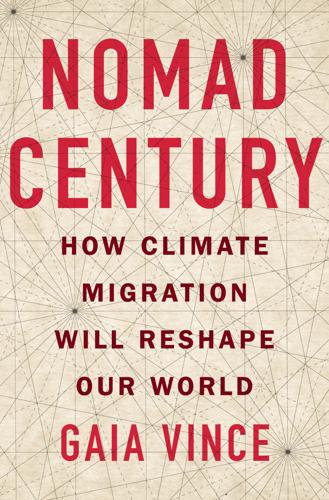
Nomad Century: How Climate Migration Will Reshape Our World
by
Gaia Vince
Published 22 Aug 2022
One per cent of the world’s farms control 70 per cent of the world’s farmlands, and are integrated into the corporate food system with little connection to the land, which drives destructive practices purely for short-term profit.11 Tech giant Bill Gates is the biggest private owner of farmland in the US. Indigenous land managers, by contrast, prioritize protecting the land for the next generation while meeting the needs of the present – these land managers sustain 80 per cent of the world’s biodiversity.12 One solution to the unequal distribution of land is a land wealth tax, which would prompt landowners either to sell their land for useful funds or lease it to others who would make better use of it. Additionally, charging and taxing land owners for water extraction and for environmental costs such as discharging into rivers or emitting nitrates and greenhouse gases would help clean up agriculture.
…
Poor countries, many of which have substantial populations that lack even basic medical provision, need to be helped by rich countries to provide adequate facilities, particularly in fast-expanding cities, and to educate generations of healthcare workers. The way wealth is distributed in societies must be transformed through policy, using tools such as inheritance tax, wealth tax and land tax. A carbon tax and water pricing would help preserve ecological assets, too. There is no justification for billionaires in societies where many struggle to feed themselves – this pathological accumulation of wealth could be far better used by society with no harm to lifestyle. We are still a long way from achieving economic growth without environmental destruction, but there are ways of getting there.

The Rise and Fall of the British Nation: A Twentieth-Century History
by
David Edgerton
Published 27 Jun 2018
In 1909 the Liberal chancellor of the exchequer, David Lloyd George, attacked, weakly, the wealth of some of the richest in the land. They rebelled by using the somnolent but very real power of their House of Lords. Crucially the one tax on wealth, death duties, was increased. There was no specific wealth tax. Nor was the Labour policy of the ‘capital levy’, a one-off wealth tax to bring down the wartime debt, ever put into practice. In 1948 there was a charge on especially high non-earned incomes. At the beginning of the century income tax was largely a tax on incomes from property, and from 1907 there was a lower rate of tax for earned income under £2,000, higher rates of tax on high incomes (the sur-tax) and death duties.
…
Maynard Keynes argued against the policy of deflation, and for keeping prices level, which would certainly have reduced the burden of debt and increased economic activity.46 He was brutally clear: To restore the value of pre-war holdings by Deflation means enhancing at the same time the value of war and post-war holdings, and thereby raising the total claims of the rentier class not only beyond what they are entitled to, but to an intolerable proportion of the total income of the community.47 Keynes was far from alone. Oswald Mosley criticized the bounty that went to bondholders, in the 1920s and into 1931.48 So did the Labour Party, but its solution, the Capital Levy, a wealth tax, was never to be implemented.49 It was not radicals who would put an end to this extraordinary state of affairs, but the Great Depression. The pound came off gold in 1931 and was devalued. Interest rates came right down (‘cheap money’), and much of the national debt was converted to lower interest bonds by the new chancellor of the exchequer, Neville Chamberlain.
…
It was returned to office as a minority government in February 1974, and as a government with a tiny majority in October 1974. It stood on a much more left-wing manifesto than ever before, one centred on serious intervention in the economy. It was committed to nationalizing land for development, and introducing a wealth tax. The left, which pushed for the EEC referendum in 1975, and the leader of the left, Tony Benn, made a serious attempt to get public involvement and proper taxation, and to develop the industries which might supply the very capital-intensive off-shore oil industry. Benn found that attempts to subsidize these industries met determined opposition from the EEC, which added to his sense and that of others that the EEC stood in the way of state-led national regeneration.19 There was now a split in Labour between the pro- and anti-marketeers, which would intensify and become one of the central dividers between the right and the left of the party.

WTF?: What's the Future and Why It's Up to Us
by
Tim O'Reilly
Published 9 Oct 2017
v=F7vJDtwidWU. 269 including knowledge work: Martin Ford, The Rise of the Robots (New York: Basic Books, 2015). 271 lack of aggregate consumer demand: Bill Gross, “America’s Debt Is Not Its Biggest Problem,” Washington Post, August 10, 2011, https://www.washingtonpost.com/opinions/americas-debt-is-not-its-biggest-problem/2011/08/10/gIQAgYvE7I _story.html. 271 “on the demand, rather than the supply, side”: Robert Summers, “The Age of Secular Stagnation: What It Is and What to Do About It,” Foreign Affairs, February 15, 2016, retrieved from http://larrysummers.com/2016/02/17/the-age-of-secular-stagnation/. 271 “Only around 15%”: Rana Foroohar, “The Economy’s Hidden Illness—One Even Trump Failed to Address,” LinkedIn Pulse, November 12, 2016, https://www.linkedin.com/pulse/economys-hidden-illness-one-even-trump-failed-address-rana-foroohar. 272 “the job is likely to be ill-done”: John Maynard Keynes, The General Theory of Employment, Interest, and Money (New York: Harcourt Brace, 1964), 159. 272 “long-term prospects and to those only”: Ibid., 160. 272 each additional year that an asset is held: Fink, “I write on behalf of our clients . . .” 272 such as that proposed by Thomas Piketty: Michelle Fox, “Why We Need a Global Wealth Tax: Piketty,” CNBC, March 10, 2015, http://www.cnbc.com/2015/03/10/why-we-need-a-global-wealth-tax-piketty.html. 273 “it’s good for business”: Stiglitz, “Of the 1%, by the 1%, for the 1%.” CHAPTER 13: SUPERMONEY 274 “games played between the state, the market economy, and financial capitalism”: William H. Janeway, Doing Capitalism in the Innovation Economy (Cambridge: Cambridge University Press, 2012), 3. 277 pays off all the failed bets: Carlota Perez, Technological Revolutions and Financial Capital (Cheltenham, England: Edward Elgar, 2002). 277 “Occasionally, decisively”: Bill Janeway, “What I Learned by Doing Capitalism,” LSE Public Lecture, London School of Economics and Political Science, October 11, 2012, transcript retrieved April 4, 2017. 278 Goodman’s 1972 book of that name: Adam Smith, Supermoney (Hoboken, NJ: Wiley, 2006). 281 the rise of superstar firms: Bouree Lam, “One Reason Workers Are Struggling Even When Companies Are Doing Well,” Atlantic, February 1, 2017, https://www.theatlantic.com/business/archive/2017/02/labors-share/515211/. 281 when stock-based compensation is taken into account: Bloomberg News, “Amazon, Facebook Admit Stock Compensation Is a Normal Cost,” Investor’s Business Daily, May 3, 2016, http://www.investors.com/news/technology/amazon-stops-pretending-that-stock-compensation-isnt-a-normal-cost/. 282 no longer afford to live in a city like San Francisco: Hal Varian, “Is Affordable Housing Becoming an Oxymoron?
…
A financial transactions tax calibrated to eliminate all the benefits of front-running and other forms of high-speed market manipulation would be a good place to start, but we could go much further in taxing financial speculation while rewarding productive investment with lower rates. Larry Fink, the CEO of BlackRock, suggests that at a minimum, long-term capital gains treatment should begin at three years rather than one, with a declining rate for each additional year that an asset is held. We could even institute a wealth tax such as that proposed by Thomas Piketty. And if we were to tax carbon rather than labor, rather than starting by substituting a carbon tax for income taxes, it might be better to substitute a carbon tax for Social Security, Medicare, and unemployment taxes. These rule changes might be costly to some capital owners but might well benefit society overall.
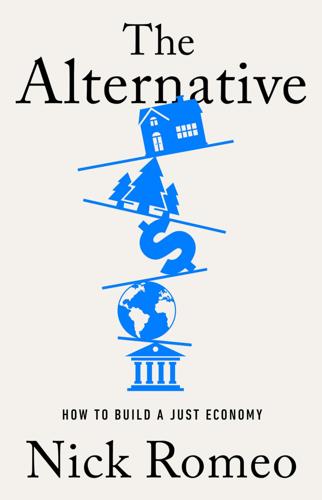
The Alternative: How to Build a Just Economy
by
Nick Romeo
Published 15 Jan 2024
In the next chapter, we consider an initiative that is questioning a fundamental feature of economies and markets around the world—the practice of externalizing costs onto other humans and the natural environment. Footnotes i Some have treated Piketty’s observation that the rate of return on capital, r, is greater than the growth rate of the economy, g, as a quasi-law, but his own policy proposal of a global wealth tax does not accept current arrangements as inevitable. ii The aspiration of “political economy” to refashion itself as a natural science also dominates the Englishman William Jevons’s 1862 A General Mathematical Theory of Political Economy, and it’s evident in the earlier work of nineteenth-century thinkers like Jean-Baptiste Say and Thomas Malthus, who attempted to identify general “laws” that govern economies.
…
Postal Service Tops List Again as Americans’ Favorite Government Agency” (press release), April 15, 2020, https://about.usps.com/newsroom/national-releases/2020/0415-usps-tops-list-again-as-americans-favorite-government-agency.htm. Chapter 6: The World’s Largest Worker-Owned Cooperative 1. Emmanuel Saez, “Taxation of Financial Capital: Is the Wealth Tax the Solution?,” debate with Lawrence Summers and Gregory Mankiw, Peterson Institute for International Economics, moderated by Catherine Rampell, Washington Post, October 18, 2019, YouTube video, 1:21:35, https://www.youtube.com/watch?v=oUGpjpEGTfE. 2. Mondragon, A Dynamic and Cooperative Reality, a Living Organism, That Cares for Its People, Competes in the Global Market, and Seeks Common Progress, Informe Anual 2021, https://www.mondragon-corporation.com/urtekotxostena/dist/docs/eng/annual-report-2021-extended.pdf. 3.

Irrational Exuberance: With a New Preface by the Author
by
Robert J. Shiller
Published 15 Feb 2000
Gandhi’s successor immediately appointed Manmohan Singh, a former professor at the Delhi School of Economics, as finance minister, and the new government announced a deregulation plan that was viewed as a substantial turn away from socialism. Foreign investment was now invited. Singh presented a budget plan that exempted financial assets from the calculation of the wealth tax. Previously, managers had tried to keep their companies’ share prices as low as possible to avoid taxation; now they took steps to encourage high prices. The budget plan also reduced regulations on the pricing and timing of new stock issues. N E W E RAS AN D BUBBL E S AR OUND T HE WOR LD 127 These reforms were certainly plausible reasons for a stock market increase, but the actual increase was widely described as excessive, and authorities warned the nation of the potential for speculative excess.
…
See Excess volatility VEFA (Albanian investment company), 66 Venezuela, 125–26 Videoconferencing systems, 157, 160 Vietnam War, 194 Viruses, 160 Vishny, Robert, 144 Vividness, 139 Volatility, 40, 42, 59; epidemics and, 161; excess, 183–90; policy toward, 232–33; quantitative anchors and, 138 Volume of sales, 59 Vortex effect, 127 Waite, Stephen, 28 Wall Street Journal, 54, 82, 83, 86, 93–94, 197 INDEX Wanniski, Jude, 84 Warburg, Paul M., 107 Warr, Richard, 240n30 Warther, Vincent, 240n27 Watson, James, 85 Wealth tax, 126 Weber, Steven, 113 Weiss, Allan, 230, 266–67n29–30 Welch, Ivo, 256n5 Wheel of fortune, 137 Whisper numbers, 239n20 Williams, Arlington, 244n22 Wilson, Timothy, 257n19 Winfrey, Oprah, 51 Winner stocks, 130 Womack, Kent, 239n18 Woodford, Michael, 244n22 Word-of-mouth communications, 98, 163, 228; epidemic models applied to, 157–62; information processing and, 153–54; media communications versus, 154–57 World Bank, 238n11 World War I, 194 World War II, 7, 107, 194 World Wide Web, 19, 212 Wurgler, Jeffrey, 237n1, 238n9, 258n14 Xerox, 177 Yale University, 264n7 Yen, 223 Y2K bug, 162 Zacks Investment Research, 30 Zaret, David, 245n1 Zeldes, Stephen, 265n15 Zemsky, Peter, 256n6 Zero earnings, 236n4 Zero era, 112–13 Zuckerman, Marvin, 254n7
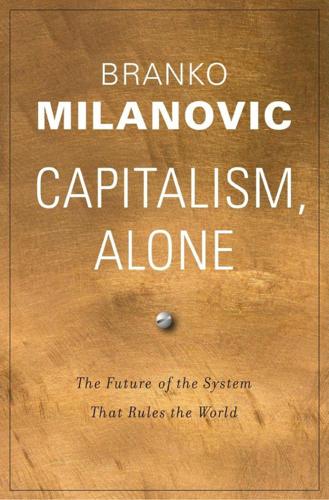
Capitalism, Alone: The Future of the System That Rules the World
by
Branko Milanovic
Published 23 Sep 2019
If there were more opportunities for the middle class to invest in financial capital, then ESOPs might be an inferior strategy. But as long as opportunities to profitably invest in small amounts are few, ESOPs make sense as a step toward less concentrated asset ownership.42 Third, an inheritance or wealth tax could be used as a means to even out access to capital if the tax proceeds were applied to giving every young adult a capital grant. (This has been proposed by Atkinson [2015] and Meade [1964].) A tax on inheritance has, in principle, many advantages. It has less effect on decisions regarding work or investment than taxes that are assessed on income, and it represents a tax on (nonearned) wealth received by future generations.
…
See also Elite; Rich Urban inequality in China, 100–102, 103 Vanishing American Corporation, The (Davis), 25 Veblen, Thorstein, 17, 171 Vecchi, Michela, 152 Venturini, Francesco, 152 Vietnam: GDP per capita growth rate in, 86–87; growth rate in, 235; increase in economic growth in, 8; political capitalism in, 96, 97; social and national revolutions in, 79–80; support for globalization in, 9 Voltaire, 228 Vonyó, Tamas, 83–84 Vries, Peer, 115 Wage inequality: in China, 102–103; education and, 50 Wage labor outside the home, 189 Wallerstein, Immanuel, 116 Wang Fan-hsi, 81 Wang Hui, 116 Wang Ming, 81 War, global capitalism and, 205–207 War Communism, 69 Warren, Bill, 76, 78, 223 Washington Consensus, 73, 116–117 Wealth: hierarchy and, 177–178; inequality and concentration of, 30–31; inherited, 62–63; intergenerational transmission of, 158–159; liberal meritocratic capitalism and concentration of, 26–31; reduction of concentration of, 216, 217 Wealth and Poverty of Nations, The (Landes), 196 Wealth-income ratio, 27, 30 Wealth of Nations, The (Smith), 113, 114, 178, 253–254n4 Wealth tax to deconcentrate capital ownership, 48–50 Weber, Max: capitalism of, 176–180; definition of capitalism, 12, 225; on distinction between production and family spheres, 189; on irregular work, 192; on political capitalism, 91, 94; on Protestantism, 254n6 “Weightless” economy, 194–195 Weiss, Yoram, 39 Welfare state: globalization and, 50–55, 155–159; migration and, 52–55, 133 Welfare system, universal basic income and, 203–205 West: malaise about globalization in, 9–10; rise of Asia and end to military, political, and economic superiority of, 6 Western path of development (WPD), 222, 223–224; Third World and, 74, 76, 78–79 When China Rules the World (Jacques), 122 Whig view of history, 68 Wilson, Woodrow, 80, 112 Wolff, Edward, 26, 32 Wootton, David, 227, 253–254n4 Workers, division of net product between owners and, 14–16 World Bank, 127; World Development Report, 202; Worldwide Governance Indicators, 160 World War I, 71, 72, 205–206, 221, 256–257n31 World War II, 205 Worldwide corruption, 159–175; enablers of, 168–170; globalization and, 130–131; imitation of consumption patterns of rich countries and, 170–173; lack of attempts to control, 173–175; limits on, 163–168 Xia, Ming, 92 Xie, Yu, 103 Xi Jinping, 93, 95, 125, 248n41 Xu Caihou, 108–109 Xu Chenggang, 123 Yang, Li, 103–104, 105 Yitzhaki, Shlomo, 33 Zasulich, Vera, 74, 245n6 Zhao Ziyang, 92, 248n39 Zheng He, 122 Zhou, Xiang, 103 “Zone of lawlessness”: China and, 117; in political capitalism, 93 Zucman, Gabriel, 103–104, 161, 168, 169
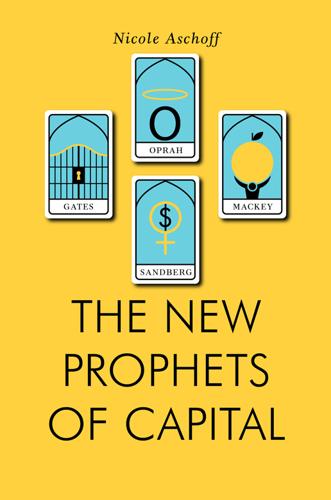
The New Prophets of Capital
by
Nicole Aschoff
Published 10 Mar 2015
This may hold for a small sample of the population, but at a systemic level it is patently false. Extreme concentration of wealth, enabled by tax laws favoring the rich, inhibits democracy and de-commodification in a fundamental way, starving the public treasury and eliminating the means to provide a good life for everyone. Since wealth creation is a collective process, a wealth tax would provide a way for wealth to be shared collectively, while a robust public treasury could ensure that the rights of all people to housing, food, health, education, and a clean environment are met. These three principles don’t constitute a magic formula, nor will such ideas and projects change the system overnight.
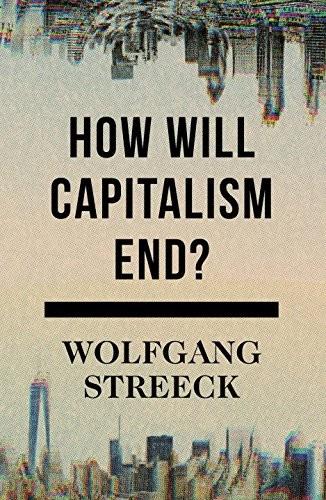
How Will Capitalism End?
by
Wolfgang Streeck
Published 8 Nov 2016
As long as they succeed in this, there is no need for American-style oligarchic neo-feudalism to be replicated, for example, in Western Europe. Given the structure of the contemporary capitalist world system, what matters for global oligarchic wealth defence, both politically and ideologically, is control over American politics to ensure, for example, that the American Congress will never agree to a global wealth tax as proposed, among others, by Thomas Piketty.46 As long as this is certain, it does not really matter who governs with what ambitions in France or Germany. The second disorder of capitalism to be briefly touched upon here is corruption. I use this concept broadly, beyond its definition in criminal law, to mean the gross violation of legal rules and the systematic betrayal of trust and moral expectations in pursuit of competitive success and personal or institutional enrichment, as elicited by rapidly growing opportunities for huge material gain in and around today’s political economy.
…
, p. 126. 12Mair, Representative versus Responsible Government. 13See ‘Jürgen Habermas im Gespräch: Europa wird direkt ins Herz getroffen’, Frankfurter Allgemeine Zeitung, 29 May 2014. One interesting irony is that Juncker ascended to the presidency shortly after the publication of Thomas Piketty’s now famous book in which he demands a general wealth tax to correct the long-term and inherent increase in inequality under capitalism (Piketty, Capital in the Twenty-First Century). On the farce of last year’s ‘European election’ see Susan Watkins, ‘The Political State of the Union’. 14Merkel, ‘Is Capitalism Compatible with Democracy?’, p. 126. 15Mair, Ruling the Void. 16The project to give the European Union a constitution began in 2001 with a resolution to this effect by the then member states of the EU.
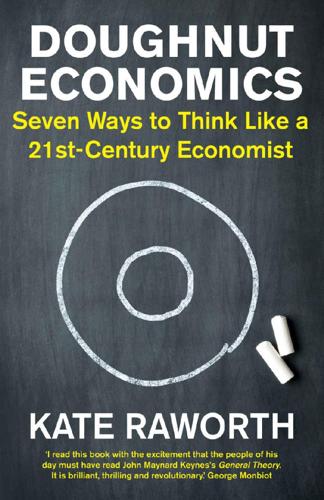
Doughnut Economics: Seven Ways to Think Like a 21st-Century Economist
by
Kate Raworth
Published 22 Mar 2017
How could additional funds – on top of 0.7% ODA – be raised in the spirit of global redistribution? Through a global tax on extreme personal wealth, for starters. There are now more than 2,000 billionaires living in 20 countries from the USA, China and Russia to Turkey, Thailand and Indonesia.93 An annual wealth tax levied at just 1.5% of their net worth would raise $74 billion each year: that alone would be enough to fill the funding gap to get every child into school and deliver essential health services in all low-income countries.94 Match that with a global corporate tax system that treats multinational corporations as single, unified firms, and closes tax loopholes and tax havens, so boosting public revenue for public purposes worldwide.95 Supplement these with taxes on destabilising and damaging industries, such as a global financial transactions tax to curb speculative trading, and a global carbon tax levied on all oil, coal and gas production.
…
Page numbers in italics denote illustrations A Aalborg, Denmark, 290 Abbott, Anthony ‘Tony’, 31 ABCD group, 148 Abramovitz, Moses, 262 absolute decoupling, 260–61 Acemoglu, Daron, 86 advertising, 58, 106–7, 112, 281 Agbodjinou, Sénamé, 231 agriculture, 5, 46, 72–3, 148, 155, 178, 181, 183 Alaska, 9 Alaska Permanent Fund, 194 Alperovitz, Gar, 177 alternative enterprise designs, 190–91 altruism, 100, 104 Amazon, 192, 196, 276 Amazon rainforest, 105–6, 253 American Economic Association, 3 American Enterprise Institute, 67 American Tobacco Corporation, 107 Andes, 54 animal spirits, 110 Anthropocene epoch, 48, 253 anthropocentrism, 115 Apertuso, 230 Apple, 85, 192 Archer Daniels Midland (ADM), 148 Arendt, Hannah, 115–16 Argentina, 55, 274 Aristotle, 32, 272 Arrow, Kenneth, 134 Articles of Association and Memoranda, 233 Arusha, Tanzania, 202 Asia Wage Floor Alliance, 177 Asian financial crisis (1997), 90 Asknature.org, 232 Athens, 57 austerity, 163 Australia, 31, 103, 177, 180, 211, 224–6, 255, 260 Austria, 263, 274 availability bias, 112 AXIOM, 230 Axtell, Robert, 150 Ayres, Robert, 263 B B Corp, 241 Babylon, 13 Baker, Josephine, 157 balancing feedback loops, 138–41, 155, 271 Ballmer, Steve, 231 Bangla Pesa, 185–6, 293 Bangladesh, 10, 226 Bank for International Settlements, 256 Bank of America, 149 Bank of England, 145, 147, 256 banking, see under finance Barnes, Peter, 201 Barroso, José Manuel, 41 Bartlett, Albert Allen ‘Al’, 247 basic income, 177, 194, 199–201 basic personal values, 107–9 Basle, Switzerland, 80 Bauwens, Michel, 197 Beckerman, Wilfred, 258 Beckham, David, 171 Beech-Nut Packing Company, 107 behavioural economics, 11, 111–14 behavioural psychology, 103, 128 Beinhocker, Eric, 158 Belgium, 236, 252 Bentham, Jeremy, 98 Benyus, Janine, 116, 218, 223–4, 227, 232, 237, 241 Berger, John, 12, 281 Berlin Wall, 141 Bermuda, 277 Bernanke, Ben, 146 Bernays, Edward, 107, 112, 281–3 Bhopal gas disaster (1984), 9 Bible, 19, 114, 151 Big Bang (1986), 87 billionaires, 171, 200, 289 biodiversity, 10, 46, 48–9, 52, 85, 115, 155, 208, 210, 242, 299 as common pool resource, 201 and land conversion, 49 and inequality, 172 and reforesting, 50 biomass, 73, 118, 210, 212, 221 biomimicry, 116, 218, 227, 229 bioplastic, 224, 293 Birmingham, West Midlands, 10 Black, Fischer, 100–101 Blair, Anthony ‘Tony’, 171 Blockchain, 187, 192 blood donation, 104, 118 Body Shop, The, 232–4 Bogotá, Colombia, 119 Bolivia, 54 Boston, Massachusetts, 3 Bowen, Alex, 261 Bowles, Sam, 104 Box, George, 22 Boyce, James, 209 Brasselberg, Jacob, 187 Brazil, 124, 226, 281, 290 bread riots, 89 Brisbane, Australia, 31 Brown, Gordon, 146 Brynjolfsson, Erik, 193, 194, 258 Buddhism, 54 buen vivir, 54 Bullitt Center, Seattle, 217 Bunge, 148 Burkina Faso, 89 Burmark, Lynell, 13 business, 36, 43, 68, 88–9 automation, 191–5, 237, 258, 278 boom and bust, 246 and circular economy, 212, 215–19, 220, 224, 227–30, 232–4, 292 and complementary currencies, 184–5, 292 and core economy, 80 and creative destruction, 142 and feedback loops, 148 and finance, 183, 184 and green growth, 261, 265, 269 and households, 63, 68 living metrics, 241 and market, 68, 88 micro-businesses, 9 and neoliberalism, 67, 87 ownership, 190–91 and political funding, 91–2, 171–2 and taxation, 23, 276–7 workers’ rights, 88, 91, 269 butterfly economy, 220–42 C C–ROADS (Climate Rapid Overview and Decision Support), 153 C40 network, 280 calculating man, 98 California, United States, 213, 224, 293 Cambodia, 254 Cameron, David, 41 Canada, 196, 255, 260, 281, 282 cancer, 124, 159, 196 Capital Institute, 236 carbon emissions, 49–50, 59, 75 and decoupling, 260, 266 and forests, 50, 52 and inequality, 58 reduction of, 184, 201, 213, 216–18, 223–7, 239–41, 260, 266 stock–flow dynamics, 152–4 taxation, 201, 213 Cargill, 148 Carney, Mark, 256 Caterpillar, 228 Catholic Church, 15, 19 Cato Institute, 67 Celts, 54 central banks, 6, 87, 145, 146, 147, 183, 184, 256 Chang, Ha-Joon, 82, 86, 90 Chaplin, Charlie, 157 Chiapas, Mexico, 121–2 Chicago Board Options Exchange (CBOE), 100–101 Chicago School, 34, 99 Chile, 7, 42 China, 1, 7, 48, 154, 289–90 automation, 193 billionaires, 200, 289 greenhouse gas emissions, 153 inequality, 164 Lake Erhai doughnut analysis, 56 open-source design, 196 poverty reduction, 151, 198 renewable energy, 239 tiered pricing, 213 Chinese Development Bank, 239 chrematistics, 32, 273 Christianity, 15, 19, 114, 151 cigarettes, 107, 124 circular economy, 220–42, 257 Circular Flow diagram, 19–20, 28, 62–7, 64, 70, 78, 87, 91, 92, 93, 262 Citigroup, 149 Citizen Reaction Study, 102 civil rights movement, 77 Cleveland, Ohio, 190 climate change, 1, 3, 5, 29, 41, 45–53, 63, 74, 75–6, 91, 141, 144, 201 circular economy, 239, 241–2 dynamics of, 152–5 and G20, 31 and GDP growth, 255, 256, 260, 280 and heuristics, 114 and human rights, 10 and values, 126 climate positive cities, 239 closed systems, 74 coffee, 221 cognitive bias, 112–14 Colander, David, 137 Colombia, 119 common-pool resources, 82–3, 181, 201–2 commons, 69, 82–4, 287 collaborative, 78, 83, 191, 195, 196, 264, 292 cultural, 83 digital, 82, 83, 192, 197, 281 and distribution, 164, 180, 181–2, 205, 267 Embedded Economy, 71, 73, 77–8, 82–4, 85, 92 knowledge, 197, 201–2, 204, 229, 231, 292 commons and money creation, see complementary currencies natural, 82, 83, 180, 181–2, 201, 265 and regeneration, 229, 242, 267, 292 and state, 85, 93, 197, 237 and systems, 160 tragedy of, 28, 62, 69, 82, 181 triumph of, 83 and values, 106, 108 Commons Trusts, 201 complementary currencies, 158, 182–8, 236, 292 complex systems, 28, 129–62 complexity science, 136–7 Consumer Reaction Study, 102 consumerism, 58, 102, 121, 280–84 cooking, 45, 80, 186 Coote, Anna, 278 Copenhagen, Denmark, 124 Copernicus, Nicolaus, 14–15 copyright, 195, 197, 204 core economy, 79–80 Corporate To Do List, 215–19 Costa Rica, 172 Council of Economic Advisers, US, 6, 37 Cox, Jo, 117 cradle to cradle, 224 creative destruction, 142 Cree, 282 Crompton, Tom, 125–6 cross-border flows, 89–90 crowdsourcing, 204 cuckoos, 32, 35, 36, 38, 40, 54, 60, 159, 244, 256, 271 currencies, 182–8, 236, 274, 292 D da Vinci, Leonardo, 13, 94–5 Dallas, Texas, 120 Daly, Herman, 74, 143, 271 Danish Nudging Network, 124 Darwin, Charles, 14 Debreu, Gerard, 134 debt, 37, 146–7, 172–3, 182–5, 247, 255, 269 decoupling, 193, 210, 258–62, 273 defeat device software, 216 deforestation, 49–50, 74, 208, 210 degenerative linear economy, 211–19, 222–3, 237 degrowth, 244 DeMartino, George, 161 democracy, 77, 171–2, 258 demurrage, 274 Denmark, 180, 275, 290 deregulation, 82, 87, 269 derivatives, 100–101, 149 Devas, Charles Stanton, 97 Dey, Suchitra, 178 Diamond, Jared, 154 diarrhoea, 5 differential calculus, 131, 132 digital revolution, 191–2, 264 diversify–select–amplify, 158 double spiral, 54 Doughnut model, 10–11, 11, 23–5, 44, 51 and aspiration, 58–9, 280–84 big picture, 28, 42, 61–93 distribution, 29, 52, 57, 58, 76, 93, 158, 163–205 ecological ceiling, 10, 11, 44, 45, 46, 49, 51, 218, 254, 295, 298 goal, 25–8, 31–60 and governance, 57, 59 growth agnosticism, 29–30, 243–85 human nature, 28–9, 94–128 and population, 57–8 regeneration, 29, 158, 206–42 social foundation, 10, 11, 44, 45, 49, 51, 58, 77, 174, 200, 254, 295–6 systems, 28, 129–62 and technology, 57, 59 Douglas, Margaret, 78–9 Dreyfus, Louis, 148 ‘Dumb and Dumber in Macroeconomics’ (Solow), 135 Durban, South Africa, 214 E Earning by Learning, 120 Earth-system science, 44–53, 115, 216, 288, 298 Easter Island, 154 Easterlin, Richard, 265–6 eBay, 105, 192 eco-literacy, 115 ecological ceiling, 10, 11, 44, 45, 46, 49, 51, 218, 254, 295, 298 Ecological Performance Standards, 241 Econ 101 course, 8, 77 Economics (Lewis), 114 Economics (Samuelson), 19–20, 63–7, 70, 74, 78, 86, 91, 92, 93, 262 Economy for the Common Good, 241 ecosystem services, 7, 116, 269 Ecuador, 54 education, 9, 43, 45, 50–52, 85, 169–70, 176, 200, 249, 279 economic, 8, 11, 18, 22, 24, 36, 287–93 environmental, 115, 239–40 girls’, 57, 124, 178, 198 online, 83, 197, 264, 290 pricing, 118–19 efficient market hypothesis, 28, 62, 68, 87 Egypt, 48, 89 Eisenstein, Charles, 116 electricity, 9, 45, 236, 240 and Bangla Pesa, 186 cars, 231 Ethereum, 187–8 and MONIAC, 75, 262 pricing, 118, 213 see also renewable energy Elizabeth II, Queen of the United Kingdom, 145 Ellen MacArthur Foundation, 220 Embedded Economy, 71–93, 263 business, 88–9 commons, 82–4 Earth, 72–6 economy, 77–8 finance, 86–8 household, 78–81 market, 81–2 power, 91–92 society, 76–7 state, 84–6 trade, 89–90 employment, 36, 37, 51, 142, 176 automation, 191–5, 237, 258, 278 labour ownership, 188–91 workers’ rights, 88, 90, 269 Empty World, 74 Engels, Friedrich, 88 environment and circular economy, 220–42, 257 conservation, 121–2 and degenerative linear economy, 211–19, 222–3 degradation, 5, 9, 10, 29, 44–53, 74, 154, 172, 196, 206–42 education on, 115, 239–40 externalities, 152 fair share, 216–17 and finance, 234–7 generosity, 218–19, 223–7 green growth, 41, 210, 243–85 nudging, 123–5 taxation and quotas, 213–14, 215 zero impact, 217–18, 238, 241 Environmental Dashboard, 240–41 environmental economics, 7, 11, 114–16 Environmental Kuznets Curve, 207–11, 241 environmental space, 54 Epstein, Joshua, 150 equilibrium theory, 134–62 Ethereum, 187–8 ethics, 160–62 Ethiopia, 9, 226, 254 Etsy, 105 Euclid, 13, 15 European Central Bank, 145, 275 European Commission, 41 European Union (EU), 92, 153, 210, 222, 255, 258 Evergreen Cooperatives, 190 Evergreen Direct Investing (EDI), 273 exogenous shocks, 141 exponential growth, 39, 246–85 externalities, 143, 152, 213 Exxon Valdez oil spill (1989), 9 F Facebook, 192 fair share, 216–17 Fama, Eugene, 68, 87 fascism, 234, 277 Federal Reserve, US, 87, 145, 146, 271, 282 feedback loops, 138–41, 143, 148, 155, 250, 271 feminist economics, 11, 78–81, 160 Ferguson, Thomas, 91–2 finance animal spirits, 110 bank runs, 139 Black–Scholes model, 100–101 boom and bust, 28–9, 110, 144–7 and Circular Flow, 63–4, 87 and complex systems, 134, 138, 139, 140, 141, 145–7 cross-border flows, 89 deregulation, 87 derivatives, 100–101, 149 and distribution, 169, 170, 173, 182–4, 198–9, 201 and efficient market hypothesis, 63, 68 and Embedded Economy, 71, 86–8 and financial-instability hypothesis, 87, 146 and GDP growth, 38 and media, 7–8 mobile banking, 199–200 and money creation, 87, 182–5 and regeneration, 227, 229, 234–7 in service to life, 159, 234–7 stakeholder finance, 190 and sustainability, 216, 235–6, 239 financial crisis (2008), 1–4, 5, 40, 63, 86, 141, 144, 278, 290 and efficient market hypothesis, 87 and equilibrium theory, 134, 145 and financial-instability hypothesis, 87 and inequality, 90, 170, 172, 175 and money creation, 182 and worker’s rights, 278 financial flows, 89 Financial Times, 183, 266, 289 financial-instability hypothesis, 87, 146 First Green Bank, 236 First World War (1914–18), 166, 170 Fisher, Irving, 183 fluid values, 102, 106–9 food, 3, 43, 45, 50, 54, 58, 59, 89, 198 food banks, 165 food price crisis (2007–8), 89, 90, 180 Ford, 277–8 foreign direct investment, 89 forest conservation, 121–2 fossil fuels, 59, 73, 75, 92, 212, 260, 263 Foundations of Economic Analysis (Samuelson), 17–18 Foxconn, 193 framing, 22–3 France, 43, 165, 196, 238, 254, 256, 281, 290 Frank, Robert, 100 free market, 33, 37, 67, 68, 70, 81–2, 86, 90 free open-source hardware (FOSH), 196–7 free open-source software (FOSS), 196 free trade, 70, 90 Freeman, Ralph, 18–19 freshwater cycle, 48–9 Freud, Sigmund, 107, 281 Friedman, Benjamin, 258 Friedman, Milton, 34, 62, 66–9, 84–5, 88, 99, 183, 232 Friends of the Earth, 54 Full World, 75 Fuller, Buckminster, 4 Fullerton, John, 234–6, 273 G G20, 31, 56, 276, 279–80 G77, 55 Gal, Orit, 141 Gandhi, Mohandas, 42, 293 Gangnam Style, 145 Gardens of Democracy, The (Liu & Hanauer), 158 gender equality, 45, 51–2, 57, 78–9, 85, 88, 118–19, 124, 171, 198 generosity, 218–19, 223–9 geometry, 13, 15 George, Henry, 149, 179 Georgescu-Roegen, Nicholas, 252 geothermal energy, 221 Gerhardt, Sue, 283 Germany, 2, 41, 100, 118, 165, 189, 211, 213, 254, 256, 260, 274 Gessel, Silvio, 274 Ghent, Belgium, 236 Gift Relationship, The (Titmuss), 118–19 Gigerenzer, Gerd, 112–14 Gintis, Herb, 104 GiveDirectly, 200 Glass–Steagall Act (1933), 87 Glennon, Roger, 214 Global Alliance for Tax Justice, 277 global material footprints, 210–11 Global Village Construction Set, 196 globalisation, 89 Goerner, Sally, 175–6 Goffmann, Erving, 22 Going for Growth, 255 golden rule, 91 Goldman Sachs, 149, 170 Gómez-Baggethun, Erik, 122 Goodall, Chris, 211 Goodwin, Neva, 79 Goody, Jade, 124 Google, 192 Gore, Albert ‘Al’, 172 Gorgons, 244, 256, 257, 266 graffiti, 15, 25, 287 Great Acceleration, 46, 253–4 Great Depression (1929–39), 37, 70, 170, 173, 183, 275, 277, 278 Great Moderation, 146 Greece, Ancient, 4, 13, 32, 48, 54, 56–7, 160, 244 green growth, 41, 210, 243–85 Greenham, Tony, 185 greenhouse gas emissions, 31, 46, 50, 75–6, 141, 152–4 and decoupling, 260, 266 and Environmental Kuznets Curve, 208, 210 and forests, 50, 52 and G20, 31 and inequality, 58 reduction of, 184, 201–2, 213, 216–18, 223–7, 239–41, 256, 259–60, 266, 298 stock–flow dynamics, 152–4 and taxation, 201, 213 Greenland, 141, 154 Greenpeace, 9 Greenspan, Alan, 87 Greenwich, London, 290 Grenoble, France, 281 Griffiths, Brian, 170 gross domestic product (GDP), 25, 31–2, 35–43, 57, 60, 84, 164 as cuckoo, 32, 35, 36, 38, 40, 54, 60, 159, 244, 256, 271 and Environmental Kuznets Curve, 207–11 and exponential growth, 39, 53, 246–85 and growth agnosticism, 29–30, 240, 243–85 and inequality, 173 and Kuznets Curve, 167, 173, 188–9 gross national product (GNP), 36–40 Gross World Product, 248 Grossman, Gene, 207–8, 210 ‘grow now, clean up later’, 207 Guatemala, 196 H Haifa, Israel, 120 Haldane, Andrew, 146 Han Dynasty, 154 Hanauer, Nick, 158 Hansen, Pelle, 124 Happy Planet Index, 280 Hardin, Garrett, 69, 83, 181 Harvard University, 2, 271, 290 von Hayek, Friedrich, 7–8, 62, 66, 67, 143, 156, 158 healthcare, 43, 50, 57, 85, 123, 125, 170, 176, 200, 269, 279 Heilbroner, Robert, 53 Henry VIII, King of England and Ireland, 180 Hepburn, Cameron, 261 Herbert Simon, 111 heuristics, 113–14, 118, 123 high-income countries growth, 30, 244–5, 254–72, 282 inequality, 165, 168, 169, 171 labour, 177, 188–9, 278 overseas development assistance (ODA), 198–9 resource intensive lifestyles, 46, 210–11 trade, 90 Hippocrates, 160 History of Economic Analysis (Schumpeter), 21 HIV/AIDS, 123 Holocene epoch, 46–8, 75, 115, 253 Homo economicus, 94–103, 109, 127–8 Homo sapiens, 38, 104, 130 Hong Kong, 180 household, 78 housing, 45, 59, 176, 182–3, 269 Howe, Geoffrey, 67 Hudson, Michael, 183 Human Development Index, 9, 279 human nature, 28 human rights, 10, 25, 45, 49, 50, 95, 214, 233 humanistic economics, 42 hydropower, 118, 260, 263 I Illinois, United States, 179–80 Imago Mundi, 13 immigration, 82, 199, 236, 266 In Defense of Economic Growth (Beckerman), 258 Inclusive Wealth Index, 280 income, 51, 79–80, 82, 88, 176–8, 188–91, 194, 199–201 India, 2, 9, 10, 42, 124, 164, 178, 196, 206–7, 242, 290 Indonesia, 90, 105–6, 164, 168, 200 Indus Valley civilisation, 48 inequality, 1, 5, 25, 41, 63, 81, 88, 91, 148–52, 209 and consumerism, 111 and democracy, 171 and digital revolution, 191–5 and distribution, 163–205 and environmental degradation, 172 and GDP growth, 173 and greenhouse gas emissions, 58 and intellectual property, 195–8 and Kuznets Curve, 29, 166–70, 173–4 and labour ownership, 188–91 and land ownership, 178–82 and money creation, 182–8 and social welfare, 171 Success to the Successful, 148, 149, 151, 166 inflation, 36, 248, 256, 275 insect pollination services, 7 Institute of Economic Affairs, 67 institutional economics, 11 intellectual property rights, 195–8, 204 interest, 36, 177, 182, 184, 275–6 Intergovernmental Panel on Climate Change, 25 International Monetary Fund (IMF), 170, 172, 173, 183, 255, 258, 271 Internet, 83–4, 89, 105, 192, 202, 264 Ireland, 277 Iroquois Onondaga Nation, 116 Israel, 100, 103, 120 Italy, 165, 196, 254 J Jackson, Tim, 58 Jakubowski, Marcin, 196 Jalisco, Mexico, 217 Japan, 168, 180, 211, 222, 254, 256, 263, 275 Jevons, William Stanley, 16, 97–8, 131, 132, 137, 142 John Lewis Partnership, 190 Johnson, Lyndon Baines, 37 Johnson, Mark, 38 Johnson, Todd, 191 JPMorgan Chase, 149, 234 K Kahneman, Daniel, 111 Kamkwamba, William, 202, 204 Kasser, Tim, 125–6 Keen, Steve, 146, 147 Kelly, Marjorie, 190–91, 233 Kennedy, John Fitzgerald, 37, 250 Kennedy, Paul, 279 Kenya, 118, 123, 180, 185–6, 199–200, 226, 292 Keynes, John Maynard, 7–8, 22, 66, 69, 134, 184, 251, 277–8, 284, 288 Kick It Over movement, 3, 289 Kingston, London, 290 Knight, Frank, 66, 99 knowledge commons, 202–4, 229, 292 Kokstad, South Africa, 56 Kondratieff waves, 246 Korzybski, Alfred, 22 Krueger, Alan, 207–8, 210 Kuhn, Thomas, 22 Kumhof, Michael, 172 Kuwait, 255 Kuznets, Simon, 29, 36, 39–40, 166–70, 173, 174, 175, 204, 207 KwaZulu Natal, South Africa, 56 L labour ownership, 188–91 Lake Erhai, Yunnan, 56 Lakoff, George, 23, 38, 276 Lamelara, Indonesia, 105–6 land conversion, 49, 52, 299 land ownership, 178–82 land-value tax, 73, 149, 180 Landesa, 178 Landlord’s Game, The, 149 law of demand, 16 laws of motion, 13, 16–17, 34, 129, 131 Lehman Brothers, 141 Leopold, Aldo, 115 Lesotho, 118, 199 leverage points, 159 Lewis, Fay, 178 Lewis, Justin, 102 Lewis, William Arthur, 114, 167 Lietaer, Bernard, 175, 236 Limits to Growth, 40, 154, 258 Linux, 231 Liu, Eric, 158 living metrics, 240–42 living purpose, 233–4 Lomé, Togo, 231 London School of Economics (LSE), 2, 34, 65, 290 London Underground, 12 loss aversion, 112 low-income countries, 90, 164–5, 168, 173, 180, 199, 201, 209, 226, 254, 259 Lucas, Robert, 171 Lula da Silva, Luiz Inácio, 124 Luxembourg, 277 Lyle, John Tillman, 214 Lyons, Oren, 116 M M–PESA, 199–200 MacDonald, Tim, 273 Machiguenga, 105–6 MacKenzie, Donald, 101 macroeconomics, 36, 62–6, 76, 80, 134–5, 145, 147, 150, 244, 280 Magie, Elizabeth, 149, 153 Malala effect, 124 malaria, 5 Malawi, 118, 202, 204 Malaysia, 168 Mali, Taylor, 243 Malthus, Thomas, 252 Mamsera Rural Cooperative, 190 Manhattan, New York, 9, 41 Mani, Muthukumara, 206 Manitoba, 282 Mankiw, Gregory, 2, 34 Mannheim, Karl, 22 Maoris, 54 market, 81–2 and business, 88 circular flow, 64 and commons, 83, 93, 181, 200–201 efficiency of, 28, 62, 68, 87, 148, 181 and equilibrium theory, 131–5, 137, 143–7, 155, 156 free market, 33, 37, 67–70, 90, 208 and households, 63, 69, 78, 79 and maxi-max rule, 161 and pricing, 117–23, 131, 160 and rational economic man, 96, 100–101, 103, 104 and reciprocity, 105, 106 reflexivity of, 144–7 and society, 69–70 and state, 84–6, 200, 281 Marshall, Alfred, 17, 98, 133, 165, 253, 282 Marx, Karl, 88, 142, 165, 272 Massachusetts Institute of Technology (MIT), 17–20, 152–5 massive open online courses (MOOCs), 290 Matthew Effect, 151 Max-Neef, Manfred, 42 maxi-max rule, 161 maximum wage, 177 Maya civilisation, 48, 154 Mazzucato, Mariana, 85, 195, 238 McAfee, Andrew, 194, 258 McDonough, William, 217 Meadows, Donella, 40, 141, 159, 271, 292 Medusa, 244, 257, 266 Merkel, Angela, 41 Messerli, Elspeth, 187 Metaphors We Live By (Lakoff & Johnson), 38 Mexico, 121–2, 217 Michaels, Flora S., 6 micro-businesses, 9, 173, 178 microeconomics, 132–4 microgrids, 187–8 Micronesia, 153 Microsoft, 231 middle class, 6, 46, 58 middle-income countries, 90, 164, 168, 173, 180, 226, 254 migration, 82, 89–90, 166, 195, 199, 236, 266, 286 Milanovic, Branko, 171 Mill, John Stuart, 33–4, 73, 97, 250, 251, 283, 284, 288 Millo, Yuval, 101 minimum wage, 82, 88, 176 Minsky, Hyman, 87, 146 Mises, Ludwig von, 66 mission zero, 217 mobile banking, 199–200 mobile phones, 222 Model T revolution, 277–8 Moldova, 199 Mombasa, Kenya, 185–6 Mona Lisa (da Vinci), 94 money creation, 87, 164, 177, 182–8, 205 MONIAC (Monetary National Income Analogue Computer), 64–5, 75, 142, 262 Monoculture (Michaels), 6 Monopoly, 149 Mont Pelerin Society, 67, 93 Moral Consequences of Economic Growth, The (Friedman), 258 moral vacancy, 41 Morgan, Mary, 99 Morogoro, Tanzania, 121 Moyo, Dambisa, 258 Muirhead, Sam, 230, 231 MultiCapital Scorecard, 241 Murphy, David, 264 Murphy, Richard, 185 musical tastes, 110 Myriad Genetics, 196 N national basic income, 177 Native Americans, 115, 116, 282 natural capital, 7, 116, 269 Natural Economic Order, The (Gessel), 274 Nedbank, 216 negative externalities, 213 negative interest rates, 275–6 neoclassical economics, 134, 135 neoliberalism, 7, 62–3, 67–70, 81, 83, 84, 88, 93, 143, 170, 176 Nepal, 181, 199 Nestlé, 217 Netherlands, 211, 235, 224, 226, 238, 277 networks, 110–11, 117, 118, 123, 124–6, 174–6 neuroscience, 12–13 New Deal, 37 New Economics Foundation, 278, 283 New Year’s Day, 124 New York, United States, 9, 41, 55 Newlight Technologies, 224, 226, 293 Newton, Isaac, 13, 15–17, 32–3, 95, 97, 129, 131, 135–7, 142, 145, 162 Nicaragua, 196 Nigeria, 164 nitrogen, 49, 52, 212–13, 216, 218, 221, 226, 298 ‘no pain, no gain’, 163, 167, 173, 204, 209 Nobel Prize, 6–7, 43, 83, 101, 167 Norway, 281 nudging, 112, 113, 114, 123–6 O Obama, Barack, 41, 92 Oberlin, Ohio, 239, 240–41 Occupy movement, 40, 91 ocean acidification, 45, 46, 52, 155, 242, 298 Ohio, United States, 190, 239 Okun, Arthur, 37 onwards and upwards, 53 Open Building Institute, 196 Open Source Circular Economy (OSCE), 229–32 open systems, 74 open-source design, 158, 196–8, 265 open-source licensing, 204 Organisation for Economic Co-operation and Development (OECD), 38, 210, 255–6, 258 Origin of Species, The (Darwin), 14 Ormerod, Paul, 110, 111 Orr, David, 239 Ostrom, Elinor, 83, 84, 158, 160, 181–2 Ostry, Jonathan, 173 OSVehicle, 231 overseas development assistance (ODA), 198–200 ownership of wealth, 177–82 Oxfam, 9, 44 Oxford University, 1, 36 ozone layer, 9, 50, 115 P Pachamama, 54, 55 Pakistan, 124 Pareto, Vilfredo, 165–6, 175 Paris, France, 290 Park 20|20, Netherlands, 224, 226 Parker Brothers, 149 Patagonia, 56 patents, 195–6, 197, 204 patient capital, 235 Paypal, 192 Pearce, Joshua, 197, 203–4 peer-to-peer networks, 187, 192, 198, 203, 292 People’s QE, 184–5 Perseus, 244 Persia, 13 Peru, 2, 105–6 Phillips, Adam, 283 Phillips, William ‘Bill’, 64–6, 75, 142, 262 phosphorus, 49, 52, 212–13, 218, 298 Physiocrats, 73 Pickett, Kate, 171 pictures, 12–25 Piketty, Thomas, 169 Playfair, William, 16 Poincaré, Henri, 109, 127–8 Polanyi, Karl, 82, 272 political economy, 33–4, 42 political funding, 91–2, 171–2 political voice, 43, 45, 51–2, 77, 117 pollution, 29, 45, 52, 85, 143, 155, 206–17, 226, 238, 242, 254, 298 population, 5, 46, 57, 155, 199, 250, 252, 254 Portugal, 211 post-growth society, 250 poverty, 5, 9, 37, 41, 50, 88, 118, 148, 151 emotional, 283 and inequality, 164–5, 168–9, 178 and overseas development assistance (ODA), 198–200 and taxation, 277 power, 91–92 pre-analytic vision, 21–2 prescription medicines, 123 price-takers, 132 prices, 81, 118–23, 131, 160 Principles of Economics (Mankiw), 34 Principles of Economics (Marshall), 17, 98 Principles of Political Economy (Mill), 288 ProComposto, 226 Propaganda (Bernays), 107 public relations, 107, 281 public spending v. investment, 276 public–private patents, 195 Putnam, Robert, 76–7 Q quantitative easing (QE), 184–5 Quebec, 281 Quesnay, François, 16, 73 R Rabot, Ghent, 236 Rancière, Romain, 172 rating and review systems, 105 rational economic man, 94–103, 109, 111, 112, 126, 282 Reagan, Ronald, 67 reciprocity, 103–6, 117, 118, 123 reflexivity of markets, 144 reinforcing feedback loops, 138–41, 148, 250, 271 relative decoupling, 259 renewable energy biomass energy, 118, 221 and circular economy, 221, 224, 226, 235, 238–9, 274 and commons, 83, 85, 185, 187–8, 192, 203, 264 geothermal energy, 221 and green growth, 257, 260, 263, 264, 267 hydropower, 118, 260, 263 pricing, 118 solar energy, see solar energy wave energy, 221 wind energy, 75, 118, 196, 202–3, 221, 233, 239, 260, 263 rentier sector, 180, 183, 184 reregulation, 82, 87, 269 resource flows, 175 resource-intensive lifestyles, 46 Rethinking Economics, 289 Reynebeau, Guy, 237 Ricardo, David, 67, 68, 73, 89, 250 Richardson, Katherine, 53 Rifkin, Jeremy, 83, 264–5 Rise and Fall of the Great Powers, The (Kennedy), 279 risk, 112, 113–14 Robbins, Lionel, 34 Robinson, James, 86 Robinson, Joan, 142 robots, 191–5, 237, 258, 278 Rockefeller Foundation, 135 Rockford, Illinois, 179–80 Rockström, Johan, 48, 55 Roddick, Anita, 232–4 Rogoff, Kenneth, 271, 280 Roman Catholic Church, 15, 19 Rombo, Tanzania, 190 Rome, Ancient, 13, 48, 154 Romney, Mitt, 92 Roosevelt, Franklin Delano, 37 rooted membership, 190 Rostow, Walt, 248–50, 254, 257, 267–70, 284 Ruddick, Will, 185 rule of thumb, 113–14 Ruskin, John, 42, 223 Russia, 200 rust belt, 90, 239 S S curve, 251–6 Sainsbury’s, 56 Samuelson, Paul, 17–21, 24–5, 38, 62–7, 70, 74, 84, 91, 92, 93, 262, 290–91 Sandel, Michael, 41, 120–21 Sanergy, 226 sanitation, 5, 51, 59 Santa Fe, California, 213 Santinagar, West Bengal, 178 São Paolo, Brazil, 281 Sarkozy, Nicolas, 43 Saumweder, Philipp, 226 Scharmer, Otto, 115 Scholes, Myron, 100–101 Schumacher, Ernst Friedrich, 42, 142 Schumpeter, Joseph, 21 Schwartz, Shalom, 107–9 Schwarzenegger, Arnold, 163, 167, 204 ‘Science and Complexity’ (Weaver), 136 Scotland, 57 Seaman, David, 187 Seattle, Washington, 217 second machine age, 258 Second World War (1939–45), 18, 37, 70, 170 secular stagnation, 256 self-interest, 28, 68, 96–7, 99–100, 102–3 Selfish Society, The (Gerhardt), 283 Sen, Amartya, 43 Shakespeare, William, 61–3, 67, 93 shale gas, 264, 269 Shang Dynasty, 48 shareholders, 82, 88, 189, 191, 227, 234, 273, 292 sharing economy, 264 Sheraton Hotel, Boston, 3 Siegen, Germany, 290 Silicon Valley, 231 Simon, Julian, 70 Sinclair, Upton, 255 Sismondi, Jean, 42 slavery, 33, 77, 161 Slovenia, 177 Small Is Beautiful (Schumacher), 42 smart phones, 85 Smith, Adam, 33, 57, 67, 68, 73, 78–9, 81, 96–7, 103–4, 128, 133, 160, 181, 250 social capital, 76–7, 122, 125, 172 social contract, 120, 125 social foundation, 10, 11, 44, 45, 49, 51, 58, 77, 174, 200, 254, 295–6 social media, 83, 281 Social Progress Index, 280 social pyramid, 166 society, 76–7 solar energy, 59, 75, 111, 118, 187–8, 190 circular economy, 221, 222, 223, 224, 226–7, 239 commons, 203 zero-energy buildings, 217 zero-marginal-cost revolution, 84 Solow, Robert, 135, 150, 262–3 Soros, George, 144 South Africa, 56, 177, 214, 216 South Korea, 90, 168 South Sea Bubble (1720), 145 Soviet Union (1922–91), 37, 67, 161, 279 Spain, 211, 238, 256 Spirit Level, The (Wilkinson & Pickett), 171 Sraffa, Piero, 148 St Gallen, Switzerland, 186 Stages of Economic Growth, The (Rostow), 248–50, 254 stakeholder finance, 190 Standish, Russell, 147 state, 28, 33, 69–70, 78, 82, 160, 176, 180, 182–4, 188 and commons, 85, 93, 197, 237 and market, 84–6, 200, 281 partner state, 197, 237–9 and robots, 195 stationary state, 250 Steffen, Will, 46, 48 Sterman, John, 66, 143, 152–4 Steuart, James, 33 Stiglitz, Joseph, 43, 111, 196 stocks and flows, 138–41, 143, 144, 152 sub-prime mortgages, 141 Success to the Successful, 148, 149, 151, 166 Sugarscape, 150–51 Summers, Larry, 256 Sumner, Andy, 165 Sundrop Farms, 224–6 Sunstein, Cass, 112 supply and demand, 28, 132–6, 143, 253 supply chains, 10 Sweden, 6, 255, 275, 281 swishing, 264 Switzerland, 42, 66, 80, 131, 186–7, 275 T Tableau économique (Quesnay), 16 tabula rasa, 20, 25, 63, 291 takarangi, 54 Tanzania, 121, 190, 202 tar sands, 264, 269 taxation, 78, 111, 165, 170, 176, 177, 237–8, 276–9 annual wealth tax, 200 environment, 213–14, 215 global carbon tax, 201 global financial transactions tax, 201, 235 land-value tax, 73, 149, 180 non-renewable resources, 193, 237–8, 278–9 People’s QE, 185 tax relief v. tax justice, 23, 276–7 TED (Technology, Entertainment, Design), 202, 258 Tempest, The (Shakespeare), 61, 63, 93 Texas, United States, 120 Thailand, 90, 200 Thaler, Richard, 112 Thatcher, Margaret, 67, 69, 76 Theory of Moral Sentiments (Smith), 96 Thompson, Edward Palmer, 180 3D printing, 83–4, 192, 198, 231, 264 thriving-in-balance, 54–7, 62 tiered pricing, 213–14 Tigray, Ethiopia, 226 time banking, 186 Titmuss, Richard, 118–19 Toffler, Alvin, 12, 80 Togo, 231, 292 Torekes, 236–7 Torras, Mariano, 209 Torvalds, Linus, 231 trade, 62, 68–9, 70, 89–90 trade unions, 82, 176, 189 trademarks, 195, 204 Transatlantic Trade and Investment Partnership (TTIP), 92 transport, 59 trickle-down economics, 111, 170 Triodos, 235 Turkey, 200 Tversky, Amos, 111 Twain, Mark, 178–9 U Uganda, 118, 125 Ulanowicz, Robert, 175 Ultimatum Game, 105, 117 unemployment, 36, 37, 276, 277–9 United Kingdom Big Bang (1986), 87 blood donation, 118 carbon dioxide emissions, 260 free trade, 90 global material footprints, 211 money creation, 182 MONIAC (Monetary National Income Analogue Computer), 64–5, 75, 142, 262 New Economics Foundation, 278, 283 poverty, 165, 166 prescription medicines, 123 wages, 188 United Nations, 55, 198, 204, 255, 258, 279 G77 bloc, 55 Human Development Index, 9, 279 Sustainable Development Goals, 24, 45 United States American Economic Association meeting (2015), 3 blood donation, 118 carbon dioxide emissions, 260 Congress, 36 Council of Economic Advisers, 6, 37 Earning by Learning, 120 Econ 101 course, 8, 77 Exxon Valdez oil spill (1989), 9 Federal Reserve, 87, 145, 146, 271, 282 free trade, 90 Glass–Steagall Act (1933), 87 greenhouse gas emissions, 153 global material footprint, 211 gross national product (GNP), 36–40 inequality, 170, 171 land-value tax, 73, 149, 180 political funding, 91–2, 171 poverty, 165, 166 productivity and employment, 193 rust belt, 90, 239 Transatlantic Trade and Investment Partnership (TTIP), 92 wages, 188 universal basic income, 200 University of Berkeley, 116 University of Denver, 160 urbanisation, 58–9 utility, 35, 98, 133 V values, 6, 23, 34, 35, 42, 117, 118, 121, 123–6 altruism, 100, 104 anthropocentric, 115 extrinsic, 115 fluid, 28, 102, 106–9 and networks, 110–11, 117, 118, 123, 124–6 and nudging, 112, 113, 114, 123–6 and pricing, 81, 120–23 Veblen, Thorstein, 82, 109, 111, 142 Venice, 195 verbal framing, 23 Verhulst, Pierre, 252 Victor, Peter, 270 Viner, Jacob, 34 virtuous cycles, 138, 148 visual framing, 23 Vitruvian Man, 13–14 Volkswagen, 215–16 W Wacharia, John, 186 Wall Street, 149, 234, 273 Wallich, Henry, 282 Walras, Léon, 131, 132, 133–4, 137 Ward, Barbara, 53 Warr, Benjamin, 263 water, 5, 9, 45, 46, 51, 54, 59, 79, 213–14 wave energy, 221 Ways of Seeing (Berger), 12, 281 Wealth of Nations, The (Smith), 74, 78, 96, 104 wealth ownership, 177–82 Weaver, Warren, 135–6 weightless economy, 261–2 WEIRD (Western, educated, industrialised, rich, democratic), 103–5, 110, 112, 115, 117, 282 West Bengal, India, 124, 178 West, Darrell, 171–2 wetlands, 7 whale hunting, 106 Wiedmann, Tommy, 210 Wikipedia, 82, 223 Wilkinson, Richard, 171 win–win trade, 62, 68, 89 wind energy, 75, 118, 196, 202–3, 221, 233, 239, 260, 263 Wizard of Oz, The, 241 Woelab, 231, 293 Wolf, Martin, 183, 266 women’s rights, 33, 57, 107, 160, 201 and core economy, 69, 79–81 education, 57, 124, 178, 198 and land ownership, 178 see also gender equality workers’ rights, 88, 91, 269 World 3 model, 154–5 World Bank, 6, 41, 119, 164, 168, 171, 206, 255, 258 World No Tobacco Day, 124 World Trade Organization, 6, 89 worldview, 22, 54, 115 X xenophobia, 266, 277, 286 Xenophon, 4, 32, 56–7, 160 Y Yandle, Bruce, 208 Yang, Yuan, 1–3, 289–90 yin yang, 54 Yousafzai, Malala, 124 YouTube, 192 Yunnan, China, 56 Z Zambia, 10 Zanzibar, 9 Zara, 276 Zeitvorsoge, 186–7 zero environmental impact, 217–18, 238, 241 zero-hour contracts, 88 zero-humans-required production, 192 zero-interest loans, 183 zero-marginal-cost revolution, 84, 191, 264 zero-waste manufacturing, 227 Zinn, Howard, 77 PICTURE ACKNOWLEDGEMENTS Illustrations are reproduced by kind permission of: archive.org
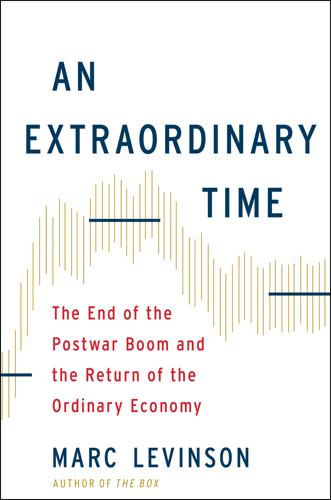
An Extraordinary Time: The End of the Postwar Boom and the Return of the Ordinary Economy
by
Marc Levinson
Published 31 Jul 2016
Eventually, of course, businesses passed these expenses along to shareholders and workers, but so far as workers were concerned, the costs were invisible. And a very large share of government receipts in the wealthy countries, 43 percent in 1970, came from taxes on consumption, such as sales taxes, and on property and wealth, such as inheritance taxes. Between 1970 and 1980, business, consumption, and wealth taxes declined sharply relative to national income in most of the wealthy countries. Across the advanced economies, income taxes and social security charges provided 34 percent of governments’ revenues in 1970, 38 percent in 1975, and almost 40 percent in 1980. The cost of the welfare state was shifted increasingly to income taxes, paid directly by workers who saw greater sums withheld from their paychecks.
…
The French taxpayer ultimately bore the cost. In the first three years of state ownership, by one estimate, the newly nationalized industrial companies collectively soaked up roughly $40 billion of government money. Very few of them made a profit, and the budget deficit soared.11 The expropriations and the new wealth tax unsettled investors. Mitterrand made it his highest priority to keep the franc as strong as the West German deutsche mark. “You do not devalue the money of a country when that country has just placed confidence in you,” Mitterrand intoned soon after his election. But as investors pulled out of France to keep their money away from the tax collectors, they sold their francs, unavoidably pushing the currency lower.
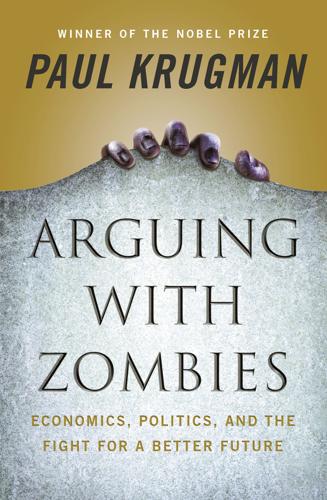
Arguing With Zombies: Economics, Politics, and the Fight for a Better Future
by
Paul Krugman
Published 28 Jan 2020
His estimate was that it would raise the average tax rate on the top 0.1 percent to 48 percent from 36 percent, and bring the average tax on the top 0.01 percent up to 57 percent. Those are high numbers, although they’re roughly comparable to average tax rates in the 1950s. Would such a plan be feasible? Wouldn’t the rich just find ways around it? Saez and Zucman argue, based on evidence from Denmark and Sweden, both of which used to have significant wealth taxes, that it wouldn’t lead to large-scale evasion if the tax applied to all assets and was adequately enforced. Wouldn’t it hurt incentives? Probably not much. Think about it: how much would entrepreneurs be deterred by the prospect that, if their big ideas pan out, they’d have to pay additional taxes on their second $50 million?
…
Mike Konczal helped me understand the bad logic of austerian economics, and Simon Wren-Lewis helped me grasp why that bad logic was prevailing in the U.K. Richard Kogan was, I think, the first person to alert me to the nonexistence of a snowballing-debt problem. Emmanuel Saez and Gabriel Zucman, aside from teaching all of us a huge amount about taxation, helped me out a lot in understanding new Democratic proposals, especially the Warren wealth tax. Chad Bown talked me through what was happening with Trump’s tariffs. Larry Mishel taught me most of what I know about the relationship or lack thereof between technology and inequality. More generally, I’ve often relied on my Stone Center colleague Janet Gornick to understand what inequality data mean.
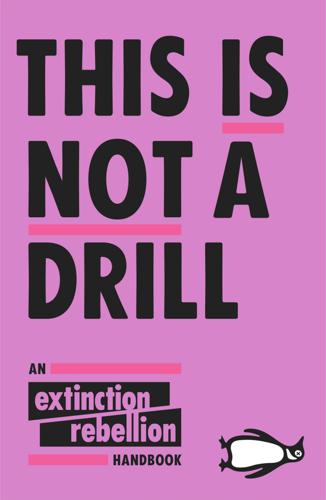
This Is Not a Drill: An Extinction Rebellion Handbook
by
Extinction Rebellion
Published 12 Jun 2019
It is now up to progressives of all stripes – from the labour movement to liberal democrats, from trade unionists to environmental campaigners – to seize this moment and campaign for something better. We need programmes to deliver massive investment in clean energy and affordable public transport, to insulate every home and to bring hope and meaningful work to communities hollowed out by deindustrialization. This Green New Deal can be paid for by measures like wealth taxes, and some initiatives will pay for themselves through the increased tax returns of those in work. Green quantitative easing is also likely to have a role to play, with banks investing directly in green projects, rather than the government handing cash to the banks. Meanwhile, global leaders need to recognize that we live on a planet with finite resources.

More Everything Forever: AI Overlords, Space Empires, and Silicon Valley's Crusade to Control the Fate of Humanity
by
Adam Becker
Published 14 Jun 2025
Without billionaires, fringe philosophies like rationalism and effective accelerationism would stay on the fringe, rather than being pulled into the mainstream through the reality-warping power of concentrated wealth. As Robinson says, there’s no reason we as a society have to put up with the continued existence of billionaires. Consider a wealth tax where the top bracket takes 100 percent of personal net worth above, say, $500 million. $500 million is an enormous amount of money; you could spend $3,000 a day for a hundred years and still have nearly $400 million left over. With $500 million in the bank at a measly 1 percent interest rate, you’d still have an income of $5 million a year without ever diminishing the bulk of your wealth.
…
The government, in the form of NASA, provided most of the demand at the first semiconductor companies during the space race. Even the internet itself was first created as a government project, known as ARPANET.79 Unlike private investors, the US government hasn’t seen a direct return on that investment. If you must, you can think of such a wealth tax as the government recouping its investments in roads, trains, public schools, basic scientific research, and all the other things that have made such massive wealth possible in the first place. That tax would also be an investment in the future of technology. It would enable far more fundamental scientific research, fighting against the diminishing returns of the past decades to keep finding innovative solutions to technical problems.
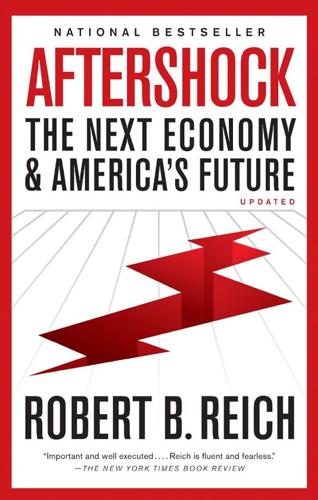
Aftershock: The Next Economy and America's Future
by
Robert B. Reich
Published 21 Sep 2010
Finally, but not least: In order for the government to balance the budget, provide for national defense, guard our borders, and pay down the national debt, all personal incomes will be capped at $500,000 per year; earnings in excess of that amount will be taxed at 100 percent. Incomes above $250,000 are to be taxed at 80 percent. The capital gains rate will be 80 percent. All net worth above $100,000 will be subject to a 2 percent annual wealth tax. Any American found to be sheltering his income in a foreign nation will be stripped of his U.S. citizenship. In her victory speech, president-elect Jones is defiant: My fellow Americans: You have voted to reclaim America. Voted to take it back from big government, big business, and big finance.
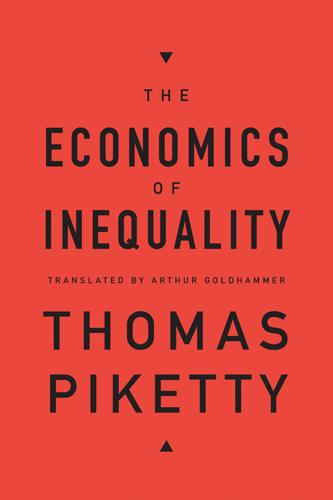
The Economics of Inequality
by
Thomas Piketty
and
Arthur Goldhammer
Published 7 Jan 2015
Indeed, no fiscal redistribution had ever redistributed 10 percent of national income in so short a period. To give an order of magnitude, the fiscal redistribution measures adopted by the Socialist government after it came to power in France in 1981, which were denounced at the time by the right as the height of “fiscal bludgeoning” and which consisted essentially of a wealth tax and a surtax on top income brackets, brought in less than 10 billion francs in 1981 (Nizet, 1990, pp. 402, 433), or 0.3 percent of national income. In theory, a government can achieve any level of redistribution it wants via taxes and transfers, but in practice no transfer of comparable magnitude has been accomplished in so few years.
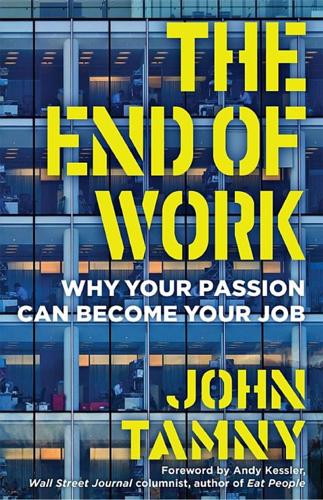
The End of Work: Why Your Passion Can Become Your Job
by
John Tamny
Published 6 May 2018
In his book Zero to One, he explains that “most venture-backed companies don’t IPO or get acquired; most fail, usually soon after they start. Due to these early failures, a venture fund typically loses money at first.”11 This is why much lighter taxation on existing wealth would benefit everyone. With less of their wealth taxed away, the rich would have greater capacity for risks. The more they’re taxed, the more careful they have to be with what’s left to maintain their wealth. Indeed, taxes on the rich hurt those who aren’t well to do much more than they hurt the rich themselves. Thiel is a good example. He’s constantly experimenting with new ideas.
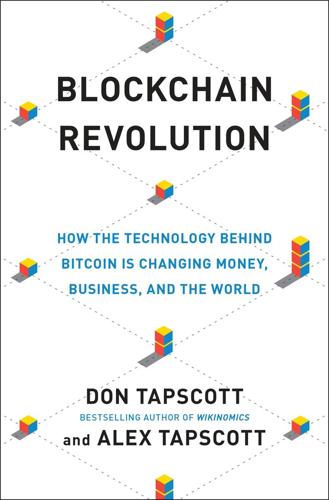
Blockchain Revolution: How the Technology Behind Bitcoin Is Changing Money, Business, and the World
by
Don Tapscott
and
Alex Tapscott
Published 9 May 2016
A tour de force of academic scholarship, Capital explains why inequality is accelerating and will likely continue to do so as long as the return on capital exceeds long-term economic growth. The rich have gotten richer because their money made them more money than their work did. Hence, the proliferation of new millionaires and billionaires. But his solution for how to stem growing social inequality, by imposing a wealth tax on the ones who own most of the world’s wealth, was somewhat less inspiring, if only because we’ve heard it before.10 Indeed, for as long as capitalism has been the primary mode of production, the debate about how to share the fruits more equally has not moved much beyond the redistribution of wealth, usually through taxation of the rich and the provision of public services to the poor.
…
See Walled gardens Trust protocol, 4–6, 58, 309–11 Turing completeness, 278 22Hertz, 237–38 Twister, 246 Twoway peg, 60 Uber, 17, 118, 134, 135, 164–65, 270 Ulbricht, Ross William, 9 Unbanked and underbanked, 170–72, 175–78 Unemployment, 173 UNESCO, 249 UNICEF, 189–90 Unicoin, 190 Unique node list, 32 Universal Music, 229, 230 Usage data analytics, 233–34 Utility grids, 145–50 Value as incentive, 35–39, 202 Value innovation, 60 Value templates, 232 Vavilov, Valery, 261, 268 “Vectors of disruption,” 163 Vegetabile, Andrew, 267 Venture capitalists (VCs), 284, 287 Ver, Roger, 263, 284 VeriCoin, 266 VerifyID, 116 Verisart, 133 Vertical search, 97 Virtru Corporation, 40 Virtual private networks (VPNs), 118 Visa, 187–88 Vogogo, 72 Voorhees, Erik, 56, 81–82, 260, 284 Voter ID fraud, 217 Voter intimidation, 216–17 Voter turnout, 200–201 Voting, 198, 202, 214–15, 218–19 electronic (e-voting), 198, 215–17 Waldemeyer, Moritz, 228 Wales, Jimmy, 282 Walled gardens, 13, 70, 265 Warner Music Group, 229 Wassenaar Arrangement, 243–44 Waste management, in IoTs, 157 Watchdog networks, 303–4 Water management, in IoTs, 157 Wealth of Networks, The (Benkler), 277 Wealth tax, 173 WeatherDApp, 124–25 Weathernet, 123–24 WeatherNodes, 123–25, 147, 158 Western Union, 20, 56, 115, 185–86, 187–88 WhatsApp, 184 White, Derek, 68–69 Wikinomics, 128, 137 Wikipedia, 12, 129, 130–32, 282 Wilkins, Carolyn, 9, 294, 295–96 Williamson, Oliver, 93–94, 100, 105–6, 320n Windowing strategy, 235–36 Winklevoss, Tyler, 175, 255–56, 301 Winter, Alex, 21 Wisdom of the crowds, 84–85, 221 WISeKey, 11, 14, 154, 204 Women leaders in blockchain, 287–89 Wong, Pindar, 300, 305 Wood, Gavin, 119 World Bank, 193, 295, 300 World Economic Forum (WEF), 175, 270, 306 World Health Organization, 281 World Trade Organization, 281 World Wide Ledger, 6–8, 75–77, 95–96, 142 World Wide Web Consortium, 271, 299 Wozniak, Steve, 129, 274 Wright, Aaron, 103, 258, 264, 265, 293 YouTube, 230, 234, 235, 236 Zeall, Anson, 217 Zelaya, Manuel, 193 Zero to One (Thiel), 94 Zimbabwe, voter intimidation, 216–17 Zipcar, 134, 137, 187 Zyskind, Guy, 27–28 Looking for more?
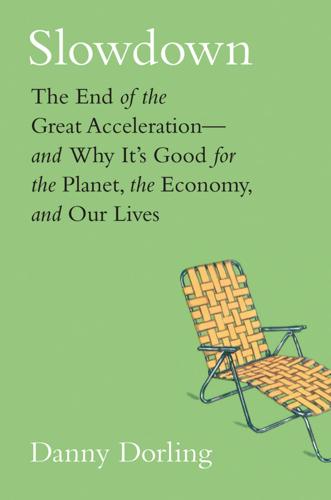
Slowdown: The End of the Great Acceleration―and Why It’s Good for the Planet, the Economy, and Our Lives
by
Danny Dorling
and
Kirsten McClure
Published 18 May 2020
Every large profitable investment ultimately derives from the debts or poverty of the many, and increasingly brings about diminishing returns for the investors compared to the returns they used to reap when population and markets were growing so fast. As growth slows, redistribution becomes an imperative, not simply an aspiration. Predicting the headlines in the United States in 2020, the Brookings Institute suggested that the Democratic Party nominee for president will argue for a wealth tax of 1 percent of the wealth of the richest 1 percent of U.S. households, amounting to $2.5 trillion over ten years, which would be used to give all American families a $1,400 annual tax break.12 This is because future technological innovation will not make the poor better off. Only redistribution and social innovation can do that now.
…
National Oceanic and Atmospheric Administration (NOAA) temperature data set, 134, 135, 138 vacuum cleaners, 267–68, 359n20 Vietnam, 172, 173 vulnerable employment, 294 wages, 244–47, 245, 294 Walmart, 126 war: and book publishing, 74–76, 75; and fertility rates, 202, 204, 205 War of the Worlds (Wells), 207 Way, Robert, 131–33, 132 wealth tax, 294–95 weather extremes, 137 Wells, H. G., 207 White, Leslie, 289 Wigglesworth, Robin, 314 Wikipedia, 34, 35, 68–71, 70, 264–65 Wilde, Oscar, 340n12 Wilkinson, Richard, 289–90 “Will the World RUN OUT of People?” (Daily Mail), 144–45 Wolf, Martin, 230 women: and education, 315–16, 317; and political change, 276.
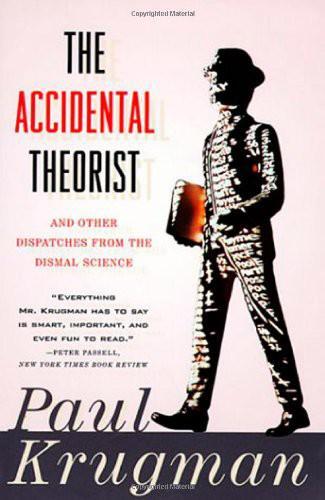
The Accidental Theorist: And Other Dispatches From the Dismal Science
by
Paul Krugman
Published 18 Feb 2010
Wolff’s Top Heavy: A Study of the Increasing Inequality of Wealth in America might seem unlikely to provoke strong emotional reactions. Wolff, a professor of economics at New York University, provides a rather dry, matter-of-fact summary of trends in wealth distribution, followed by a low-key case for a modest wealth tax. Although Wolff has done a commendable technical job in combining data from a number of sources to produce a fuller picture—in particular, his book tells us more about both long-term trends and international comparisons than has previously been available—the rough outlines of this story have been familiar and uncontroversial among economists for at least the past five years.
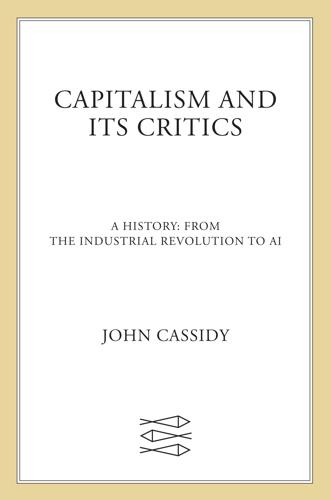
Capitalism and Its Critics: A History: From the Industrial Revolution to AI
by
John Cassidy
Published 12 May 2025
“The risk of a drift toward oligarchy is real and gives little reason for optimism about where the United States is headed,” Piketty concluded.28 To counter these tendencies, he called for “a progressive annual tax on global wealth.”29 If democracy was to regain control over globalized capitalism, it needed to invent new tools, he said. His proposed levy would apply to all forms of wealth, including financial assets, real estate, and business assets, with “no exceptions.” In the current political constellation, Piketty readily conceded, a global wealth tax was a “utopian idea.” But he argued that the proposal was a useful “reference point” that, at least in theory, “would provide a way to avoid an endless inegalitarian spiral.” Fortunes of less than a million euros would be exempted from the new tax. People with fortunes of one to 5 million euros would pay an annual levy of 1 percent, and people with more than 5 million euros would pay a 2 percent levy.
…
But while the Italian Marxist had worked within a framework of class rule, he regarded intellectuals as the “deputies” of the dominant “historical bloc.”75 Piketty explicitly disavowed this approach, writing, “I insist that the realm of ideas, the political-ideological sphere, is truly autonomous.”76 Piketty’s intellectual evolution made for some interesting reviews, but in practical terms he ended up in the same place he had been in Capital in the Twenty-First Century: arguing for radical policies to reverse rising inequality. “The inequalities and institutions that exist today are not the only ones possible, whatever the conservatives may say,” he wrote.77 Incorporating his previous call for a global wealth tax, he laid out a reform agenda that included three key elements: power sharing within large firms, with workers’ representatives getting half the voting rights on corporate boards; punitive tax rates on very high incomes and large fortunes to “make ownership of capital temporary”;78 and the introduction of a “universal capital endowment” along with a universal basic income.
…
“The balance of power at any moment,” he wrote in his conclusion, “depends on the interaction of the short-term logic of events with long-term intellectual evolutions from which come a wide range of ideas that can be drawn on in moments of crisis.”82 During the 2020 Democratic primary, the Democratic senators Elizabeth Warren and Bernie Sanders both proposed new wealth taxes. Two of Piketty’s research associates, Emmanuel Saez and Gabriel Zucman, helped to design Warren’s version, which would have imposed an annual tax of 2 percent on fortunes worth between $50 million and $1 billion, and 3 percent on fortunes above $1 billion. In the big picture, the “long-term intellectual evolution” that Piketty was trying to bring about was a reformulation of the postwar social bargain to meet the changed circumstances of the twenty-first century.
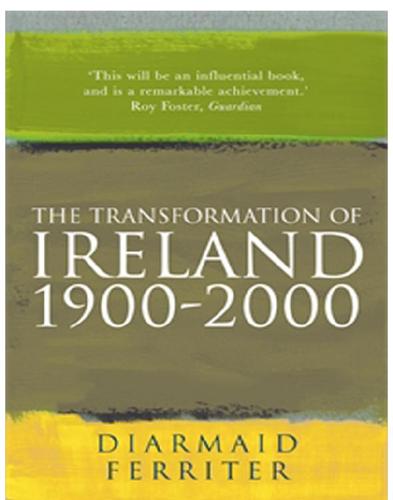
The Transformation Of Ireland 1900-2000
by
Diarmaid Ferriter
Published 15 Jul 2009
Referring to ‘a most unscrupulous campaign by some among the wealthy people affected by it’ for its abolition, he recalled: This campaign had been designed to arouse irrational fears amongst people of quite modest means who were in no danger of even being found liable to pay wealth tax. The deeply ironic result was that the net effect of all my efforts over a decade to substitute a more effective method of limiting the accumulation of wealth in too few hands, which would at the same time bear more equitably on those paying it, achieved the exact opposite result: a much lighter burden of capital tax than hitherto. When we returned to government in 1981 in a new coalition with the Labour Party, the weight of ‘popular’ opinion amongst the middle classes against the reintroduction of wealth tax prohibited my party from responding from continuous pressure from Labour to restore the system that we had succeeded in introducing in 1974 against so many obstacles.
…
There was much decrying too of what was regarded as an overstaffed and inefficient public service – in 1971 there were 38,200 civil servants, which had risen by 58 per cent to 60,500 in 1981 – and a failure to index taxation bands. This meant that many of the lower paid were being propelled into the higher income tax bands as their wages rose in line with inflation, while tax allowances and exemptions were aimed largely at the middle class. A 1974 wealth tax was abandoned in 1977, while the middle class rebelled against a residential property tax in 1994. By 1984, nearly 30 per cent of the adult population was receiving some form of social welfare, with roughly one sixth of all households being fully reliant on social welfare payments as their only source of income.
…
Cosgrave dismissed the republican rhetoric, suggesting the electorate ‘rejected voices from the past counselling extremism, doctrinaire solutions and violent ways as a method of solving the problems of the present or the future’.199 Quiet, gentle, but stern and extremely private, Cosgrave presided over a talented government that attempted to protect the social-welfare constituency, and succeeded in building more houses despite the oil crisis. The introduction of a wealth tax in 1974, amidst much internal and external opposition, back-fired badly on the government. In his memoirs, Garret FitzGerald, the architect of the plan, gives a good insight into the attitudes to redistribution of wealth, and in this instance the extent to which civil servants played a key part in undermining the tax, which Fianna Fáil abolished in 1977.
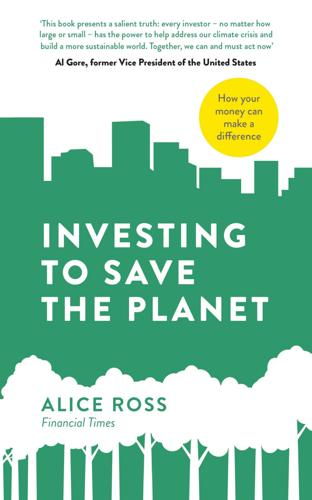
Investing to Save the Planet: How Your Money Can Make a Difference
by
Alice Ross
Published 19 Nov 2020
People who care about the environment also often believe in social justice and equality. Many billionaires have made their money directly through oil and are now among the leading lobbyists against climate change, a phenomenon prompting GQ magazine to argue that ‘Billionaires Are the Leading Cause of Climate Change’. Advocates of a wealth tax argue that revenues from such a policy could be funnelled into schemes that would help cut emissions across societies: for example, clean energy and infrastructure projects. When New York billionaire Michael Bloomberg announced that he was donating $500m to a new campaign, Beyond Carbon, which aimed to close every coal-fired power plant in the US, the Guardian newspaper argued that philanthropy was nice, but due to the propensity of Bloomberg’s billionaire peers to hoard cash and lobby for fossil fuel interests, ‘it would be much better for the planet if billionaires like him didn’t exist at all’.
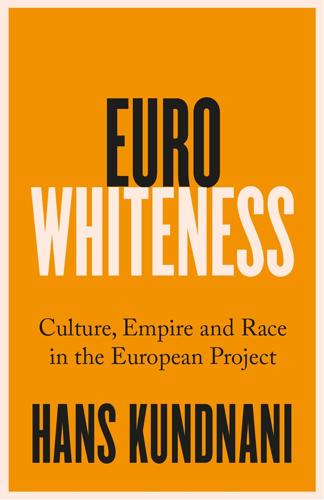
Eurowhiteness: Culture, Empire and Race in the European Project
by
Hans Kundnani
Published 16 Aug 2023
Before forming his own new party, En Marche, in 2016, Macron had been economics minister in the socialist government of François Hollande. During the election campaign, he had claimed to be a radical centrist who was “ni gauche, ni droite” (“neither left nor right”). After becoming president, however, he seemed to govern from the right—in particular, he scrapped a wealth tax and liberalised the labour market—and was thus seen as “president of the rich”.25 The thinking in the Elysée was that if France reformed its economy it would gain credibility in Berlin, which would in turn mean that Macron could persuade Germany to agree to a more redistributive EU. The idea of L’Europe qui protège was in effect a last attempt to save the idea of a “social Europe” that had been central to the French centre left’s approach to the European project.
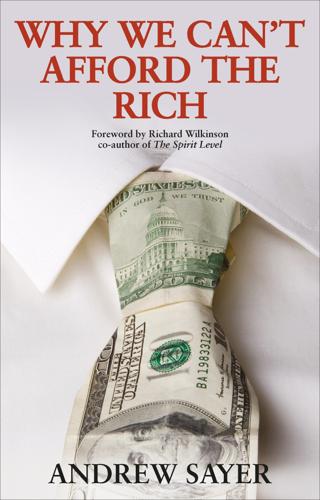
Why We Can't Afford the Rich
by
Andrew Sayer
Published 6 Nov 2014
Add to this, that, where the riches are in few hands, these must enjoy all the power, and will readily conspire to lay the whole burthen on the poor, and oppress them still farther, to the discouragement of all industry. (David Hume, 1752)16 ‘Where else is the money coming from?’, you may ask. It should come first from taxing unearned income based on ownership of assets, which means taxing the extraordinary wealth and income of the rich. Most important is a progressive wealth tax, so that the higher reaches of the 1% pay tax on their wealth, with the rate increasing, the richer they are. As Thomas Piketty proposes, this should be global (he calls it a ‘global capital tax’). This would require two things: first, international agreements, though it could start with the EU and build outwards; and second, financial transparency.
…
Twenty-eight per cent of all wealth in the UK is inherited, but only 13% of people receive a significant inheritance.18 And, as Piketty shows, the more the wealth of the rich grows, relative to rates of economic growth, the bigger the proportion of income that the rich get in the form of inheritance. Coupled with other forms of redistribution, such a tax could stop huge windfalls but allow more people to give and receive a modest inheritance, tax free. Income tax should also be steeply progressive, as it was in many countries in the post-war boom, although, particularly with a wealth tax on the rich, income tax could actually be cut for the worst-off and those in the middle in rich countries. VAT – a tax on consumption goods that weighs most heavily on the poorest, as all their income has to go on consumption – could also be cut for necessities, though remain or increase for luxury goods.
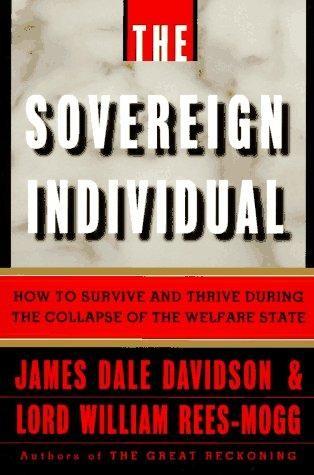
The Sovereign Individual: How to Survive and Thrive During the Collapse of the Welfare State
by
James Dale Davidson
and
William Rees-Mogg
Published 3 Feb 1997
The rise of inflation in the twentieth century, as we argued in Blood in the Streets and The Great Reckoning, was intimately connected with the balance of power in the world. Increasing returns to violence dictated sharply higher military expenditures, which in turn required ever more aggressive efforts to expropriate wealth. Governments found that they could effectively impose an annual wealth tax on all who held balances in their national currencies. This annual wealth tax on currency holders could also be seen as a transaction fee for allowing the users of currency to maintain their wealth in a convenient form provided by the issuers.* Thinking of inflation as a transaction fee for the convenience of holding currency may be unusual, but consider it closely.
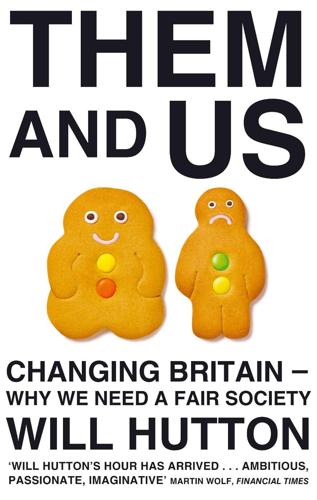
Them And Us: Politics, Greed And Inequality - Why We Need A Fair Society
by
Will Hutton
Published 30 Sep 2010
This was the inspiration for New Labour’s child trust fund – whose almost gleeful abolition was one of the coalition government’s most unthinking acts. Fairer asset distribution would have enormously beneficial effects. But Conservatives are anxious not to redistribute assets from rich to poor via inheritance and wealth taxes because, in their view, it is the rich’s due desert that they enjoy unqualified rights over their own property: building up assets to give them to one’s children is a powerful incentive and a natural right. Rather, they want to create a system of national insurance that allows the poor to save and build up their assets, turn their right to housing benefit into a capital sum to allow them to buy their own homes, or develop schemes that allow them to borrow, both individually and for their communities.
…
INDEX Aberdeen University, 263 ABN AMRO, 150 Abramovitch, Roman, 64, 65, 67 accountancy firms, 296 Acemoglu, Daron, 299 aerospace, 136, 219, 268 Afghanistan, 13, 102, 144, 322 Africa, 71–2, 322, 383, 385 AIG, 152, 175, 176 airline industry, 30, 91, 109, 134, 143 Akerlof, George, 43 Alcoa, 133 alcohol policy, 335 Alessandri, Piergiorgio, 151, 153 Amazon, 253 Anderson, Elizabeth, 79 angels, business, 244, 252 Anglo Irish Bank, 181 Apple Inc., 29–30, 65–6, 71, 253 apprenticeships, 10, 295 Arculus, Sir David, 180 Argentina, 368 Aristotle, 39, 274 ‘arms race’ effects, 105 Arup Group, 66, 67, 93 Asda, 93 Ashcroft, Lord, 344 Ashdown, Paddy, 141 Asian Tiger exports, 149, 208, 355 AT & T, 133–4 Atari, 30 BAA, 8, 257–8 baby boomer generation, 34, 372–3 ‘Baby P’ case, 10, 325–6 Bagehot, Walter, 156–7 Bailey, Bob, 16, 25 Baker, Kenneth, 276 Baldacci, Emanuele, 367 Baldwin, Stanley, 315 Balls, Ed, 138, 147, 338 Bank of America, 152, 158, 175, 192 Bank of England, 4, 7–8, 129, 148, 180, 208, 250, 339, 359; lender-of-last-resort function, 157, 158, 160; Monetary Policy Committee, 185, 186, 264; reserve requirements scrapped (1979), 161, 208 Bank of International Settlements (BIS), 169, 182 Bank of Scotland, 186, 251 bankers, 4–5, 25–6, 62, 63–4, 180, 188; errors that caused the crash, 188–96, 197–204; gambling culture, 7, 8; pay see pay of executives and bankers Bankers Trust (New York), 140, 167 banking and banks: see also under entries for individual organisations; bail-out of, 3, 7–8, 19, 24, 138, 152–3, 172, 175, 176, 181, 204–5, 210, 389, 392; balance sheets, 7, 160, 164, 165, 191, 208, 210; bank runs, 9, 156–7, 158, 175–6, 202; borrow short and lend long principle, 154, 155–6, 157, 158–9; capital ratios, 151, 158, 162–3, 169, 170, 207, 208; credit-rating agencies and, 151, 196, 207; deposit insurance and, 158, 160; diversification, 154–5, 157, 165, 199, 354; fairness/desert and, 64, 206–7; interbank money markets, 164, 170, 176, 187–8, 202, 204; investment banks, 6, 28, 42, 101, 103, 150–1, 158, 165, 166, 170, 172–6, 195–6, 207; maturity transformation, 155–6, 157, 158–9; need for network of specialist banks, 251–2, 265, 371; nineteenth-century collapses, 156–7; post-crunch deleverage pressures, 359; principles and strategies, 154–6, 157; regulation of see regulation; relationship finance, 244, 251–2, 256–7; remoteness of management, 173–4; required reforms of, 205–10, 251–2, 371; short-term structure of lending, 33; banking and banks – continued socially vital role of, 155, 157; subsidiaries and special purpose vehicles, 181; unproductive entrepreneurship and, 28, 101, 103; vast assets/loans/profits, 32, 138, 147, 170, 172, 201; zero loyalty of front-line staff, 174 Barclay brothers, 327 Barclays, 24, 176, 177–8, 181, 215, 296, 363 Barker, Kate, 185 Basel system, 158, 160, 163, 169, 170–1, 196, 385 Baumol, William, 101, 111, 116, 253, 256 Bayerische Landesbank, 196 Bear Stearns, 150, 152, 158–9, 166, 173–4, 187 Bebchuk, Lucian, 198 Becht, Bart, 82–3 Beckwith, John Lionel, 179 behavioural psychology, 44, 47–50, 59–61 Bekar, Clifford, 108, 263 Bell, Alexander Graham, 221 Ben & Jerry’s, 266 Benz, Matthias, 86 Berlusconi, Silvio, 317, 328 Bettelheim, Bruno, 86 Better Government Initiative, 313, 336–7 Better Regulation Task Force, 180 Bhagwati, Jagwad, 163 Big Bang (1986), 90, 162 bin Mahfouz, Khalid Salim, 333 biotechnology, 109, 229, 240, 263, 268 Birt, John, 324 Bischoff Inquiry, 178 BISTRO (broad index secured trust offering), 169, 170, 196 Black, Fisher, 191 Blair, Tony, 5, 17, 138, 141–3, 144, 148–9, 276–7, 313, 328, 342; centralisation of power, 14–15, 313, 334, 337, 341; Iraq War and, 14, 36, 144; Rupert Murdoch and, 318; neo-conservative economics and, 388; ‘third-way’ as enthronement of resignation, 389–90; welfare reforms, 81 Blanchflower, Danny, 264–5 Blanden, Jo, 283–4 Blankfein, Lloyd, 42, 63, 168 BMW, 91 Boeing, 136, 256 Bologna University, 261 Born, Brooksley, 182–3 Bowen, Jeremy, 323 Boyle, Susan, 314 BP, 216–17, 392 Branson, Richard, 30 Brazil, 354–5, 385 Bretton Woods system, 159 Brinkley, Ian, 233 Briscoe, Simon, 294 Bristol University, 263 British Airways (BA), 30, 91 British Broadcasting Company (BBC), 321, 322, 323, 329, 330–1, 350, 389 British National Party (BNP), 16, 24–5, 82 Britishness, 15–16, 124, 392–3, 395 Brompton folding bicycle, 103, 105 Brooks, Clem, 281, 282 Brown, Gordon, 5, 12, 141, 178, 302, 314, 328; centralisation of power, 14, 334, 337, 341; as Chancellor, 138, 143, 145–8, 215, 245; deal with Blair (1994), 148; Gillian Duffy blunder by, 394; general election (2010) and, 20, 378, 394; neo-conservative economics and, 144–8, 388; as visionless, 391; Where There is Greed: Margaret Thatcher and the Betrayal of Britain’s Future (1989), 144 Browne, John, 216 Brunel, Isambard Kingdom, 126 Buffett, Warren, 116, 173, 222 Building Schools for the Future programme, 371 building societies, demutualisation of, 156, 186 Buiter, Wilhelm, 172 Burrows, Paul, 59 Buscombe, Baroness, 332 Bush, George W., 17, 36, 135, 177 Cabinet Office, 218–19, 336, 337 Cable, Vincent, 220 Cambridge University, 9, 363 Cameron, David, 20, 179, 233–4, 235, 318, 338, 342; ‘Big Society’ policy, 19–20, 234, 271, 280 Campbell, Alastair, 141, 142, 224, 312 Canada, 121, 354, 358–9, 383 capital controls, abolition of, 32, 161 capitalism: see also entrepreneurs; innovation; amorality of, 16–19; ‘arms race’ effects, 105; boom and bust cycle, 181–7, 392; deregulation (from 1970s), 159–63, 388; fairness and, ix, x, 23–7, 41, 106, 122–3, 206–7, 210, 249, 385, 386, 394; as immutable force of nature, ix, 23, 40–2; incumbent firms, 29–30, 31, 105, 106, 110, 111–12, 253–5, 257, 297; interconnectedness of markets, 200–2, 204; knowledge-entrepreneurship dynamic, 27–8, 31, 103, 110–11, 112–13; liquidity as totemic, 199, 200, 202, 240, 243; need for ‘circuit breakers’, 197, 199, 202, 203; network theory and, 199–204, 206; required reforms of, 205–9, 215–16; stakeholder, x, 148–9; undue influence of, 32–3 Carlaw, Kenneth, 108, 263 Carnegie, Andrew, 195, 303 cars, motor, 91, 108, 109, 134, 269 Castells, Manuel, 317 Cayne, Jimmy, 173–4 CCTV cameras, 10 celebrity culture, 282, 314 central banks, 154, 157, 158, 160, 182, 185, 187, 208; see also Bank of England; Federal Reserve, 169–70, 176, 177, 183 Cerberus Capital Management, 177 Cervantes, Miguel de, 274 Channel 4, 330, 350 Charles I, King of England, 124–5 Charter One Financial, 150 chavs, mockery of, 25, 83, 272, 286–8 child poverty, 12, 21, 74–5, 83, 278, 279, 288–90, 291 China, x, 101, 112, 140, 144, 160, 226, 230, 354–5, 385; consumption levels, 375–6, 379, 380, 381; economic conflict with USA, 376–7, 378–80, 381, 382, 383; export led growth, 36, 169, 208, 226, 355–6, 375–7, 379–81, 382–3; rigged exchange rates, 36, 169, 355, 377, 378–9; surpluses of capital and, 149, 154, 169, 171, 208, 226, 375; unfairness of world system and, 383, 385 Christianity, 53, 54, 352, 353 Church of England, 128 Churchill, Winston, 138, 273, 313 Churchill Insurance, 150 Cisco, 253 Citigroup, 152, 158, 172, 177, 184, 202, 203, 242, 247 city academies, 278, 307 City of London, 34, 137, 138, 178–9, 252, 359; as incumbent elite, 14, 26, 31, 32–3, 210, 249, 355; in late nineteenth-century, 128–30; light-touch regulation of, 5, 32, 138, 145, 146–7, 151, 162, 187, 198–9; New Labour and, x–xi, 5, 19, 22, 142, 144–5, 355; remuneration levels see pay of executives and bankers civic engagement, 86, 313 civil service, 13, 221, 273, 312, 343 Clasper, Mike, 178 Clayton Act (USA, 1914), 133 Clegg, Nick, 22, 218, 318, 327–8, 342, 391 Clifton, Pete, 321 Clinton, Bill, 140, 177, 183 coalition government (from May 2010), 14, 20, 22, 37, 307, 311, 343, 346, 390–2; abolition of child trust fund, 302; capital spending cuts, 370–1; deficit reduction programme, xi, 19, 34, 214, 227, 357, 360–1, 364, 369–71, 373, 390–2; emergency budget (June 2010), 369–70; market fundamentalism and, 370; political reform commitment, 35, 341, 343–4, 346, 350, 390, 391; proposed financial reforms, 208, 209, 245, 252, 371; repudiation of Keynesian economics, xi, 390–1 Cohan, William, 158–9 Cohen, Ronald, 12, 245 collapse/crash of financial system, x, xi, 4, 9, 41, 144, 146, 152–4, 158–9, 168; costs of, 7, 19, 138, 152–3, 172, 214–15; errors responsible for, 136, 187–96, 197–204; global interconnectedness, 375, 382–3; lessening of internationalism following, 376–83; need to learn from/understand, 36–7; predictions/warnings of, 148, 153, 180, 182–5; recommended policy responses, 215–16; results of previous credit crunches, 358, 359–60, 361–2 collateralised debt obligations (CDOs), 155, 167–8, 174 colonialism, 109, 124 Commodity Future Trading Commission, 182–3 communism, collapse of in Eastern Europe, 16, 19, 135, 140, 163 competition, 29, 30, 33, 51, 156, 185, 186, 207–8, 251; see also ‘open-access societies’; City of London and, 160, 178, 179, 198–9; deregulated banking and, 160, 161, 163, 164, 178, 179, 181; European Union and, 251, 258, 259; fairness and, 89–90, 99, 272; incumbent elites/oligarchs and, 104, 114, 129–30, 131–4, 257; innovation and, 40, 114, 257–60; national authorities/regimes, 201–2, 257–60, 316, 318; state facilitation of, 31 Competition Commission, 257–8 computer games, 233 Confederation of British Industry (CBI), 4, 6–7 Conservative Party, xi, 5, 11, 14, 97–8, 220, 343, 378; broken Britain claims, 16, 227, 271; budget deficit and, 19, 224, 357, 360–1, 368, 379; City/private sector funding of, 179, 257, 344; decline of class-based politics, 341; deregulation and, 32, 160, 161; fairness and, 83, 302, 374, 390; general election (1992) and, 140–1; general election (2010) and, 20, 97, 227, 234, 271, 357, 374, 379, 390; Conservative Party – continued government policies (1979-97), 32, 81, 275–6, 290; inheritance/wealth taxes and, 74, 302–3; market fundamentalism and, 5, 17, 138, 147, 160, 161; poverty and, 21, 279; reduced/small state policy, 20, 22, 233–4, 235 construction industry, 5, 33, 268 consumer goods, types of, 266–7 Continental Illinois collapse, 152, 162 Convention on Modern Liberty, 340 Cook, Robin, 142 Cootner, Paul, 194–5 Copenhagen climate change talks (2009), 226, 231, 385 Corporate Leadership Council, US, 93 Corzine, Jon, 177 county markets, pre-twentieth-century, 90 Coutts, Ken, 363 Cowell, Simon, 314, 315 ‘creative destruction’ process, 111, 112, 134 creative industries, 11, 71, 355 credit cards, 64, 354 credit crunch: see collapse/crash of financial system credit default swaps, 151, 152, 166–8, 170, 171, 175, 176, 191, 203, 207 Crédit Lyonnais collapse, 152 credit-rating agencies, 151, 165, 175, 196, 197, 248, 269, 362, 388; funding of, 151, 196, 207 criminal activity/allegations, 7, 101, 103, 104–5, 138, 167–8 Crosby, James, 178 Cuba, 61 culture, British, 12, 187, 282, 314 Dacre, Paul, 324, 326, 329 Daily Mail, 218, 286, 288, 315, 324, 325–7, 339, 342 Daily Telegraph, 288, 317, 319, 327 Darling, Alistair, 149, 204, 252 Darwin, Charles, 31 Data Monitor, 186 Davies, Howard, 198 Davies, Nick, Flat Earth News, 319, 321, 323–4, 326, 331–2 de Gaulle, Charles, 65 debt, 33, 155, 209, 351–63; corporate/commercial, 8, 29, 181, 245, 248, 352, 354, 359, 363, 374; moral attitudes towards, 351–4, 357, 360–1; necessity of, 155, 351, 353, 354; private, 5, 186, 187, 210, 226, 279–80, 354–7, 359, 363, 373; public, 9, 34, 164, 166, 167, 182, 203, 214, 224–6, 356–7, 362–3, 375, 388, 393; sustainable level of, 356–7, 368–9 Defence Advanced Research Projects Agency (DARPA), 265 defence and armed forces, 34, 372 deficit, public, 4, 34, 213, 224–6, 335, 364–74; coalition’s reduction programme, xi, 19, 34, 214, 227, 357, 360–1, 364, 369–71, 373, 390–2, 393; need for fiscal policy, 224–5, 226, 357–8, 364, 365–9, 370, 374; speed of reduction of, 213, 224–5, 360–1, 368, 371 Delingpole, James, 287 Delong, Brad, 27, 106 democracy, 13–15, 235, 310–16, 333–48; centralisation of power and, 14–15, 35, 217, 313, 334, 337, 342; fair process and, 86, 89, 96–9; incumbent elites and, 35, 99; industrial revolution and, 128; media undermining of, 315–16, 317–18, 321–9, 333, 350; ‘open-access societies’ and, 136, 314 Democratic Party, US, 18, 140, 183, 379 Demos, 289 Deng Xiao Ping, 140 Denham, John, 21 deprivation and disadvantage, 10, 34, 288–93, 307–8, 393; low-earning households, 11–12, 13, 291, 361; weight of babies and, 13; young children and, 74–5, 83, 288–90 derivatives, 140, 145, 150–1, 164–8, 171, 175, 188, 207, 209; City of London and, 32, 137, 150–1, 157, 199; mathematical models (‘quants’) and, 188, 191; regulation and, 183, 197–8, 199 desert, due, concept of, 4, 24, 38–43, 45–7, 50–63, 64–8, 73–7, 80–2, 223, 395; see also effort, discretionary; proportionality; big finance and, 40–2, 82, 167, 174, 176, 210; debt and, 351–2; diplomacy/international relations and, 385–6; Enlightenment notions of, 53–6, 58–9, 112; luck and, 70, 73–7, 273; poverty relief systems and, 80–2, 277–8; productive entrepreneurship and, 102–3, 105–6, 112, 222, 392–3; taxation and, 40, 220, 266 Deutsche Bank, 170 developing countries, 71–2, 160, 354–5, 375, 376, 385 Diamond, Bob, 24 Dickens, Charles, 353 digitalisation, 34, 231, 320, 349, 350 Doepke, Matthias, 115–16 dot.com bubble, 9, 193 Drugs Advisory Panel, 11 Duffy, Gillian, 394 Durham University, 263 Dworkin, Ronald, 70 Dyson, James, 28, 33 East India Company, 130 Easyjet, 28, 233 eBay, 136 economic theory, 43–4, 188–9, 366; see also Keynesian economics; market fundamentalism economies of scale, 130–1, 254–5, 258 The Economist, 326, 330, 349 economy, British: see also capitalism; financial system, British; annual consumption levels, 375; balance of payments, 363–4; as ‘big firm’ economy, 254; change in landscape of trading partners, 230–1; coalition capital spending cuts, 370–1; collapse of tax base, 224, 368; cumulative loss of output caused by crash, 138, 153, 172, 214–15; desired level of state involvement, 234–5; domination of market fundamentalism, 16–17; economic boom, 3–4, 5–6, 12, 143, 173, 181–7, 244–5; fall in volatility, 365; fiscal deficit, 368; fiscal policy, 208, 224–5, 226, 357–8, 364–9, 370, 374; growth and, 9–10, 214–15, 218–19, 224, 359, 363; inefficient public spending, 335; investment in ‘intangibles’, 232–3; in late nineteenth-century, 128–30; ‘leading-edge’ sectors, 218–19; need for engaged long term ownership, 240–4, 249–51; as non-saver, 36, 354; potential new markets/opportunities, 231–3; public-private sector interdependence and, 219–22, 229–30, 261, 265–6, 391, 392; required reforms of, 20, 239–44, 249–52, 264–6, 371–4 see also national ecosystem of innovation; ‘specialising sectors’, 219; urgent need for reform, 36–7; volatility of, 297–8; vulnerability of after credit crunch, 358–64 economy, world: acute shortfall of demand, 375–6; Asian and/or OPEC capital surpluses and, 149, 153–4, 169, 171, 208, 226, 354, 375; conflicts of interest and, 137, 138; deregulation (from 1970s), 159–63; emerging powers’ attitudes to, 226; entrenched elites and, 137–8, 210; fall in volatility, 365; international institutions as unfair, 383, 385; London/New York axis, 149, 150–1, 157–8, 160, 187, 202; need for international cooperation, 357–8, 379–80, 381–3, 384, 385–6; post-crunch deleverage pressures, 359–60, 374–5; protectionism dangers, 36, 358, 376–7, 378, 379, 382, 386; savers/non-savers imbalance, 36, 169, 208, 222, 355, 356, 375–6, 378–83; shift of wealth from West to East, 36, 383–4; sovereign debt crises, 167, 203, 214; unheeded warnings, 182–5; wrecking of European ERM, 140, 144 Edinburgh University, 145 education, 10, 20–1, 128, 131, 272–4, 276, 278, 292–5, 304–8, 343; Building Schools for the Future programme, 371; cognitive and mental skills, 288–90, 304–6; private, 13, 114, 264–5, 272–3, 276, 283–4, 293–5, 304, 306 effort, discretionary, 50, 53, 54–5, 58–60, 80, 90–1, 114, 134; see also desert, due, concept of; fair process and, 91–4; indispensability and, 65–7; innovation and invention, 62, 65, 102–3, 105–6, 112, 117, 131, 223, 262–3, 392–3; luck and, 26–7, 65, 67, 70, 71, 73–4, 75–7; productive/unproductive, 43, 46–7, 51–2, 62, 64–5, 102–3, 392–3; proportionate reward for, 26, 39–40, 44, 47, 61, 74, 76–7, 84, 122, 272, 273, 2 84 egalitarianism, 27, 53–4, 55–6, 61, 75, 78–80, 144, 341, 343; Enlightenment equal worth concept, 53, 55, 59–60 Ehrenfeld, Rachel, 333 Eisman, Steve, 207 electoral politics: see also general election (6 May 2010); general elections, 97, 138, 277, 315; fair process and, 96–9; franchise, 128; general election (1992), x, 138, 140–1, 144, 148, 277; general election (1997), x, 138, 141 electricity, 134, 228, 256 electronic trading, 105 elites, incumbent, 23, 31–3, 99, 131; City of London, 14, 26, 31, 32–3, 210, 249, 355; competition and, 104, 113, 114, 129–30, 131–4, 257; democracy and, 35, 99; Enlightenment and, 122; history of (from 1880s), 131–4; history of in Britain (to 1900), 124–30; innovation and, 29–30, 110, 111–12, 113, 114, 115, 116; modern big finance and, 135, 137–8, 180, 210, 387–9; in ‘natural states’, 111, 113, 114–15, 116, 123–4, 127; New Labour’s failure to challenge, x–xi, 14, 22, 388, 389–90; world economy and, 137–8, 210 EMI, 28, 247, 248 employment and unemployment, 6, 75, 291–3, 295, 300, 373, 393; employment insurance concept, 298–9, 301, 374; lifelong learning schemes, 300, 301; lifelong savings plans, 300; unemployment benefit, 81, 281 Engels, Friedrich, 121–2 English language as lingua franca, 124 Enlightenment, European, 22, 30–1, 146, 261, 314–15; economics and, 104, 108–9, 116–17, 121–3; notions of fairness/desert, 53–6, 58–9, 112, 122–3, 394; science and technology and, 31, 108–9, 112–13, 116–17, 121, 126–7 Enron affair, 147 entrepreneurs: see also innovation; productive entrepreneurship; capitalist knowledge dynamic, 27–8, 31, 110–11, 112–13; challenges of the status quo, 29–30; Conservative reforms (1979-97) and, 275; private capital and, 241; public-private sector interdependence and, 219–22, 229–30, 261, 265–6, 391, 392; rent-seeking and, 61–2, 63, 78, 84, 101, 105, 112, 113–14, 116, 129, 135, 180; unproductive, 28–9, 33, 61–2, 63, 78, 84, 101–2, 103–5, 180 environmental issues, 35–6, 71–2, 102, 226, 228, 231, 236, 385, 390, 394; due desert and, 68; German Greens and, 269 Erie Railroad Company, 133 Essex County Council, 325, 332 European Commission, 298 European Exchange Rate Mechanism (ERM), 140, 144, 166 European Union (EU), 11, 82, 179, 379–80, 383–4, 385; British media and, 15, 328, 378; Competition Commissioner, 251, 258, 259; scepticism towards, 15, 36, 328, 377, 378, 386 eurozone, 377 Fabian Society, 302–3 factory system, 126 fairness: see also desert, due, concept of; proportionality; abuse/playing of system and, 24–5, 27; asset fairness proposals, 301–3, 304; behavioural psychology and, 44, 47–50, 59–61; Blair’s conservative view of, 143; Britishness and, 15–16, 392–3, 395; capitalism and, ix, x, 23–7, 41, 106, 122–3, 206–7, 210, 249, 385, 386, 394; challenges to political left, 78–83; coalition government (from May 2010) and, 22, 37; commonly held attitudes, 44, 45–7; deficit reduction and, 226, 227, 374; economic and social determinism and, 56–8; Enlightenment notions of, 53–6, 58–9, 112, 122–3, 394; fair process, 84–94, 96, 98–9, 272; as foundation of morality, 24, 26, 45, 50; individual responsibility and, 39, 78–9; inequality in Britain, 78, 80, 275–6, 277–8, 342; international relations and, 226, 385–6; ‘Just World Delusion’, 83; luck and, 72–7; management-employee relationships, 90–2; models/frameworks of, 43–58; need for shared understanding of, 25, 37, 43; partisanship about, 42–3; politicians/political parties and, 22, 83, 271–2, 302–3, 374, 391–2; popular support for NHS and, 75, 77, 283; pre-Enlightenment notions, 52–3; shared capitalism and, 66, 92–3; state facilitation of, ix–x, 391–2, 394–5; welfare benefits to migrants and, 81–2, 282, 283, 284 Farnborough Sixth Form College, 294 Federal Reserve, 169–70, 176, 177, 183 Fees Act (1891), 128 Fertile Crescent, 106 feudalism, European, 53–4, 74, 104, 105 financial instruments, 103, 148, 157, 167–8 Financial Services and Markets Act (2001), 198 Financial Services Authority (FSA), 24, 147, 162, 178, 198–9, 208 financial system, British: see also capitalism; economy, British; Asian and/or OPEC capital surpluses and, 149, 154, 354; big finance as entrenched elite, 136, 137–8, 176, 178–80, 210, 387–9; declining support for entrepreneurship, 241; deregulation (1971), 161; fees and commissions, 33; importance of liquidity, 240, 243; lack of data on, 241; London/New York axis, 149, 150–1, 157–8, 160, 187, 202; massive growth of, 137, 138, 209, 219; need for tax reform, 209–10; regulation and see regulation; required reforms to companies, 249–50; savings institutions’ share holdings, 240–1; short termism of markets, 241, 242–3; unfairness of, 138, 210 Financial Times, 12, 149, 294, 330, 349, 361 Fink, Stanley, 179 fiscal policy, 208, 224–5, 226, 357–8, 364–9, 374; coalition rejection of, 370 fish stocks, conservation of, 394 Fitch (credit-rating agencies), 248 flexicurity social system, 299–301, 304, 374 Forbes’ annual list, 30 Ford, Henry, 195, 302 foreign exchange markets, 32, 161, 164, 165, 168, 363, 367; China’s rigged exchange rate, 36, 169, 355, 377, 378–9; currency options, 166, 191; eurozone, 377 foreign takeovers of British firms, 8, 388 Fortune magazine, 94 Foster, Sir Christopher, 313 foundation schools, 307 France, 51–2, 123–4, 163, 372, 375, 377 free trade, 163, 334, 379 Frey, Bruno, 60, 86 Friedman, Benjamin, 282–3 Fukuyama, Francis, 140 Fuld, Dick, 192 Future Jobs Fund, 373 G20 countries, 209, 358, 368, 374 Galliano, John, 143 Gardner, Howard, 274, 305–6 gated communities, 13 Gates, Bill, 71 Gates, Bill (Senior), 222 Gaussian distribution, 190–1, 194 ‘gearing’, 6 general election (6 May 2010), 97, 142, 179, 214, 217, 227, 234, 271, 314, 318, 327–8, 334, 378; Gillian Duffy incident, 394; result of, xi, 20, 345–6, 390 ‘generalised autoregressive conditional heteroskedasicity’ (GARCH), 194 genetically modified crops, 232 Germany, 36, 63, 244, 262, 269, 375–6, 379, 380; export led growth, 355–6, 375, 381–2; Fraunhofer Institutes, 252, 264; Greek bail-out and, 377; pre-1945 period, 128, 129, 134, 382, 383 Gieve, Sir John, 339–40 Gilligan, Andrew, 329 Gladwell, Malcolm, 76–7 Glasgow University, 323 Glass-Steagall Act, 162, 170, 202–3 Glastonbury festival, 143 globalisation, 32, 98, 140, 143, 144, 153–4, 163, 182, 297, 363, 366, 380 Goldman Sachs, 42, 63, 103, 150, 167–8, 174, 176, 177, 205 Goodwin, Sir Fred, 7, 150, 176, 340 Google, 131, 136, 253, 255, 258, 262 Goolsbee, Austin, 52 Gorbachev, Mikhail, 140 Gough, Ian, 79 Gould, Jay, 133 Gould, Philip, 142 government: see also democracy; political system, British; cabinet government, 312, 334, 337; centralisation of power, 14–15, 35, 217, 313, 334, 337, 341, 342; control of news agenda, 14, 224, 313; disregard of House of Commons, 14–15, 223, 339, 345; Number 10 Downing Street as new royal court, 14, 337, 338, 346, 347; press officers/secretaries, 14, 180, 224, 312; Prime Ministerial power, 337, 344, 345, 346 GPS navigation systems, 233, 265 Gray, Elisha, 221 Great Depression, 159, 162, 205, 362 Greece: classical, 25, 26, 38, 39, 44–5, 52–3, 59, 96, 107, 108; crisis and bail-out (2010), 167, 371, 377, 378 Green, Sir Philip, 12, 29, 33 Green Investment Bank, proposed, 252, 371 Greenhead College, Huddersfield, 294 Greenspan, Alan, 145–6, 165, 177, 183, 184, 197–8 Gregory, James, 277 growth, economic: Britain and, 9–10, 214–15, 219, 221, 359, 364; education and, 305–6; export led growth, 36, 169, 208, 226, 355–6, 375–7, 378–83; social investment and, 280–1 GSK, 219, 254 the Guardian, 319, 330, 349 Gupta, Sanjeev, 367 Gutenberg, Johannes, 110–11 Habsburg Empire, 127 Haines, Joe, 312 Haji-Ioannous, Stelios, 28 Haldane, Andrew, 8, 151, 153, 193, 214, 215 the Halifax, 186, 251 Hamilton, Lewis, 64, 65 Hammersmith and Fulham, Borough of, 167 Hampton, Sir Philip, 173 Hands, Guy, 28, 178, 246–8 Hanley, Lynsey, 291, 293, 302 Hanushek, Eric, 305–6 Hart, Betty, 289 Harvard University, 47, 62, 198 Hashimoto administration in Japan, 362 Hastings, Max, 217–18 Hauser, Marc, 47–50 Hawley, Michael, 65–6 Hayward, Tony, 216–17 HBOS, 157, 158, 178, 251 health and well-being, 9, 75, 77, 106, 232, 233, 290–1; see also National Health Service (NHS) Heckman, James, 290 hedge funds, 6, 21, 103, 157–8, 167–8, 172, 203, 205, 206, 240; collapses of, 152, 173–4, 187, 202; as destabilisers, 166–7, 168; destruction of ERM, 140, 144, 166; near collapse of LTCM, 169–70, 183, 193, 200–1 hedging, 164, 165–6 Heinz, Henry John, 302 Hermes fund management company, 242 Herrman, Edwina, 179 Herstatt Bank collapse, 152 Hetherington, Mark, 84 Hewitt, Patricia, 180 Hewlett-Packard, 30 Hills Report on social housing, 290 Hilton, Paris, 304 Himmelfarb, Gertrude, 146 Hirst, Damien, 12 history, economic, 121–36, 166, 285–6, 353–4 Hobhouse, Leonard, 220, 222, 234, 235, 261, 266 Hobsbawm, Eric, 100 Hoffman, Elizabeth, 60 Holland, 113, 124, 230 Honda, 91, 269 Hong Kong, 168 Hopkins, Harry, 300 Horton, Tim, 277 House of Commons, 14–15, 223, 312–13, 337–9, 345 House of Lords, 15, 128, 129, 312, 334, 344, 346–7 housing, social, 10, 289, 290–1, 292, 308–9 housing cost credits, 308–9 HSBC, 181, 251 Huhne, Chris, 346 Hunt family, sale of cattle herds, 201 Hurka, Thomas, 45–6 Hutton, Will, works of, x; The State We’re In, x, 148–9 IBM, 29, 164, 254 Iceland, 7, 138 ICT industry, 9, 29–30, 109, 134, 135–6, 182, 229 immigration, 11, 143, 326, 328, 342, 343, 386, 394; from Eastern Europe, 82, 281–2, 283; welfare state and, 81–2, 281–2, 283, 284 incapacity benefit, 27 the Independent, 93, 330 Independent Safeguarding Authority, 339 India, 144, 226, 230, 254, 354–5 individual responsibility, 17, 38, 39, 78–9 individualism, 54, 57, 66, 111, 221, 281, 341, 366; capitalism/free market theories and, ix, 17, 19, 27, 40, 145, 221, 234–5 Indonesia, 168 Industrial and Commercial Finance Corporation (now 3i), 250 industrial revolution, 28, 112, 115, 121–3, 124, 126–8, 130, 315 inflation, 6, 32, 355, 364, 365; targets, 163, 165, 208, 359 Ingham, Bernard, 312 innovation: see also entrepreneurs; national ecosystem of innovation; as collective and social, 40, 131, 219–22, 261, 265–6, 388; comparisons between countries, 67; competition and, 40, 114, 257–60; development times, 240, 243; discretionary effort and, 62, 65, 102–3, 105–6, 131, 222, 392–3; dissemination of knowledge and, 110–11, 112–13, 219–22, 265–6; due desert and, 40, 62, 67, 112, 117; ‘financial innovation’, 63–4, 138, 147, 149, 153–4, 182; general-purpose technologies (GPTs), 107–11, 112, 117, 126–7, 134, 228–9, 256, 261, 384; high taxation as deterrent, 104, 105; history of, 107–17, 121–7, 131–4, 221; increased pace of advance, 228–9, 230, 266–7; incremental, 108, 254, 256; incumbent elites and, 29–30, 104, 106, 109, 111–12, 113, 114, 115, 116, 257; large firms and, 251–2, 254–5; as natural to humans, 106–7, 274; need for network of specialist banks, 251–2, 265, 371; in ‘open-access societies’, 109–13, 114, 116–17, 122–3, 126–7, 131, 136, 315; patents and copyright, 102, 103, 105, 110, 260–1, 263; private enterprise and, 100–1; regulation and, 268–70; risk-taking and, 6, 103, 111, 189; short term investment culture and, 33, 242–3, 244; small firms and, 252, 253–4, 255–6; universities and, 261–5 Innovation Fund, 21, 251, 252 Institute of Fiscal Studies, 275–6, 363, 368–9, 372 Institute of Government, 334, 335, 337, 343 insurance, 165–6, 187, 240, 242 Intel, 255, 256 intellectual property, 260–1 interest rates, 164, 191, 352–3, 354, 357, 359, 360, 361, 362, 367, 380 internal combustion engine, 28, 109, 134 International Monetary Fund (IMF), 9, 152–3, 177–8, 187, 207, 226, 383, 384; Asian currency crisis (1997) and, 168–9; proposed bank levy and financial activities tax, 209; support for fiscal policy, 367 internet, 11, 28, 52, 109, 134, 227, 256, 265; news and politics on, 316–17, 321, 349; pay-walls, 316, 349; as threat to print media, 324, 331, 349 iPods, 105, 143 Iraq War, 14–15, 18, 36, 144, 329 Ireland, 138 iron steamships, 126 Islam, 352, 353 Islamic fundamentalism, 283, 384 Israel, 251, 322–3 Italy, 101, 103, 317, 328 ITN, 330, 331 James, Howell, 180 Japan, 36, 67, 140, 163, 168, 244, 369, 375, 376, 385, 386; credit crunch (1989-92), 359–60, 361–2, 382; debt levels, 356, 362, 363; incumbent elites in early twentieth-century, 134; Tokyo Bay, 254; Top Runner programme, 269 Jenkins, Roger, 296 Jobcentre Plus, 300 Jobs, Steve, 29–30, 65–6, 71 John Lewis Group, 66, 67, 93, 246 Johnson, Boris, 179 Johnson, Simon, 177 Jones, Tom, 242 Joseph Rowntree Foundation, 21, 278–9 journalism, 318–21, 323–4, 326–7 Jovanovic, Boyan, 256 JP Morgan, 169, 191–2, 195–6 judges, 15 justice systems, 30–1, 44–5, 49; symbolised by pair of scales, 4, 40 Kahneman, Daniel, 94–5 Kant, Immanuel, 73, 112, 274 Kay, John, 175 Kennedy, Helena, 340 Keynesian economics, x, xi, 184, 190, 196–7, 354, 362, 390–1 Kindleberger, Charles, 184 King, Mervyn, 213 Kinnock, Neil, 142 kitemarking, need for, 267 Klenow, Peter, 52 Knetsch, Jack, 94–5 Knight, Frank, Risk, Uncertainty and Profit (1921), 189, 191, 196–7 knowledge: capitalist advance of, 27–8, 31, 110–11, 112–13; public investment in learning, 28, 31, 40, 131, 220, 235, 261, 265 knowledge economy, 8, 11–12, 34, 135–6, 229–33, 258, 273–4, 341, 366; credit growth and, 355; graduate entry to, 295; large firms and, 251–2, 254–5; small firms and, 252, 253–4, 255–6, 261; state facilitation of, 219–22, 229–30 Koizumi administration in Japan, 362 Koo, Richard, 360, 361–2 Kuper, Simon, 352 Kwak, James, 64, 177 labour market, 52, 62, 83, 95; flexibility, 5, 275, 276, 299, 364–5, 387 laissez-faire ideology, 153, 198–9, 259 Laker, Freddie, 30 Lambert, Richard, 6–7 language acquisition and cognitive development, 288, 289 Large Hadron Collider, 263 Latin American debt crisis, 164 Lavoisier, Antoine, 31 Lazarus, Edmund, 179 Leahy, Sir Terry, 295 Learning and Skills Council, 282, 300 left wing politics, modern, 17, 38, 78–83 Lehman Brothers, 150, 152, 165, 170, 181, 192, 204 lender-of-last-resort function, 155, 158, 160, 187 Lerner, Melvin, 83 leverage, 6, 29, 154–6, 157, 158, 172, 179, 180, 198, 204, 209–10, 254, 363; disguised on balance sheet, 181, 195; effect on of credit crunches, 358, 359, 360, 361, 374–5; excess/massive levels, 7, 147–8, 149, 150–1, 158, 168, 170, 187, 192, 197, 203; need for reform of, 206, 207, 208; private equity and, 245–6, 247 Lewis, Jemima, 282, 287 Lewis, Joe, 12 libel laws, 332–3, 348–9 Liberal Democrats, xi, 11, 98, 141, 343, 360–1, 368; general election (2010) and, 97, 142, 179, 271, 390 libertarianism, 234 Likierman, Sir Andrew, 180 limited liability (introduced 1855), 353–4, 363 Lind, Allan, 85 Lindert, Peter, 280–1 Lipsey, Richard, 108, 263 Lisbon earthquake (1755), 54 Lisbon Treaty Constitution, 328 literacy and numeracy, 20–1 livestock fairs, pre-twentieth-century, 90 Lloyds Bank, 176, 178, 186, 202, 204, 251, 259 Lo, Andrew, 195 loan sharks, illegal, 291 local government, 307, 347–8 Locke, John, 54–5, 59 London School of Economics (LSE), 246 London Stock Exchange, 90, 162 London Underground, financing of, 336, 389 lone parent families, 292 Long Term Capital Management (LTCM), 169–70, 183, 193, 194, 200–1 long-term incentive plans (LTIPs), 6 Loomes, Graham, 59 luck, 23, 26–7, 38, 39, 40, 41, 67, 68, 69–77, 222, 273, 393–4; diplomacy/international relations and, 385–6; disadvantaged children and, 74–5, 83, 288–90; executive pay and, 138; taxation and, 73–4, 75, 78, 303 Luxembourg, 138 MacDonald, Ramsey, 315 Machiavelli, Niccolo, 62 Machin, Steve, 283–4 Macmillan Committee into City (1931), 179 Madoff, Bernie, 7 mafia, Italian, 101, 104–5 Major, John, 138, 180, 279, 334 Malaysia, 168 malls, out-of-town, 143 Mandelbrot, Benoit, 194, 195 Mandelson, Peter, 21, 24, 142, 148, 220 manufacturing sector, decline of, 5, 8, 219, 272, 292, 341, 363 Manza, Jeff, 281, 282 Marconi, 142–3 market fundamentalism, 9–19, 32–3, 40–2, 366; belief in efficiency of markets, 188–9, 190, 193, 194, 235–9, 366; coalition government (from May 2010) and, 370; collapse of, 3–4, 7–9, 19, 20, 219–20, 235, 392; Conservative Party and, 5, 17, 138, 147, 160, 161; domination of, 5–6, 14, 16–17, 163, 364–5, 387–90; likely resurgence of, 5, 8; New Labour and, x–xi, 5, 19, 144–9, 388, 389–90; post-communist fiasco in Russia, 135; rejection of fiscal policy, 224–5, 364–5, 367 mark-to-market accounting convention, 175 Marland, Lord Jonathan, 179 Marquand, David, 328 Marsh, Jodie, 64, 65 Marx, Karl, 56–8, 121–2 Maslow’s hierarchy of needs, 232, 274–5 mass production, 109, 134, 182 Masters, Blythe, 196 mathematical models (‘quants’), 105, 149, 151, 152, 165, 169, 188, 190–6, 203; extensions and elaborations, 194; Gaussian distribution, 190–1, 194; JP Morgan and, 195–6 Matthewson, Sir George (former chair of RBS), 25 Maude, Francis, 180 Mayhew, Henry, 285–6 McCartney, Paul, 247 McGoldrick, Mark, 174 McKinsey Global Institute, 253, 358–9, 360, 363 McQueen, Alexander, 143 media, mainstream, 6, 35, 312, 315–20, 321–32, 348–50; commoditisation of information, 318–20, 321; communications technology and, 316, 320, 349; domination of state by, 14, 16, 223–4, 338, 339, 343; fanatical anti-Europeanism, 15, 328, 378; foreign/tax exile ownership of, 218; hysterical tabloid campaigns, 10–11, 298, 319–20; ‘info-capitalism’, 317–18, 327, 328, 342; lauding of celebrity, 281, 314; modern 24/7 news agenda, 13, 224, 321, 343; regional newspapers, 331; as setter of agenda/narrative, 327–31, 342; television news, 330–1; undermining of democracy, 315–16, 317–18, 321–9, 333, 350; urgent need for reform, 35, 218, 344, 348–50, 391; view of poverty as deserved, 25, 53, 83, 281, 286; weakness of foreign coverage, 322, 323, 330 Mencken, H.L., 311 mergers and takeovers, 8, 21, 33, 92, 245, 251, 258, 259, 388 Merkel, Angela, 381–2 Merrill Lynch, 150, 170, 175, 192 Merton, Robert, 169, 191 Meucci, Antonnio, 221 Mexico, 30, 385 Meyer, Christopher, 332 Michalek, Richard, 175 Microsoft, 71, 114, 136, 253, 254, 258–9 Milburn, Alan, 273 Miles, David, 186–7 Milgram, Stanley, 200 millennium bug, 319 Miller, David, 70, 76, 77 minimum wage, 142, 278 Minsky, Hyman, 183, 185 Mirror newspapers, 319, 329 Mlodinow, Leonard, 72–3 MMR vaccine, 327 mobile phones, 30, 134, 143, 229, 349 modernity, 54–5, 104 Mokyr, Joel, 112 monarchy, 15, 312, 336 Mondragon, 94 monetary policy, 154, 182, 184, 185, 208, 362, 367 monopolies, 74, 102, 103, 160, 314; history of, 104, 113, 124, 125–6, 130–4; in the media, 30, 317, 318, 331, 350; modern new wave of, 35, 135–6, 137–8, 201–2, 258–9; ‘oligarchs’, 30, 65, 104 Monopolies and Mergers Commission, 258, 318 Moody’s (credit-ratings agency), 151, 175 morality, 16–27, 37, 44–54, 70, 73; see also desert, due, concept of; fairness; proportionality; debt and, 351–4, 357, 360–1 Morgan, JP, 67 Morgan, Piers, 329 Morgan Stanley, 150 Mulas-Granados, Carlos, 367 Murdoch, James, 389 Murdoch, Rupert, 317–18, 320, 327 Murphy, Kevin, 62, 63 Murray, Jim ‘Mad Dog’, 321 Myners, Paul, 340 Nash bargaining solution, 60 National Audit Office, 340 National Child Development Study, 289–90 national ecosystem of innovation, 33–4, 65, 103, 206, 218, 221, 239–44, 255–9, 374; state facilitation of, 102, 219–22, 229–30, 233, 251–2, 258–66, 269–70, 392 National Health Service (NHS), 21, 27, 34, 92, 265, 277, 336, 371–2; popular support for, 75, 77, 283 national insurance system, 81, 277, 302 national strategy for neighbourhood renewal, 278 Navigation Acts, abolition of, 126 Neiman, Susan, 18–19 neo-conservatism, 17–18, 144–9, 387–90 network theory, 199–201, 202–4, 206; Pareto curve and, 201–2 New Economics Foundation, 62 New Industry New Jobs strategy, 21 New Labour: budget deficit and, 224, 335, 360, 368, 369; business friendly/promarket policies, x–xi, 139–40, 142, 145, 146–7, 162, 198–9, 382; City of London and, x–xi, 5, 19, 22, 142–3, 144–5, 355; decline of class-based politics, 341; failure to challenge elites, x–xi, 14, 22, 388, 389–90; general election (1992) and, 138, 140–1, 144, 148, 277; general election (2005) and, 97; general election (2010) and, 20, 271, 334, 374, 378; light-touch regulation and, 138, 145, 146–7, 162, 198–9; New Industry New Jobs strategy, 21; one-off tax on bank bonuses, 26, 179, 249; record in government, 10–11, 19, 20–2, 220, 276–80, 302, 306, 334–6, 366–7, 389–90; reforms to by ‘modernisers’, 141; responses to newspaper campaigns, 11 New York markets, 140, 152, 162; Asian and/or OPEC capital surpluses and, 169, 171, 354; London/New York axis, 149, 150–1, 157–8, 160, 188, 202 Newsweek, 174 Newton, Isaac, 31, 127, 190 NHS Direct, 372 Nicoli, Eric, 13 non-executive directors (NEDs), 249–50 Nordhaus, William, 260 Nordic countries, 262; Iceland, 7, 138; Norway, 281; Sweden, 264, 281 North, Douglas, 113, 116, 129–30 Northern Rock, 9, 156, 157, 158, 186, 187–8, 202, 204, 251, 340–1 Norton Publishing, 93 Nozick, Robert, 234, 235 nuclear non-proliferation, 226, 384, 394 Nussbaum, Martha, 79 Obama, Barack, 18, 183, 380, 382–3, 394–5 the Observer, 141, 294, 327 Office for Budget Responsibility, 360 Office of Fair Trading (OFT), 257, 258 OFSTED, 276 oil production, 322; BP Gulf of Mexico disaster (2010), 216–17, 392; finite stocks and, 230, 384; OPEC, 149, 161, 171; price increase (early 1970s), 161; in USA, 130, 131, 132 Olsen, Ken, 29 Olympics (2012), 114 open markets, 29, 30, 31, 40, 89, 92, 100–1, 366, 377, 379, 382, 384; see also ‘open-access societies’; as determinants of value, 51–2, 62; fairness and, 60–1, 89–91, 94–6; ‘reference prices’ and, 94–6 ‘open-access societies’, 134, 135, 258, 272, 273, 275, 276, 280–1, 394; Britain as ‘open-access society’ (to 1850), 124, 126–7; democracy and, 136, 314; Enlightenment and, 30–1, 314–15, 394; innovation and invention in, 109–13, 114, 116–17, 122–3, 126–7, 131, 136, 315; partial political opening in, 129–30; US New Freedom programme, 132–3 opium production, 102 options, 166, 188, 191 Orange County derivatives losses, 167 Organisation for Economic Co-operation and Development (OECD), 180, 337, 373 Orwell, George, 37 Osborne, George, 147, 208, 224, 245, 302, 338 Overend, Gurney and Co., 156–7 Oxbridge/top university entry, 293–4, 306 Oxford University, 261 Page, Scott, 204 Paine, Tom, 347 Pareto, Vilfredo, 201–2 Paribas, 152, 187 Parkinson, Lance-Bombardier Ben, 13 participation, political, 35, 86, 96, 99 Paulson, Henry, 177 Paulson, John, 103, 167–8 pay of executives and bankers, 3–4, 5, 6–7, 22, 66–7, 138, 387; bonuses, 6, 25–6, 41, 174–5, 176, 179, 208, 242, 249, 388; high levels/rises of, 6–7, 13, 25, 82–3, 94, 172–6, 216, 296, 387, 393; Peter Mandelson on, 24; post-crash/bail-outs, 176, 216; in private equity houses, 248; remuneration committees, 6, 82, 83, 176; shared capitalism and, 66, 93; spurious justifications for, 42, 78, 82–3, 94, 176, 216 pension, state, 81, 372, 373 pension funds, 240, 242 Pettis, Michael, 379–80 pharmaceutical industry, 219, 255, 263, 265, 267–8 Phelps, Edmund, 275 philanthropy and charitable giving, 13, 25, 280 Philippines, 168 Philippon, Thomas, 172–3 Philips Electronics, Royal, 256 Pimco, 177 piracy, 101–2 Plato, 39, 44 Player, Gary, 76 pluralist state/society, x, 35, 99, 113, 233, 331, 350, 394 Poland, 67, 254 political parties, 13–14, 340, 341, 345, 390; see also under entries for individual parties political system, British: see also democracy; centralised constitution, 14–15, 35, 217, 334; coalitions as a good thing, 345–6; decline of class-based politics, 341; devolving of power to Cardiff and Edinburgh, 15, 334; expenses scandal, 3, 14, 217, 313, 341; history of (to late nineteenth-century), 124–30; lack of departmental coordination, 335, 336, 337; long-term policy making and, 217; monarchy and, 15, 312, 336; politicians’ lack of experience outside politics, 338; required reforms of, 344–8; select committee system, 339–40; settlement (of 1689), 125; sovereignty and, 223, 346, 347, 378; urgent need for reform, 35, 36–7, 218, 344; voter-politician disengagement, 217–18, 310, 311, 313–14, 340 Pommerehne, Werner, 60 population levels, world, 36 Portsmouth Football Club, 352 Portugal, 108, 109, 121, 377 poverty, 278–9; child development and, 288–90; circumstantial causes of, 26, 283–4; Conservative Party and, 279; ‘deserving’/’undeserving’ poor, 276, 277–8, 280, 284, 297, 301; Enlightenment views on, 53, 55–6; need for asset ownership, 301–3, 304; political left and, 78–83; the poor viewed as a race apart, 285–7; as relative not absolute, 55, 84; Adam Smith on, 55, 84; structure of market economy and, 78–9, 83; view that the poor deserve to be poor, 25, 52–3, 80, 83, 281, 285–8, 297, 301, 387; worldwide, 383, 384 Power2010 website, 340–1 PR companies and media, 322, 323 Press Complaints Commission (PCC), 325, 327, 331–2, 348 preventative medicine, 371 Price, Lance, 328, 340 Price, Mark, 93 Prince, Chuck, 184 printing press, 109, 110–11 prisoners, early release of, 11 private-equity firms, 6, 28–9, 158, 172, 177, 179, 205, 244–9, 374 Procter & Gamble, 167, 255 productive entrepreneurship, 6, 22–3, 28, 29–30, 33, 61–2, 63, 78, 84, 136, 298; in British history (to 1850), 28, 124, 126–7, 129; due desert/fairness and, 102–3, 105–6, 112, 223, 272, 393; general-purpose technologies (GPTs) and, 107–11, 112, 117, 126–7, 134, 228–9, 256, 261, 384 property market: baby boomer generation and, 372–3; Barker Review, 185; boom in, 5, 143, 161, 183–4, 185–7, 221; bust (1989-91), 161, 163; buy-to-let market, 186; commercial property, 7, 356, 359, 363; demutualisation of building societies, 156, 186; deregulation (1971) and, 161; Japanese crunch (1989-92) and, 361–2; need for tax on profits from home ownership, 308–9, 373–4; property as national obsession, 187; residential mortgages, 7, 183–4, 186, 356, 359, 363; securitised loans based mortgages, 171, 186, 188; shadow banking system and, 171, 172; ‘subprime’ mortgages, 64, 152, 161, 186, 203 proportionality, 4, 24, 26, 35, 38, 39–40, 44–6, 51, 84, 218; see also desert, due, concept of; contributory/discretionary benefits and, 63; diplomacy/ international relations and, 385–6; job seeker’s allowance as transgression of, 81; left wing politics and, 80; luck and, 73–7, 273; policy responses to crash and, 215–16; poverty relief systems and, 80–1; profit and, 40, 388; types of entrepreneurship and, 61–2, 63 protectionism, 36, 358, 376–7, 378, 379, 382, 386 Prussia, 128 Public Accounts Committee, 340 Purnell, James, 338 quantitative easing, 176 Quayle, Dan, 177 race, disadvantage and, 290 railways, 9, 28, 105, 109–10, 126 Rand, Ayn, 145, 234 Rawls, John, 57, 58, 63, 73, 78 Reagan, Ronald, 135, 163 recession, xi, 3, 8, 9, 138, 153, 210, 223, 335; of 1979-81 period, 161; efficacy of fiscal policy, 367–8; VAT decrease (2009) and, 366–7 reciprocity, 43, 45, 82, 86, 90, 143, 271, 304, 382; see also desert, due, concept of; proportionality Reckitt Benckiser, 82–3 Regional Development Agencies, 21 regulation: see also Bank of England; Financial Services Authority (FSA); Bank of International Settlements (BIS), 169, 182; Basel system, 158, 160, 163, 169, 170–1, 196, 385; big as beautiful in global banking, 201–2; Big Bang (1986), 90, 162; by-passing of, 137, 187; capital requirements/ratios, 162–3, 170–1, 208; dismantling of post-war system, 149, 158, 159–63; economists’ doubts over deregulation, 163; example of China, 160; failure to prevent crash, 154, 197, 198–9; Glass-Steagall abolition (1999), 170, 202–3; light-touch, 5, 32, 138, 151, 162, 198–9; New Deal rules (1930s), 159, 162; in pharmaceutical industry, 267–8; as pro-business tool, 268–70; proposed Financial Policy Committee, 208; required reforms of, 267, 269–70, 376, 377, 384, 392; reserve requirements scrapped (1979), 208; task of banking authorities, 157; Top Runner programme in Japan, 269 Reinhart, Carmen, 214, 356 Repo 105 technique, 181 Reshef, Ariell, 172–3 Reuters, 322, 331 riches and wealth, 11–13, 272–3, 283–4, 387–8; see also pay of executives and bankers; the rich as deserving of their wealth, 25–6, 52, 278, 296–7 Rickards, James, 194 risk, 149, 158, 165, 298–302, 352–3; credit default swaps and, 151, 152, 166–8, 170, 171, 175, 176, 191, 203, 207; derivatives and see derivatives; distinction between uncertainty and, 189–90, 191, 192–3, 196–7; employment insurance concept, 298–9, 301, 374; management, 165, 170, 171, 189, 191–2, 193–4, 195–6, 202, 203, 210, 354; securitisation and, 32, 147, 165, 169, 171, 186, 188, 196; structured investment vehicles and, 151, 165, 169, 171, 188; value at risk (VaR), 171, 192, 195, 196 Risley, Todd, 289 Ritchie, Andrew, 103 Ritter, Scott, 329 Robinson, Sir Gerry, 295 Rogoff, Ken, 214, 356 rogue states, 36 Rolling Stones, 247 Rolls-Royce, 219, 231 Rome, classical, 45, 74, 108, 116 Roosevelt, Franklin D., 133, 300 Rothermere, Viscount, 327 Rousseau, Jean-Jacques, 56, 58, 112 Rousseau, Peter, 256 Rowling, J.K., 64, 65 Rowthorn, Robert, 292, 363 Royal Bank of Scotland (RBS), 25, 150, 152, 157, 173, 181, 199, 251, 259; collapse of, 7, 137, 150, 158, 175–6, 202, 203, 204; Sir Fred Goodwin and, 7, 150, 176, 340 Rubin, Robert, 174, 177, 183 rule of law, x, 4, 220, 235 Russell, Bertrand, 189 Russia, 127, 134–5, 169, 201, 354–5, 385; fall of communism, 135, 140; oligarchs, 30, 65, 135 Rwandan genocide, 71 Ryanair, 233 sailing ships, three-masted, 108 Sandbrook, Dominic, 22 Sands, Peter (CEO of Standard Chartered Bank), 26 Sarkozy, Nicolas, 51, 377 Sassoon, Sir James, 178 Scholes, Myron, 169, 191, 193 Schumpeter, Joseph, 62, 67, 111 science and technology: capitalist dynamism and, 27–8, 31, 112–13; digitalisation, 34, 231, 320, 349, 350; the Enlightenment and, 31, 108–9, 112–13, 116–17, 121, 126–7; general-purpose technologies (GPTs), 107–11, 112, 117, 126–7, 134, 228–9, 256, 261, 384; increased pace of advance, 228–9, 253, 297; nanotechnology, 232; New Labour improvements, 21; new opportunities and, 33–4, 228–9, 231–3; new technologies, 232, 233, 240; universities and, 261–5 Scotland, devolving of power to, 15, 334 Scott, James, 114–15 Scott Bader, 93 Scott Trust, 327 Second World War, 134, 313 Securities and Exchanges Commission, 151, 167–8 securitisation, 32, 147, 165, 169, 171, 186, 187, 196 self-determination, 85–6 self-employment, 86 self-interest, 59, 60, 78 Sen, Amartya, 51, 232, 275 service sector, 8, 291, 341, 355 shadow banking system, 148, 153, 157–8, 170, 171, 172, 187 Shakespeare, William, 39, 274, 351 shareholders, 156, 197, 216–17, 240–4, 250 Sher, George, 46, 50, 51 Sherman Act (USA, 1890), 133 Sherraden, Michael, 301 Shiller, Robert, 43, 298, 299 Shimer, Robert, 299 Shleifer, Andrei, 62, 63, 92 short selling, 103 Sicilian mafia, 101, 105 Simon, Herbert, 222 Simpson, George, 142–3 single mothers, 17, 53, 287 sixth form education, 306 Sky (broadcasting company), 30, 318, 330, 389 Skype, 253 Slim, Carlos, 30 Sloan School of Management, 195 Slumdog Millionaire, 283 Smith, Adam, 55, 84, 104, 112, 121, 122, 126, 145–6 Smith, John, 148 Snoddy, Ray, 322 Snow, John, 177 social capital, 88–9, 92 social class, 78, 130, 230, 304, 343, 388; childcare and, 278, 288–90; continued importance of, 271, 283–96; decline of class-based politics, 341; education and, 13, 17, 223, 264–5, 272–3, 274, 276, 292–5, 304, 308; historical development of, 56–8, 109, 115–16, 122, 123–5, 127–8, 199; New Labour and, 271, 277–9; working-class opinion, 16, 143 social investment, 10, 19, 20–1, 279, 280–1 social polarisation, 9–16, 34–5, 223, 271–4, 282–5, 286–97, 342; Conservative reforms (1979-97) and, 275–6; New Labour and, 277–9; private education and, 13, 223, 264–5, 272–3, 276, 283–4, 293–5, 304; required reforms for reduction of, 297–309 social security benefits, 277, 278, 299–301, 328; contributory, 63, 81, 283; flexicurity social system, 299–301, 304, 374; to immigrants, 81–2, 282, 283, 284; job seeker’s allowance, 81, 281, 298, 301; New Labour and ‘undeserving’ claimants, 143, 277–8; non-contributory, 63, 79, 81, 82; targeting of/two-tier system, 277, 281 socialism, 22, 32, 38, 75, 138, 144, 145, 394 Soham murder case, 10, 339 Solomon Brothers, 173 Sony, 254–5 Soros, George, 166 Sorrell, Martin, 349 Soskice, David, 342–3 South Korea, 168, 358–9 South Sea Bubble, 125–6 Spain, 123–4, 207, 358–9, 371, 377 Spamann, Holger, 198 special purpose vehicles, 181 Spitzer, Matthew, 60 sport, cheating in, 23 stakeholder capitalism, x, 148–9 Standard Oil, 130–1, 132 state, British: anti-statism, 20, 22, 233–4, 235, 311; big finance’s penetration of, 176, 178–80; ‘choice architecture’ and, 238, 252; desired level of involvement, 234–5; domination of by media, 14, 16, 221, 338, 339, 343; facilitation of fairness, ix–x, 391–2, 394–5; investment in knowledge, 28, 31, 40, 220, 235, 261, 265; need for government as employer of last resort, 300; need for hybrid financial system, 244, 249–52; need for intervention in markets, 219–22, 229–30, 235–9, 252, 392; need for reshaping of, 34; pluralism, x, 35, 99, 113, 233, 331, 350, 394; public ownership, 32, 240; target-setting in, 91–2; threats to civil liberty and, 340 steam engine, 110, 126 Steinmueller, W.
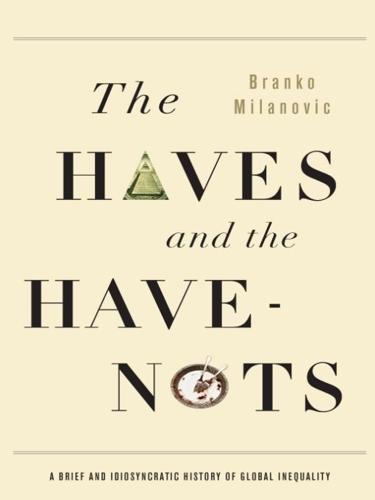
The Haves and the Have-Nots: A Brief and Idiosyncratic History of Global Inequality
by
Branko Milanovic
Published 15 Dec 2010
We have Parisian fiscal data from the very end of the thirteenth and beginning of the fourteenth centuries. They have recently been digitized and used by University of Jerusalem economic historian Nathan Sussman.4 Like the 2007 data, the old data are fiscal in origin, too. They provide the average wealth tax paid by each household, or more exactly by each hearth (foyer). Applying back the tax rates that were assessed, one can estimate total wealth. For sure, the tax data then were much less reliable than today. They left out a significant portion of the population, particularly the very rich (nobility and clergy), who were exempt from taxation, and the very poor, who had no assets and paid no taxes.
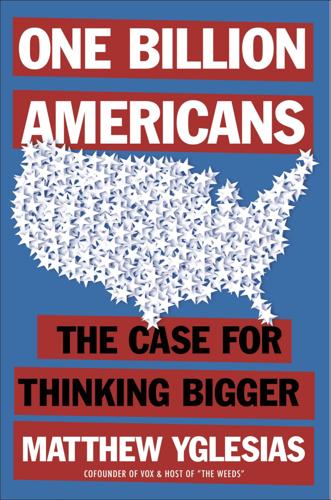
One Billion Americans: The Case for Thinking Bigger
by
Matthew Yglesias
Published 14 Sep 2020
This could be structured as a tax imposed on employers with provision to allow the Federal Reserve to automatically suspend the tax as a recession-fighting measure when economic stimulus is needed. Beyond that, to the extent we need higher taxes, it makes sense to tax things we would like to see less of. One set of popular options involves increasing taxes on the wealthy—either through higher estate taxes, by eliminating the tax-preferred status of investment income, by proposing a new wealth tax, or sometimes simply by raising rates or curbing tax deductions. Tax policy debates can consume endless pages, but the basic logic of all of these ideas is the same. On the one hand, inequality has grown significantly over the past couple of generations. On the other hand, the fundamental premise that the United States is scarce in financial capital and thus needs to fear taxing it excessively appears to no longer be true, if it ever was.
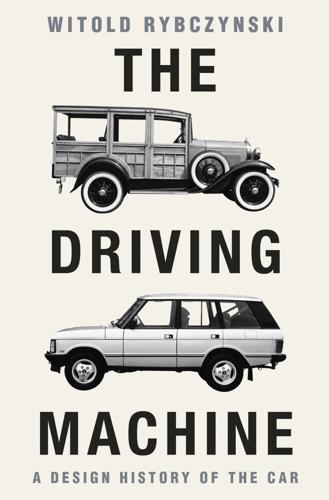
The Driving Machine: A Design History of the Car
by
Witold Rybczynski
Published 8 Oct 2024
I think it was the combination of small size, Mini handling, and Italian design that appealed to her. The driving experience had less to do with speed—although the car could reach about ninety miles per hour—but rather with the way it made you feel. In a word, it was fun. * * * i“Sign of wealth” was a reference to an annual household wealth tax that the French government had instituted in 1945. iiThe innovative Dyna Z was not an unqualified success. Because of faulty cost estimates and a rise in the price of aluminum, Panhard was obliged to switch to sheet steel for most of the body, which added about three hundred pounds to the weight of the car and required modifications to the suspension.
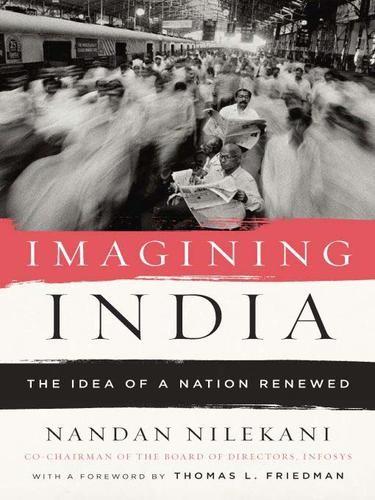
Imagining India
by
Nandan Nilekani
Published 25 Nov 2008
A flurry of activity In the 1970s and 1980s, nearly every Indian middle-class home had a cupboard made of wood or steel, with multiple locks and several small drawers. The favored brand was Godrej Storwel, with its hard-to-pick lock. Most Indian families kept their savings and jewelery here. People avoided putting money in stocks because of the “wealth tax” on such investments. When the “wealth tax” was eliminated, money came out of these cupboards and into India’s stock markets. This combination of stock-market modernization and a vibrant market enabled an explosion of new entrepreneurs who could tap into market capital to compete across industries and turned many once-oligopolistic industry sectors, such as airlines and telecom, into highly competitive ones.
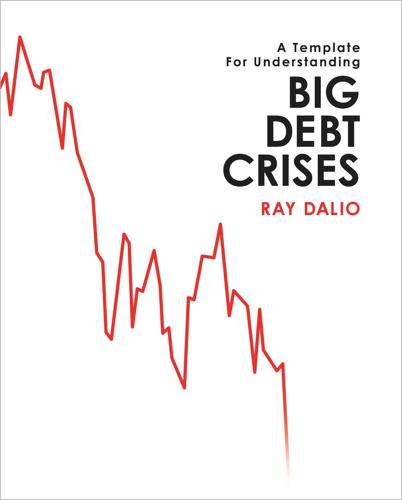
Big Debt Crises
by
Ray Dalio
Published 9 Sep 2018
I don’t mean to convey that debt reductions and austerity don’t play beneficial roles in the deleveraging process because they do—but unless they are balanced with reflationary money printing, monetization, and guarantees, they cause a huge amount of pain while not doing enough to restore the economy. 9. The extent to which wealth taxes can be applied varies by country. For example, they have been judged to be unconstitutional in the US but have been allowed in other countries. Inflationary Depressions and Currency Crises In the previous section, we looked at the archetypal deflationary debt crisis, which we created by averaging the 21 deflationary cycles you can review in Part 3.
…
Fed Chairman Eccles pushed back on Morgenthau, urging him to balance the budget and raise tax rates to begin to retire debt.199 Additionally there was a fiscal tightening. Federal government outlays fell 10 percent in 1937 and another 10 percent in 1938. The Revenue Act of 1937 was passed to help to close loopholes in the Revenue Act of 1935 (which was sold as the “wealth tax”).200 That act had increased the federal income tax for the highest incomes up to 75 percent. The federal budget deficit went from around -4 percent of GDP to neutral. The reversal in the budget in 1937 was a consequence of a large increase in taxes, mostly from a rise in the Social Security tax, along with sizable but smaller cuts in spending.201 There was significant pressure on the government to pass redistributive policies, as the recovery thus far was perceived to be uneven (i.e., benefiting the elites over the common man).

Flight of the WASP
by
Michael Gross
Always, he reflected his times—even if they no longer cared very much about people like him. * * * After World War II, and even as affluence spread, a backlash against both Theodore Roosevelt’s Square Deal and his cousin Franklin’s New Deal progressivism set in among WASPs. Hidebound, and furious over New Deal initiatives like the Wealth Tax, introduced in 1935, and progressive reforms that followed in 1937 and beyond, which tightened loopholes used by the oligarchy and effectively redistributed its wealth, its members reinforced the walls that still stood around their prerogatives and barricaded the doors of their corporations and private clubs.
…
Steel, 251 US Treasury, 184 Utes tribe, 200 van Brughe Livingston, Sarah (Sarah Jay), 252 Van Buren, Martin, 135, 176, 177, 182–183, 189, 191, 193, 195 Vanderbilt, Alva Erskine Smith, 269–270 Vanderbilt, Consuelo, 269–271 Vanderbilt, Cornelius, 3, 233, 250 Vanderbilt, Cornelius, II, 260 Vanderbilt, Gertrude, 279, 384 Vanderbilt, Gloria, 345 Vanderbilt, William Henry, 251, 258, 269 Vanderbilt, William Kissam “Willie,” 259, 269–270, 281 Vermont, 35, 142 Vidal, Gore, 230, 346 Vietnam War, 399–400 Virginia, 25, 72, 101–103, 107–108 Virginia and Kentucky Resolutions, 113 Virginia Company of London, 20, 25, 30, 102 Virginia Constitutional Convention, 136 voting, 72, 80, 81 Wade-Davis Bill, 214 Wampanoag tribe, 43 wampum, 33 Warburg, Felix, 312, 317 War Department, 178, 180 Ward Howe, Julia, 239, 252 Warhol, Andy, 345 War of 1812, 125–126, 127, 166, 168, 176 Washington, George, 71, 73, 79–80, 87–88, 143, 150, 165 WASPs advancement of, 253–255 attention increase of, 264 background of, 11 backlash from, 328 challenges of, 375 characteristics of, 9 clanishness of, 293 confidence of, 88 decline of, 10, 13–14, 416–417 diversity resistance by, 7–8 duties of, 329–330 engagement of, 375 escape of, 375 immigration concerns of, 290–291 immigration of, 255 incorporation into, 13 introduction of, 3–7 irrelevance of, 417 justification of, 262 obituaries of, 9–10 population of, 201 as presidents, 4 as rebels, 345 resorts of, 256 as role models, 9 schools for, 241–242, 255 self-indulgence of, 374 social changes of, 327–328 traits of, 80 values of, 418 wealth sources of, 283 writings regarding, 8–9 Wealth Tax, 328 weapons, purchase of, 210–211 Weber, Max, 49 Webster, Daniel, 177, 184, 192 Webster, Noah, 19 Weed, Thurlow, 206 Wenner-Gren, Axel, 349 West, Francis, 111, 137 West Jersey, 146 Weston, Thomas, 25, 31–32 Wheelock, Alice, 413–414 Whig Party, 186, 203–204 Whiskey Rebellion, 175 Whitehouse, Sheldon, 10 Whitney, Barbara, 384 Whitney, Charlotte Anita, 49 Whitney, Cornelius Vanderbilt “C.
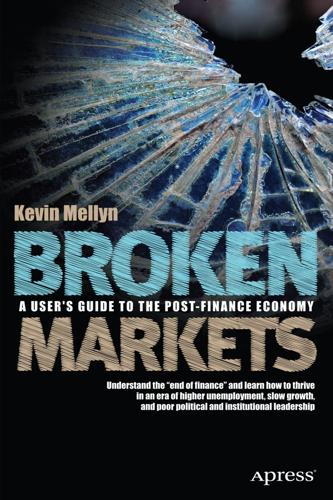
Broken Markets: A User's Guide to the Post-Finance Economy
by
Kevin Mellyn
Published 18 Jun 2012
Since no level of taxation could possibly meet the entitlement claims of my generation (yes, I am a baby boomer, born in 1946), plus the public union pension claims in most Western countries, something will have to give. Here I would not bet against the insiders putting off the day of reckoning until things become catastrophic. Do not dismiss the possibility of wealth taxes and nationalization of private pensions in the name of fairness. Such things have happened, even in Britain. Assuming happily that your personal wealth and pension plan are not going to be taxed, nationalized, or inflated away (real possibilities but not worth dwelling on), you will receive less income from them than you planned for and expected.
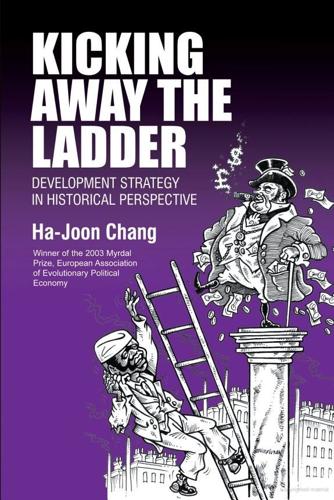
Kicking Awaythe Ladder
by
Ha-Joon Chang
Published 4 Sep 2000
When this pressure came to naught, The Times poured scorn on the US federal government's attempt to raise a new loan later in the year by arguing that '[t]he people of the United States may be fully persuaded that there is a certain class of securities to which no abundance of money, however great, can give value; and that in this class their own securities stand pre-eminent'.116 What especially exacerbated the problems in the public finance of the time was the combination of frequent wars, which required substantial extra public financing, and the inability to collect direct taxes, especially income tax.117 The absence of income tax (some countries had had property tax and/or wealth tax from relatively early on) in part reflected the political under-representation of the poorer classes, but also the limited administrative capability of the bureaucracy. This restricted bureaucratic capacity was indeed one reason why tariffs (the easiest taxes to collect), were so important as a source of revenue in the NDCs in earlier times, and also for many of today's poorest developing countries.
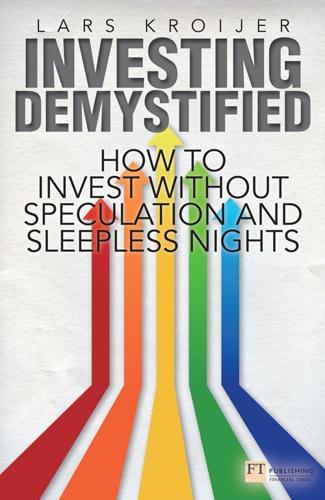
Investing Demystified: How to Invest Without Speculation and Sleepless Nights
by
Lars Kroijer
Published 5 Sep 2013
This could include pension age, other assets, potential liabilities, tax, etc. presented in a fairly generic way, but with the possibility of getting very sophisticated and more detailed. Subject to proper data protection and guarantees of confidentiality, this risk assessment could include data such as your job, education, residence, mortgage, marital status, family wealth, tax returns, Linkedin and Facebook profiles, etc. that are already available subject to a few clicks and permissions. While intrusive sounding, I wouldn’t be surprised to see the advisory world move in that direction with the happy complicity of customers. Done correctly the customer could be better informed and invested.
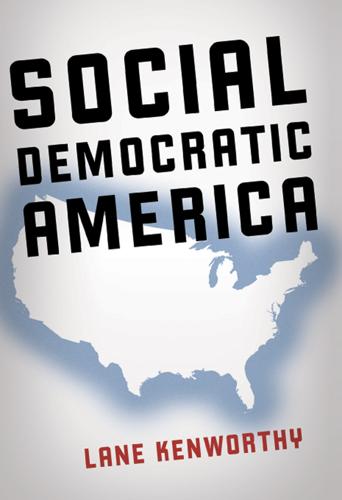
Social Democratic America
by
Lane Kenworthy
Published 3 Jan 2014
Although Swedish CEOs and financial players don’t pull in American-style paychecks and bonuses in the tens of millions of dollars, there is little to prevent an entrepreneur from accumulating large sums of money. In the 1990s Sweden undertook a major tax reform, reducing marginal rates and eliminating loopholes and deductions. It lowered corporate income and capital gains tax rates to 30 percent and the personal income tax rate to 50 percent. Later, it did away with the wealth tax. In the early 2000s, a writer for Forbes magazine mused that Sweden had transformed itself from a “bloated welfare state” into a “people’s republic of entrepreneurs.”32 FIGURE 4.9 When did the United States go “cutthroat” and Sweden go “cuddly”? Top 1 percent’s income share: share of pretax income, excluding capital gains.

How to Write Your Will: The Complete Guide to Structuring Your Will, Inheritance Tax Planning, Probate and Administering an Estate
by
Marlene Garsia
Published 1 Jan 2008
But if you are in the fortunate position of having that amount of assets, effectively you will be writing in your will ‘to my children I leave £650,000 and to the Treasury I leave the remainder’. You may feel generously inclined to the tax authorities but 40 per cent still bites deeply into anyone’s estate. Equalisation of assets between spouses not only saves on inheritance tax but, if a future government were ever to introduce an annual wealth tax or decrease the threshold and/or increase the percentage level at which the difference is paid on, equalisation could minimise the effect of this tax as well. No matter what you decide on, eventually the government will change and the question of capital taxes – limits and/or methods of calculation as has recently happened – will probably be cause for thought once more.

Dreams of Leaving and Remaining
by
James Meek
Published 5 Mar 2019
Since the welfare state and progressive taxation began to replace the medieval state and predatory taxation, income tax and other taxes on wealth have been used for other purposes, such as military spending and paying off government debt. Both Peel and Lloyd George, when they turned to income tax in their most famous budgets, had an eye on the country’s past borrowings. As Piketty points out in Capital in the Twentieth-First Century, the huge increase in income and wealth tax rates in industrialised countries after the First World War wasn’t just a consequence of universal suffrage and the clamour for better services; it was also a consequence of debts racked up in wartime. Between the 1920s and 1980s, the demands of the welfare state – the social state, in Piketty’s terms – and warrelated debt kept progressive taxes high: progressive meaning that the poorest paid little, the middle classes paid a significant amount, and the richest paid a lot.

Abolish Silicon Valley: How to Liberate Technology From Capitalism
by
Wendy Liu
Published 22 Mar 2020
These efforts would have to be in tandem with other approaches to prevent capital from reaping the rewards. Companies with excess profits accrued through rent-seeking should be considered targets for nationalisation. Failing that, they should have to lower prices, increase R&D spending, and/or raise wages; the rest could be taxed away. And a strict wealth tax would also be useful given that those with a high amount of savings can draw passive income solely from investing. The overall effect would be a fairer distribution of wealth: higher living standards for those currently on the bottom, accomplished through curbing the excessive power of the ultra-rich.
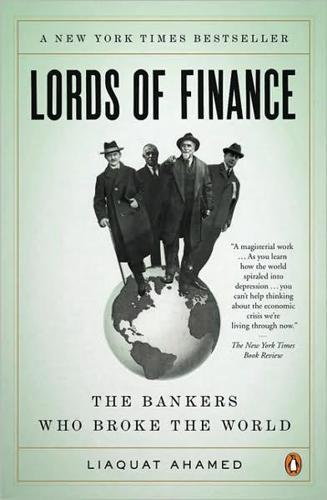
Lords of Finance: The Bankers Who Broke the World
by
Liaquat Ahamed
Published 22 Jan 2009
But fearing such a move would irretrievably compromise the Banque’s reputation, the president of the republic killed the idea. Moreau saw his hopes of redemption dashed yet again. Caillaux succeeded on some fronts. He managed to negotiate a budget deal that, for the first time since 1913, promised to balance the government’s accounts. At the same time, he squashed the proposal for a capital levy, a form of wealth tax much enamored by the Socialists, the threat of which was provoking a flight of capital. In July, he went to London and struck a bargain with Winston Churchill to restructure the French war debt to the British at 40 cents on the dollar, effectively cutting it from $3 billion to $1.2 billion. But the combination of France’s financial problems and its political logjam were too great even for a man of Caillaux’s abilities as financier and politician.
…
In November, Caillaux was ousted, one more victim of the vendettas and personal intrigue that pervaded French political life. As he left, the franc touched 25 to the dollar. In his seven months in office, the cost of living had risen by 10 percent. During the following eight months, France had five different finance ministers, each with his own pet solution—a wealth tax, a moratorium on certain maturing debts, more vigorous collection of taxes, an increase in the turnover tax. Each failed to stem the collapse in confidence. French investors continued to pull their money out of the country. In April 1926, France and the United States finally negotiated a war-debt settlement at 40 cents on the dollar.
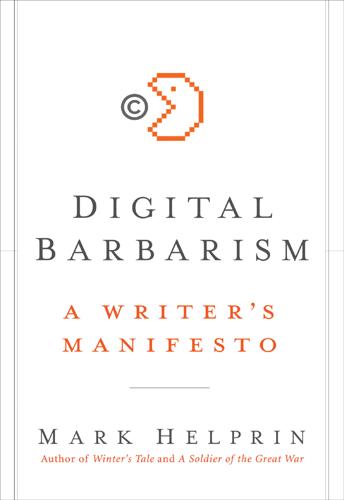
Digital Barbarism: A Writer's Manifesto
by
Mark Helprin
Published 19 Apr 2009
If this is property as they claim then it has value, and, more importantly, it can be taxed.”47 Of course, its earnings are taxed (and what kind of nonproperty is capable of generating a return?), as it itself is taxed upon the death of whoever owns it. But what we have here is, I believe, a call for a wealth tax on what the proponent believes is not actually property. Real estate is taxed this way, as are boats, cars, and other such things in various states and localities as a result of specific legislation, but most property—stocks, bonds, furniture, savings accounts, et al.—is not. Therefore, the fact that it is not taxed does not prove that it is not property, and the fact that it is property does not require that it be taxed.
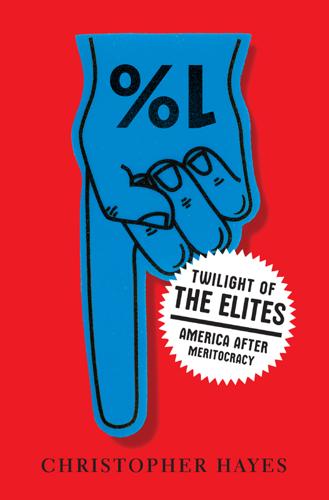
Twilight of the Elites: America After Meritocracy
by
Chris Hayes
Published 11 Jun 2012
DataSetCode=REV, accessed January 26, 2012. 16 “a certain corrective against the development of a race of idle rich”: Cited in Martin J. Daunton, Just Taxes: The Politics of Taxation in Britain (Cambridge: Cambridge University Press, 2002), p. 124. 17 “As a rule, a self-made millionaire is not an extravagant man himself”: See the full text of Carnegie’s speech in “Wealth Tax Views in Notable Talks,” New York Times, December 14, 1906. 18 “would cost $68 billion, help only the richest of the rich”: See “Inheritance and Estate Taxes,” http://topics.nytimes.com/top/reference/timestopics/subjects/i/inheritance_and_estate_taxes/index.html, accessed January 25, 2012. 19 an average effective tax rate of 16.6 percent: See David Cay Johnston, “9 Things the Rich Don’t Want You to Know About Taxes,” Association of Alternative News Media, April 14, 2011, http://www.altweeklies.com/aan/9-things-the-rich-dont-want-you-to-know-about-taxes/Story?
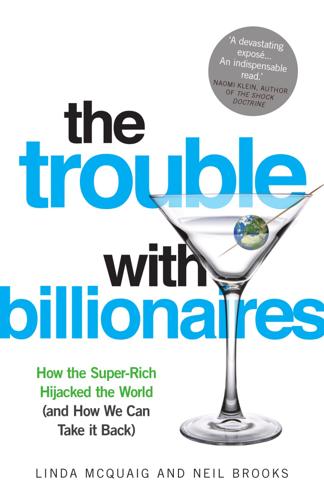
The Trouble With Billionaires
by
Linda McQuaig
Published 1 May 2013
The Commission on Taxation and Citizenship proposed a similar plan that would provide a capital grant to young people at age eighteen.49 Two Yale University law professors, Bruce Ackerman and Anne Alstott, proposed an ambitious scheme to provide a large grant of $80,000 to every American upon reaching adulthood, and financing it with an annual wealth tax of 2 per cent.50 Ackerman and Alstott make a lovely point when they note that the idea of taxing wealth in order to provide benefits for all is really a way of ensuring that inheritance is something in which we all share as part of our democracy, not just a privilege enjoyed by the rich: ‘The time has come to create a world in which inheritance is not merely a function of family but of citizenship – where all members of the commonwealth have a right to inherit a fair share of the material endowment created by previous generations and are not merely forced to rely on the luck of inheriting wealth from a rich family.’51 This is certainly an idea we endorse.
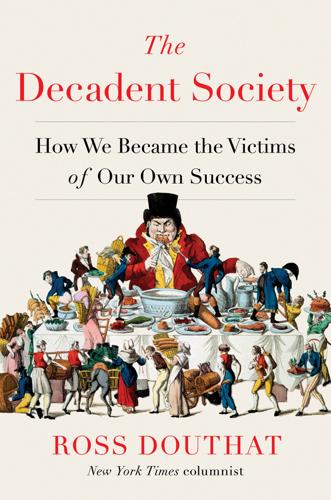
The Decadent Society: How We Became the Victims of Our Own Success
by
Ross Douthat
Published 25 Feb 2020
And the cost of its privilege, it appears, is economic disappointment for everyone else. The Limits on Growth This story is depressing but also, in a sense, modestly encouraging, since it implies solutions to stagnation, however politically difficult they might be. Bust or weaken the new monopolies; roll back various elite privileges; tax wealth; tax Harvard; deregulate but differently; cut welfare, but this time for the rich; protect and boost the middle class—do all of this and more, and the developed world’s economies might once more fulfill their old promise of broadly shared, accelerating growth. But such solutionism may be insufficient to the problem’s scale.

The New Class Conflict
by
Joel Kotkin
Published 31 Aug 2014
Piketty’s acolytes, like the liberal journalist Dean Baker, rightfully favor attempts to curb crony capitalist finance. Yet, characteristically of the Clerisy, he largely ignores the new tech and media Oligarchs, who arguably represent the most heavily concentrated, powerful, and politically ascendant business interests in the world. A wealth tax that ignored such enormous concentrations of economic and political power, even if they shrewdly support “progressive” political movements, would have limited effect even if such a measure could be implemented on a national or global scale.5 There is little reason to think that redistribution by the state, which would certainly help some, would improve material conditions for much of the middle class, and it might end up expanding the permanent underclass of technologically obsolete and/or economically superfluous dependents.
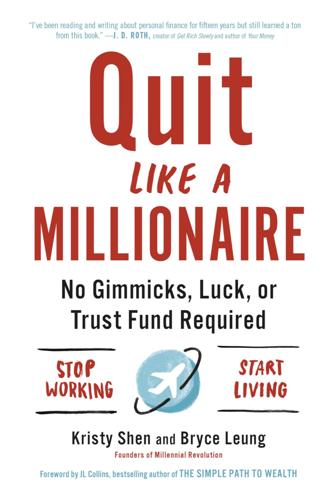
Quit Like a Millionaire: No Gimmicks, Luck, or Trust Fund Required
by
Kristy Shen
and
Bryce Leung
Published 8 Jul 2019
In chapter 9, I explained how houses aren’t effective at making you money. Even when the value of your home goes up, those gains end up making the bank, real estate agents, and your local government rich while you’re left with a tiny slice of the pie. Rich people understand this, and they also understand that property tax is a wealth tax that they can’t get around. That’s why rich people tend not to hold a lot of their net worth in their primary residence, whereas middle-class people often do (one reason why it’s hard to break out and become rich). Instead, rich people tend to hold the majority of their wealth in investments. Specifically, they hold investments that return money to them as dividends or capital gains.
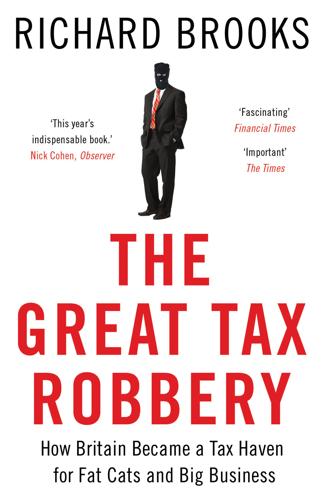
The Great Tax Robbery: How Britain Became a Tax Haven for Fat Cats and Big Business
by
Richard Brooks
Published 2 Jan 2014
This appeared to have enabled VIL to cease using its Swiss branch as the Luxembourg authorities generously agreed the paper losses could be set against the company’s interest income and wipe out any tax bill without the Swiss detour. Comically, however, the branch in Bern would be maintained as an unoccupied locked room in an accountant’s office so that loans could be ‘parked’ there for a few days over the company’s accounting date and escape even the relatively minor Luxembourg wealth tax that was levied on assets held in the Grand Duchy at these times. As Mannesmann and other companies continued to pay money into VIL, the tax avoidance provided some ongoing compensation for the flawed acquisition. Up to 31 March 2010, the Luxembourg company earned interest on its loans to fellow Vodafone companies of €16.8bn.

Ten Lessons for a Post-Pandemic World
by
Fareed Zakaria
Published 5 Oct 2020
They must see public services as investments rather than liabilities, and look for ways to make labour markets less insecure. Redistribution will again be on the agenda; the privileges of the elderly and wealthy in question. Policies until recently considered eccentric, such as basic income and wealth taxes, will have to be in the mix.” These were strong words coming from a surprising place. But many in the Western world were already welcoming even more radical ideas. In America, for example, 43% of those surveyed in a May 2019 Gallup poll agreed “some form of socialism” would be good for the country.
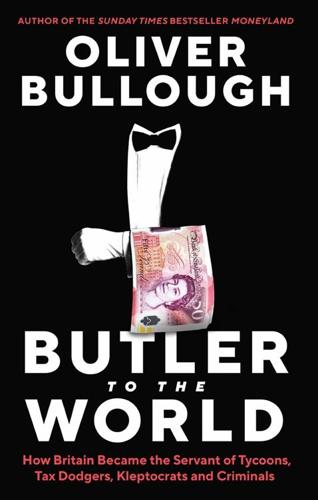
Butler to the World: How Britain Became the Servant of Tycoons, Tax Dodgers, Kleptocrats and Criminals
by
Oliver Bullough
Published 10 Mar 2022
An election in 2017 had returned a minority Conservative government, and loyalties had splintered as Brits identified as much as pro- or anti-EU as they did by political party, which gave Labour’s Margaret Hodge and the Conservatives’ Andrew Mitchell the chance to force the UK to impose rules on its remaining colonies, so as to stop them hiding wealth. ‘Tax avoidance and financial crime are not trivial irritants. The problem is widespread and corrosive. If we fail to act, we are complicit in facilitating the very corruption that this government and this prime minister have told us they are determined to tackle,’ said Hodge. ‘Our overseas territories are an integral part of Britain and they should be guided by the same values as us.

Beautiful Solutions: A Toolbox for Liberation
by
Elandria Williams, Eli Feghali, Rachel Plattus
and
Nathan Schneider
Published 15 Dec 2024
When investors and participants share both risk and return, there is no incentive for dangerous financial projects such as the exchange of a debt for a debt or “shorting”—which helped produce the 2007–2008 global financial crisis by enabling investors to profit when borrowers don’t pay back their loans. Fair trade, socially responsible enterprises, and shared investments make up the backbone of contemporary Islamic economics. Islamic tradition also recommends a wealth tax known as zakat on idle assets—those not generating revenue but requiring maintenance costs—which reflects an expectation that rich individuals and companies should circulate wealth in the economy rather than putting the burden on those dependent on an income. This tax then becomes a source of interest-free capital for future entrepreneurs.
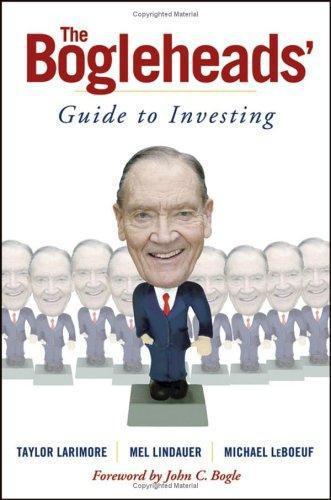
The Bogleheads' Guide to Investing
by
Taylor Larimore
,
Michael Leboeuf
and
Mel Lindauer
Published 1 Jan 2006
Chad and Cathy have heard about Roth IRAs, where they can accumulate money tax-free for retirement. And both of their employers have 401(k) plans in which the employer provides a company match of any money that they are willing to save and invest on a tax-deferred basis. However, they pass up the offers of free money and the opportunity to build wealth tax-free. Of course, they would like to save. Unfortunately, there are too many things they need right now: a new car, that big-screen TV, an iPod, a new cell phone with a digital camera, a trip to Disney World, and scores of other life necessities. Their soul may belong to God, but Madison Avenue is in control of their wallet.
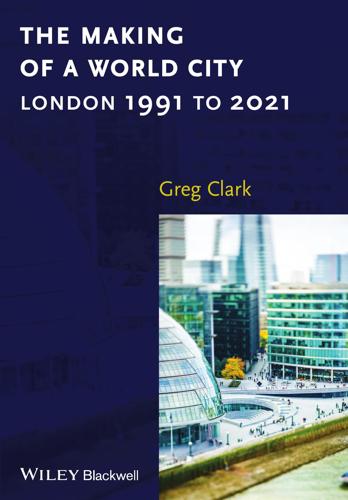
The Making of a World City: London 1991 to 2021
by
Greg Clark
Published 31 Dec 2014
One aspect of this challenge is the lack of flexible coordination involving business, housing providers, local government and health providers. Currently, there are too few mechanisms to encourage joint working across departments, and a lack of effective partnership. Seventh, although the threat of politically-motivated tax rises, visa restrictions, and targeted wealth taxes impacts has eased somewhat, London’s business environment is not entirely predictable going forward. The alarmist concerns of a mass exodus of talent or capital were overstated, but the spate of regulatory measures hanging over London reflects a lack of pride that much of the UK takes in London’s elevated position.
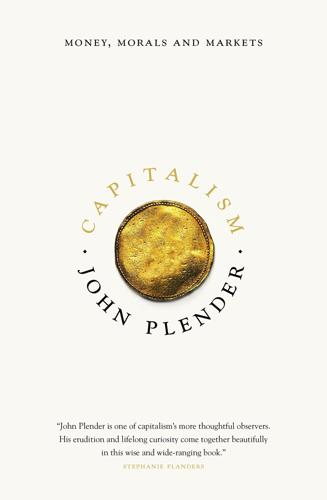
Capitalism: Money, Morals and Markets
by
John Plender
Published 27 Jul 2015
There can be no scientific guarantee that the return on capital will outstrip economic growth and at the time of writing there is widespread concern in capital markets that the risk-adjusted return on capital is below current rates of growth in the developed world. But should Piketty’s assertion turn out to be right, the already extreme levels of inequality in pre-tax income and wealth in much of the developed world would indeed become even more extreme. Hence his case for far higher marginal tax rates on high incomes and a progressive global wealth tax.199 If policymakers found his arguments persuasive, that would imply a return to the level of taxation reached in Western democracies in the 1970s – the high water mark in terms of redistribution. Since then, globalisation, the growth of competition between different tax jurisdictions and of tax havens, has restrained the power of governments to tax.
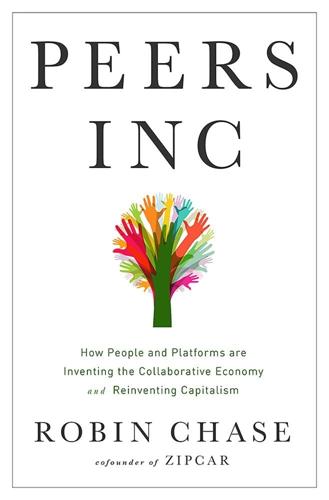
Peers Inc: How People and Platforms Are Inventing the Collaborative Economy and Reinventing Capitalism
by
Robin Chase
Published 14 May 2015
We know that when employers outsource labor, even within the same country, they do so to avoid paying for health insurance, worker’s comp, disability insurance, and retirement benefits (remember the FedEx case in the last chapter, where the company claimed—and lost—its California delivery drivers were independent contractors). All these services have to be paid for by somebody; the costs are simply being moved to the shoulders of the government. Thomas Piketty, the economist who burst into public consciousness with his bestselling book Capital in the 21st Century, calls for a global wealth tax that is impossible to evade by changing jurisdictions. This seems like a radical proposal indeed, but given the spread of multinational corporations and offshore profits, can multinational taxation be far away? Other models might include a value-added tax (VAT), a luxury tax, or, better yet, a carbon tax.

The Age of Stagnation: Why Perpetual Growth Is Unattainable and the Global Economy Is in Peril
by
Satyajit Das
Published 9 Feb 2016
These taxes are regressive, applying at the same rate to all taxpayers irrespective of income and thus imposing a greater burden on the poor than on the rich. Tax anomalies and distortions favor the affluent. According to the Internal Revenue Service, the top 400 taxpayers in the US paid an average tax rate of 18 percent in 2010. Capital gains and investment income receive preferential treatment. Property and wealth taxes have been reduced or eliminated, or are avoided where they exist. Tax-deductible interest payments subsidize debt financing for businesses and investors. Excessive, complex exemptions and deductions allow tax minimization. These are exacerbated by special provisions for specific industries, especially oil and mining, financial services, and real estate, obtained through intensive lobbying.

Alchemy: The Dark Art and Curious Science of Creating Magic in Brands, Business, and Life
by
Rory Sutherland
Published 6 May 2019
By contrast, consider for a second the success of private organisations in securing philanthropic donations when they can offer the donor something in return – even something as trivial as naming rights to a building. The taxation we give to the government doesn’t provide us with the opportunity to create a narrative that might make us happy about what we pay. Taxes, like parking fines, are seen as wholly bad, but a little alchemy could solve this problem quite easily. In ancient Rome, wealth taxes were levied to fund military campaigns or public works, and since the names of the people who paid them were displayed on a monument, with the money dedicated to a specific end, rich people were happy to pay, with those initially deemed too poor to be liable volunteering themselves, saying ‘Actually I’m much richer than you think.’
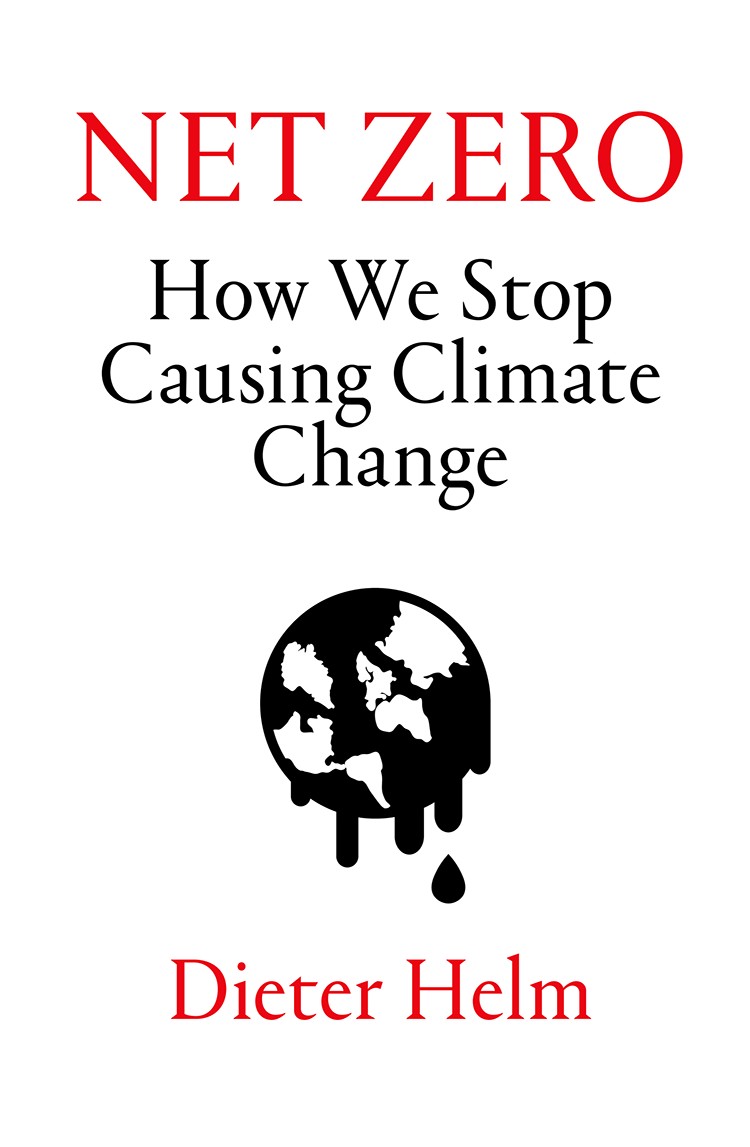
Net Zero: How We Stop Causing Climate Change
by
Dieter Helm
Published 2 Sep 2020
The obvious answer for the left is to use progressive income and wealth taxation, and then regulation rather than taxes to fix the pollution. It is not difficult to see what a hard sell to the electorate this is going to be, if taxes are to pay for the massive investment needed. It takes wars to get people to vote for substantial tax hikes, and successive left governments have found it very difficult to introduce even modest wealth taxes. This is where the honest activities get overtaken by less honest ones. In the US and some European ‘green new deals’, the tax issue is avoided by advocating borrowing instead, playing the classic Keynesian card. New national investment banks and national transformation funds are going to be tasked with borrowing to finance the investments.
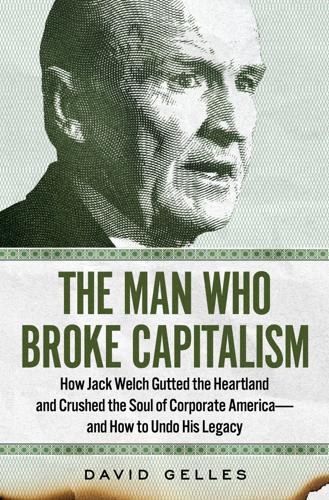
The Man Who Broke Capitalism: How Jack Welch Gutted the Heartland and Crushed the Soul of Corporate America—and How to Undo His Legacy
by
David Gelles
Published 30 May 2022
While tax reform is arduous and complex, it’s a necessary corrective after decades when conservative economic policies have whittled down the tax base, leaving federal and local governments underfunded, and thereby contributing to a cascade of self-reinforcing social ills, from poor public education to an unskilled labor pool to families with insufficient savings to take care of their basic needs in a medical emergency. Broadly, we should impose higher taxes on capital gains—things like real estate transactions and stock sales—and lower taxes on labor or earned wages. A wealth tax on the very richest Americans could also be effective. By one estimate, an annual 2 percent levy on those with a net worth between $50 million and $1 billion, and a 6 percent tax on net worth exceeding $1 billion, would raise about $3.7 trillion over ten years. Corporate taxes should also go up, but not all of them.
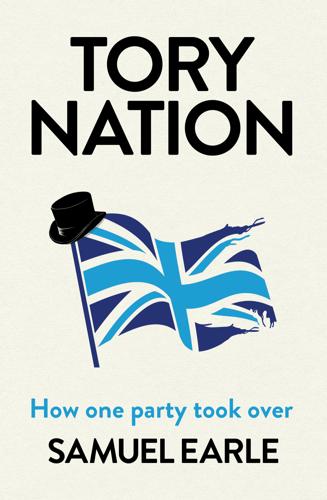
Tory Nation: The Dark Legacy of the World's Most Successful Political Party
by
Samuel Earle
Published 3 May 2023
, YouGov, 17 May 2021; Kenan Malik, ‘Culture wars risk blinding us to just how liberal we’ve become in the past decades’, Observer, 21 June 2020. 12 John Burn-Murdoch, ‘Britain is now a high-immigration country and most are fine with that’, Financial Times, 12 May 2022. 13 Trinh Tu, ‘Britons support paying more tax to fund public services – most popular being a new net wealth tax’, Ipsos, 6 October 2020. 14 Nancy L. Rosenblum, On the Side of the Angels: An Appreciation of Parties and Partisanship, Princeton University Press, 2010, p. 457. 15 Stuart Hall, ‘Blue Election, Election Blues’, in The Hard Road to Renewal: Thatcherism and the Crisis of the Left. 16 ‘How Boris Johnson undid the Tory Party’s mythology’, Economist, 11 June 2022.

Zero-Sum Future: American Power in an Age of Anxiety
by
Gideon Rachman
Published 1 Feb 2011
Britain’s left began to moderate its opposition to Thatcherism and, as Grant puts it, “abandoned policies of socialism in one country, partly because it had seen them fail in France.”11 In West Germany, Chancellor Helmut Kohl, the leader of the Christian Democrats, had taken power in an internal party coup in 1982. In 1983 he won an election, defeating a left-wing opposition that had wanted to attack unemployment through much higher public spending and that was keen on Mitterrand-style wealth taxes and social legislation. By contrast, Kohl pushed his country toward a warmer attitude to the market. He was also favorably impressed by the French finance minister. He let President Mitterrand know that he approved of the idea of appointing Jacques Delors as the head of the European Commission—the policy-making, law-enforcing heart of the EEC in Brussels.

Tightrope: Americans Reaching for Hope
by
Nicholas D. Kristof
and
Sheryl Wudunn
Published 14 Jan 2020
Another way to raise significant sums would be a small financial transaction tax on trades of stocks, bonds, foreign exchange, commodities and derivatives, as proposed by John Maynard Keynes, James Tobin, Bill Gates and others. The Economic Policy Institute suggests that such a tax could raise more than $100 billion annually, which should be targeted to help pay for a child allowance, early childhood education or drug and alcohol treatment. There are many other ideas, including a wealth tax, curbs on the step-up basis for capital gains, a unified rate for capital gains and earned income, and a higher inheritance tax, that are worth exploring. Outlays for people may seem like entitlements but actually are long-term capital investments in the country’s human infrastructure. The education benefits in the GI Bill of Rights helped create a nationwide foundation of human capital in America, just as the interstate highways then under construction created a physical infrastructure.
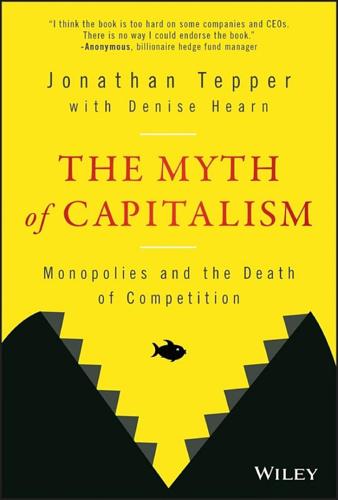
The Myth of Capitalism: Monopolies and the Death of Competition
by
Jonathan Tepper
Published 20 Nov 2018
This has enormous impacts on the ability of new companies to start and compete, the ability of workers to get higher wages, and the ability for consumers to access goods cheaply. Figure 10.9 Markups in Advanced Economies Have Been Rising since the 1980s SOURCE: International Monetary Fund. Given Piketty's diagnosis is incorrect, his solutions of very high income taxes and a wealth tax are also not the appropriate responses. It is like recommending opiates to a cancer patient. It may numb the pain, but it does not attack the cause of the distress. The appropriate solutions are not higher taxes or the growth in government. The appropriate solution is more competition and more capitalism, not less.
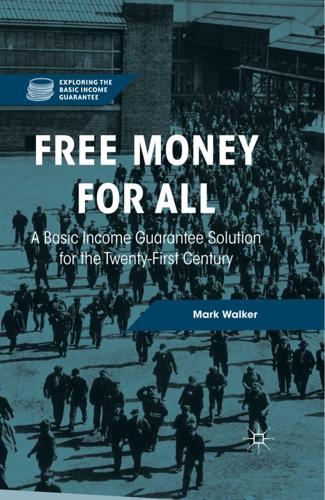
Free Money for All: A Basic Income Guarantee Solution for the Twenty-First Century
by
Mark Walker
Published 29 Nov 2015
Bruce Ackerman and Anne Alstott, The Stakeholder Society (Yale University Press, 1999). 9. For more on the mildly paternalistic reasons for not providing lump sums, see Parijs, “Real Freedom for All: What (if Anything) Can Justify Capitalism?” OUP Catalogue,1 997. 10. Sheahen proposes a 2 percent wealth tax, which raises $450 billion (Sheahen, Basic Income Guarantee: Your Right to Economic Security, 92.) We did not help ourselves to revenue from this tax in chapter 2 in anticipation of this point. Piketty also sees an inheritance tax as an important measure to reduce inequality. Piketty, Capital in the Twenty-First Century (Harvard University Press, 2014).
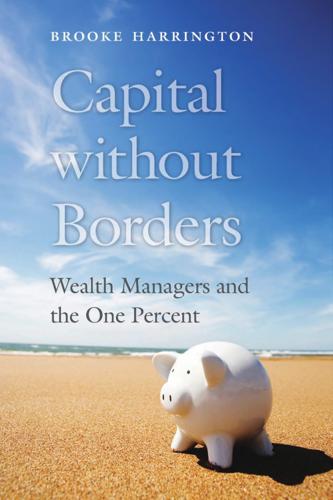
Capital Without Borders
by
Brooke Harrington
Published 11 Sep 2016
While this did not raise tax revenues in these states, putting more assets under management increased the amount of fees and other rents that could be collected by the states’ financial firms and financial professionals.25 Drew, the Canadian wealth manager based in London, argued that this phenomenon also obtains at the international level. Drew’s law firm regularly advises the U.K. Parliament on legislation affecting the firm’s high-net-worth clients. This work has included legal changes directed at making the country a particularly attractive place for high-net-worth foreigners to shelter their wealth tax-free, especially through the use of property investments. Said Drew, “The British economy has for twenty years been based on the inflation of property values. That’s why the country is competing so hard to attract ultra-HNWIs, because those people—even if the country can’t tax them—buy up the huge properties as tax shelters, and that in turn pumps up property values for everyone.
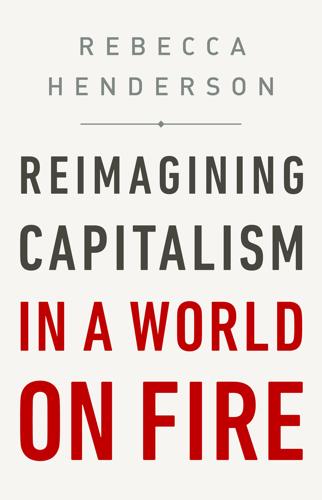
Reimagining Capitalism in a World on Fire
by
Rebecca Henderson
Published 27 Apr 2020
When historians fifty years from now write the history of how we solved global warming, drastically reduced inequality, and remade our institutions, they will focus on a few key events—perhaps in the winter that three superstorms hit the East Coast of the United States, making fixing global warming a completely bipartisan priority, or in the summer that the harvests failed across Africa, sending millions of people north to Europe, making it clear that everyone on the planet had to be given the tools they need to feed themselves. Perhaps they will tell the story of the CEO who led the coalition that helped negotiate a global labor agreement, or of the Chinese and US presidents who sat down together to make a global wealth tax feasible, or of the leaders of the social movement that made it politically impossible not to solve climate change. But this focus reflects the structure of our minds and the nature of modern communication, not the way in which change actually happens. We use stories to make sense of the noisy, messy, complicated reality of the world, and stories need central characters—single individuals we can identify with and root for.

A New History of the Future in 100 Objects: A Fiction
by
Adrian Hon
Published 5 Oct 2020
And then there were the burgeoning nonprofit and mutualized services, organizations that made everything and required zero return to shareholders. They could operate leaner than the best, but they only benefitted a select group of the most organized. It was a slow fall, but it didn’t stop for a century. The basic minimum income, funded by a wealth tax, was first introduced in Northern European countries in the ’20s, decoupling living standards, health, and wellbeing from the need to find an increasingly scarce job. In halts and starts, it spread through the rest of Europe, South America, and parts of Asia in the following decades. It was not a panacea.
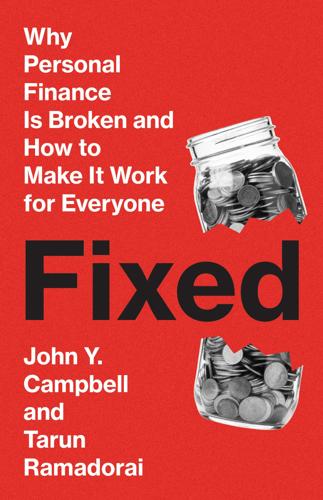
Fixed: Why Personal Finance is Broken and How to Make it Work for Everyone
by
John Y. Campbell
and
Tarun Ramadorai
Published 25 Jul 2025
For interesting commentary on this debate from outside academia, see Rogé Karma, “A baffling academic feud over income inequality,” The Atlantic, February 27, 2024, https://www.theatlantic.com/ideas/archive/2024/02/one-percent-income-inequality-academic-feud/677564/. 16. See, for example, Stefanie Stantcheva, “Perceptions and preferences for redistribution,” Oxford Open Economics 3 (2024): i96–i100. 17. An exception is that several Scandinavian countries have levied wealth taxes in the recent past and therefore have collected good administrative data on taxable wealth. See, for example, Laurent Bach, Laurent E. Calvet, and Paolo Sodini, “Rich pickings? Risk, return, and skill in household wealth,” American Economic Review 110 (2020): 2703–2747. Even the Swedish data used by Bach, Calvet, and Sodini have limitations, however.
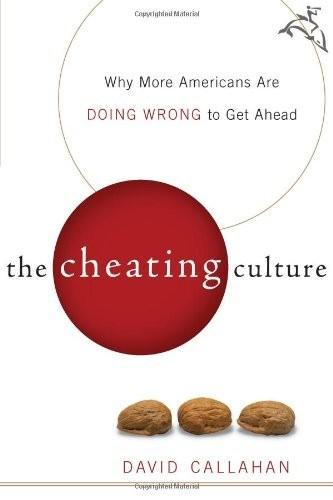
The Cheating Culture: Why More Americans Are Doing Wrong to Get Ahead
by
David Callahan
Published 1 Jan 2004
Wolff, Assets for the Poor: The Benefits of Spreading Asset Ownership (New York: The Russell Sage Foundation, 2001); Michelle Miller-Adams, Owning Up: Poverty, Assets, and the American Dream (Washington, D.C.: Brookings Institution, 2002);and Bruce Ackerman and Anne Alstott, The Stakeholder Society (New Haven, Conn.: Yale University Press, 2000). Ackerman and Alstott's strategy for creating a stakeholder society hinges on giving $80,000 to each American at birth, to be funded through a wealth tax. [back] 5. For a good overview of the idea of public financing, see Ellen'S. Miller and Micah L. Sifry, "Democracy That Works: Clean Money Campaign Reform," in Robert Borosage and Roger Hickey, eds., Next Agenda: Blueprint for a New Progressive Movement (Boulder, Colo.: Westview Press, 2001).
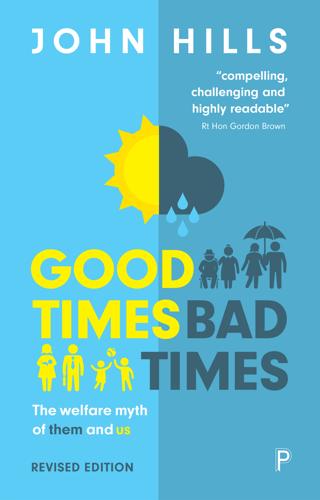
Good Times, Bad Times: The Welfare Myth of Them and Us
by
John Hills
Published 6 Nov 2014
Frank, R.H. (2016) Success and luck: Good fortune and the myth of meritocracy, Princeton, NJ: Princeton University Press. Fullerton, D. and Rao, N. (2016) The lifecycle of the 47%, NBER Working Paper 22580, Cambridge, MA: National Bureau of Economic Research. Glennerster, H. (2012) ‘Why was a wealth tax for the UK abandoned?: Lessons for the policy process and tackling wealth inequality’, Journal of Social Policy, vol 41, no 2, pp 233–49. Glennerster, H. and Evans, M. (1994) ‘Beveridge and his assumptive worlds: The incompatibilities of a flawed design’, in J. Hills, J. Ditch and H. Glennerster (eds) Beveridge and social security: An international retrospective, Oxford: Oxford University Press.

Cultureshock Paris
by
Cultureshock Staff
Published 6 Oct 2010
Tax filing for salaried employees and independent contractors is due by the end of May. Taxes are based on le revenu (earned income) and capitaux mobiliers (unearned income). Taxes can reach up to 40% of gross income (but are set to go down at least somewhat), and there are also other forms of tax: capital gains tax, death duties, gift tax, wealth tax and land tax, etc. There are some rebates, exemptions and a standard deduction for married people and those with children. French employers do not withhold any amount for tax. After the tax return (déclaration de revenus) is filed, the government calculates the tax due and sends a bill. After the first year in the tax system, the bill may be paid in three installments or debited monthly from a chequeing account.
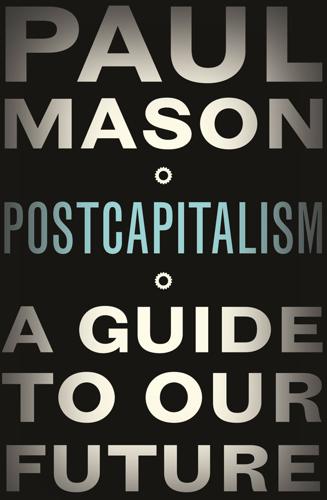
Postcapitalism: A Guide to Our Future
by
Paul Mason
Published 29 Jul 2015
The OECD points out that the polarization of populations into high-and-low-income groups will render income taxes ineffective. We will need – as Thomas Piketty suggests – to tax wealth instead. The problem here is that assets – whether they be a star racehorse, a secret bank account or the copyright on the Nike swoosh – tend to be held in jurisdictions dedicated to avoiding wealth taxes, even if anybody had the will to raise them, which they currently don’t. If things do not change, says the OECD, it is realistic to expect stagnation in the West, a slowing pace of growth in emerging markets and the likely bankruptcy of many states. So what’s more likely is that at some point one or more countries will quit globalization, via protectionism, debt write-offs and currency manipulation.
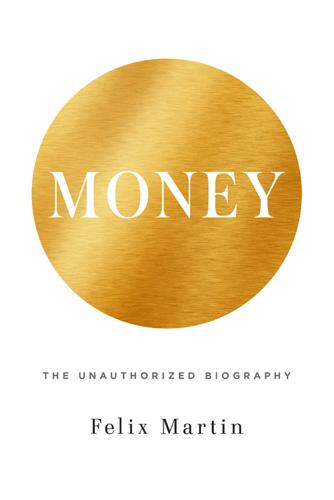
Money: The Unauthorized Biography
by
Felix Martin
Published 5 Jun 2013
But unlike today’s coins, medieval types were typically struck without any written indication of their nominal value: there was no number stamped on either face—only the face or arms of the issuing sovereign or some other identifying design. The value of the coins was then fixed by edicts published by the sovereign on whose political authority they were minted. This system had a great advantage for the sovereign. Simply by reducing the tariffed, nominal value of a coin, the sovereign could effectively impose a one-off wealth tax on all holders of coined money. A certain coin, the sovereign would announce, is no longer good for one shilling, but only for sixpence. The coin had been “cried down”; or equivalently, one could say that the standard had been “cried up.” An offer might then be made to recoin the cried-down issue, upon presentation at the Mint, into a new type.

Rise of the Robots: Technology and the Threat of a Jobless Future
by
Martin Ford
Published 4 May 2015
If Piketty’s theory is correct—and it has been subject to a great deal of debate—then I think advancing technology is likely to greatly amplify his conclusions, quite possibly producing even higher levels of future inequality than his model predicts. It’s possible that as the issue of inequality, and especially its impact on the political process in the United States, gains ever more visibility with the public, the kind of wealth tax that Piketty advocates might someday become viable. If so, I would argue that rather than portioning out redistributed capital to individuals, it would be better to set up a centrally managed sovereign wealth fund (similar to the Alaska fund) and then use the resulting returns to help fund a basic income.
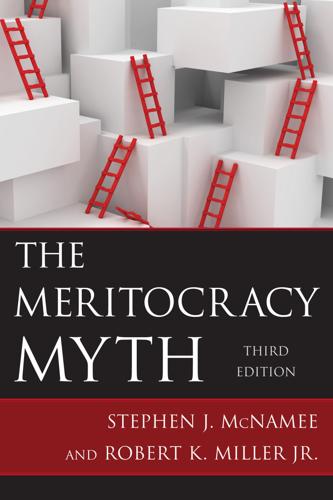
The Meritocracy Myth
by
Stephen J. McNamee
Published 17 Jul 2013
Higher estate taxes could potentially help to “reshuffle the deck” between generations to create more equal starting points by both reducing the total amount of inequality and providing more resources for the government to allocate in ways to create more opportunity for those who start further behind. Estate taxes are only one way of taxing wealth. Tax on wealth could also be based on its possession (assets tax), its use (consumption tax), or its exchange (transfer tax) (cf. Wolff 2002). Those who oppose such taxes often label them “confiscatory” and argue that they discourage work, savings, and investment. Supply-side advocates argue that taxing wealth in any form discourages investments that would otherwise create more jobs and a “trickle-down” effect of wealth creation.
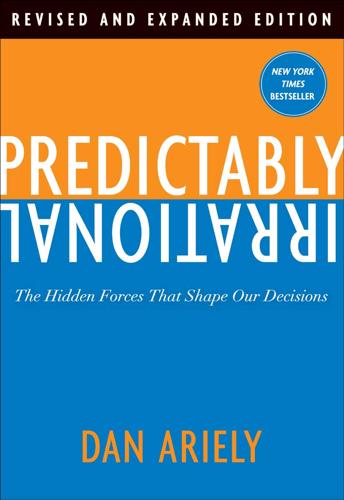
Predictably Irrational, Revised and Expanded Edition: The Hidden Forces That Shape Our Decisions
by
Dan Ariely
Published 19 Feb 2007
† When I’ve tried this kind of experiment on executives and managers (at the MIT Executive Education Program), I’ve had similar success making their social security numbers influence the prices they were willing to pay for chocolates, books, and other products. * The result was not due to wealth, taxes, or other financial reasons. * To ensure that the bids we got were indeed the lowest prices for which the participants would listen to the annoying sounds, we used the “Becker-DeGroot-Marschak procedure.” This is an auction-like procedure, in which each of the participants bids against a price randomly drawn by a computer
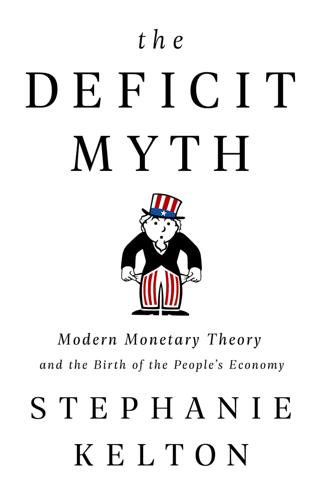
The Deficit Myth: Modern Monetary Theory and the Birth of the People's Economy
by
Stephanie Kelton
Published 8 Jun 2020
How many fewer cars, swimming pools, tennis courts, or luxury vacations will Bezos purchase after 2 percent of his wealth is taxed away? The answer is not many. A small, annual tax on a fraction of his net worth isn’t going to crowd out much of his spending. When it comes down to it, he’s more of a saver than a spender. Billionaires save their wealth in the form of financial assets, real estate, fine art, and rare coins. A wealth tax might make the infrastructure bill appear fiscally responsible, but it makes a lousy offset if the government wants to increase spending in an economy that doesn’t have much available slack. In a deeply depressed economy, this wouldn’t matter. There would be plenty of “fiscal space” because business would be operating with lots of spare capacity and there would be loads of unemployed workers available for hire.
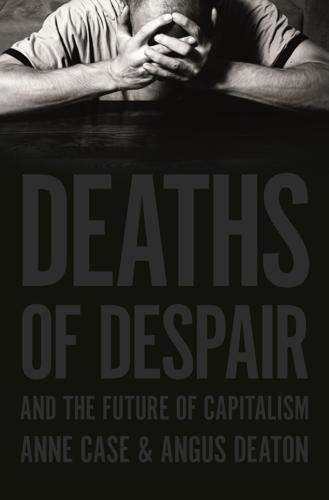
Deaths of Despair and the Future of Capitalism
by
Anne Case
and
Angus Deaton
Published 17 Mar 2020
This applies both to “good” and “bad” inequality; it doesn’t matter how people got rich if even those who earned their wealth legitimately use it to undermine the rights and interests of the nonrich. For us, the best way to deal with this is to stop the rent-seeking, lobbying, and misuse of market power that is behind the extreme inequality, to stop the unfair process. If that is impossible, high marginal income taxes or, better—but practically much more difficult—a wealth tax would lessen the influence of fortunes in politics. But it is sometimes difficult to be optimistic. One historian has argued that inequality, once it is established, is only overcome by violent ruptures and that this has been true since the Stone Age.24 We think that is too pessimistic, but it is hard to see today’s levels of inequality lessening without reforms of the processes and institutions that produced them.

Antwerp: The Glory Years
by
Michael Pye
Published 4 Aug 2021
In 1542 the French king had been assured that ‘with the weakness of the walls and the want of order for defence’ Antwerp ‘may be easily forced, and cannot be succoured’.27 The same foreign merchants who defended their city made it very clear afterwards that they would be leaving unless it was properly walled and defended. The city fathers could either demand much more tax to build formidably expensive walls or else lose the engine of the city’s wealth. Taxes were duly levied, on the butchers but also on bakers and brewers; in the end, everyone had to pay, however poor. The cash was found intermittently. The city borrowed and had to borrow again, with debts close to 1 million guilders and its future income mortgaged. Even so, seven and a half years after the new walls were begun, they were less than half completed: bastions missing, bridges not yet built, curtain walls between the bastions still just an idea; and the moat had not been dug.

All That Glitters: A Story of Friendship, Fraud, and Fine Art
by
Orlando Whitfield
Published 5 Aug 2024
After that they own the work and it’s their problem. Auction houses began offering guarantees for estates when wary executors became worried that their one chance to maximise value might be ruined by events out of their control like a yachting accident or these peoples’ worst fear: the instigation of a wealth tax. But when the contemporary art market really started to boom in the late 1990s, auction houses also began to offer guarantees to consignors of really prestigious artworks. Then everyone wanted a guarantee (a reserve was no longer enough) before they handed over their artworks and the houses couldn’t keep up with the demand, so they came up with something clever called a third-party guarantee.
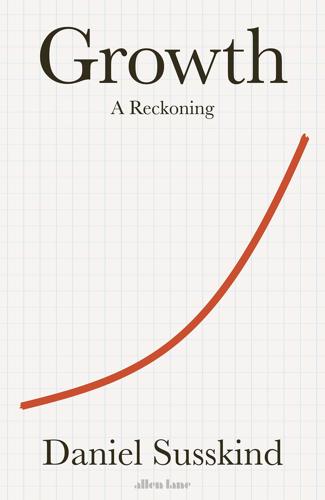
Growth: A Reckoning
by
Daniel Susskind
Published 16 Apr 2024
The US is a good example: the share of wealth owned by the top 0.1 per cent of Americans is not only large, but has risen steadily for half a century, such that it is now the same as the share of wealth owned by the bottom 90 per cent of the US population combined. An intuitive response to these trends is a wealth tax. But the idea is controversial for good reasons: some worry that ‘wealth creators’ would work less hard in response, others that they might even flee the country. And the combined effect – lower effort, higher risk of flight – suggests a hit to economic growth. Again, for some this hit is a fatal blow to the proposed policy.
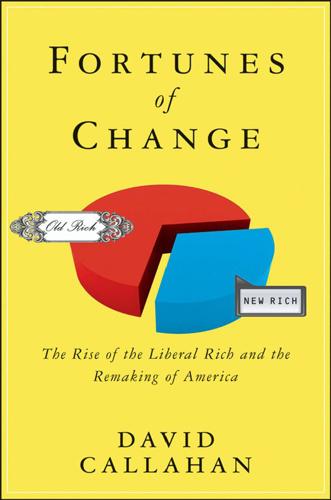
Fortunes of Change: The Rise of the Liberal Rich and the Remaking of America
by
David Callahan
Published 9 Aug 2010
Kenneth Gilpin, “Clinton’s Economic Plan Finding Respect from Corporate America,” New York Times, March 1, 1993, A1. 19. Chuck Collins, Mike Lapham, and Scott Klinger, “I Didn’t Do It Alone: Society’s Contribution to Individual Wealth and Success,” Responsible Wealth, a project of United for a Fair Economy, August 2004, 17–18. 20. “Wealth Tax Views in Notable Talks,” New York Times, December 14, 1906. 21. Remarks by Microsoft chairman Bill Gates before the Committee on Science and Technology, House of Representatives, March 12, 2008. 22. The campaign against the estate tax is recounted in “Spending Millions to Save Billions: The Campaign of the Super Wealthy to Kill the Estate Tax,” Public Citizen and United for a Fair Economy, April 2006.
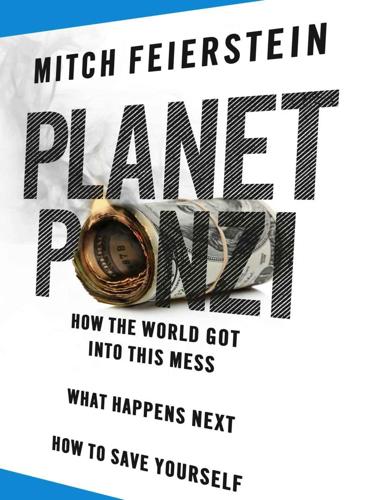
Planet Ponzi
by
Mitch Feierstein
Published 2 Feb 2012
That’s how you repay a loan on Planet Ponzi. 7 Jeffrey Birnbaum, ‘Clients’ rewards keep K Street lobbyists thriving,’ Washington Post, Feb. 14, 2006. 8 Matt Miller, ‘Make 150,000% today!,’ Fortune, Jan. 27, 2006. 9 Jacob Hacker and Paul Pierson, Winner-Takes-All Politics (Simon & Schuster, 2010), p. 25. 10 ‘Pinched,’ The Economist, Sept 17, 2011. 11 Tax Policy Center, www.taxpolicycenter.org. 12 ‘IMF finds “trillions” in undeclared wealth,’ Tax Justice Network, March 2010, www.taxjustice.net. 13 Warren Buffett, ‘Stop coddling the super-rich,’ New York Times, Aug. 14, 2011. 14 See the full breakdown at www.forbes.com. 15 ‘Treasury preserves bank payday with AIG rescue cash,’ Bloomberg, March 24, 2009. 16 Graham Bowley, ‘Strong year for Goldman, as it trims bonus pool,’ New York Times, Jan. 21, 2010. 17 Gretchen Morgenson, ‘An A.I.G. failure would have cost Goldman Sachs, documents show,’ New York Times, July 23, 2010. 18 Bradley Keoun, ‘Morgan Stanley speculating to brink of collapse got $107 billion from Fed,’ Bloomberg, Aug. 23, 2011.
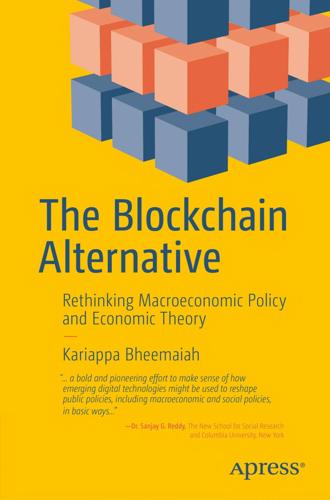
The Blockchain Alternative: Rethinking Macroeconomic Policy and Economic Theory
by
Kariappa Bheemaiah
Published 26 Feb 2017
He also proposes that revenue can be raised by eliminating the government’s $1.2 trillion tax expenditures24 and by imposing a financial transaction tax that taxes stock sales at 0.1% at issuance and 0.04% on transfer. As per his estimates, doing the latter would raise revenue by $150 billion a year. His other funding possibilities come from imposing a wealth tax on personal assets (as proposed by Piketty) and reducing the military budget and farm subsidies, and increasing levies on oil and gas companies. Apart from the above stated funding sources, we have also seen how the implementation of the Blockchain can lead to lesser tax evasion from companies and how moving to a financial system that is more in line with the Chicago Plan can reduce existing public debt levels.

New Laws of Robotics: Defending Human Expertise in the Age of AI
by
Frank Pasquale
Published 14 May 2020
So it would seem unwise to tax robotization as a whole, particularly when these sectors need to rapidly advance to give everyone some semblance of the capabilities now taken for granted by the globe’s wealthiest quintile. Another, better source of revenue for a UBI would be taxes on wealth or on high income levels. In some countries, inequality is at such extreme levels that these taxes could raise enormous sums in aggregate. For example, US senator Elizabeth Warren proposed a US wealth tax targeted at the 75,000 US households with over $50 million in assets, which would raise $275 billion a year for ten years.28 Senator Bernie Sanders would raise $435 billion annually from 180,000 households.29 Each of these plans could fund important social programs. By contrast, if the Sanders plan’s $435 billion were simply divided up among all 333 million Americans, they would receive an annual basic income of about $1,300.
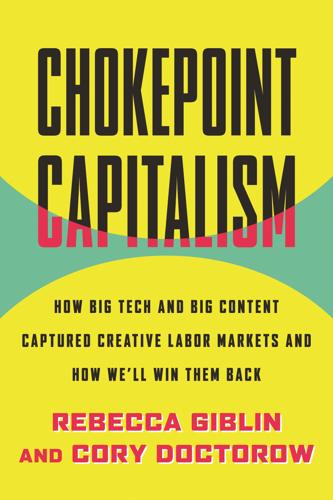
Chokepoint Capitalism
by
Rebecca Giblin
and
Cory Doctorow
Published 26 Sep 2022
To put that into context, US government spending in response to just the first few months of the coronavirus pandemic in 2020 is estimated at over $6 trillion,29 about twelve times as much, of which substantial portions are going straight into billionaires’ pockets via stock buybacks, special dividends, executive bonuses, and service on debt that’s held by the company’s investors, who borrowed from the company to pay themselves dividends that will worsen inequality at the public’s expense. Even if it cost more than that, we could afford it. One potential revenue source that’s increasingly popular with voters is a wealth tax on the richest individuals and corporations. Taxing the rich is a great idea. Indeed, it’s absolutely crucial if we want to have a political process where good ideas can be fairly heard. Right now, as we’ve seen, the richest people use their money and influence to make public policy (like the tax code, labor laws, and antitrust) serve their own economic interests.
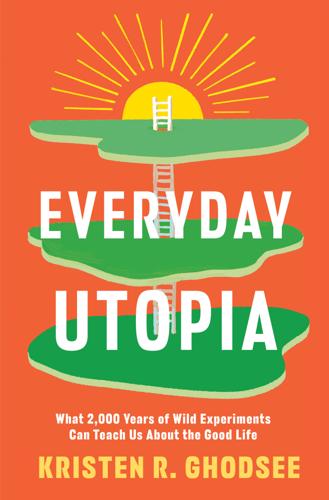
Everyday Utopia: What 2,000 Years of Wild Experiments Can Teach Us About the Good Life
by
Kristen R. Ghodsee
Published 16 May 2023
Asteroid Miners and Aspiring Immortals In the last decade, a growing number of future-positive books have suggested political and economic changes that might seem far-fetched, but are increasingly debated as real possibilities. The French economist Thomas Piketty has called for a progressive supranational wealth tax to combat income inequality.13 The Dutch journalist Rutger Bregman has promoted several utopian visions “for realists,” including open borders and a fifteen-hour workweek.14 In Abundance: The Future is Better Than You Think, Greek-American engineer Peter Diamandis (founder of XPRIZE, which rewards inventors for technological developments that benefit humanity) and science journalist Steven Kotler look to the wonders of artificial intelligence and advances in robotics to propose technological solutions to problems like food scarcity, aging populations, and climate change.
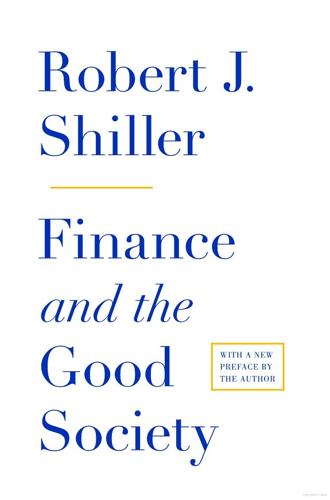
Finance and the Good Society
by
Robert J. Shiller
Published 1 Jan 2012
Professional investment managers do not seem to do particularly well in selecting their own personal portfolios either. A 2011 study by Andriy Bodnaruk and Andrei Simonov obtained data on the personal portfolios of mutual fund managers in Sweden.2 (It is possible to get these data in Sweden because the country levied a wealth tax until 2007, and so wealthy people had to report their entire personal portfolios to the government.) They found that the investment managers did no better on their investments than the average investor, nor were they more diversified. And yet, in the past half century, investments in actively managed funds have grown dramatically.
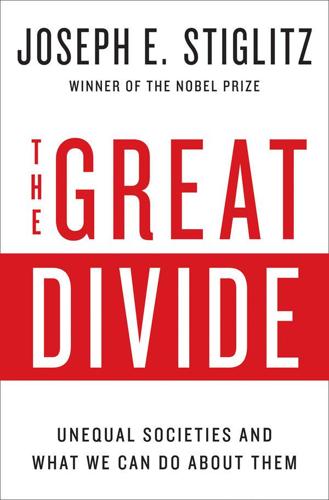
The Great Divide: Unequal Societies and What We Can Do About Them
by
Joseph E. Stiglitz
Published 15 Mar 2015
A well-functioning economy requires a balance between the public and private sectors, with essential public investments and an adequately funded system of social protection. All this requires taxation. A well-designed tax system can do more than just raise money—it can be used to improve economic efficiency and reduce inequality. Our current system does just the opposite. Piketty’s proposal for addressing inequality through taxation—a global wealth tax—is a political nonstarter, whatever one thinks of its merits. But there are steps the United States—home to the worst inequality among the advanced countries—can take on its own. With a sensible reform of our domestic tax code, we can simultaneously raise money, improve the performance of our economy, and address some of our biggest social problems—not just inequality but joblessness and looming environmental catastrophe.
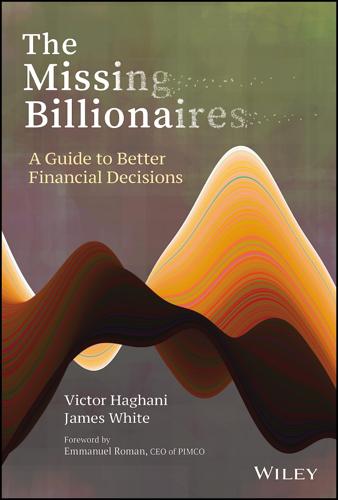
The Missing Billionaires: A Guide to Better Financial Decisions
by
Victor Haghani
and
James White
Published 27 Aug 2023
Numerical solutions can be found for any concave and smooth utility function.7 Spending policies, such as “sustainable spending” or smoothed spending, can be exogenously specified and then an optimal investment policy given that spending policy can be solved for.8 Some investors may have smaller allocations to risky assets than those suggested by their excess return expectations, possibly because of an aversion to leverage. We can still use the Merton spending rule as expressed, using the Risk‐adjusted Return on the portfolio that reflects the actual level of risk‐taking. Family Wealth Taxes on income, capital gains, and inheritance result in significantly lower expected returns for private taxable wealth than those of nontaxable endowments or foundations. As a result, optimal spending policies for pools of private capital will be substantially lower than those of tax‐exempt entities.
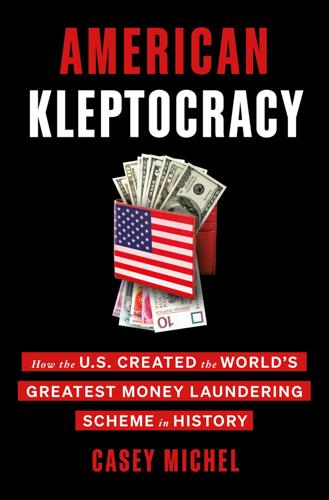
American Kleptocracy: How the U.S. Created the World's Greatest Money Laundering Scheme in History
by
Casey Michel
Published 23 Nov 2021
In the U.S., the calls manifested themselves in a revitalized left, fired by the presidential campaigns of Senator Bernie Sanders and a new roster of congressional leaders. While Sanders’s campaigns eventually flamed out, his imprint on broader policy will long outlast him. An entire slate of policy proposals, all centered on rising wealth and income inequality, have glommed on to American political discourse, and have proved impossible to dislodge. Things like a wealth tax, which would target substantial holdings of the richest among us. Things like a return to a progressive taxation policy, such as the kind America boasted during the post–World War II period, and which disintegrated amid broader deregulatory reforms. Things like bills specifically targeting the marriage between illicit finance, oligarchy, and the decline of democracy more broadly.

The Divided Nation: A History of Germany, 1918-1990
by
Mary Fulbrook
Published 14 Oct 1991
Then, too, there were those members of society who constituted different 'underworlds': those who resisted all attempts at organization of whatever kind. 1 Politically, the old Prussian aristocracy retained pre-eminence nationally, through its domination of the largest constituent state of the federal Empire Prussia. The inegalitarian three-class voting system obtaining in Prussia entailed the division of the population of each electoral district into three classes according to the payment of wealth taxes. The minority who were the richest then obtained one-third of the votes; the moderately wealthy the next one-third, and the large majority who fell into the poorest category were also allotted only one-third of the votes. The double effect of this system not only greatly disadvantaged the propertyless masses, but also promoted the political position of the landowning Junker class (who were relatively the wealthiest within the sparsely populated rural constituencies) in comparison with the very much wealthier urban bourgeoisie.
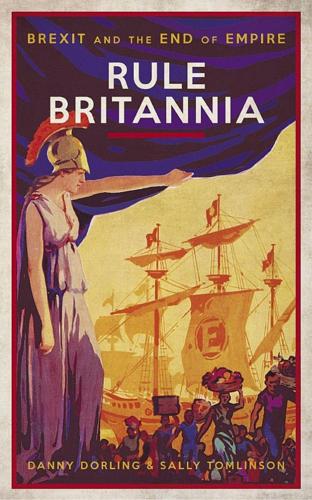
Rule Britannia: Brexit and the End of Empire
by
Danny Dorling
and
Sally Tomlinson
Published 15 Jan 2019
In recent years, income inequalities have fallen in both a majority of OECD countries and a majority of countries worldwide.26 Wealth inequalities tend to lag behind income inequalities, so that, although wealth inequalities will continue to rise for a few years to come, unless the current trend for falling income inequality is reversed, we should expect wealth inequalities in future to fall too. The introduction of more wealth taxes would greatly speed up that process, however. In London in 2018 it was already being reported that the exceedingly rich were having trouble getting servants. This is partly because they were no longer as exceedingly rich, as the pound slumped. And the potential servants from mainland Europe were looking at the UK and thinking to themselves, ‘How can I avoid going there?’
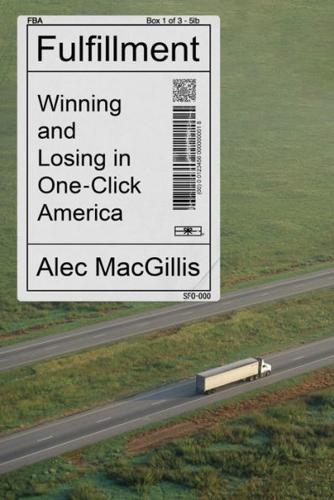
Fulfillment: Winning and Losing in One-Click America
by
Alec MacGillis
Published 16 Mar 2021
Katie Wilson … composed a ten-page essay: An edited version of this essay appeared in The Cost of Free Shipping: Amazon in the Global Economy, edited by Jake Alimahomed-Wilson and Ellen Reese (London: Pluto Press, 2020). “Seattle has a lot of folks”: Author interview with Sara Rankin, July 31, 2019. ruling by the state court of appeals: Beekman, “State Court of Appeals Rules Seattle’s Wealth Tax Is Unconstitutional, but Gives Cities New Leeway,” The Seattle Times, July 16, 2019. “It made the election … about Amazon”: Beekman, “Egan Orion Concedes to Kshama Sawant in Seattle City Council Race, Cites Amazon Spending,” The Seattle Times, November 12, 2019. “It looks like our movement”: Beekman.

The Controlled Demolition of the American Empire
by
Jeff Berwick
and
Charlie Robinson
Published 14 Apr 2020
To this end, governments should improve coordination (for example, in tax, regulatory, and fiscal policy), upgrade trade arrangements, and create the conditions for a “stakeholder economy”. Moreover, governments should implement long-overdue reforms that promote more equitable outcomes. Depending on the country, these may include changes to wealth taxes, the withdrawal of fossil-fuel subsidies, and new rules governing intellectual property, trade, and competition. 2. The second component of a Great Reset agenda would ensure that investments advance shared goals, such as equality and sustainability. Here, the large-scale spending programs that many governments are implementing represent a major opportunity for progress.

Doppelganger: A Trip Into the Mirror World
by
Naomi Klein
Published 11 Sep 2023
My hair follicles tingled, sensing code for “Jews.” Still, I was there to get votes, not make friends. I tried extending what, in canvassing trainings, is called “a bridge.” “I’m a writer. Actually, I wrote a book about corporate globalization back in the day. And the NDP has always stood up to big business and bad trade deals. They want a wealth tax—” “Nah. I’ve had it,” she said, calling back her dog and retreating farther. “I’m going with the People’s Party this time.” And with that, she and the black labradoodle disappeared behind a firmly closed white door. Tak and I walked away in a daze. “I’ve worked a few campaigns,” he said slowly.
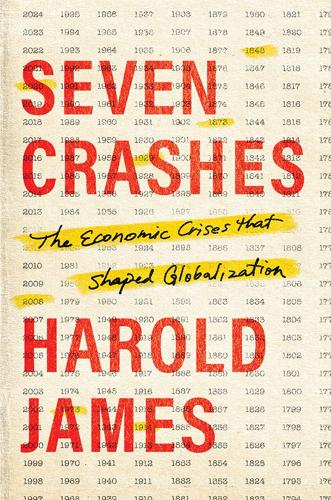
Seven Crashes: The Economic Crises That Shaped Globalization
by
Harold James
Published 15 Jan 2023
Right at the outset of the war, under a decree of August 4, 1914, the government issued Darlehnskassenscheine, small-denomination loan certificates notionally secured on industrial and agricultural assets: they amounted to a practical parallel currency, but did not appear in the consolidated debt or bank note issue statistics. Figure 3.1. Public debt as share of GDP, 1912–1931 (percent) (Source: IMF HPDD [Historical Public Debt Database]) By contrast with the western powers, which increased tax rates massively during the war, in Germany the major new income and wealth taxes had been imposed just before the war. In 1913, the parliament (Reichstag) passed a nonrecurring armaments levy (Wehrbeitrag), which included a payment on property values that escalated from 0.15 percent on small assets to 1.5 percent at the top, with a payment on income scaled from 1 to 8 percent.

Be Your Own Financial Adviser: The Comprehensive Guide to Wealth and Financial Planning
by
Jonquil Lowe
Published 14 Jul 2010
This gives an average gain or ‘slice’ of £1,000. So £875 of the slice falls within Jim’s basic-rate band, leaving £125 to be taxed at 40% – 20% = 20%. Therefore, tax on the slice is £25 and tax on the whole gain is reduced to 5 × £25 = £125. M09_LOWE7798_01_SE_C09.indd 269 05/03/2010 09:51 270 Part 3 n Building and managing your wealth Tax wrappers and incentives You can boost the return from many savings and investment products by investing through a ‘tax wrapper’. This is not itself an investment but is like a layer that you wrap around investments which means they then benefit from advantageous tax treatment. The main tax wrappers are pension schemes (see Chapter 7), ISAs (see p. 272) and child trust funds (see p. 274).

An Empire of Wealth: Rise of American Economy Power 1607-2000
by
John Steele Gordon
Published 12 Oct 2009
When the Supreme Court threw out most of the early New Deal (some of whose programs, notably the NRA, had not been working well anyway) the Roosevelt administration, ever pragmatic, tried new programs. In 1935 it initiated what came to be called the Second New Deal. This called for Social Security, further banking reform, more extensive works programs (including the WPA), higher taxes on high incomes and inheritances (including a so-called wealth tax on estates more than $50 million—a threshold only a handful of families met), and strong protections for organized labor to make it easier for unions to organize workers. This revolutionized the American workplace, especially in manufacturing, which was then the heart of the American economy. The reform of labor relations in this country had begun, as so much else attributed exclusively to the New Deal, under Herbert Hoover.
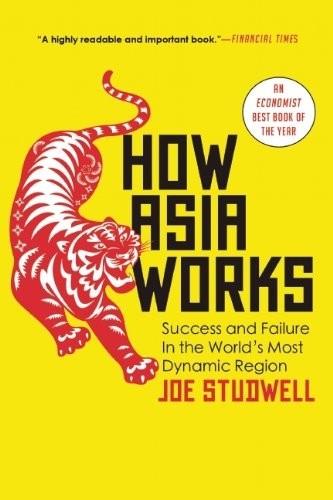
How Asia Works
by
Joe Studwell
Published 1 Jul 2013
Pasuk and Baker, Thailand, pp. 64–5. 113. On phleng luk thung, see Pasuk and Baker, Thailand, p. 79. Data on rural incomes from Pasuk and Baker, p. 89. 114. It is notable that when Thaksin’s younger sister, Yingluck, won an election and became prime minister in 2011, the first thing her administration did was to scrap new wealth taxes on land and property initiated (ironically) by the previous, army-backed government. The Thaksin family signalled that its alliance with the rural poor is now on the back burner. Thaksin Shinawatra was never fundamentally interested in reshaping the Thai political economy; what he realised was that the rural north-east vote was there for the taking.
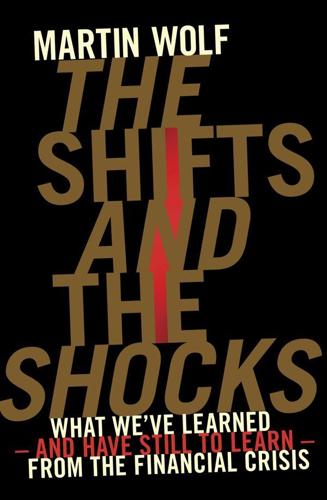
The Shifts and the Shocks: What We've Learned--And Have Still to Learn--From the Financial Crisis
by
Martin Wolf
Published 24 Nov 2015
Rapidly rising inequality is one reason why rapid credit growth is needed to generate adequate demand in high-income countries. If so, income could be redistributed through the tax system to people who would actually spend it. The French economist, Thomas Piketty, recommends substantially higher taxes on very high incomes as well as a global wealth tax, beyond the land tax alone. This is unquestionably too ambitious. But movement in these directions is desirable and should even be possible.18 Not least, that would be a way to force the winners from globalization and technological innovation to provide some compensation to the losers. The final area consists of policies aimed at raising the longer-term rate of economic growth.
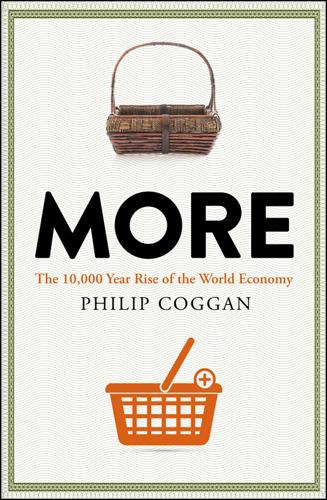
More: The 10,000-Year Rise of the World Economy
by
Philip Coggan
Published 6 Feb 2020
In 1925 and 1926, it fell as far as 41 to the dollar, making it worth just over 2 US cents.32 It had been worth 5 to the dollar, or 20 US cents, in 1913.33 There was an inevitable flight of capital overseas, as French investors anticipated the imposition of higher taxes to reduce the deficit. In 1926, the crisis was resolved as Raymond Poincaré, the prime minister, cut the deficit without resorting to a wealth tax. The franc stabilised at 25/$ and France started to attract large quantities of gold. The success of these “orthodox” policies made France very committed to the gold standard, which it rejoined in 1928. In contrast, America seemed to have a trouble-free 1920s. Between 1921 and 1929, it managed an average real growth rate of 5% a year.
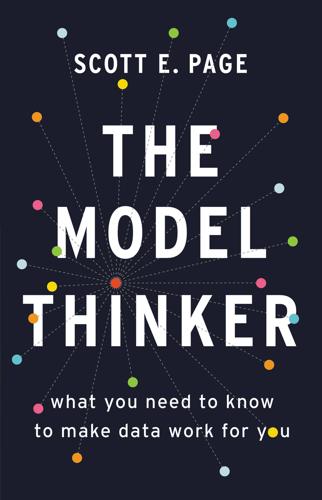
Model Thinker: What You Need to Know to Make Data Work for You
by
Scott E. Page
Published 27 Nov 2018
That caveat aside, the model’s implication is that so long as capital increases, capitalists earn an increasing portion of the economic pie. If we keep applying the rule of 72, we find that the income of the capitalists eventually dwarfs that of the workers. The problem of capital accumulation has a straightforward solution: impose a wealth tax. That may not be politically possible. As an alternative, we might wait for a war or revolution to redistribute wealth by force or for some technological breakthroughs that produces a new set of wealthy capitalists. Our next two models give priority to sociological forces. Both also have strong empirical support.
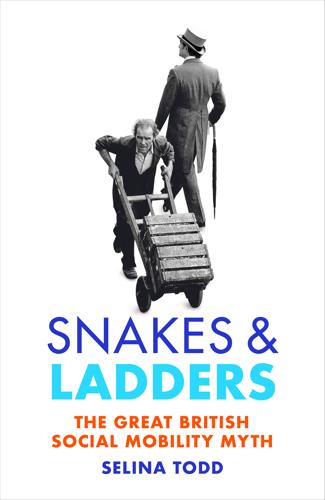
Snakes and Ladders: The Great British Social Mobility Myth
by
Selina Todd
Published 11 Feb 2021
This is why private providers of social care pay their staff low wages, despite the obvious need for high-quality care of older and vulnerable people, and why university vice chancellors accept salaries of hundreds of thousands of pounds while employing increasing proportions of their staff on insecure, temporary contracts, despite the increase in student numbers. Political decisions determine a job’s value, with those who have more political power able to argue that their work should be highly regarded. Value is expressed economically, through monetary payment and benefits like pensions. It would be possible to use income or wealth tax to narrow inequality, and these are measures worth implementing (though beyond the scope of this book).11 But those doing socially useful work should be paid well and enjoy good benefits. There is no objective reason why a banker or vice chancellor should be paid more than a home help. Since the 1980s employers and politicians have argued that offering ‘respect’ or ‘training’ can overcome the lack of value implied by low wages and uncertain prospects.

The the Rough Guide to Turkey
by
Rough Guides
Published 15 Oct 2023
In the internationally mediated population exchange of 1923, nearly all the Greek Orthodox Christians left in Turkey (some 1.3 million) were sent to Greece, while the Muslim Turkish population of Greece was sent to Turkey. Only the Greek Orthodox population of Istanbul was exempted, due to the importance of the Greek Orthodox Patriarchate in Istanbul. The Greeks today Istanbul held an estimated 297,000 Greeks in 1924. Many left after the Wealth Tax of 1942 targeted Turkey’s minorities, while in 1955, looking for a distraction from the country’s economic woes and with tensions high over Cyprus, Turkish PM Menderes deemed Istanbul’s Greek minority a suitable scapegoat. Government-sponsored demonstrations soon got out of hand, and mobs ransacked Greek property.
…
By the eighteenth and nineteenth centuries, however, their wealth decreased, as the Greeks especially made the most of their Christian links with the European powers. During the early period of the Turkish republic, the Jews did reasonably well, while Atatürk gave sanctuary (and employment) to Jewish academics expelled from Nazi Germany in the 1930s. Like all non-Muslim minority groups, the Jews fell victim to the Wealth Tax of 1942, and many left following the creation of the State of Israel in 1948. The Jewish population has continued to dwindle under AKP rule, the population dropping from 23,000 to 15,000, the vast majority in Istanbul. Erdoğan’s regional popularity has relied in large part on his fiery rhetoric, repeatedly castigating both Israel and Jews.

Israel: A Concise History of a Nation Reborn
by
Daniel Gordis
Published 17 Oct 2016
“Changing Patterns of Landownership in Nineteenth-Century Palestine: The European Influence.” Journal of Historical Geography, Vol. 10, No. 4 (1984). Katz, Shmuel. Lone Wolf: A Biography of Vladimir (Ze’ev) Jabotinsky. Fort Lee, NJ: Barricade Books, 1995. Kaya, Furkan. “Minority Policies of Turkey and Wealth Tax of 1942.” Yeditepe University (February 12, 2014), http://mpra.ub.uni -muenchen.de/53617/1/MPRA_paper_53617.pdf. Kedar, Nir. “Ben-Gurion’s Mamlakhtiyut: Etymological and Theoretical Roots.” Israel Studies, Vol. 7, No. 3 (Fall 2002). Kellner, Vered. “Longings and Disappointments: A Voter in Exile in New York.”

The Climate Book: The Facts and the Solutions
by
Greta Thunberg
Published 14 Feb 2023
This would accelerate the shift out of fossil fuels by making access to capital more expensive for the fossil fuel industries. It would also generate potentially large revenues for governments which they could invest in green industries and innovation. Such taxes would be more equitable, since they target a fraction of the population, not the majority. At the world level, a modest wealth tax on multimillionaires with a pollution top-up could generate 1.7 per cent of global income, as has been shown in recent research. This could fund the bulk of extra investments required every year to meet climate mitigation efforts. Whatever the path chosen by societies to accelerate the transition – and there are many potential paths – it’s time for us to acknowledge that there can be no deep decarbonization without profound redistribution of income and wealth. / The rich should contribute the most to curbing emissions, and the poor be given the capacity to cope with the transition to 1.5°C or 2°C. 5.20 Climate Reparations Olúfẹ́ mi O.

Do You Sincerely Want To Be Rich?
by
Charles Raw
,
Bruce Page
and
Godfrey Hodgson
Published 16 May 2005
The popularity of offshore institutions has grown with the growth of 'onshore' regulations of all kinds. There were many spurs to the growth of offshore business in the Sixties. There was a tightening of exchange controls, due to balance of payments crises in America, France and Britain. The outflow of dollars created pools of effectively free currency. Capital gains taxes, and the threat of wealth taxes drove money to seek refuge in out of the way places. The offshore status of IOS was not an accident, an additional refinement grafted onto a viable structure. It was of the essence of Cornfeld's and Cowett's conceptions that their operation should be as far as possible untaxed, unregulated and uncontrolled.
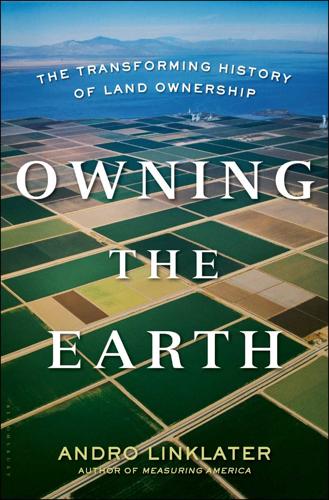
Owning the Earth: The Transforming History of Land Ownership
by
Andro Linklater
Published 12 Nov 2013
Tensions between the Communist Party and the cities bear an obvious resemblance to ancient rivalries between imperial servants and provincial officials. a potentially significant move: Significantly, the tentative move to tax mansions had a follow-up. In early 2013, the Party Congress announced a new wealth tax on the sale of houses. successive administrations brought down: In practice, the cuts brought the average top rate down to under 29 percent. a gap that had to be filled by borrowing: President Reagan’s borrowing was partly to pay for his administration’s hiring of an extra 324,000 employees, while President George W.
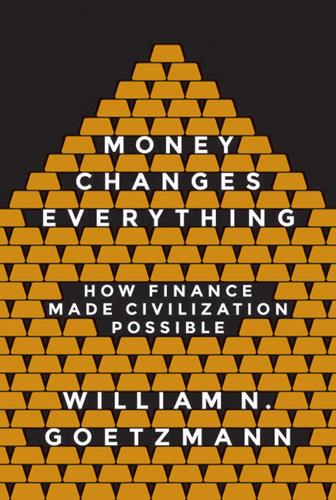
Money Changes Everything: How Finance Made Civilization Possible
by
William N. Goetzmann
Published 11 Apr 2016
In 216 BCE, when Rome could not pay its troops, it reached out to foreign rulers for a loan—it borrowed from Hieron of Syracuse—and then defaulted.25 It could not pay the publican societies provisioning its army and constructing its state buildings. It raided its widow and orphan funds; it levied a wealth tax; in 210 it simply begged its wealthy citizens for loans, and in 205 it sold off state property in Campania. The Roman government was clearly almost broke. And yet the financial brinksmanship worked. Winning the war flooded Rome’s coffers with booty. With the defeat of Hannibal in 202 BCE, Carthage was stripped of her colonies and settled with a huge tribute—the Carthaginians silver and gold mines of Iberia were transferred to Rome, and Roman carpetbaggers swarmed west to exploit them.
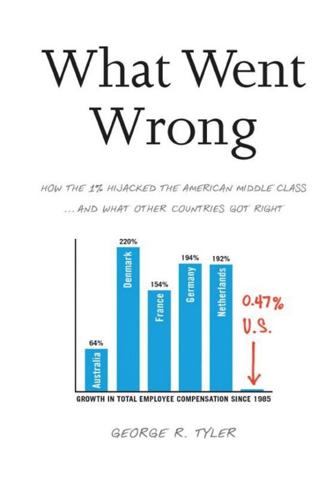
What Went Wrong: How the 1% Hijacked the American Middle Class . . . And What Other Countries Got Right
by
George R. Tyler
Published 15 Jul 2013
President Reagan didn’t think so when raising the rate by nearly half to 28 percent in 1986. Nor do former Treasury Secretaries Robert Rubin or Lawrence Summers. Low taxes on capital benefits owners of legacy capital, but entrepreneurs have other priorities; they are interested in creating new wealth not shielding old wealth. Tax rates have no detectable impact on GDP or productivity, and the historical record bears this out: US growth and hiring have been the weakest when capital gains rates have been the lowest, a pattern that has persisted throughout the entire Reagan decline. GDP has grown more than twice as fast in periods of high tax rates on capital gains (1982–2002) as in periods of low rates (2003–2011).54 Such causality is not proof, but rigorous scholarly analyses examining the evidence provide that proof.

Liberalism at Large: The World According to the Economist
by
Alex Zevin
Published 12 Nov 2019
‘UnKeynesian Britain’, 4 February 1984. 97.For the extent to which monetarism had been accepted by Labour’s leadership during the 1976 IMF crisis, see Mark Wickham-Jones, Economic Strategy and the Labour Party: Politics and Policy-Making 1970–83, Basingstoke 1996, pp. 98–100; Noel Thompson, Political Economy and the Labour Party: The Economics of Democratic Socialism, 1884–1995, London 1995, pp. 222–25; Stedman Jones, Masters, pp. 241–54. 98.Callaghan might turn out to be the ‘best practitioner of Tory policy’, but the Economist doubted if he could bring along ‘Labour’s lethargic laggards’ – who wanted bailouts for bankrupt firms and an incentive-crushing wealth tax. ‘Only One Prime Minister’ and ‘Labour’s Conservative’, 28 April 1979. At the time, on the left Stuart Hall perceived more clearly the ‘hegemonic thrust’ of Thatcherism in his Marxism Today pieces, many of which appear in The Hard Road to Renewal: Thatcherism and the Crisis of the Left, London 1988. 99.
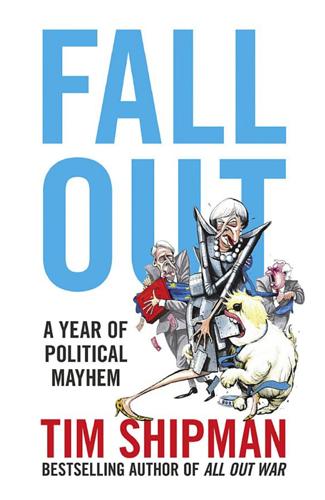
Fall Out: A Year of Political Mayhem
by
Tim Shipman
Published 30 Nov 2017
Timothy was keen to think radically, but May ruled out the plan: ‘She decided that some of the tax rises that we’d have to do to pay for it were too much.’ Timothy agreed that the idea was ‘politically difficult within the constraints of Conservative politics’. Yet it was just the sort of eye-catching transformational idea that could have dramatised for voters that May was a different sort of Tory. A wealth tax on high-value properties was also considered, which would have seen capital gains tax – usually only levied on second homes – slapped on first properties. ‘It was denied publicly but it was very briefly considered,’ a senior source said. ‘We did the numbers, but it would have been quite punitive at the top end, especially for someone who’s been sitting on a house for fifty years that’s gone up in value from £300,000 in 1950 to £6 million now.’
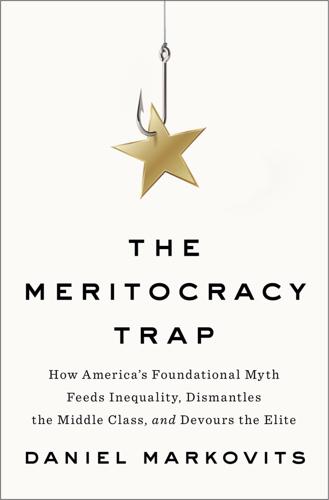
The Meritocracy Trap: How America's Foundational Myth Feeds Inequality, Dismantles the Middle Class, and Devours the Elite
by
Daniel Markovits
Published 14 Sep 2019
The percentages are: 1961, 22.3 percent; 1992, 47.4 percent; 2007, 34.4 percent. The Forbes list was inaugurated in 1982, but we have data for 1961 on account of the fluke that, in that year, 398 taxpayers had income sufficient to get into the highest tax bracket, and so were counted by the IRS. David Cay Johnston, “Is Our Tax System Helping Us Create Wealth?,” Tax Notes, December 21, 2009, www.taxnotes.com/tax-notes/budgets/our-tax-system-helping-us-create-wealth/2009/12/21/qjq2. between 1982 and 2011: From 17 percent in 1982 to just 5 percent by 2011. See Kaplan and Rauh, “Family, Education, and Sources of Wealth,” 158–62, 160. 24 percent from finance: See Les Leopold, “Five Obscene Reasons the Rich Grow Richer,” Salon, October 1, 2012, accessed August 26, 2018, www.salon.com/2012/10/01/five_obscene_reasons_the_rich_grow_richer/.

Wasps: The Splendors and Miseries of an American Aristocracy
by
Michael Knox Beran
Published 2 Aug 2021
Chauncey, who followed his father to Harvard and later became an assistant dean in the university, found a solution to the problem in standardized tests that allegedly measured raw intelligence with a much greater degree of accuracy than other methods. He went on to become one of the founders of the Educational Testing Service, which gave America the Scholastic Aptitude Test or S.A.T. The result was a meritocracy that did as much as anything (other than the New Deal wealth tax) to undermine the WASP ascendancy, for it broke the WASPs’ near monopoly of schools like Harvard, Yale, and Princeton. The new regime was decidedly fairer than the old one, but it had the unintended effect of hindering those salutary projects which WASPs, for all their shortcomings, had long cherished.

The Atlantic and Its Enemies: A History of the Cold War
by
Norman Stone
Published 15 Feb 2010
In 1946, as tensions rose in Germany, Czechoslovakia still appeared to be an island of peace and even prosperity. Exports went ahead; Western visitors came and went; Czechs put themselves in the world’s newspapers with this or that far-flung expedition. There were political wrangles as the parties fought over one proposal or another, and the non-Communists managed to win one such, a proposal for a wealth tax that would have damaged small enterprise. But Czechoslovakia, her borders reaching far into the bloc, and even, for a few miles, contiguous with the Soviet Union’s, was no Finland, and there came a moment of truth in the early summer of 1947. George C. Marshall proposed his Plan, and the British joined him in inviting all European governments to attend a conference at Paris.
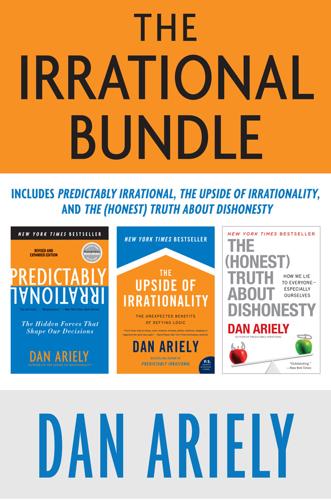
The Irrational Bundle
by
Dan Ariely
Published 3 Apr 2013
William Vickrey received the Nobel prize in economics for demonstrating that this type of auction creates the conditions where it is in people’s best interest to bid the maximum amount they are willing to pay for each item (this is also the general logic behind the auction system on eBay). *When I’ve tried this kind of experiment on executives and managers (at the MIT Executive Education Program), I’ve had similar success making their social security numbers influence the prices they were willing to pay for chocolates, books, and other products. *The result was not due to wealth, taxes, or other financial reasons. *To ensure that the bids we got were indeed the lowest prices for which the participants would listen to the annoying sounds, we used the “Becker-DeGroot-Marschak procedure.” This is an auction-like procedure, in which each of the participants bids against a price randomly drawn by a computer.

Why the West Rules--For Now: The Patterns of History, and What They Reveal About the Future
by
Ian Morris
Published 11 Oct 2010
In 402 an emperor even accepted that monks should not have to bow in his presence. Figure 6.9 suggests that there may have been 10 million Buddhists in China by 500, and when the new faith reached this second tipping point, rulers (in northern China as well as southern) made the same decision as Constantine and lavished wealth, tax exemptions, and honors on the flock’s leaders. In the south the genuinely pious emperor Wudi supported vast Buddhist festivals, banned animal sacrifice (people had to consume pastry imitations instead), and sent envoys to India to gather sacred texts. In return, the Buddhist hierarchy recognized Wudi as a Bodhisattva, the redeemer and savior of his people.
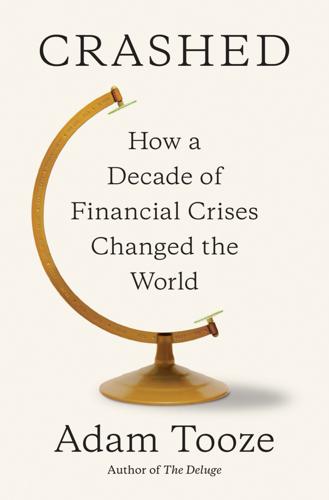
Crashed: How a Decade of Financial Crises Changed the World
by
Adam Tooze
Published 31 Jul 2018
America’s massively skewed distribution of income and wealth was the product of inherited assets, amplified by pervasive technological and economic change and Warren Buffett’s “class war,” which extended to every facet of the political regulation and deregulation of the economy. If this was so, what would it take to counteract the imbalance and to redress the astonishingly one-sided outcomes? A polite European social democrat like Thomas Piketty inferred from his inequality data that what the world needed was a global wealth tax. This was the message of his remarkable global bestseller, Capital in the Twenty-First Century, which redefined the public debate about inequality in 2014.42 That would certainly help to offset the tendency toward massive inequality. But in a system as starkly polarized and lopsided as that of the United States, what relevance did such well-meaning suggestions have?
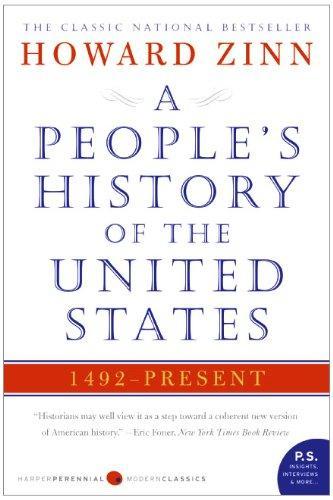
A People's History of the United States
by
Howard Zinn
Published 2 Jan 1977
And if the children of other countries are to be granted an equal right to life with our own children, then we must use our extraordinary human ingenuity to find nonmilitary solutions for world problems. The other possible source to pay for social reform was the wealth of the superrich. The richest 1 percent of the country had gained over $1 trillion in the eighties and nineties as a result of tax breaks. A “wealth tax”—something not yet done as national policy, but perfectly feasible—could retrieve that trillion dollars, for instance, at $100 billion dollars a year for ten years, and still leave that 1 percent very, very rich. In addition, a truly progressive income tax—going back to the post–World War II levels of 70–90 percent on very high incomes—could yield another $100 billion a year.

Lonely Planet Turkey (Travel Guide)
by
Lonely Planet
,
James Bainbridge
,
Brett Atkinson
,
Steve Fallon
,
Jessica Lee
,
Virginia Maxwell
,
Hugh McNaughtan
and
John Noble
Published 31 Jan 2017
By the end of the Ottoman Empire, there were tens of thousands of Jews living in the city (10,000 in the neighbourhood of Balat alone, and nearly as many in Hasköy). Alas, this enlightened state didn't last through the centuries, and Jewish Turks were made to feel considerably less welcome when racially motivated 'wealth taxes' were introduced in 1942; these applied until 1944. Many members of the community emigrated to the newly established nation of Israel between 1947 and 1949 and others left when violence against Jews and other minorities was unleashed in the 1950s. More recently Islamist terrorists have bombed synagogues on a number of occasions, including here at the Neve Shalom and at Şişli's Bet Israel synagogue on 15 November 2003.